EAST RUTHERFORD, N.J. – Judge's Chambers, a weekly interview with Giants coach Joe Judge for Giants Season Ticket Members:
Note: This interview was conducted prior to the announcement that cornerback James Bradberry will not play against the Cleveland Browns. He was placed on the Reserve/COVID-19 list because he was deemed to be a high-risk close contact of an individual (not a member of the Giants organization) who has tested positive.
Q: When did you learn (offensive coordinator) Jason Garrett had tested positive for COVID-19 and would be unable to attend the game Sunday against Cleveland?
Judge: "We were alerted, it was about 10 o'clock Wednesday night. That's typically the time we start finding results on who may or may not have tested positive. Sometimes you get false positives, so you have to wait to get the official word when you wake up the next morning. But you have an idea going to sleep. The first step we did was make sure that all the coaches in the building were isolated and that we weren't meeting in groups. Even when we do meet, we have the meeting rooms spaced out so there's no risk of close contacts and spreading. However, you still want to make sure that when you find that out, you get everyone as absolutely isolated as can be. We just made sure we got everybody in their offices, had the doors closed, we made it available where if people wanted to leave, they could leave. There was a little bit of (Wednesday) night as well. At that point at night, it was about time for guys to kind of wrap it up, head to the hotel or head to their house and get ready for (Thursday)."
Q: Was (tight ends coach) Freddie Kitchens the obvious choice then to replace Jason as the play caller on Sunday?
Judge: "Well, Freddie's a guy that we've had ready to go and do it. He's handled some responsibilities for us throughout this season. There are other coaches as well on the offensive side who have had experience as play callers and are familiar with this system from working at it for nearly a year. We have a number of guys that are all prepared and ready. To me, it's important that everybody understands the game plan well enough to call the game."
Q: What specifically about Freddie do you like as a play caller?
Judge: "Obviously, I've always had a lot of respect for how Freddie sees the game. I think Freddie is a very instinctive football guy. Football is just something that he's always been comfortable in, growing up and his time as a player, and it carried over to his experience as a coach. I think he does a great job of seeing what the opponent's strengths are and understanding what his own players can do. I always love watching Freddie's players improve throughout a year. I've seen that definitely with his tight ends group this year. They respond to him both in a learning standpoint, but also an effort and technique on the field standpoint. I've always seen his guys compete and play tough. It's been no different this year."
Q: Does Jason normally speak to the quarterbacks - maybe late in the week – about what plays in the game plan they prefer to run in specific situations? If so, will Freddie also do that with Daniel (Jones) and Colt (McCoy) this week?
Judge: "I think it's important that we keep everything as cooperative as it's been on the offensive side. All of the coaches have had input throughout the season. This should be no different. Obviously, Jason through Zoom can still have communication with the quarterbacks. We'll keep those meetings going forward. Obviously, Freddie will be a part of those, as well, going in. But it's important for anyone who's calling the plays to understand how the QB sees it through the game. They have to be on the same page."
Q: Practices in the NFL are sacred. Thursday has become your big practice day. How will not being able to practice on Thursday impact your preparation for this game?
Judge: "I just think it's a challenge that we had to make sure we did our best and got the most out of it, a day we got more meeting time, an opportunity to really study the Browns. We had to make the most of that. Obviously, we would rather be on the field and getting on the grass work. There's nothing more important than practice for how we prepare for a game. Meetings are important, but that leads to on the field execution through practice. We just have to do a really good job on Friday as a team of making sure we get both the early down reviews, as well as the third down and red area install accomplished, and then come back in on Saturday morning and walk through and make sure we clean up any final adjustments or mistakes that may have happened at practice the day before. Look, it's a challenge. It's no different than having a short week where you play a Thursday game and you have to go in with limited practice opportunities. You have to be creative and find the best way to get your team prepared."
Q: You mentioned it's beneficial that the game was flexed to Sunday night so you got extra time to work on Saturday and Sunday, is that correct?
Judge: "That was actually big for us. When this happened unexpectedly, we were able to shift around a little bit of the meetings and how we're going to do things. Now we're going to use Saturday morning as more of a walkthrough practice for us. That will allow us Saturday night to review some tape and have some night-before-the-game meetings. But then also on Sunday morning, wake up and do our hotel walkthrough where the offense goes through their plays in a ballroom and the defense really kind of goes in and works through some variables and adjustments together."
Q: Will Daniel Jones have ample opportunity to show you that he's healthy enough to play?
Judge: "I think so. (Friday), we'll be on the grass. It'll be an opportunity for him to get out there and move around. We're encouraged by how he worked (on Wednesday). Obviously, he was limited in what he did. But I know this guy is working and doing everything he can, and he's doing everything we ask him to. Because it's two separate injuries, that's a little bit different than what it was last week. We just have to make sure we watch him and make the best assessment and decision."
Q: With an ankle injury added to his hamstring, does he have a greater burden of proof to show you that he can defend himself properly and that he's not at an unusual risk? In other words, if he had to show you last week that he could do A, with the additional issue, does he have to show you this week that he can do A and B?
Judge: "I think the A and B is just one big A, to be honest with you. It's the combination of whatever it may be. Can he still accomplish what he needs to do? I wouldn't put the burden on him. I think the burden is really more on us to make the right decision. We just expect him to go out there and do whatever he's capable of and try to get better every day."
Q: A couple of weeks ago, you said you had benefitted from watching the Seahawks play Philly on Monday night before you played them. When we faced the Cardinals last week, you made the point that you like to see how division teams play your upcoming opponents. This week, you combined the two because your next two opponents (Cleveland and Baltimore) played on Monday and they're AFC North foes. Did you get to watch that game Monday night and was it beneficial?
Judge: "I definitely got to watch it. I actually had it on in my office while I was breaking down some other tape at the same time. Interesting enough, I had just finished watching the first Baltimore-Cleveland game, and then that game followed it. It was interesting to see the things that each team repeated and things they looked to do and adjust the second time around."
Q: Did you watch the game until the end?
Judge: "I did. It was a great game."
Q: I was going to ask when you watch a game like that, does the football fan in you come out and say, "Wow, that was a tremendous game?"
Judge: "Yeah. You have to just have respect for the game, that way you can watch it and understand there are two good teams that are out there slugging it away. At the end of it, you had some great players make big time plays. Whether it was Lamar (Jackson) or Baker (Mayfield) getting them all the way down the field, or (Justin) Tucker hitting the game-winner, it's a combination of really good players on the field doing really good things."
Q: That game ended with a play that included a short pass, two fumbles, a lateral and a safety in the back of the end zone after 25 lost yards. Several college games had similar plays this season. How often do you practice plays like that?
Judge: "We carve out time every week to work on unique situations. We do something on Saturday mornings to kind of close out our day, and we put together about three different unique situations. That being said, we're always working the end of game situations on Friday and Saturday. Sometimes you build in those kind of, we call it desperado, where there are laterals going all around the place. To me, it's not an every week thing, necessarily. But you want to build it in every several weeks and keep a steady rotation. You want to work those Hail Mary jump ball plays. You want to work the lateral, hook and lateral type plays. You want to work the desperados. You want to work, hey, it's the last play of the game, ball is on the 11-yard line, what are they going to call? You want to combine those different situations and add an element of clock management to it and make sure the team can handle the stress of the situation in practice so that when it comes up in a game, it's not new to them."
Q: (Cleveland coach) Kevin Stefanski and you were briefly teammates as high school freshmen.
Judge: "Very briefly. I went to a high school where he was at briefly. Then we had some family issues and I ended up transferring high schools. It worked out pretty good for both of us."
Q: Have you maintained a friendship with him?
Judge: "We actually crossed paths a little bit through the remainder of high school being in the same area and obviously being on teams in the area. We didn't play against each other in high school. But as we got through college and got into coaching, we started crossing paths a little bit more. Seeing each other at the combine, talking ball, playing against each other when he was in Minnesota and I was in New England, and kind of having conversations on the field before and after the game. But yeah, it was really good. It's fun to see Kevin and all the success he's having. It's really no surprise at all."
View rare photos of the storied history between the New York Giants and Browns.
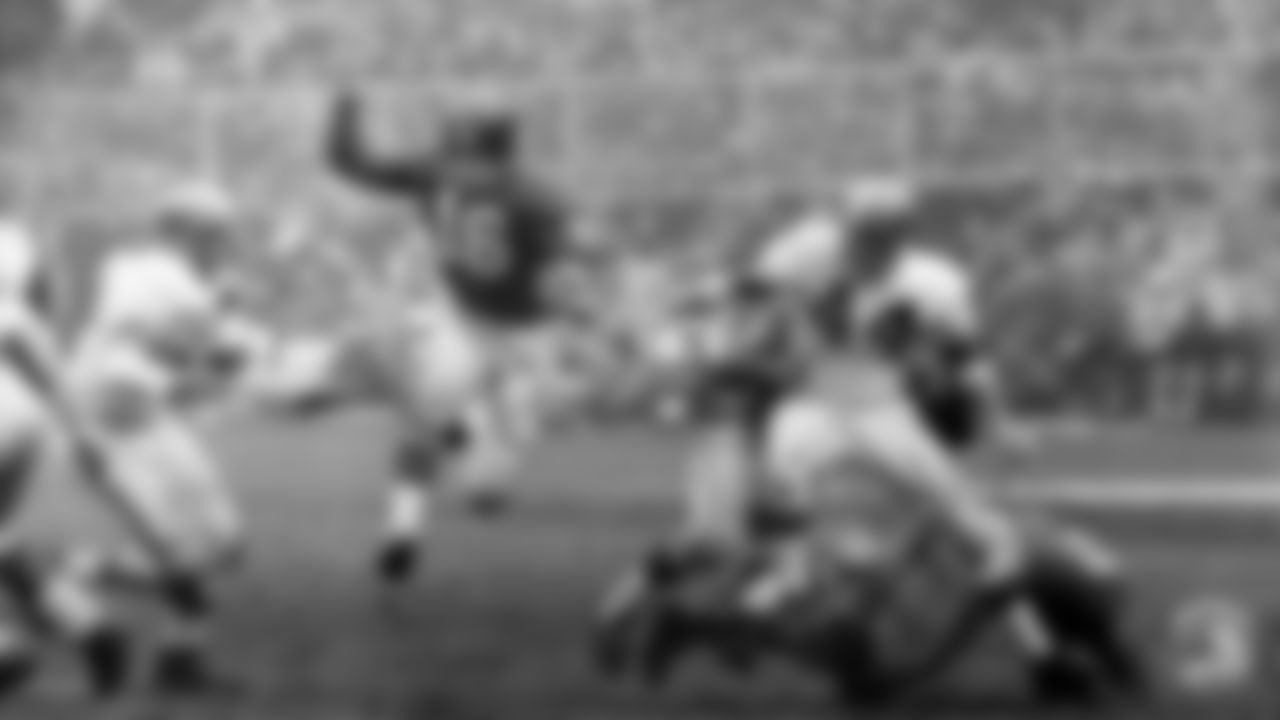
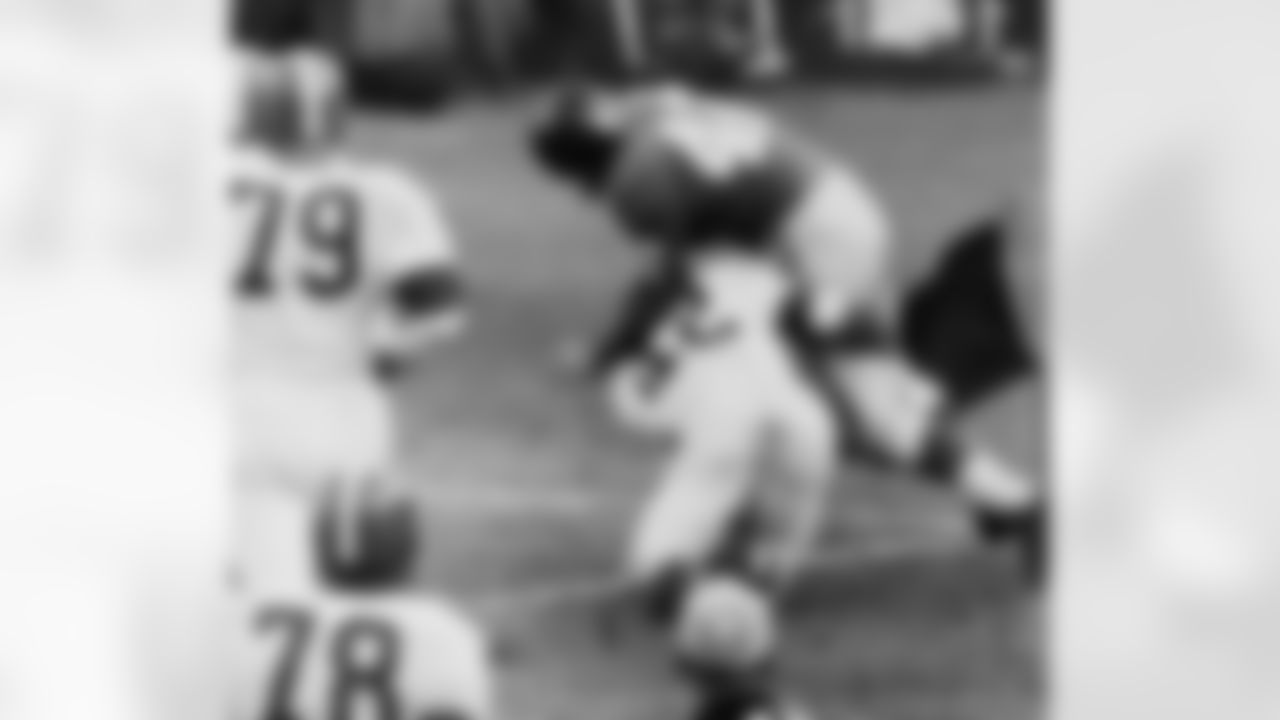
New York Giants quarterback Charley Conerly (42) scores a touchdown as he is tackled by Cleveland Browns Junior Wren (42), as part of a double hand-off resulting in the only touchdown of the NFC Eastern Division playoff game at Yankee Stadium, Dec. 21, 1958.(AP Photo/Harry Harris)
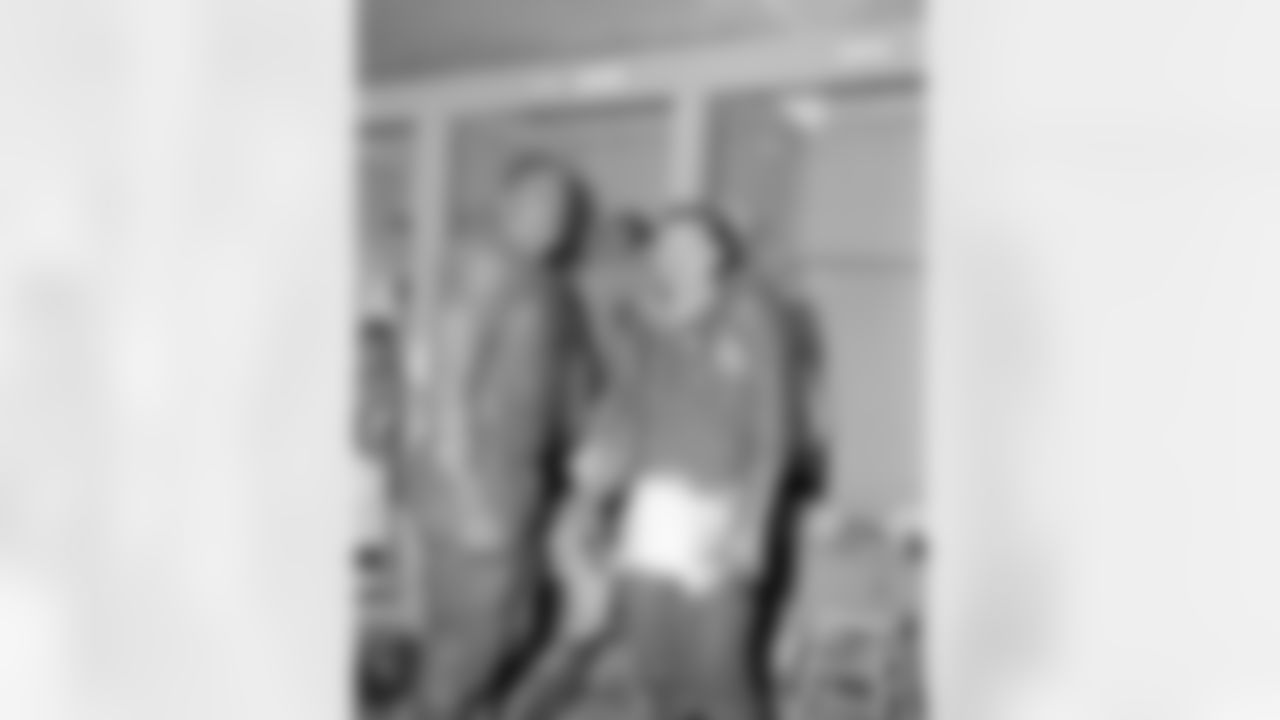
Two New York Giants are pictured in the dressing room still wearing their mud-covered uniforms after a game against the Cleveland Browns, Dec. 9, 1956, at Yankee Stadium. Tackle Roosevelt Brown is at left, with Bill Svoboda, fullback. (AP Photo/John Lindsay)
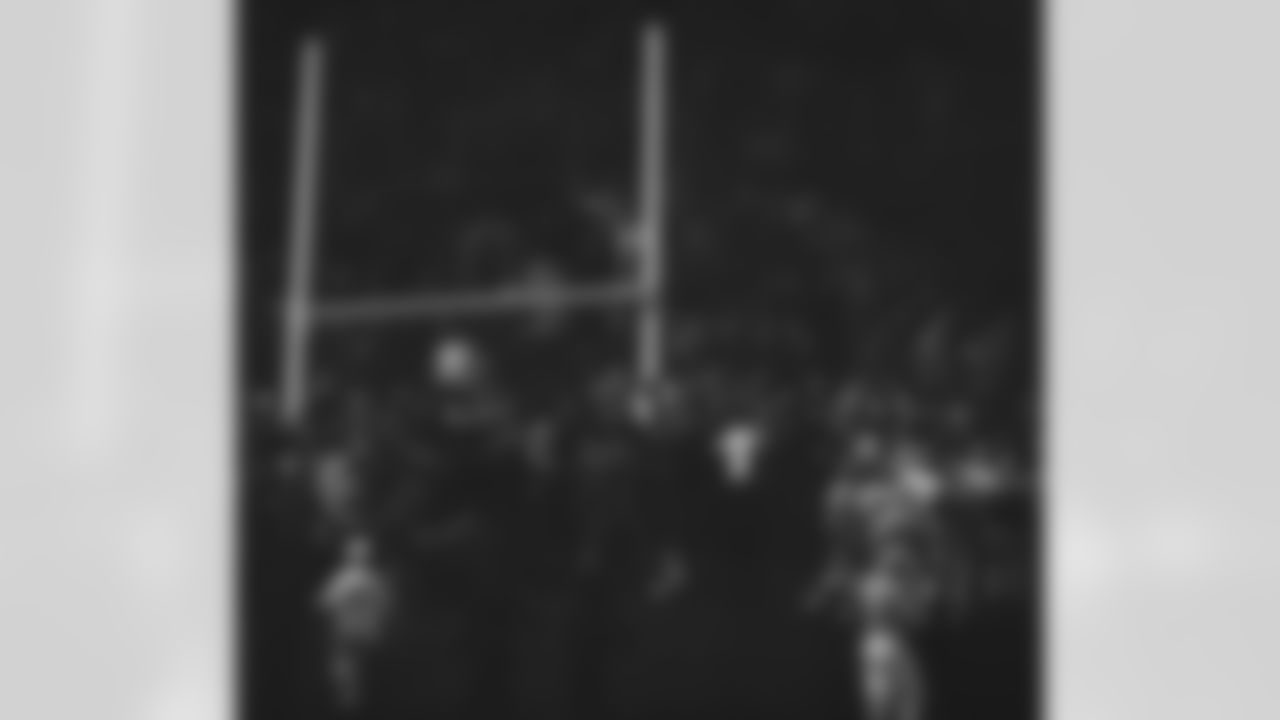
Jubilant fans mob the goalpost in closing minutes of Giants victory, 48-7, over the Cleveland Browns at Yankee Stadium in New York City, Dec. 6, 1959. (AP Photo)
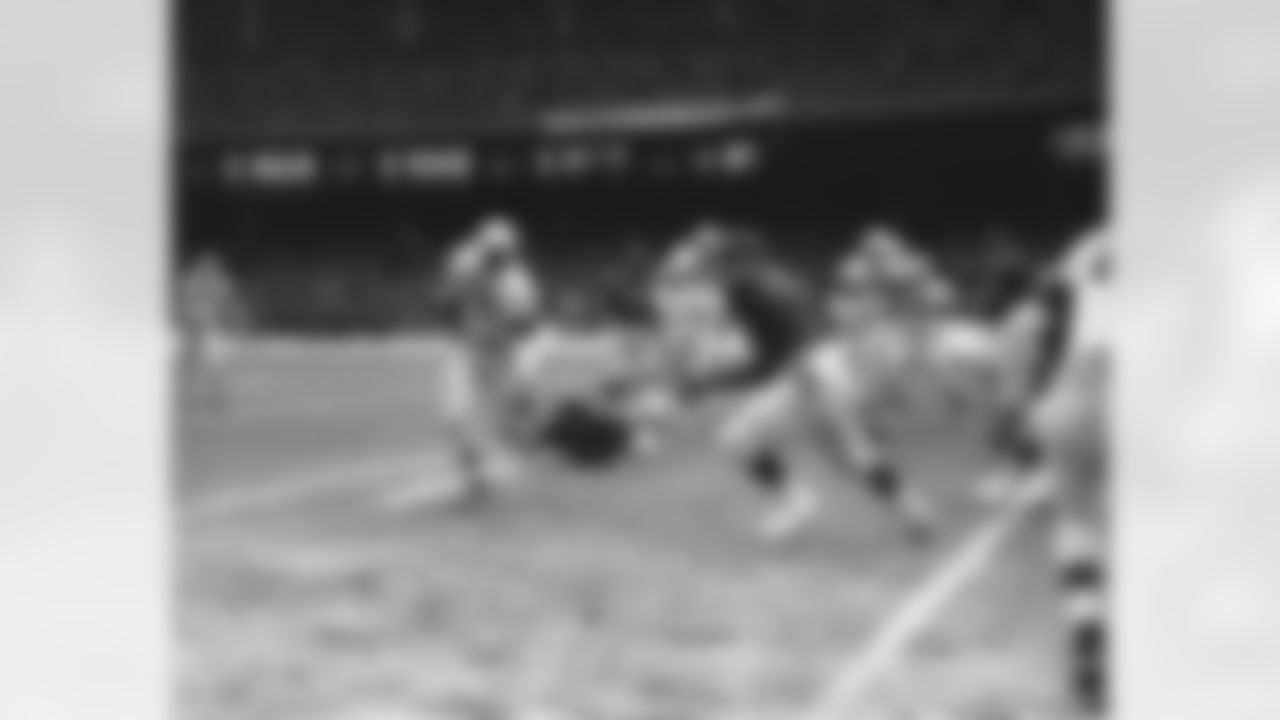
Fullback Marion Motley (76) gains one yard for the Cleveland Browns before he is pulled down by Jim Duncan, right, Giants' end in the first period of the play-off game at Cleveland, Ohio, between the Browns and the New York Giants in the American Conference on Dec. 17, 1950. Motley has just eluded Arnie Weinmeister (73), Giants tackle, lying on the ground in the center. (AP Photo/Harold Valentine)

Pat Summerall, New York Giants place kicking specialist, poses for photographer during Giants practice session for upcoming game with the Cleveland Browns at Yankee Stadium, New York, Dec. 20, 1958. (AP Photo/John Lindsay)
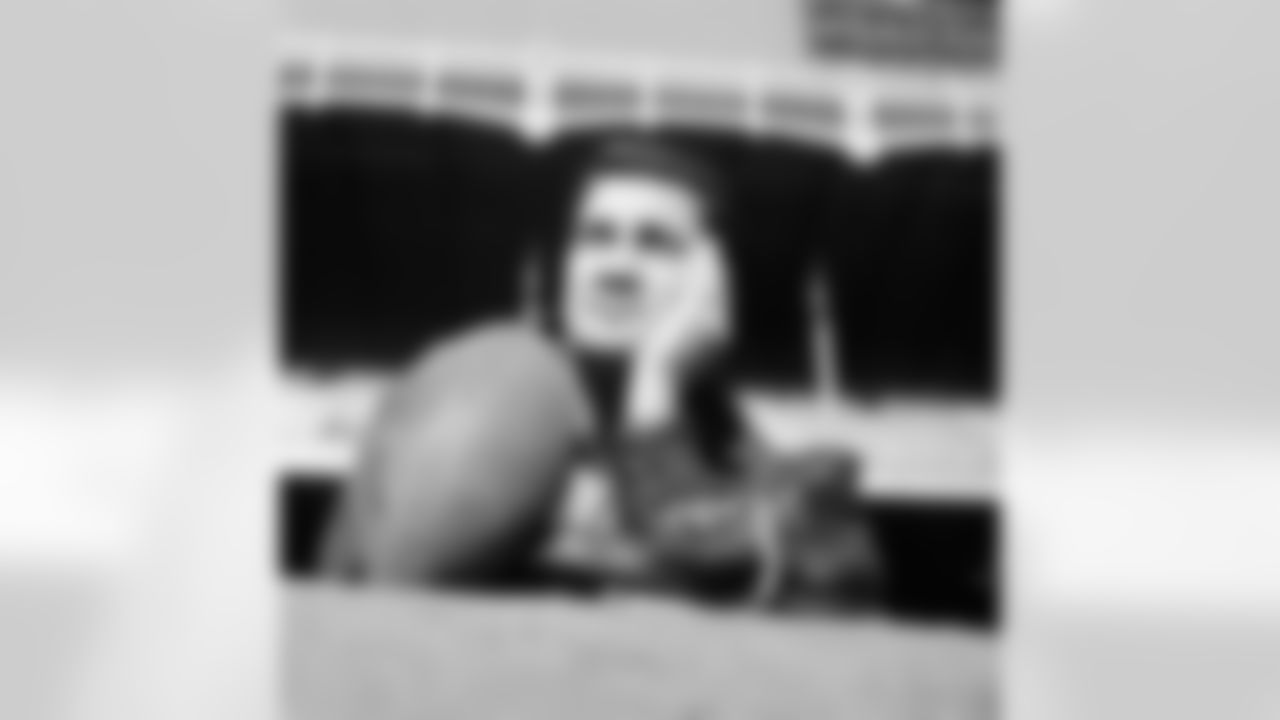
Pat Summerall, whose place kicking has helped the New York Giants to a crack at the NFL title, poses with his shoe and football during workout at New York's Yankee Stadium, Dec. 27, 1958. Pat will be out to help the Giants championship game with the Baltimore Colts on December 28. Two weeks ago Pat kicked a field goal against Cleveland Browns to give Giants a tie for the league's eastern division title. Last week he kicked a field goal and point after touchdown in team's 10-0 win over the Browns. (AP Photo/Harry Harris)
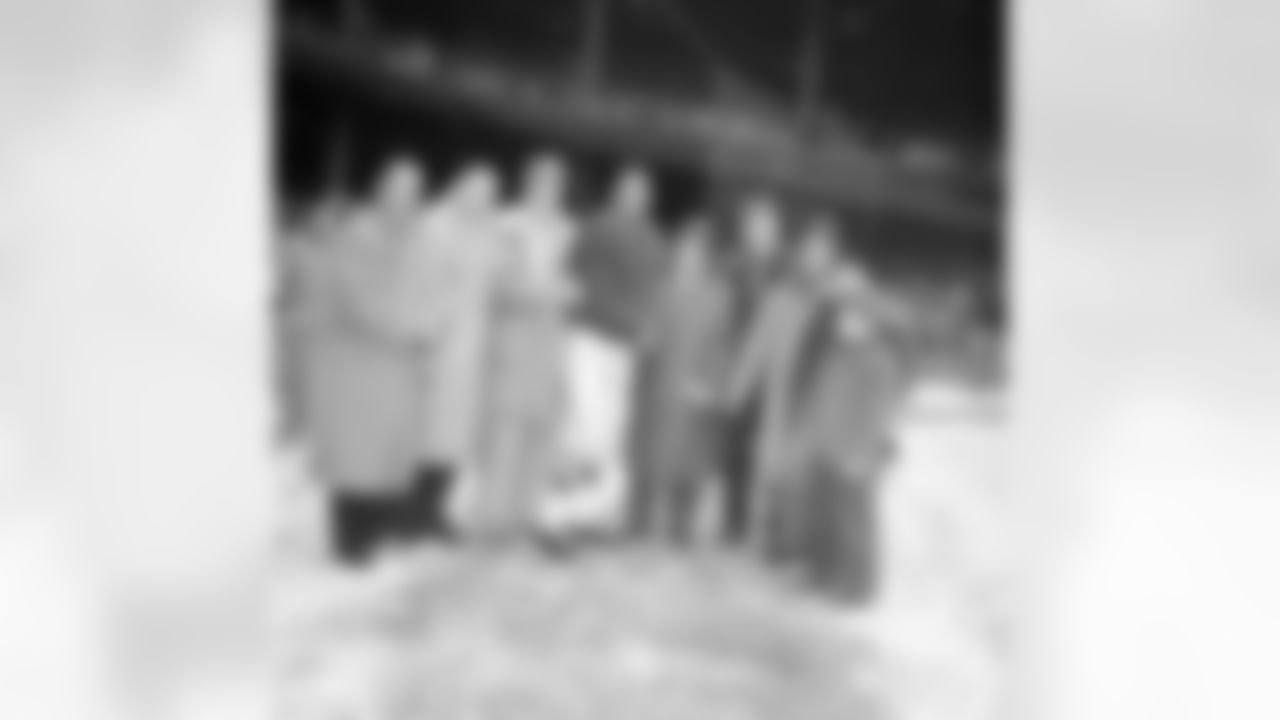
New York Giants' star defensive back, Emlen Tunnell, poses with a group from Radnor High School of Wayne, Penn., before the Giants-Cleveland Browns game in New York, Dec. 14, 1958. From left: Ben Domenick, Art Lang, manager; Jules Provost, coach; Tunnell; Jerry Domenick, team captain; Steve Domenick, 12, and Jimmy Thomas, 9. Tunnell was honored by fans before the game including the Radnor group. (AP Photo/John Lindsay)
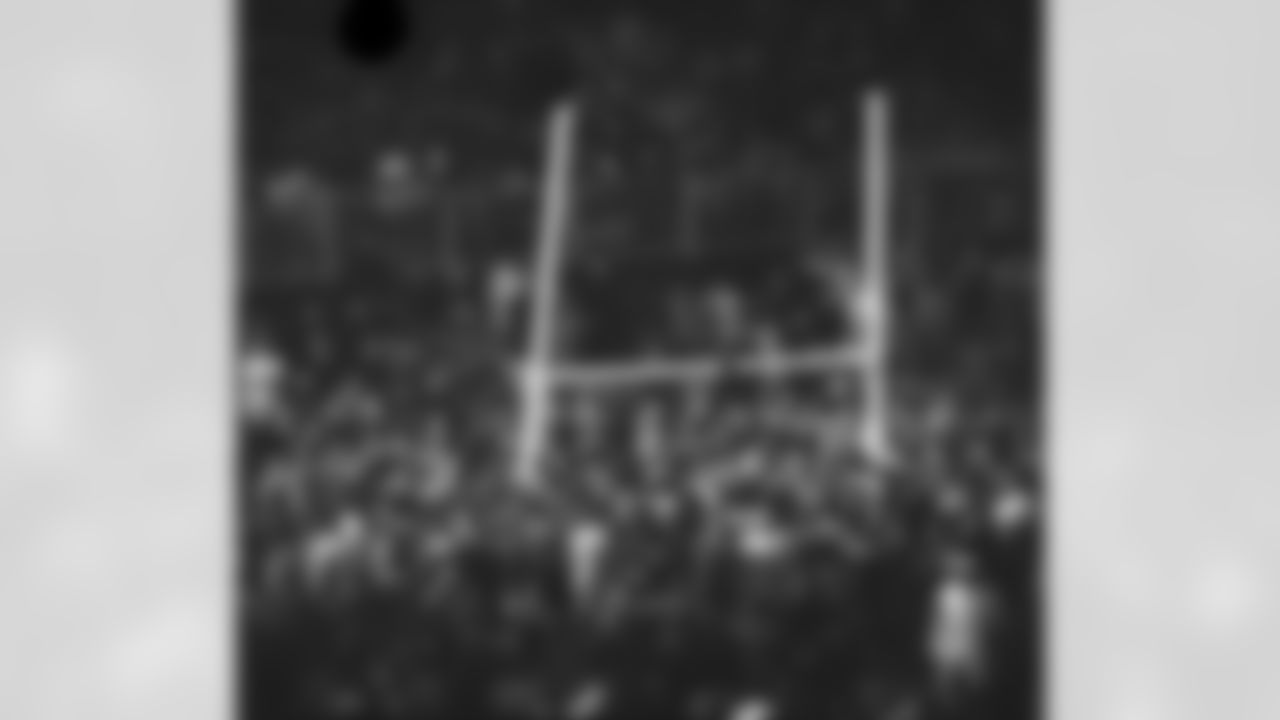
Unruly fans at Cleveland vs New York NFL game in Yankee Stadium in New York City, try to tear down the north goal posts before the game ended, Dec. 6, 1959. Officials eventually finished the game. Final score was Giants 48, Browns 7. (AP Photo)
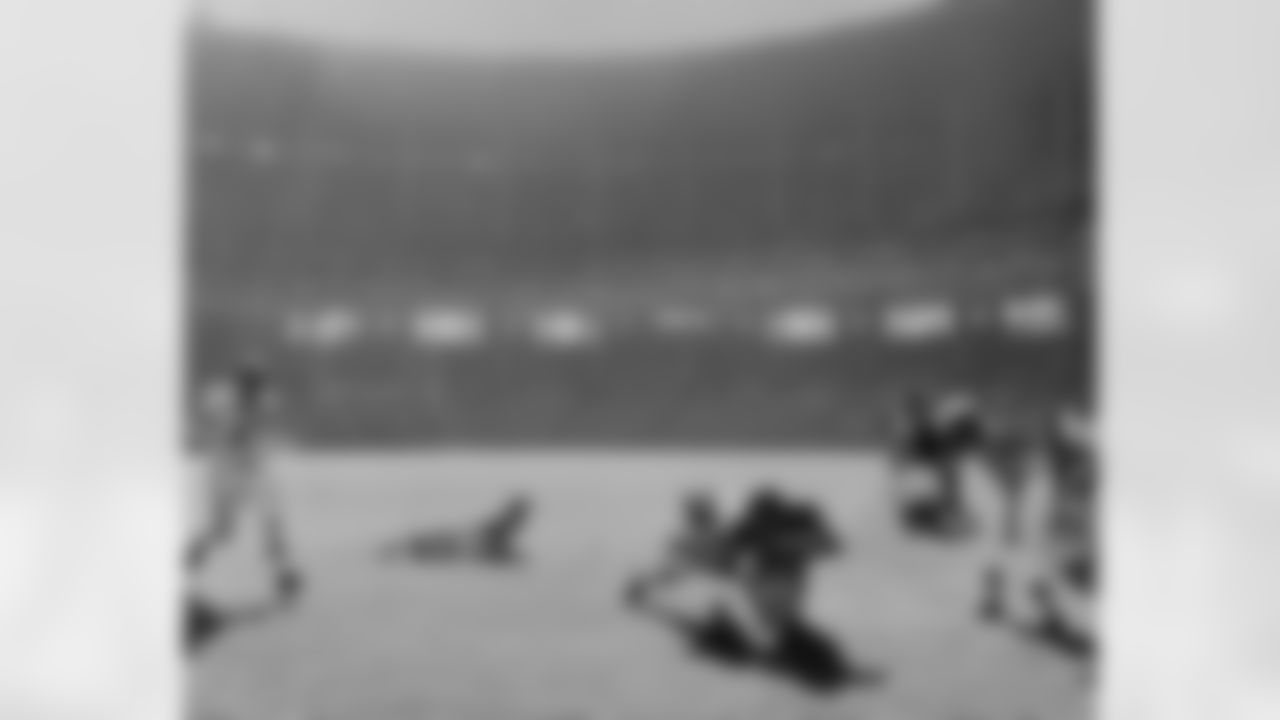
New York Giants Hall of Fame halfback Frank Gifford (16) tries to dive away from Cleveland Browns safety Johnny Pettibon (44) during an NFL game in Cleveland, Ohio, Oct. 14, 1956 The Giants defeated the Browns 21-9. (AP Photo/Pro Football Hall of Fame)
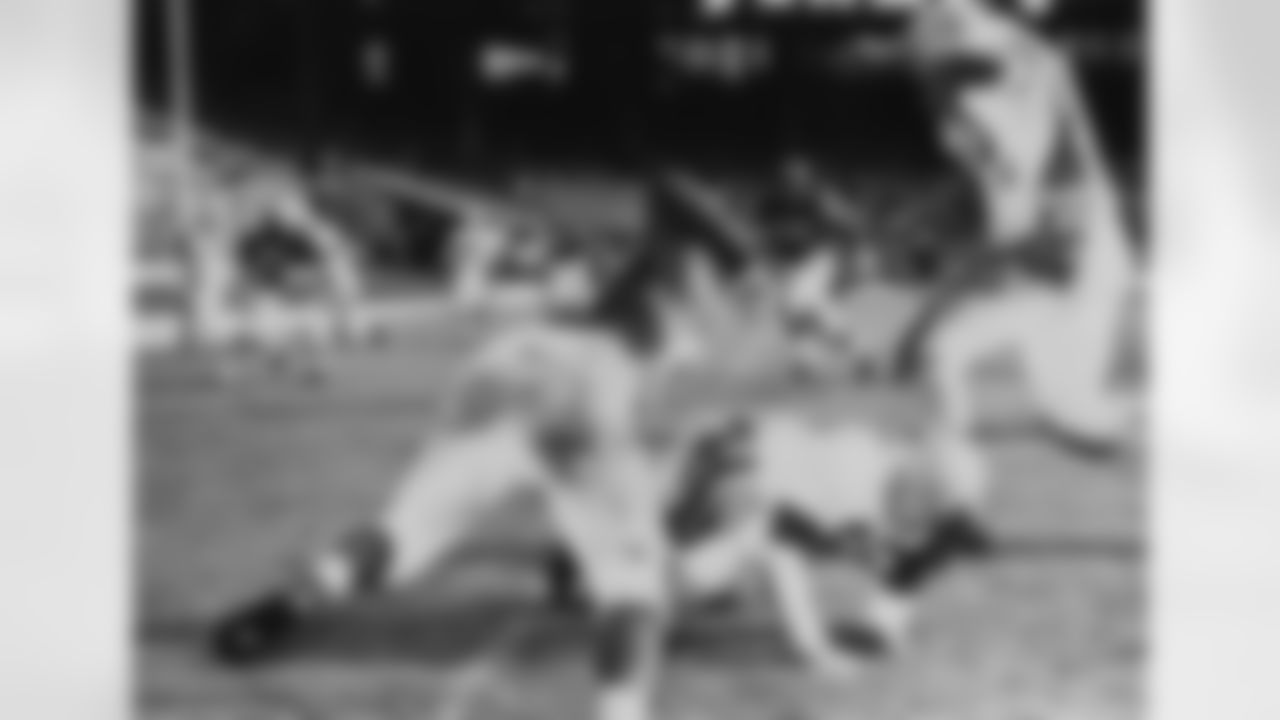
Cleveland Browns guard Chuck Noll (65) throws a rolling block to take down New York Giants defensive end Joe Sulaitis (21) during an NFL game in Cleveland, Dec. 6, 1953. (AP Photo/Pro Football Hall of Fame)
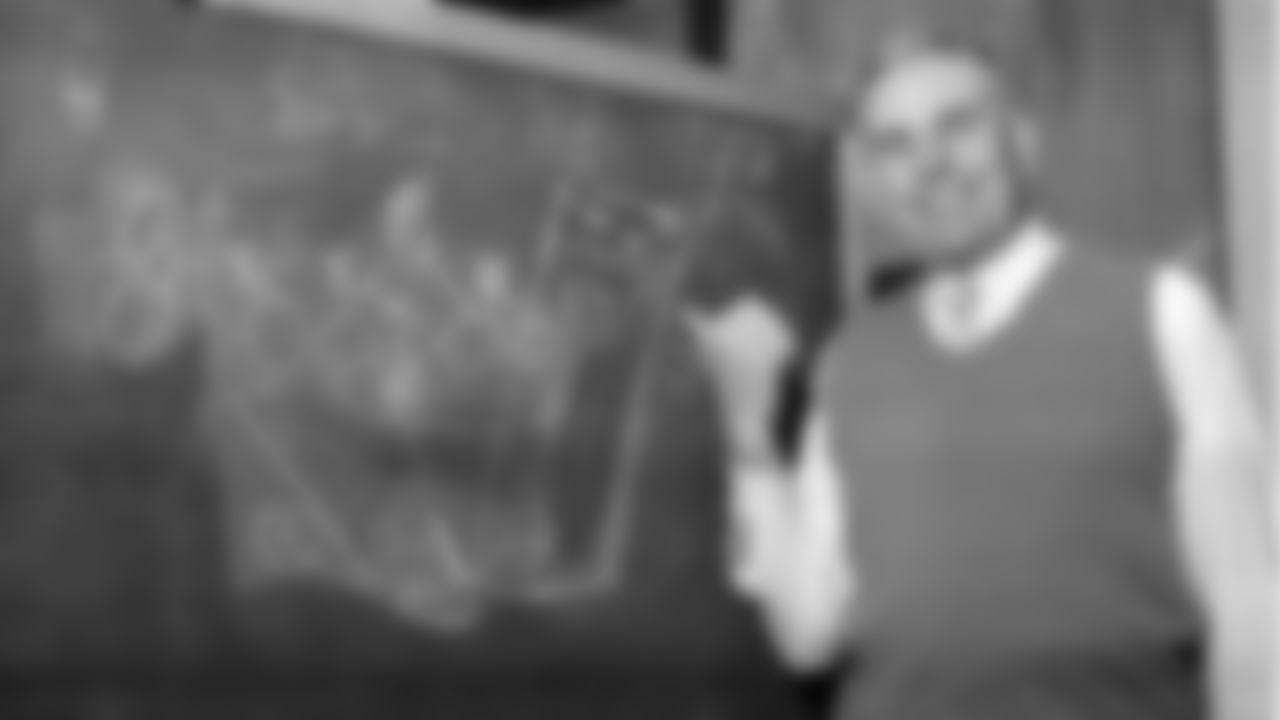
Jim Lee Howell, head coach of the New York Giants points to a blackboard showing a diagram of touchdown play in Dec. 21, 1958 victory over Cleveland Browns for the Eastern Division title of the National Football League at New York's Yankee Stadium. Play started with quarterback Charley Conerly, 42. handing off to halfback Alex Webster, who gave it to halfback Frank Gifford to complete a double handoff. Gifford bucked seven yards to 12-yard line, and lateralled to Conerly who scored. (AP Photo)
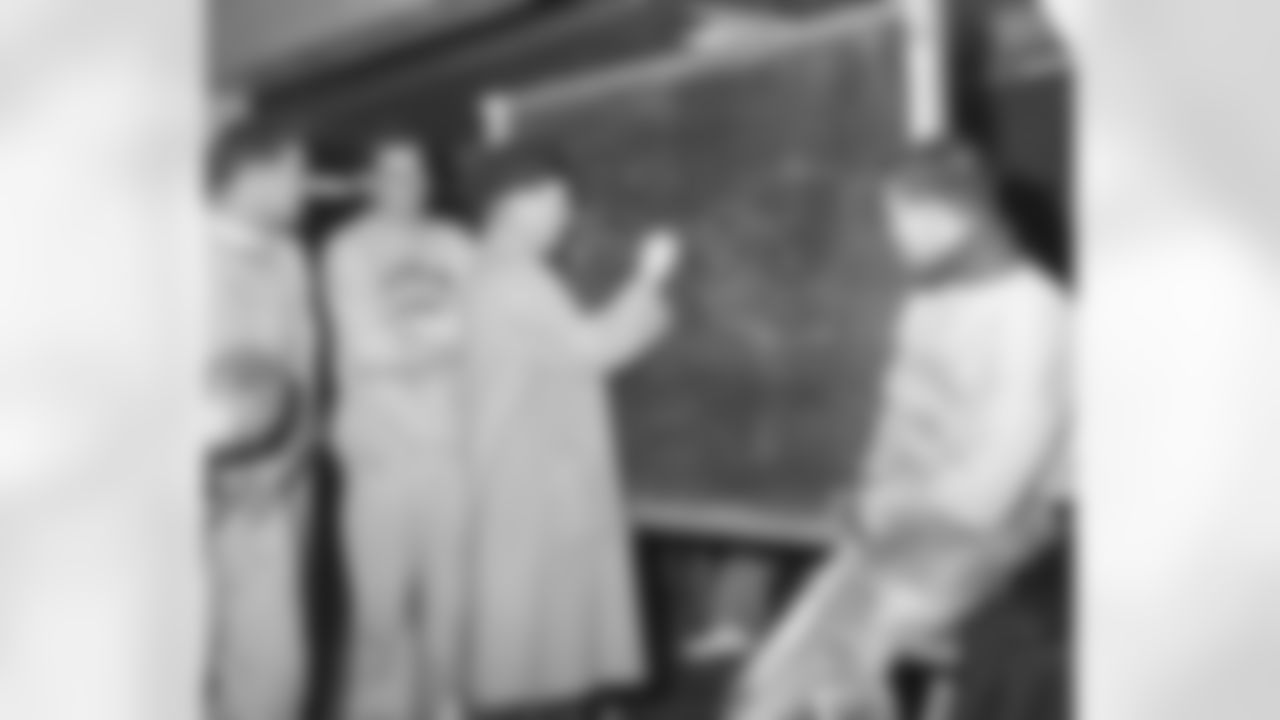
The Cleveland Browns will play against the New York Giants for division victory on Dec. 21, 1958. Browns coach Paul Brown (in the suit) briefs some of his players at Yankee Stadium, New York City, on Dec. 20. They are, from left to right, guard Gene Hickerson; tackle Derrell Brewster, and halfback Ray Renfro. (AP Photo/John Rooney)
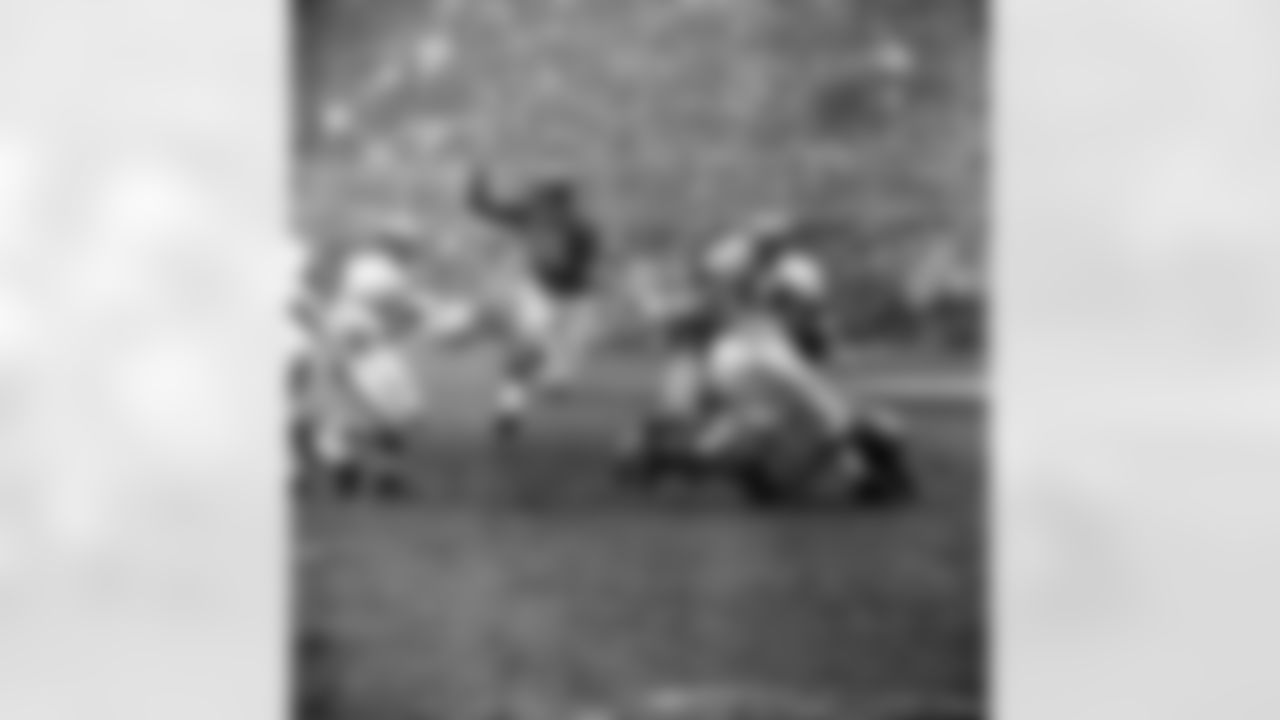
New York Giants' half back Frank Gifford heads for a touchdown in second quarter of Giants-Browns game, Dec. 6, 1959. (AP Photo)
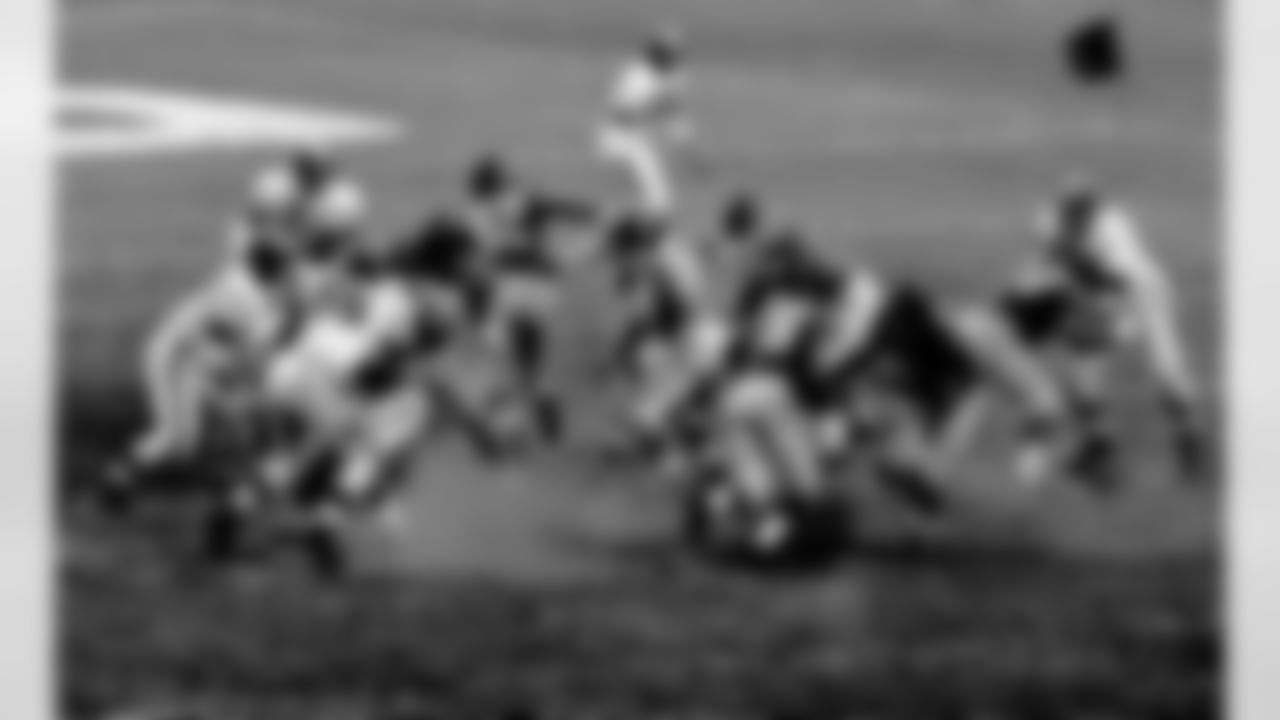
New York Giants pull a double hand-off and lateral against the Cleveland Browns for the only touchdown of National Football League Eastern Division playoff game at New York's Yankee Stadium on Dec. 21, 1958. As play starts on Browns 19-yard line, quarterback Charley Conerly (42) hands off the ball to Alex Webster (29), who hands off the ball to Frank Gifford (16). With a block by Al Barry (68), Gifford breaks away to a 12-yard line where he laterals the ball to Conerly. Conerly is chased by Browns' Bob Gain (79), Browns' Junior Wren (42), but falls across goal line, Giants won 10-0. (AP Photo/Harry Harris)
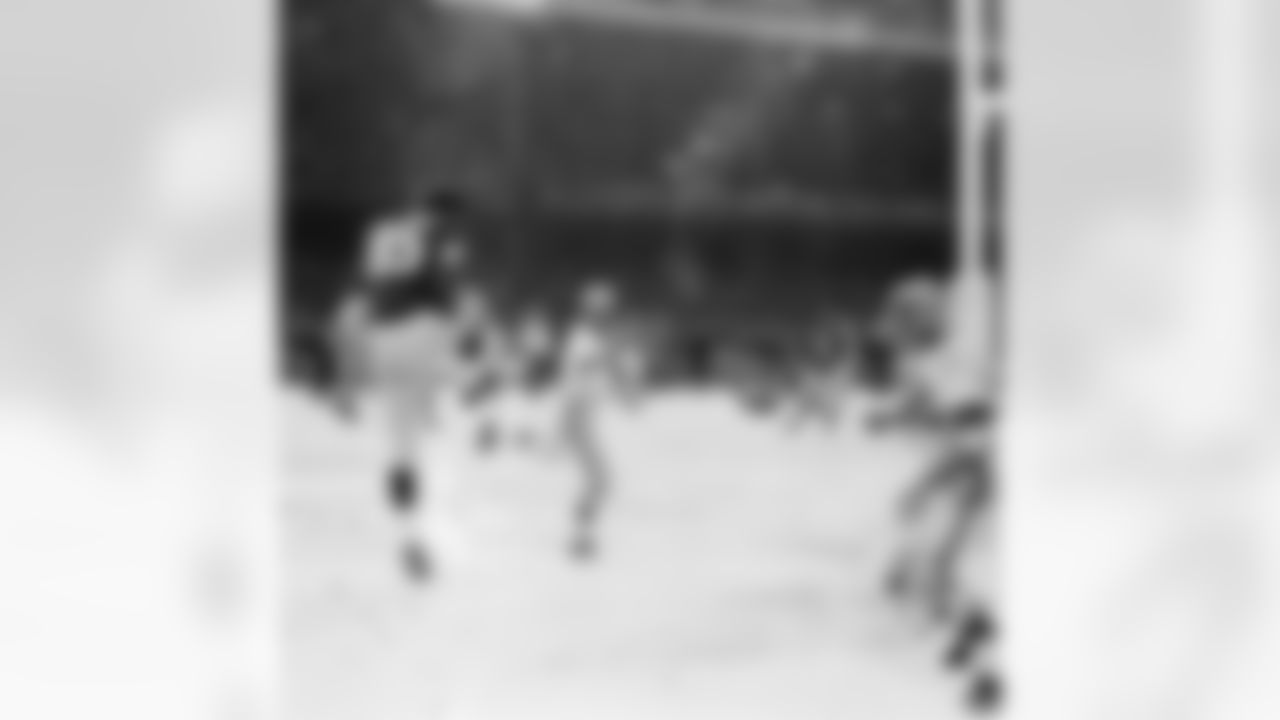
New York Giants' left end Bob Schnelker (85) catches Frank Gifford's 7-yard touchdown pass to tie up game with Cleveland Browns at 10-all in final period at New York's Yankee Stadium, Dec. 14, 1958. Cleveland defenders are Ken Konz (center) and Junior Wren (right). Giants' Tackle Frank Youso (72) is in background. Giants kicked a field goal in final two minutes to win game 13-10, and force a playoff by New York and Cleveland for NFL's Eastern Division championship December 21. (AP Photo)
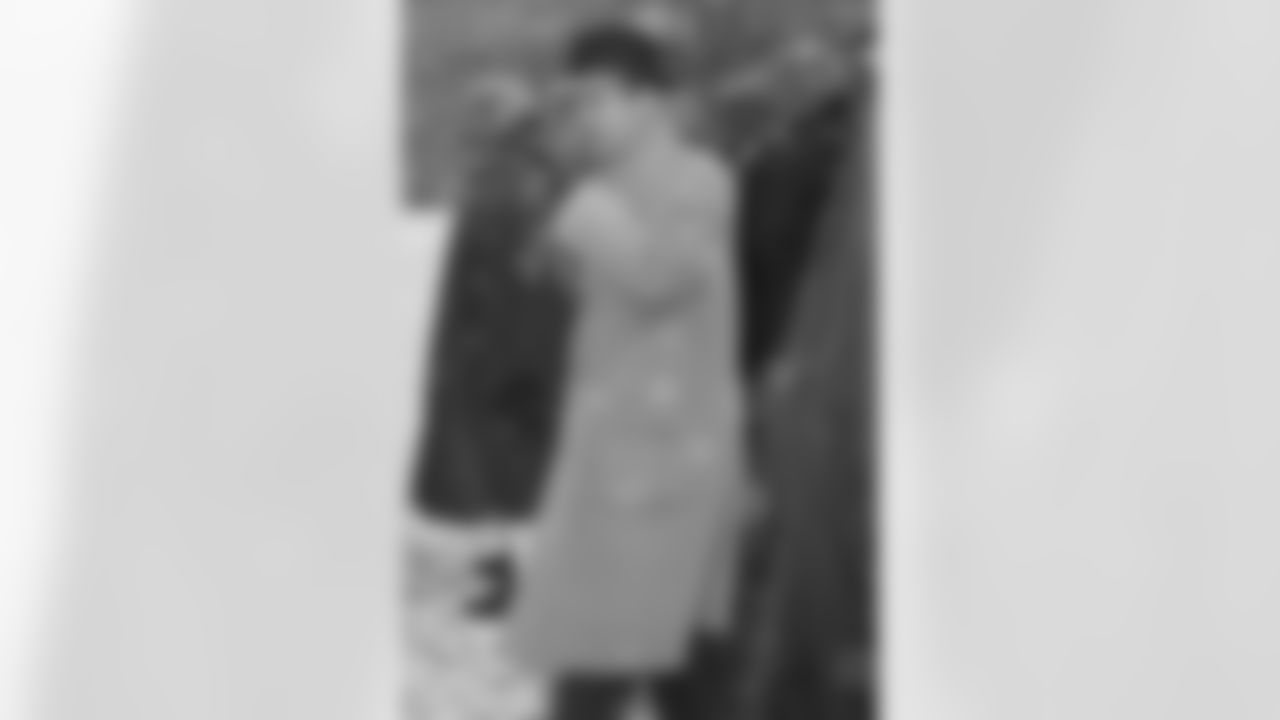
Cleveland Browns' coach Paul Brown is pictured during a game against the New York Giants' at Yankee Stadium in New York on Dec. 14, 1958. The Giants won the game, 13-10, to move into first place tie in the Eastern Division of the National Football League with the Browns. (AP Photo)
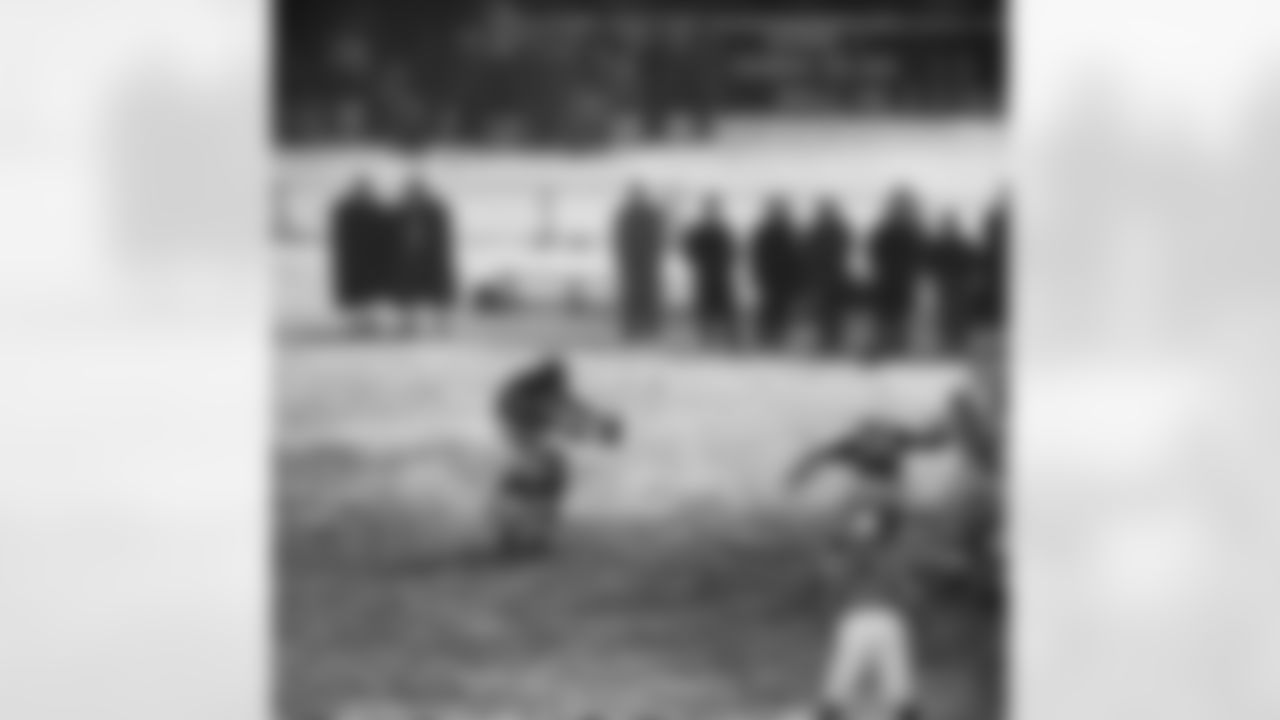
Pat Summerall of the New York Football Giants boots from the 49-yard line, as quarterback Charley Conerly (42) holds, in a play good for three points-- margin of victory over Cleveland Browns at Yankee Stadium, New York, Dec. 14. The play, in the final two minutes of the game, followed another field goal attempt from the 33-yard line by Summerall. At right, in play watched by head linesman Charles Berry (31), Giants' Bill Svoboda (30) blocks Browns' Galen Fiss (35). (AP Photo)
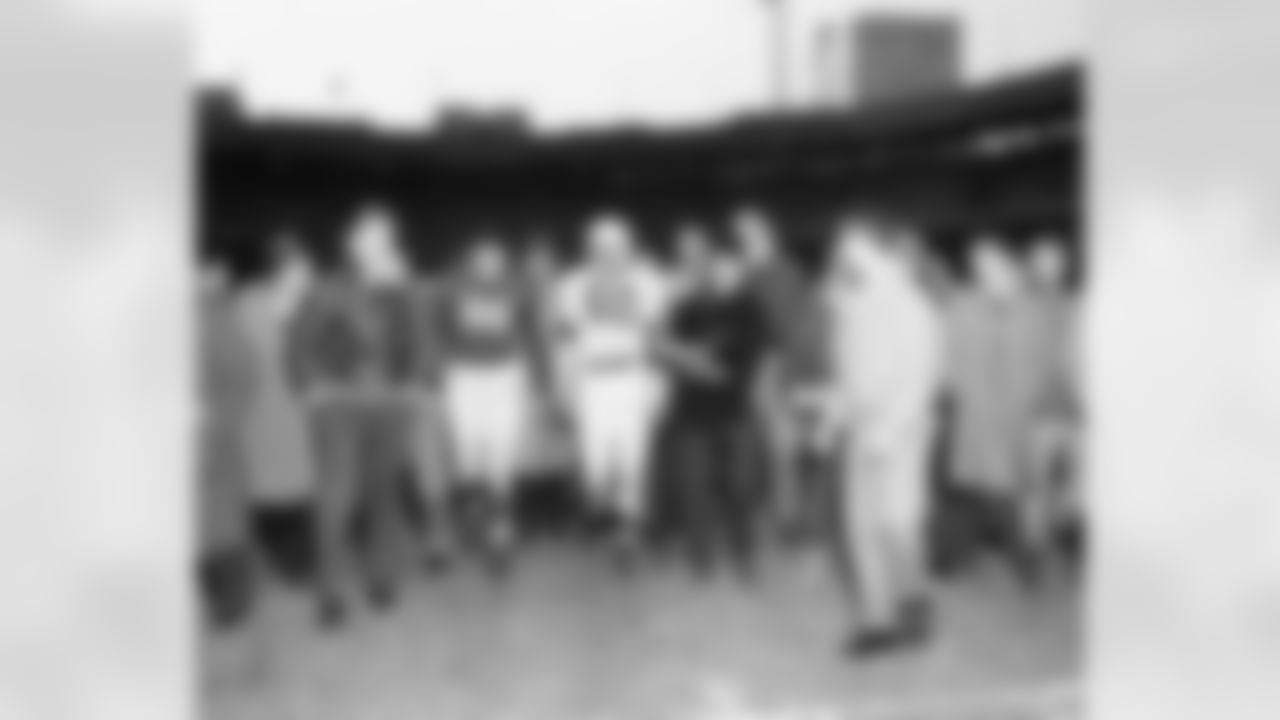
Otto Graham, Cleveland Browns' quarterback, grins as he leaves the field with James Duncan of the New York Giants (88), Nov. 18, 1951, at the end of the Giants-Cleveland game in New York. (AP Photo/Harry Harris)
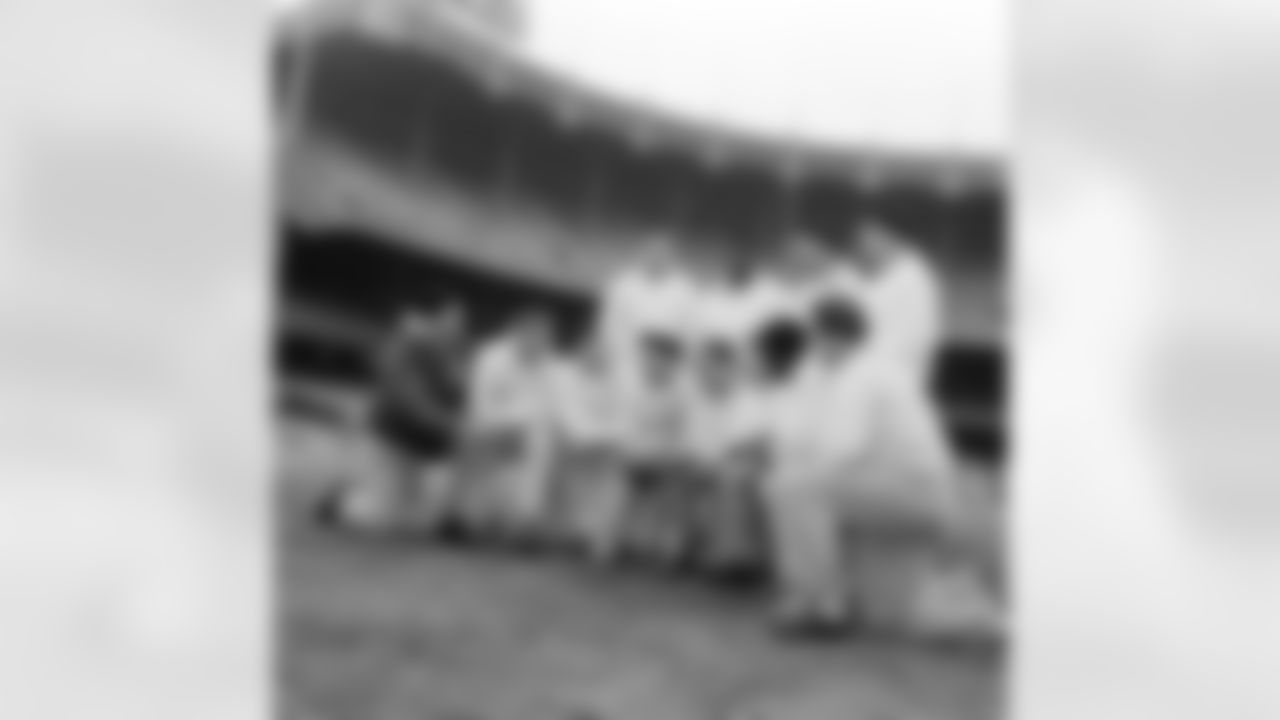
Head Coach Jim Lee Howell, left, poses with his probable offensive team at New York Giants practice session at Yankee Stadium in New York Dec. 17, 1958. Giants and Cleveland Browns meet Dec. 21 in Yankee stadium in playoff for eastern division title of national football league. Giants beat Browns last week to gain first place tie. In front left: end Bob Schnelker; tackle Frank Youso; guard Bob Mischak; center Ray Wietecha; guard Al Barry; tackle Roosevelt Brown and end Kyle Rote. Backfield from left: halfback Phil King; fullback Mel Triplett; quarterback Charley Conerly and halfback Frank Gifford. (AP Photo)
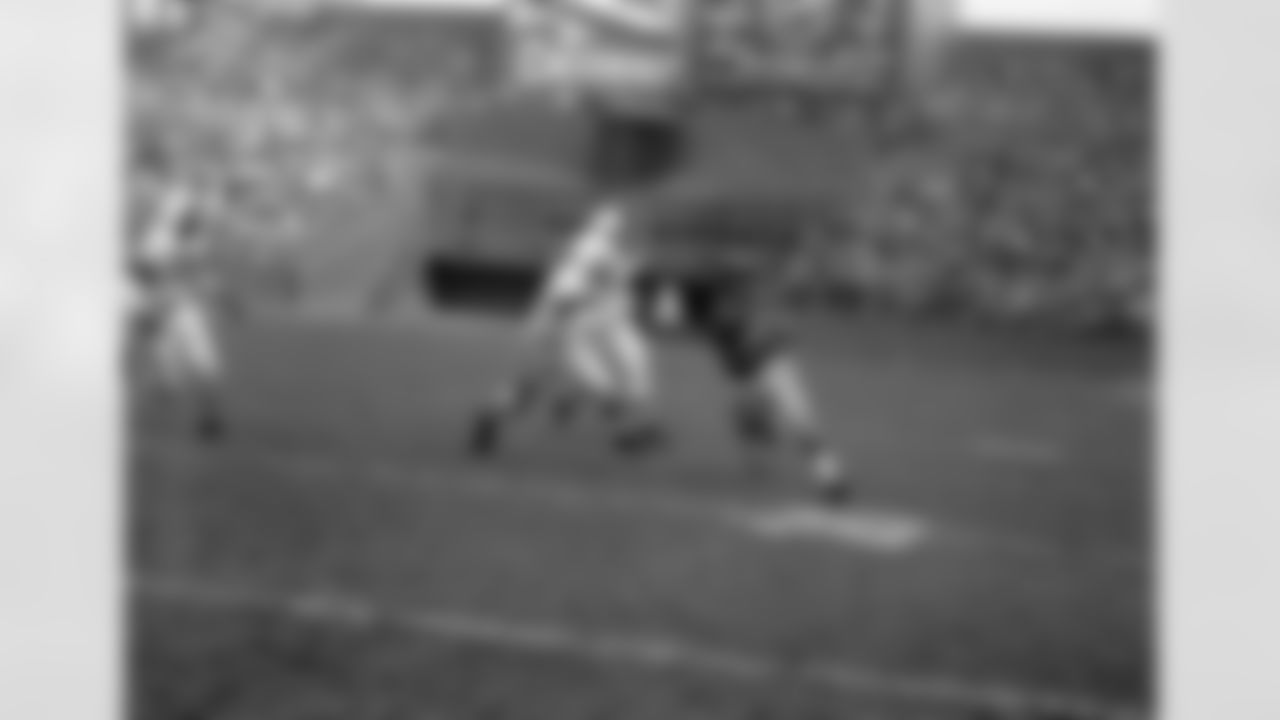
Giant halfback Emlen Tunnell (45) eyes two prospective tacklers while making short gain in the second quarter of a game with the Cleveland Browns at the Polo Grounds in New York on Oct. 22, 1950. Ken Gorgal (left), a back, and Jim Martin, an end, move in for the tackle during the Giants 17 to 13 upset over the Browns. (AP Photo)

Tom Landry, above, New York Giants' Pro football coach, has good reason for that smile at Nov. 6, 1958 workout in New York. Landry is responsible for the team's defense, which proved so effective in the Giants' upset win over the Cleveland Browns Nov. 2. The Giants meet Baltimore Nov. 9. (AP Photo/John Lindsay)
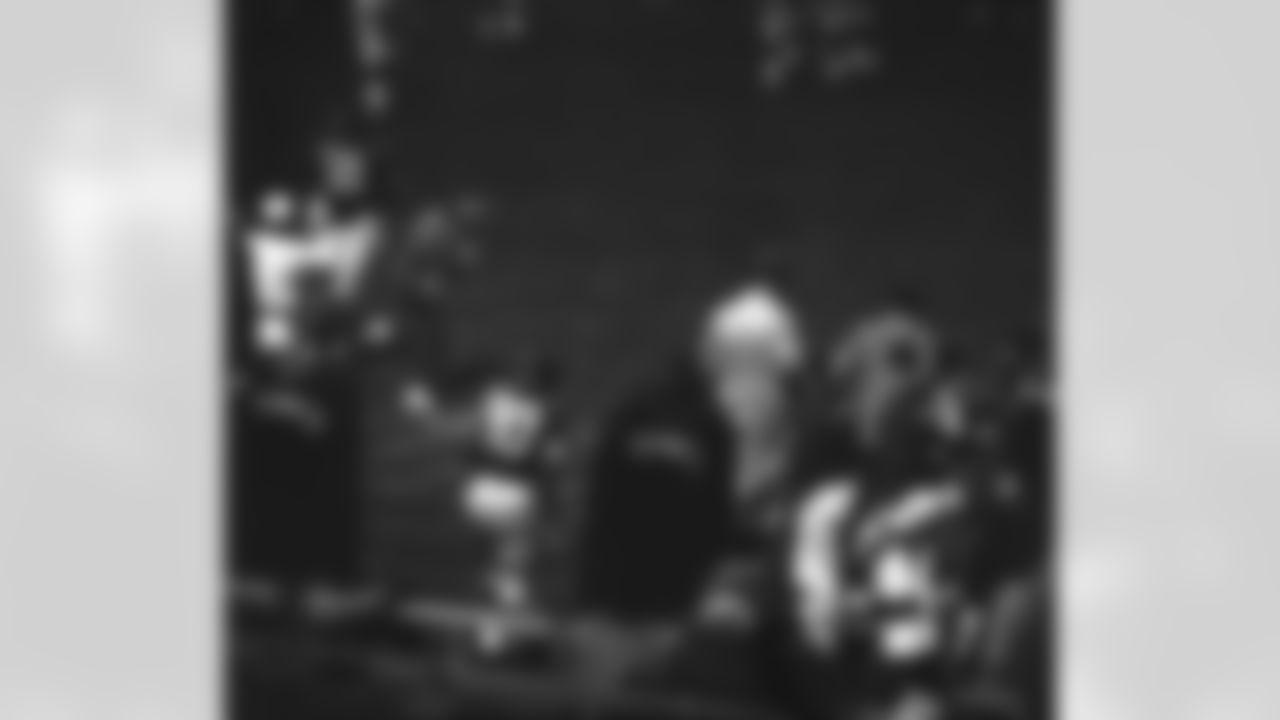
A boy runs past the bench of the New York Giants with ball he picked up after Don Chandler tried a field goal against the Cleveland Browns at Yankee Stadium in New York City, Dec. 6, 1959. (AP Photo)
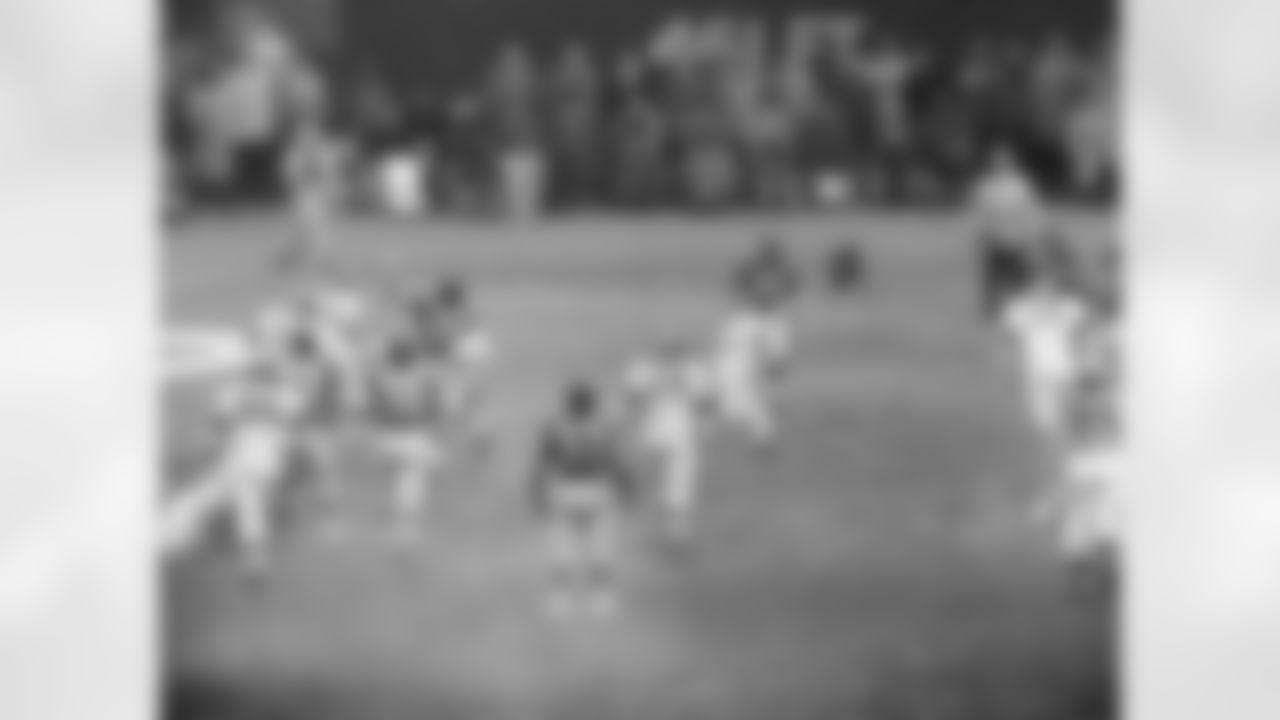
New York Giants quarterback Charley Conerly (42), upper right, grabs ball pitched laterally by halfback Frank Gifford (16) at 12-yard line and races for touchdown against Cleveland Browns at New York's Yankee Stadium, Dec. 21, 1958. After double reverse, started by a Conerly handoff, Gifford moved to the 12 before pitching out. Other players are: Giants' center Ray Wietecha (55), fullback Mel Triplett (33) and end Bob Schnelker (85); Browns' Willie McClund (78) and Bob Gain (79), both tackles. Extra point and a field goal gave Giants 10-0 win for Eastern Division title of NFL. (AP Photo/Harry Harris)
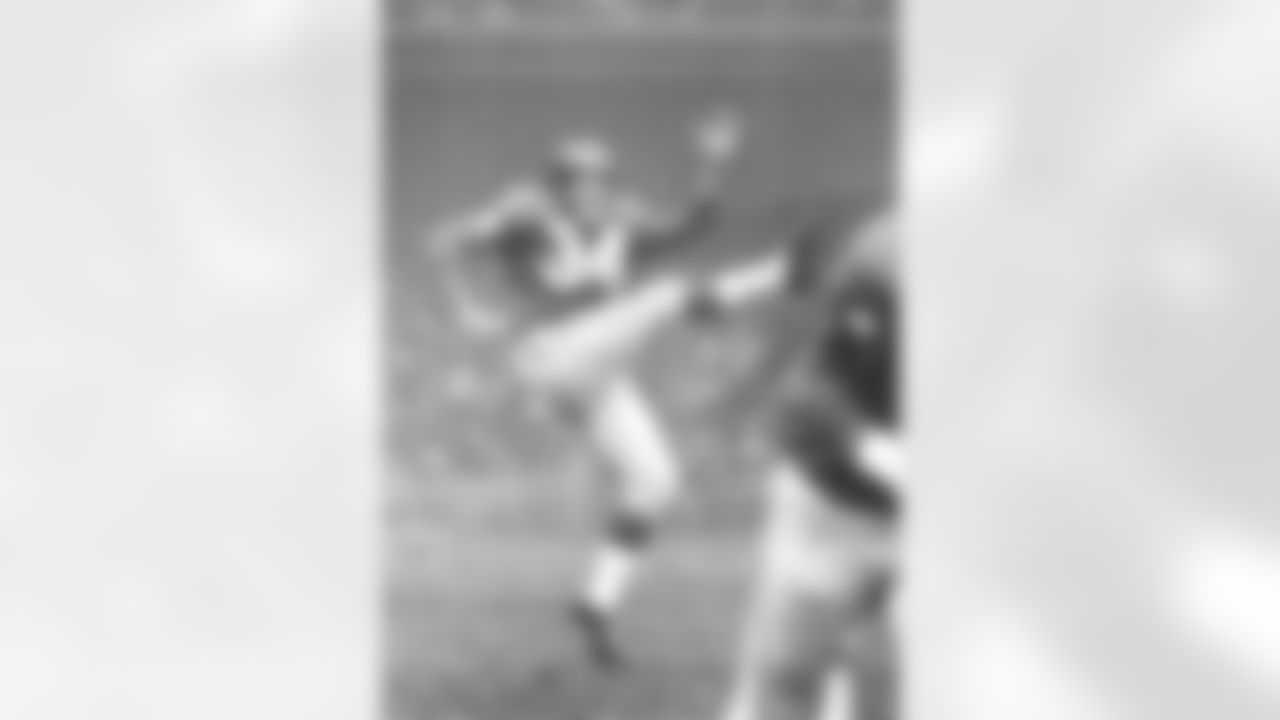
In this Dec. 6, 1959, file photo, New York Giants' Don Chandler (34) kicks a punt during the second quarter of a football game against the Cleveland Browns in New York. (AP Photo)
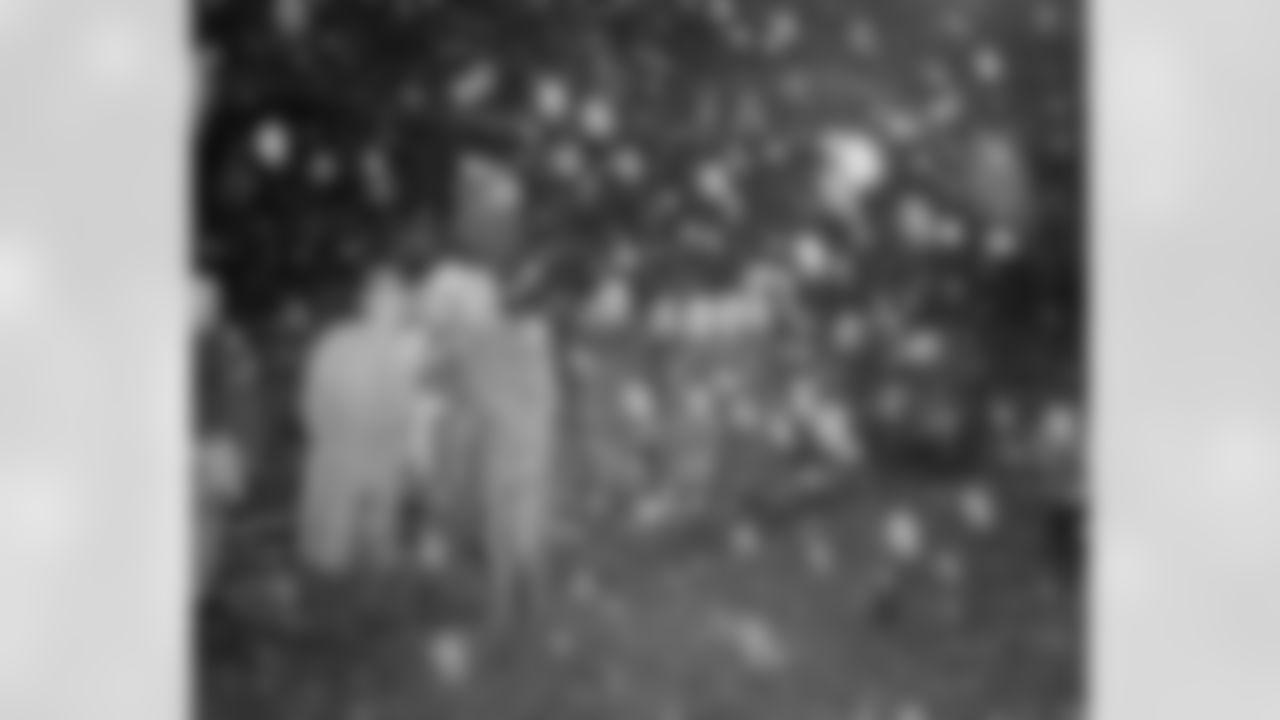
Cleveland Browns coach Paul Brown, left, talks with a player on the sidelines in rainy and muddy conditions at Yankee Stadium, New York City, on Dec. 10, 1956. (AP Photo)
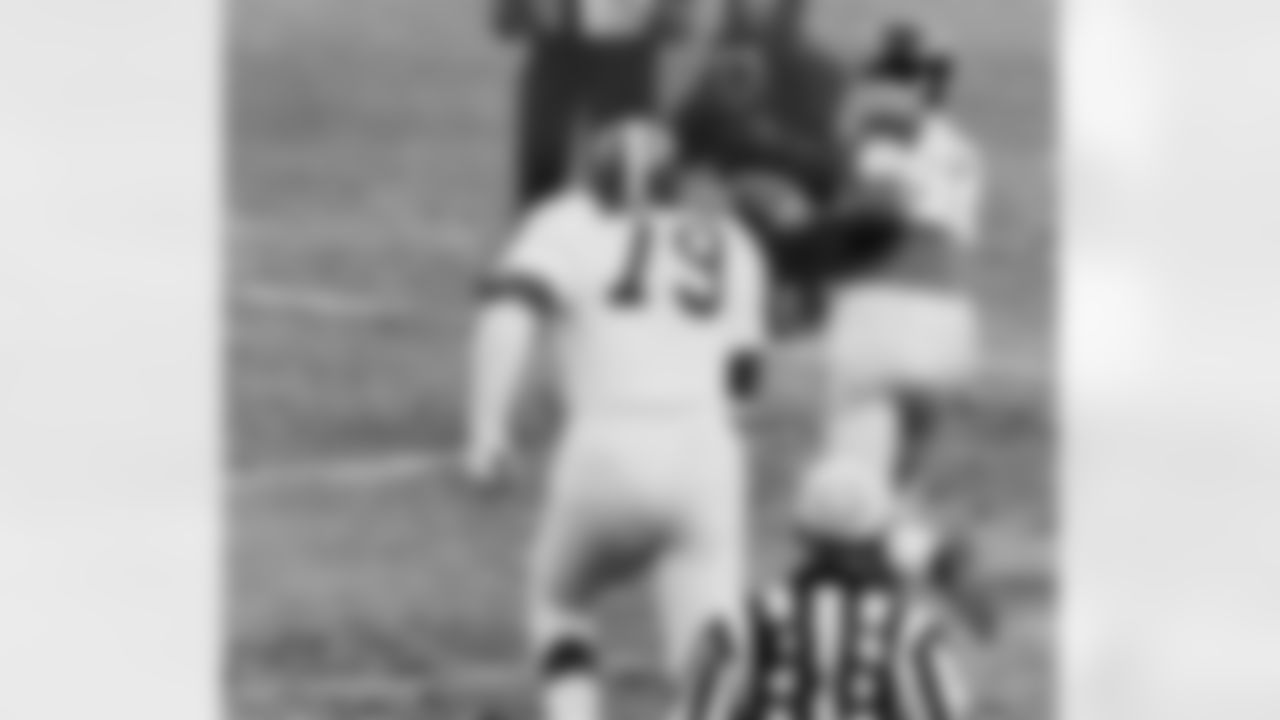
New York Giants quarterback Charley Conerly (42) is chased by Cleveland Browns Bob Gain (79) as part of a double hand-off and lateral play resulting in the only touchdown of the NFC Eastern Division playoff game at Yankee Stadium, Dec. 21, 1958.(AP Photo/Harry Harris)

Y.A. Tittle, New York Giants' quarterback, elected to pass in the first quarter of the game against the Cleveland Browns in Cleveland, Oct. 27, 1963, and picked up 20 yards in the process. End Bill Glass (80) and Jim Houston (82) of the Browns were ineffective. (AP Photo)
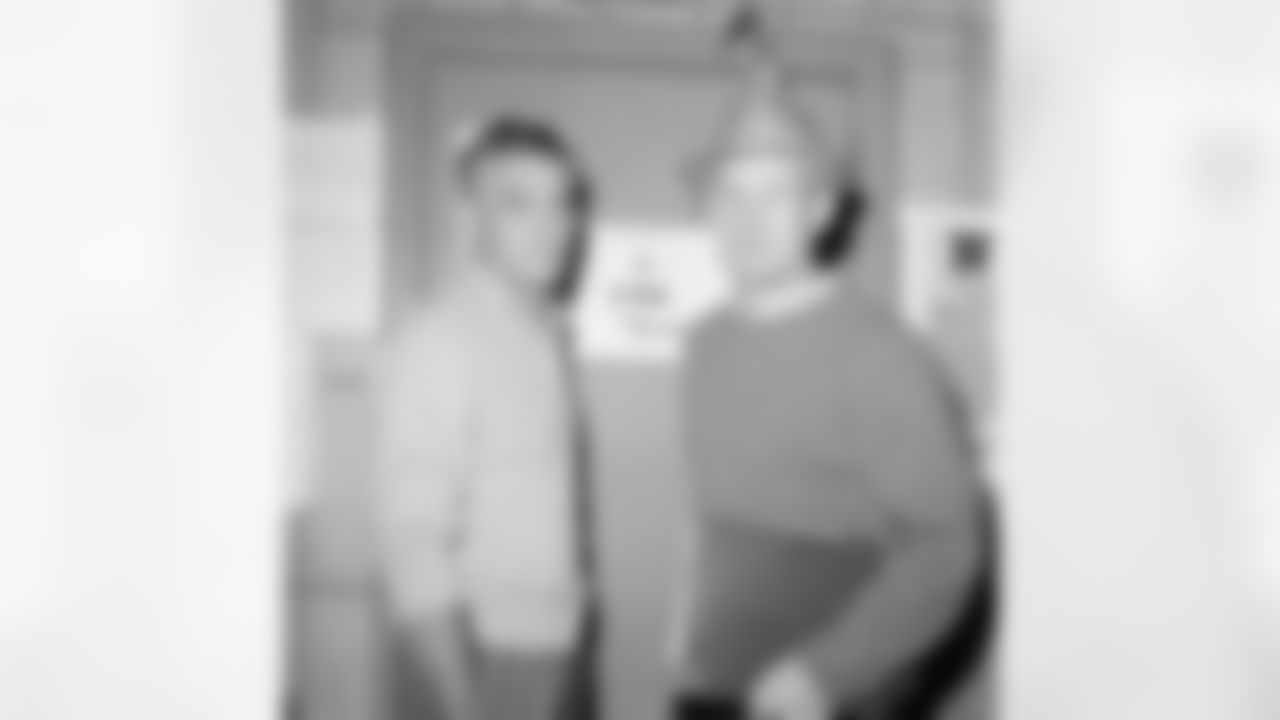
New York Giant quarterbacks Charley Conerly, left, and Y.A. Tittle, stand near the sign on the locker room door after their workout in New York's Yankee Stadium, Nov. 22, 1961. The Giants are preparing for the game with the Cleveland Browns at Cleveland on Nov. 26. (AP Photo/Jacob Harris)
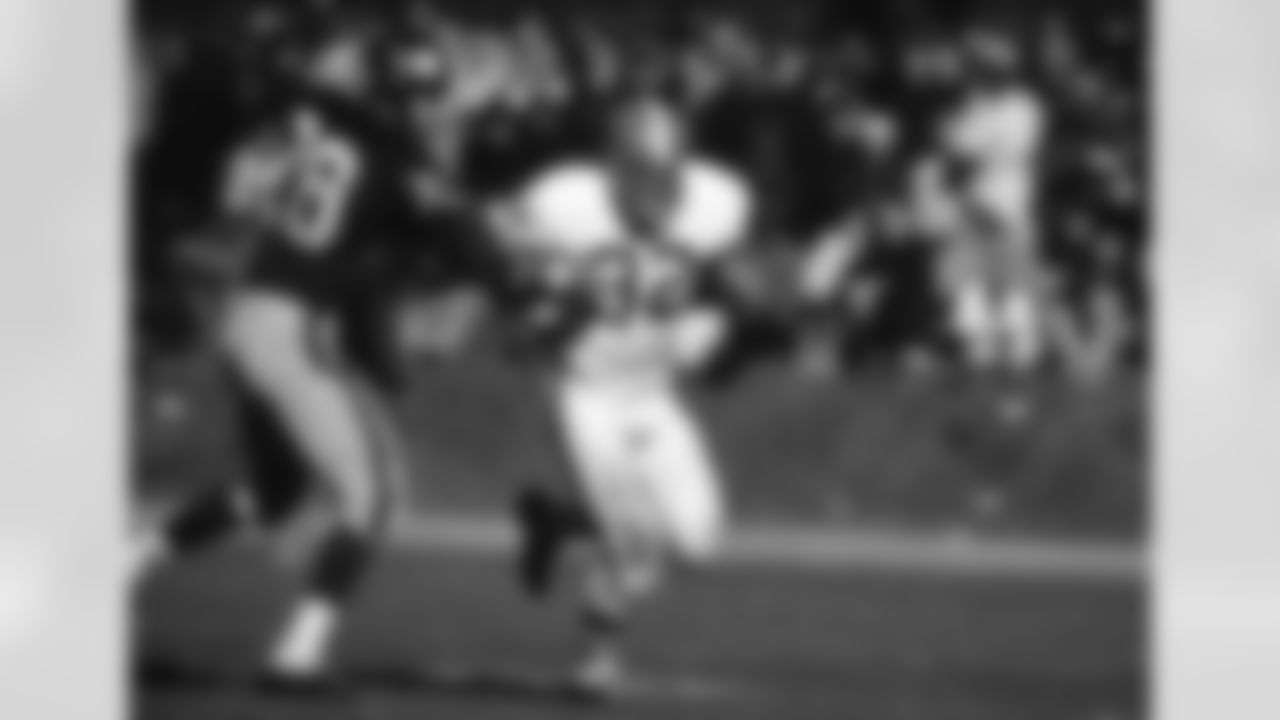
Cleveland Browns fullback Jim Brown (32) runs the ball against the New York Giants during an NFL game circa 1965. (Tony Tomsic via AP)

Aireal view of New York's Yankee Stadium where the New York Giants battled the Cleveland Browns, Oct. 29, 1967. Yankee Stadium attracted 62,903 spectators. (AP Photo)
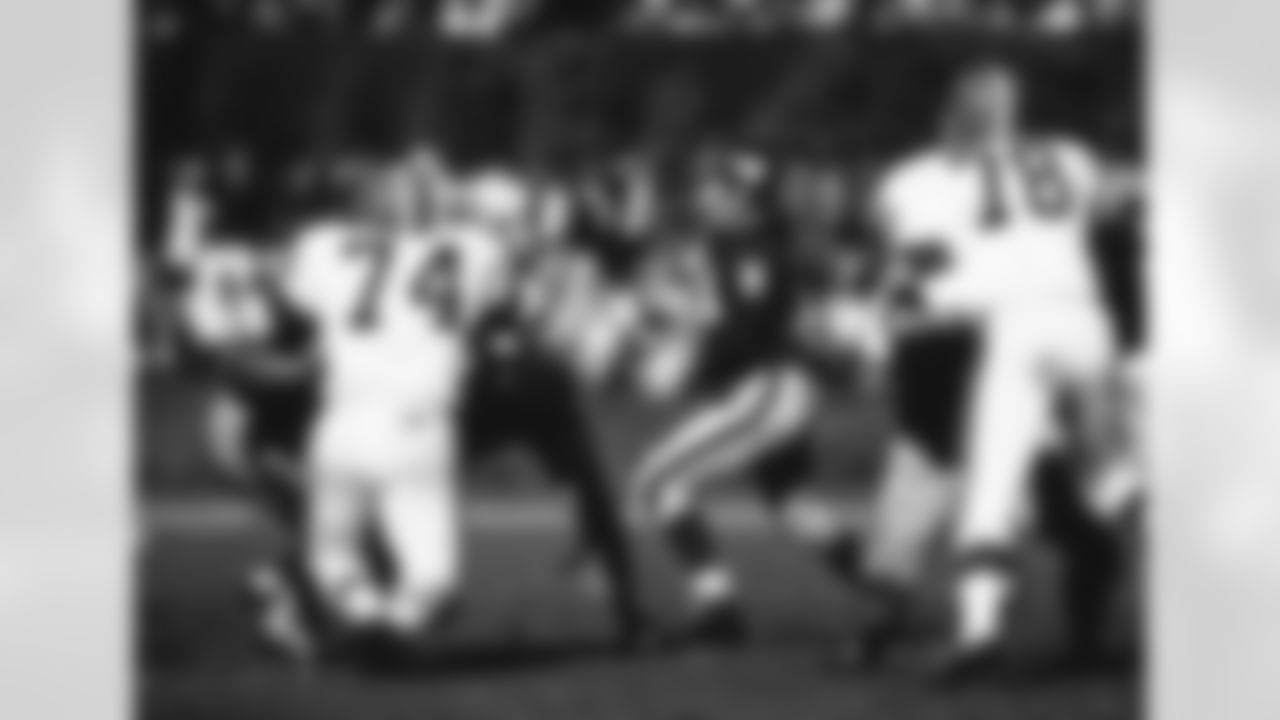
Cleveland Browns defensive tackle Dick Modzelewski (74) takes on two blockers to pressure New York Giants quarterback Y.A. Tittle (14) during an NFL game, Dec. 4, 1964 in Yankees Stadium. (Tony Tomsic via AP)
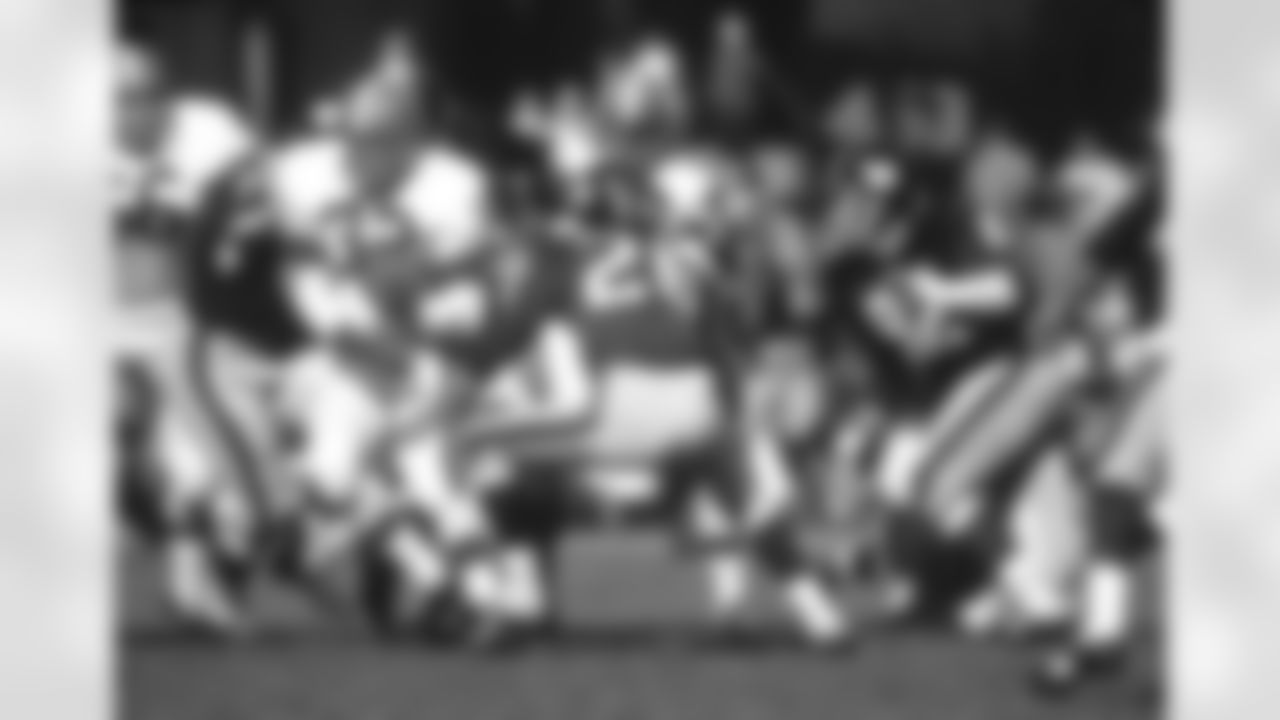
Cleveland Browns fullback Jim Brown (32) tries to avoid tackle a tackle attempt during an NFL game against the New York Giants in this undated photo. (Tony Tomsic via AP)

Aireal view of New York's Yankee Stadium where the New York Giants battled the Cleveland Browns, Oct. 29, 1967. Yankee Stadium attracted 62,903 spectators. (AP Photo)
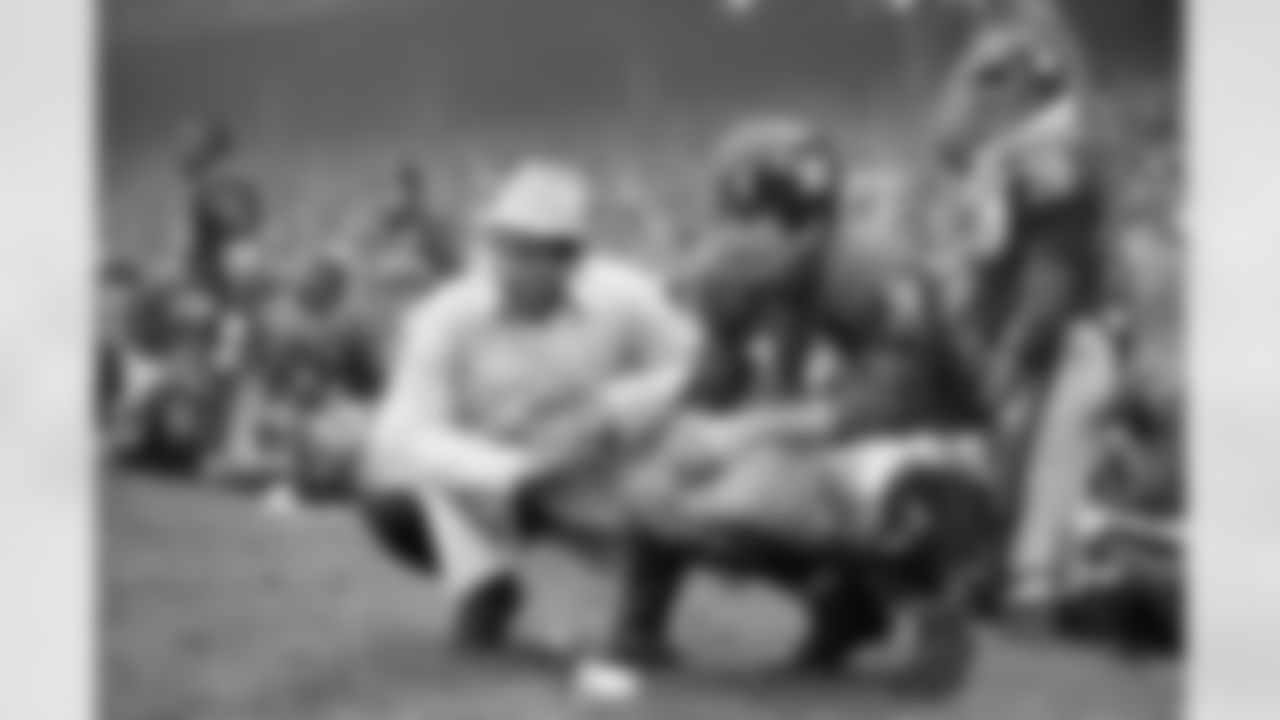
Y.A. Tittle (14) New York Giants? quarterback is shown on the sidelines in the final minutes of game with the Cleveland Browns at Yankee Stadium on Dec. 12, 1964 in New York City. This was the final game of the 1964 season for the Giants and may be Tittle?s last as a player. (AP Photo)
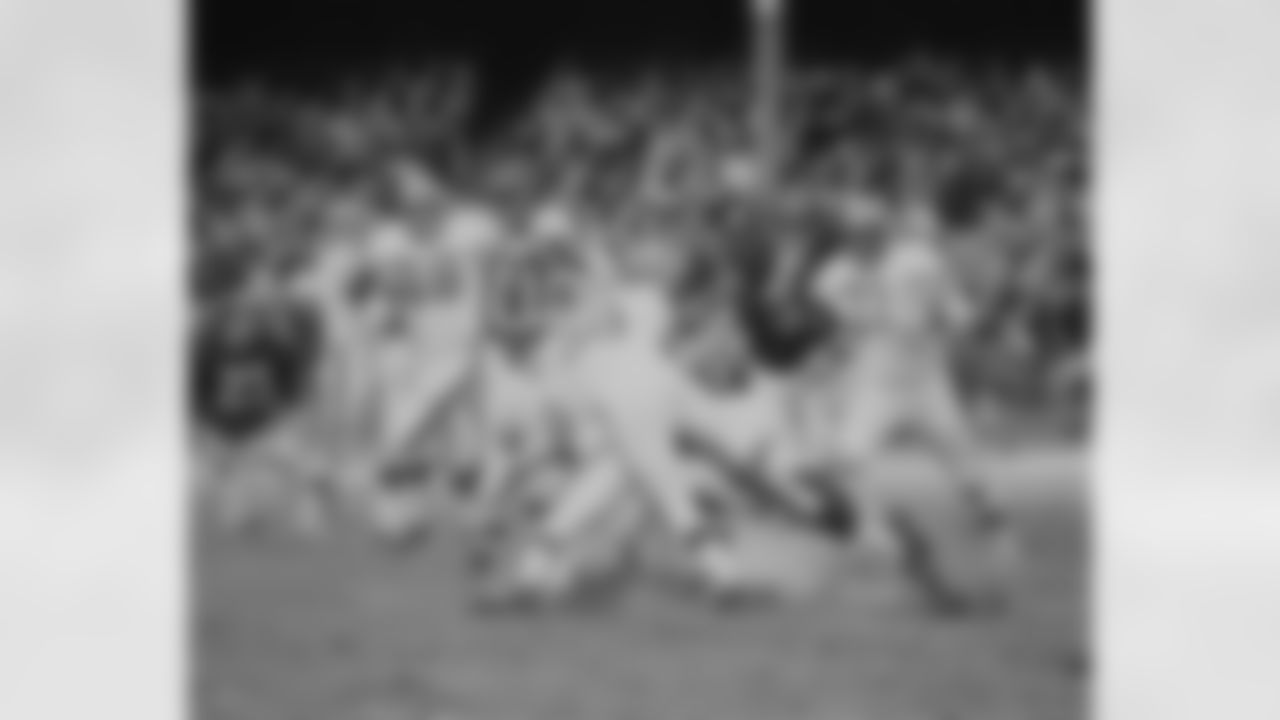
Cleveland Browns Walter Johnson (71) and Cleveland Browns Rich Kreitling (88) during a game against the New York Giants on Decemeber 21,1969 at Yankee Stadium in the Bronx, . The New York Giants beat the Cleveland Browns. Walter Johnson played for 13 seasons with 2 different teams and was a 2-time Pro Bowler. Rich Kreitling played for 6 season with 2 different teams.(David Durochik via AP)
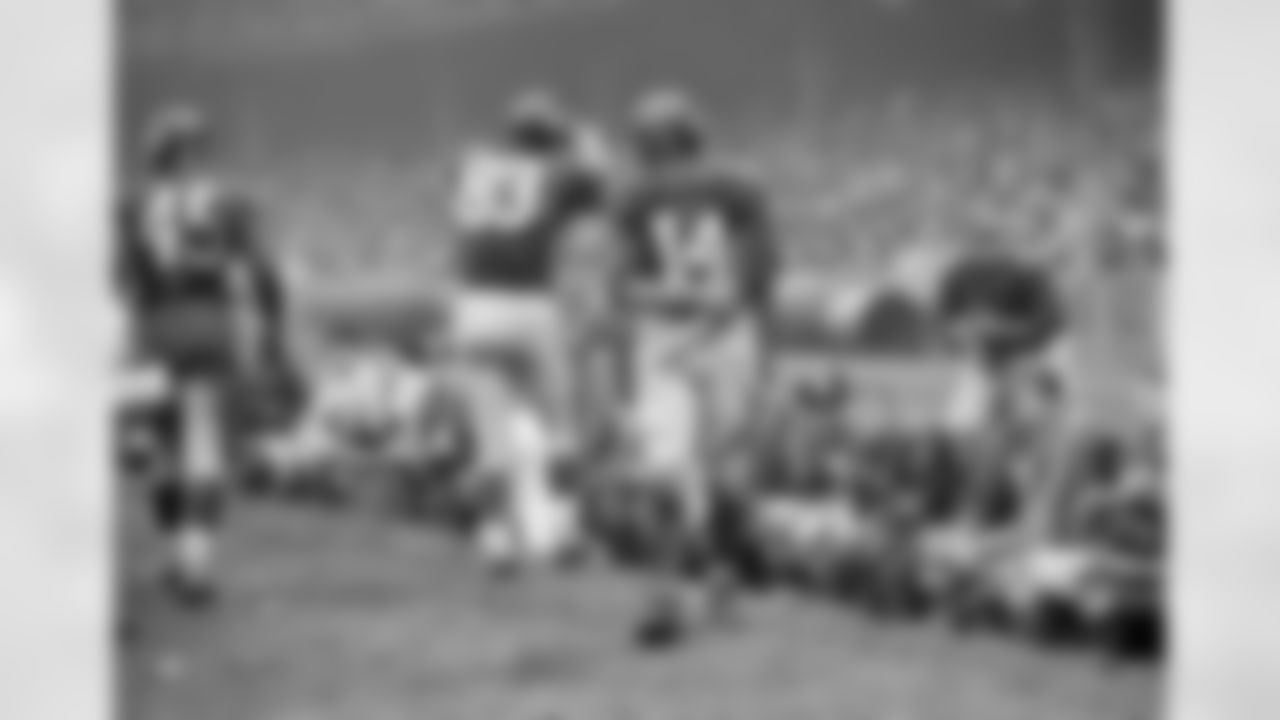
Y.A. Tittle (14) New York Giants? quarterback is shown on the sidelines in the final minutes of game with the Cleveland Browns at Yankee Stadium on Dec. 12, 1964 in New York City. This was the final game of the 1964 season for the Giants and may be Tittle?s last as a player. (AP Photo)
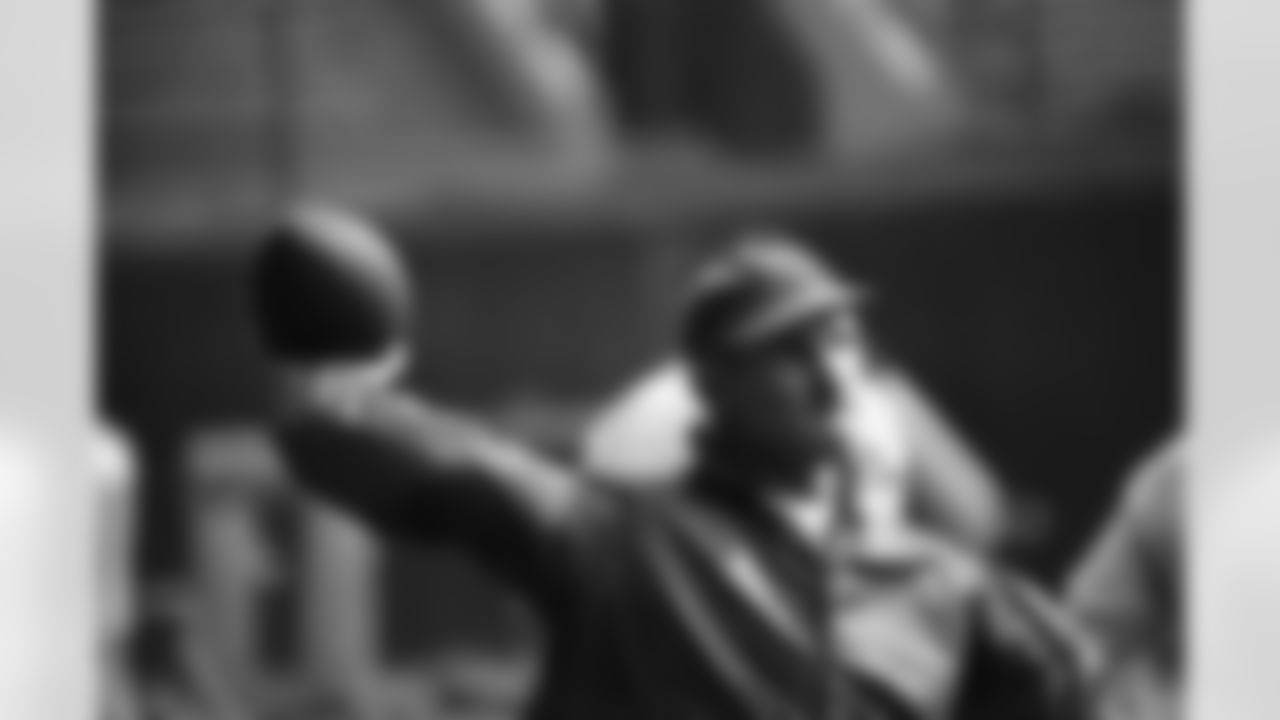
Quarterback, Y.A. Tittle of the New York giants tosses a practice pass in New York?s Yankee stadium on Oct. 23, 1963 as the giants prepare for upcoming contest with the undefeated Cleveland Browns. Tittle and mates will be seeking revenge in the October 27 game at Cleveland for beating administered them by the Browns earlier in the season. Tittle still wears bandage above his left eye for cut received in pileup during Dallas game which New York won on strength of four touchdown tosses by the veteran play-caller. (AP Photo/ Eddie Adams)
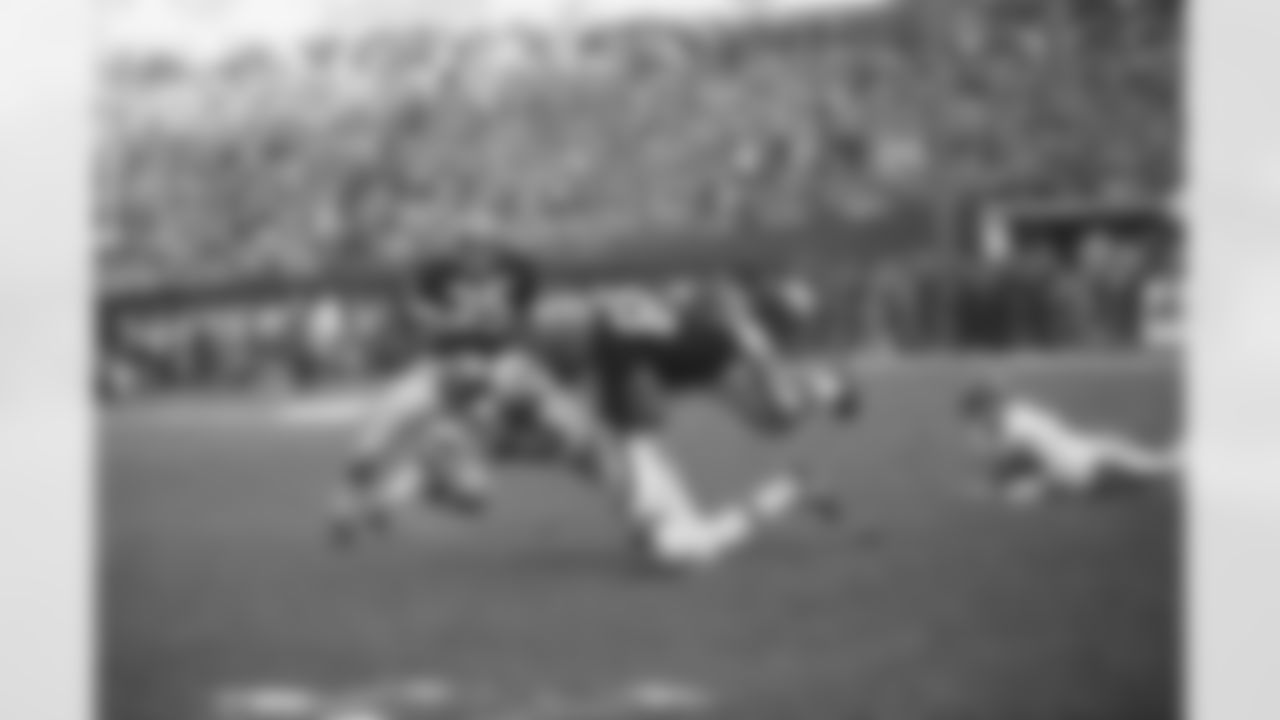
Larry Conjar (35) of the Cleveland Browns carries for a first-down in a fourth quarter rally in a game with the New York Giants at Yankee Stadium, Oct. 29, 1967, New York. Clearing a path for the first-down is Browns Gene Hickerson (66) knocking over Giants Carl Lockhart (43). Conjar received from Browns quarterback Frank Ryan. The Giants stopped the last minute rally and won the game 38-34. (AP Photo)
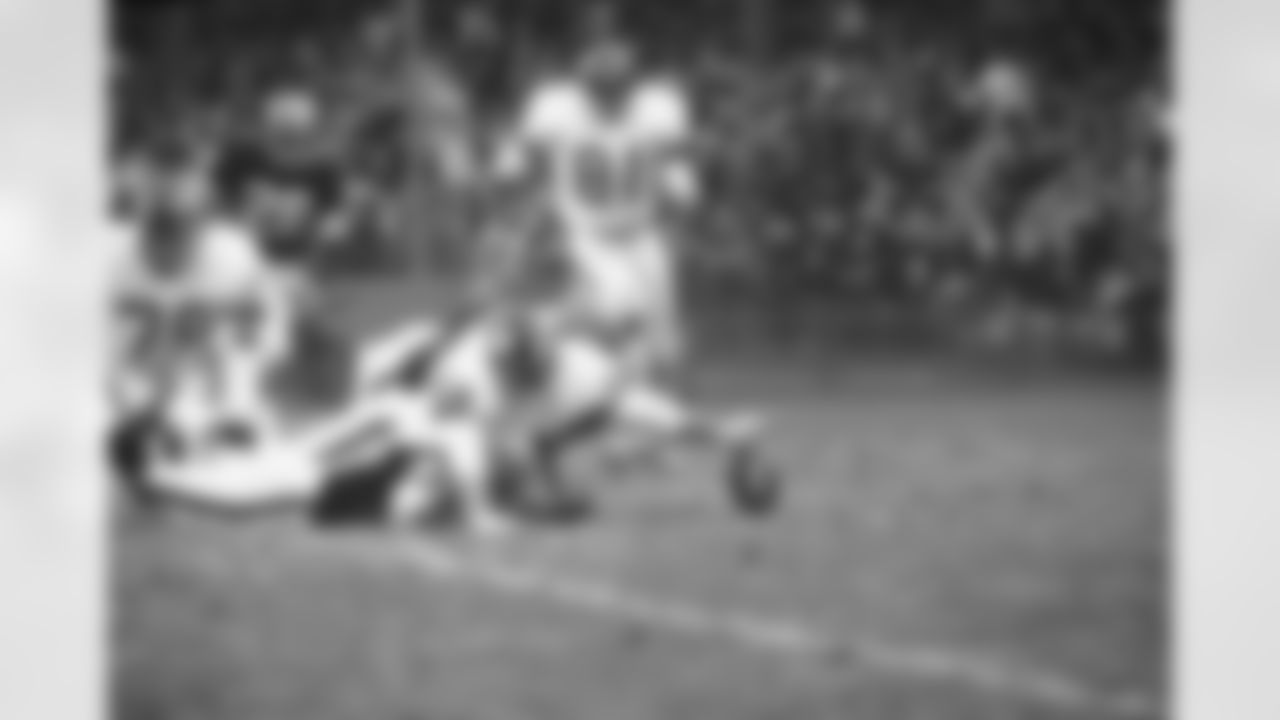
Guard Andy Gross (64) of the New York Giants reaches for an elusive pigskin fumbled by Cleveland Browns Carl Ward (27) during a return of Giants kickoff in the third quarter at Yankee Stadium, Oct. 30, 1967, New York. Gross couldnt come up with the ball that eventually was recovered by Giants Carl Lockhart, not shown. Identifiable players are Giants Bruce Anderson (79), Browns Ben Davis (28), and Freeman White (81) of the Giants. The Giants won the NFL game, 38-34. (AP Photo/John Duricka)
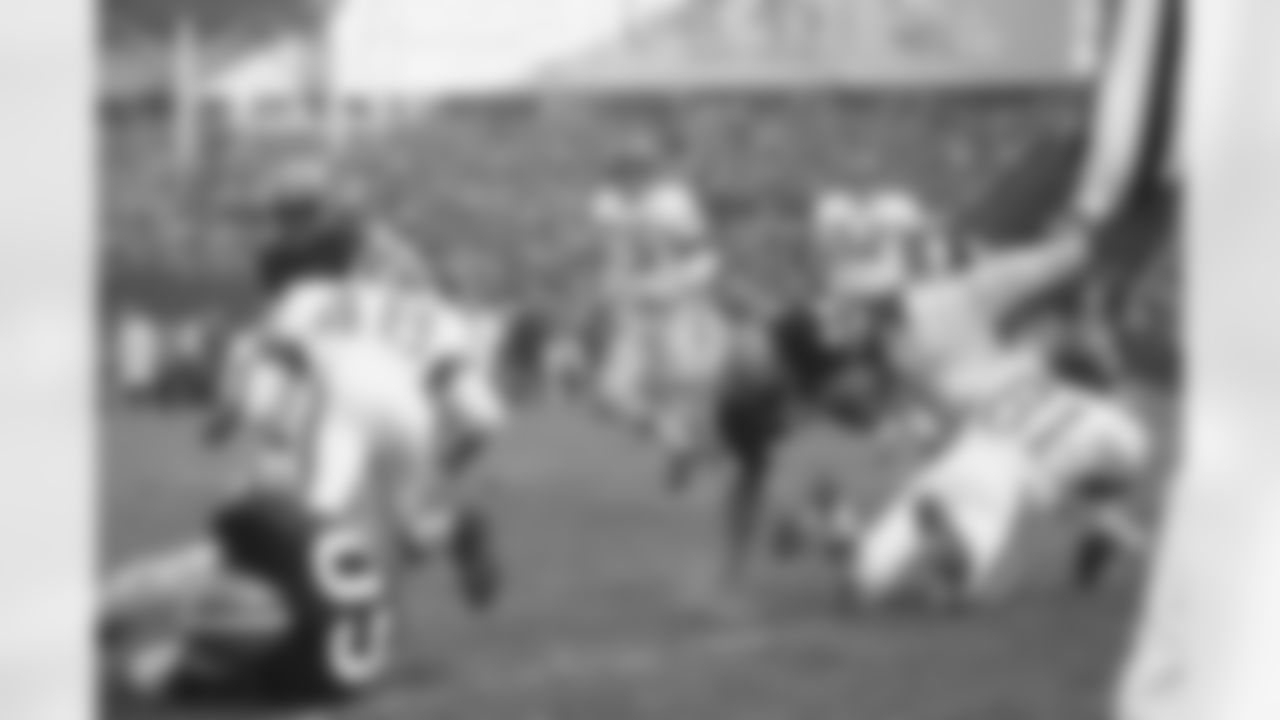
Leroy Kelly (44) Cleveland Browns back, went down in this fashion as he was tackled by defensive back Freeman White (81) of the New York Giants in the second quarter at Yankee Stadium, Oct. 29, 1967, New York. Other identifiable player is Bill Swain (52), Giants Linebacker. Giants won 38-34. (AP Photo)
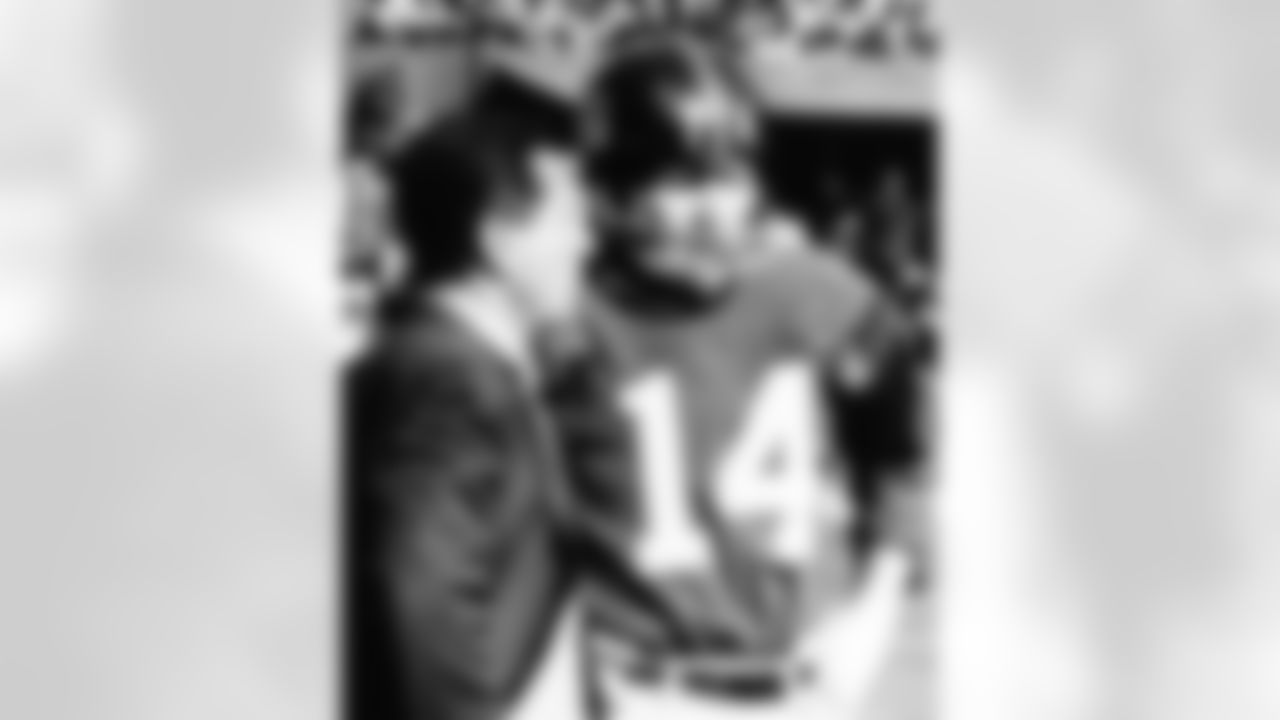
New York Giants coach Allie Sherman talks to his quarterback, Y. A. Tittle, along the sidelines during the third quarter of National Football League game against the Cleveland Browns on Oct. 25, 1964 in Cleveland. (AP Photo)
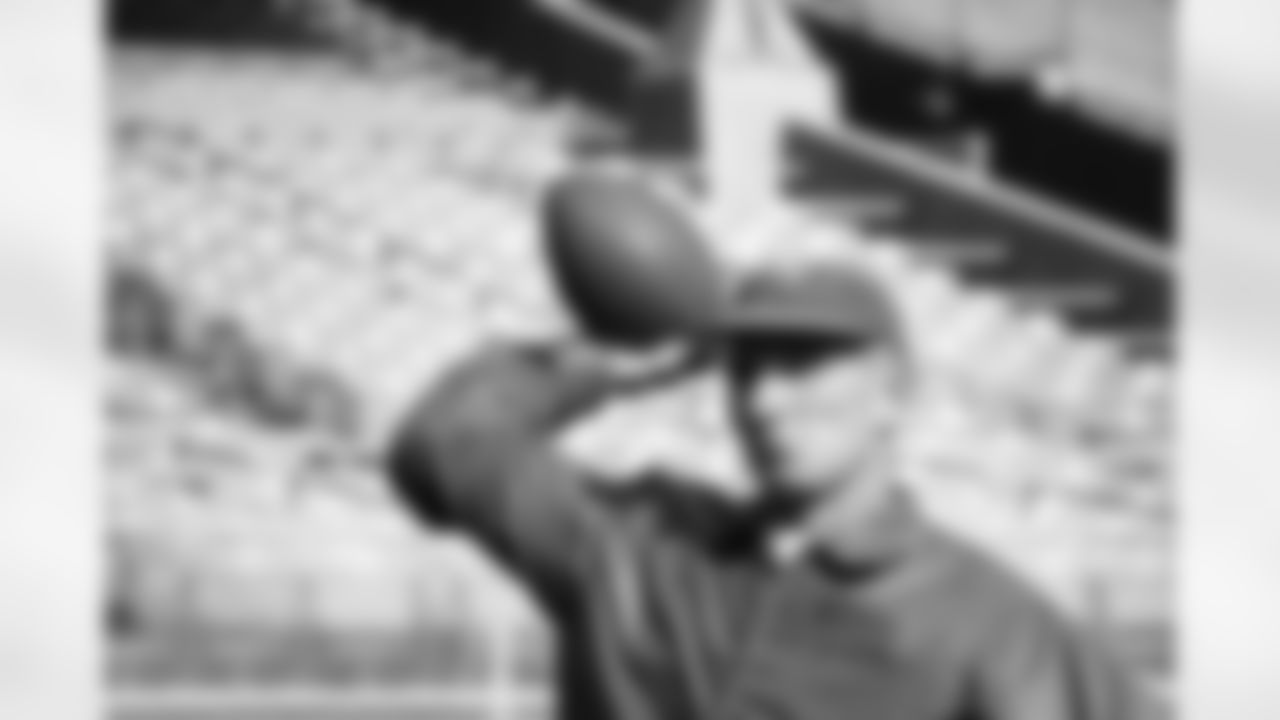
Y.A. Tittle, New York Giants quarterback named national football league ?Star on the Week? by the Associated Press, prepares to toss his specialty -- a pass -- during practice on Oct. 30, 1963 in New York?s Yankee Stadium. His short passes and running plays were instrumental in ripping the defenses of the Cleveland Browns last Sunday to give the Giants a 33-6 victory and snap the six-game winning streak of the Browns. (AP Photo)
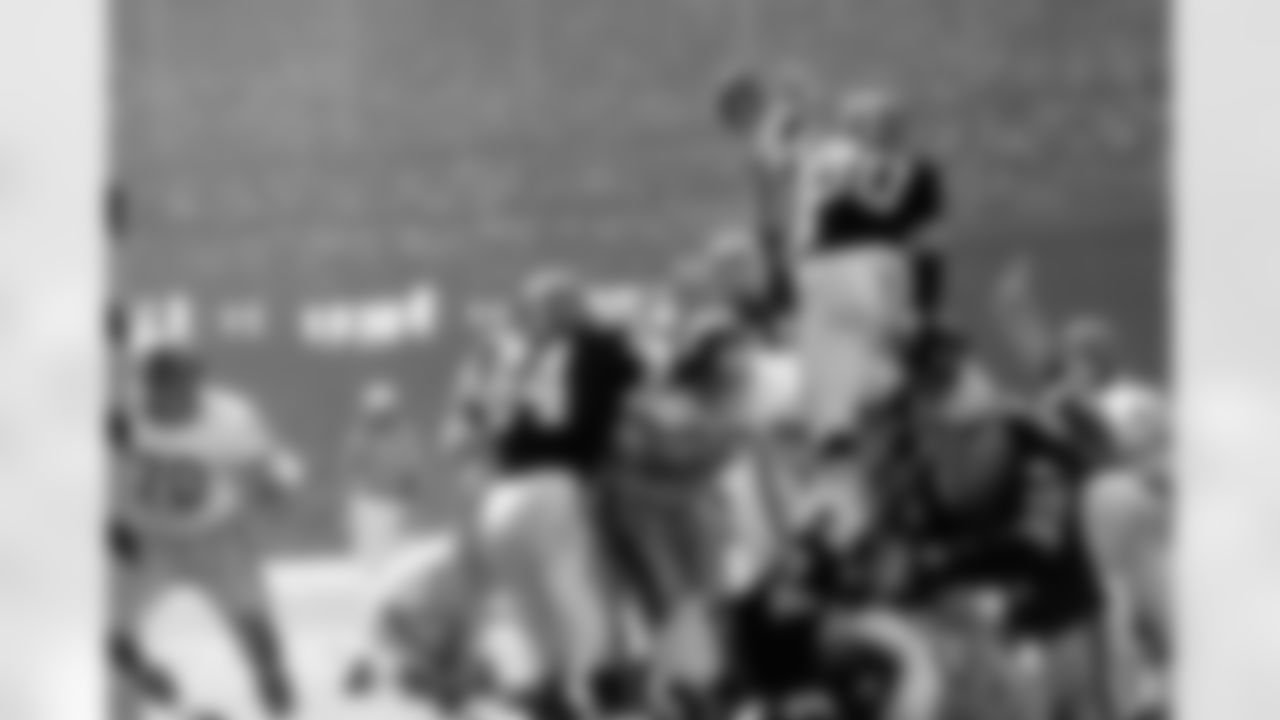
Cleveland Browns cornerback Bernie Parrish (30) attempts to block a kick against the New York Giants during an NFL game Sept. 16, 1962, in Cleveland. (Tony Tomsic via AP)
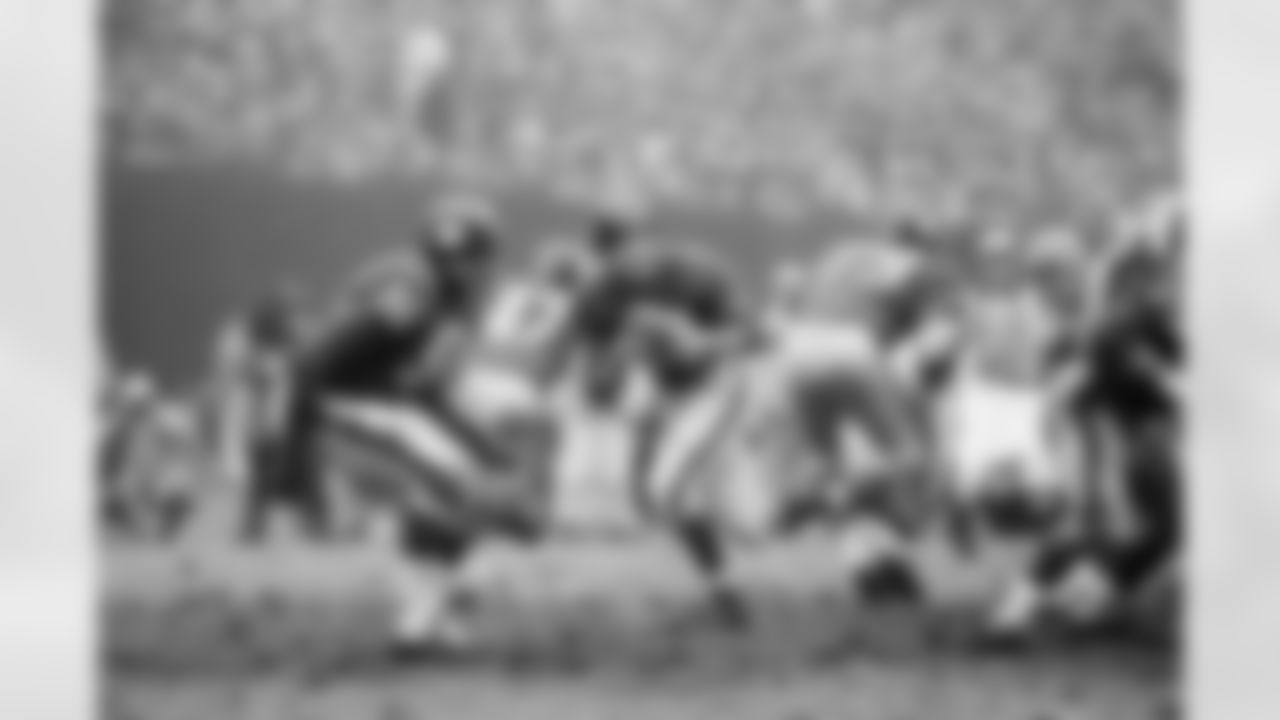
Giants quarterback Y.A. Tittle (14), back in the starting role for the New York club, rolls out of protection to toss a first period pass to teammate Joe Morrison against the Cleveland Browns, Dec. 12, 1964, at Yankee Stadium in New York City. Offering protection for Tittle are, Ernie Wheelwright, (30) Dick James, (47) and Rosey Brown (79). (AP Photo)
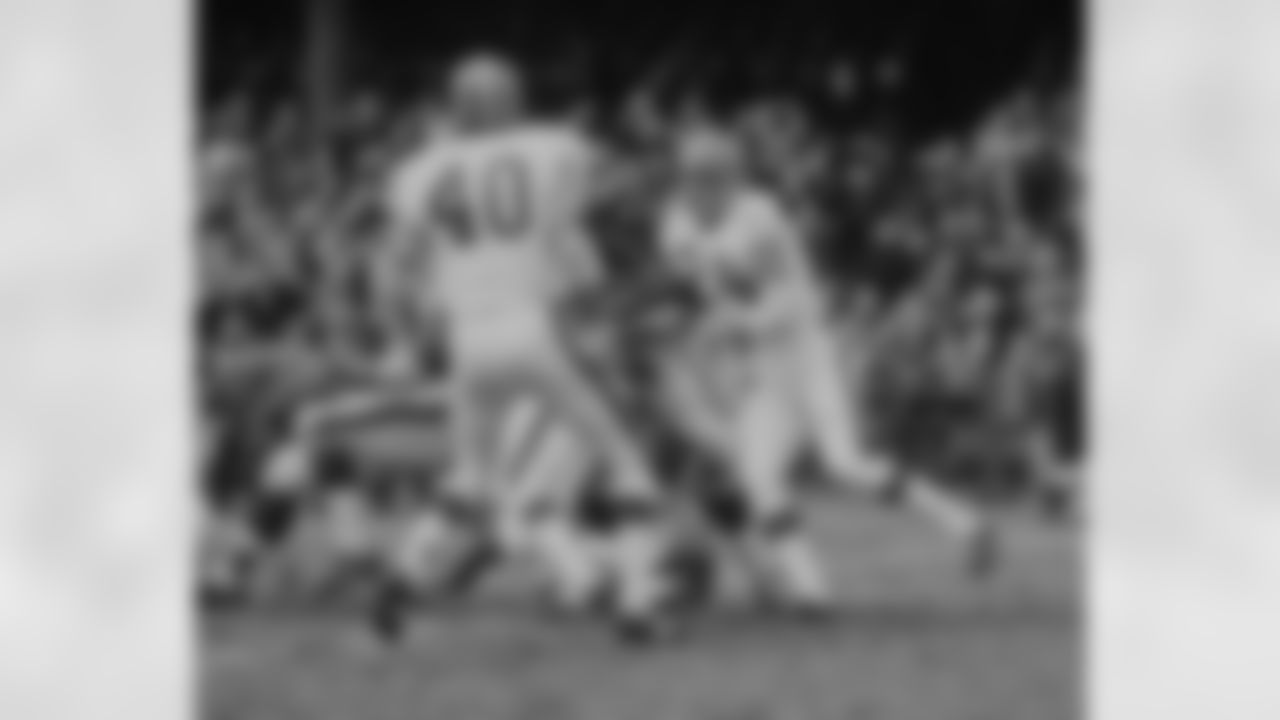
Cleveland Browns Ernie Kellerman (24) during a game against the New York Giants on Decemeber 21,1969 at Yankee Stadium in the Bronx, . The New York Giants beat the Cleveland Browns. (David Durochik via AP)
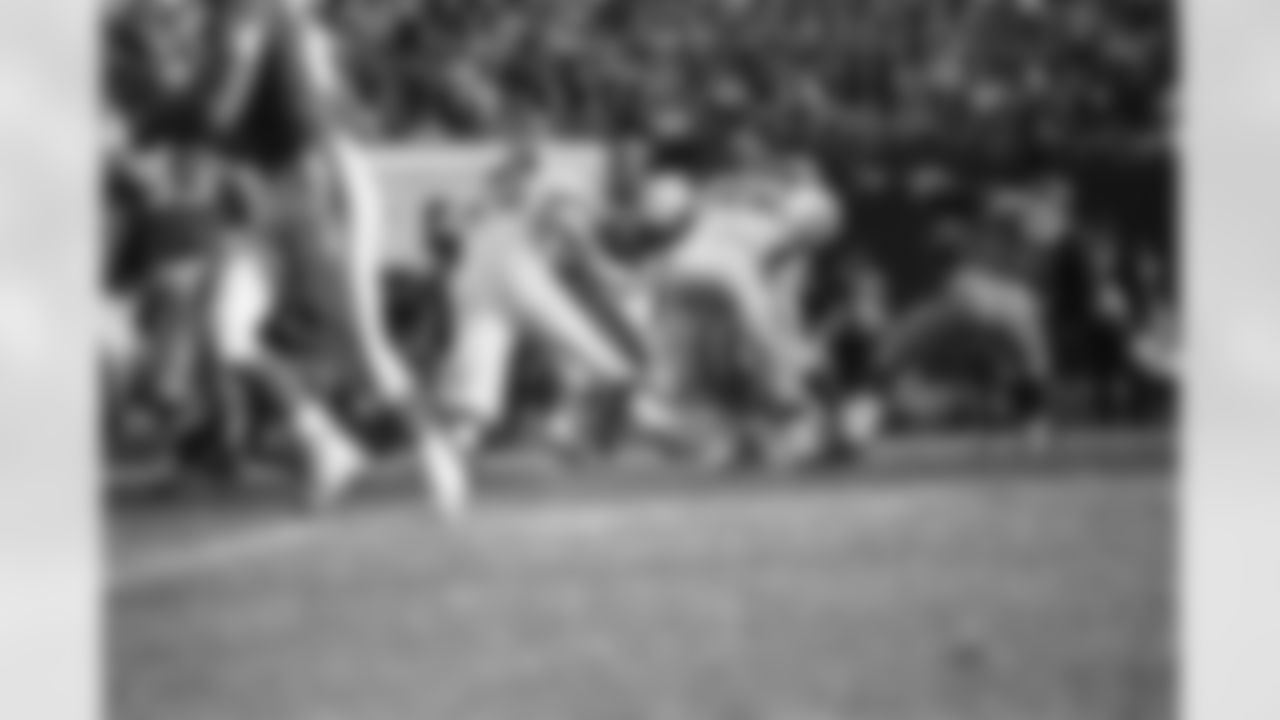
Y.A. Tittle the passer is the natural target for hostile linemen. Here some 755 pounds of Cleveland Browns -- Frank Parker (78) 255, Paul Wiggin (84) 245, Bill Glass (80) 255 -- bear down as Tittle gets off his pass on Nov. 12, 1963. (AP Photo/ Bob Goldberg)
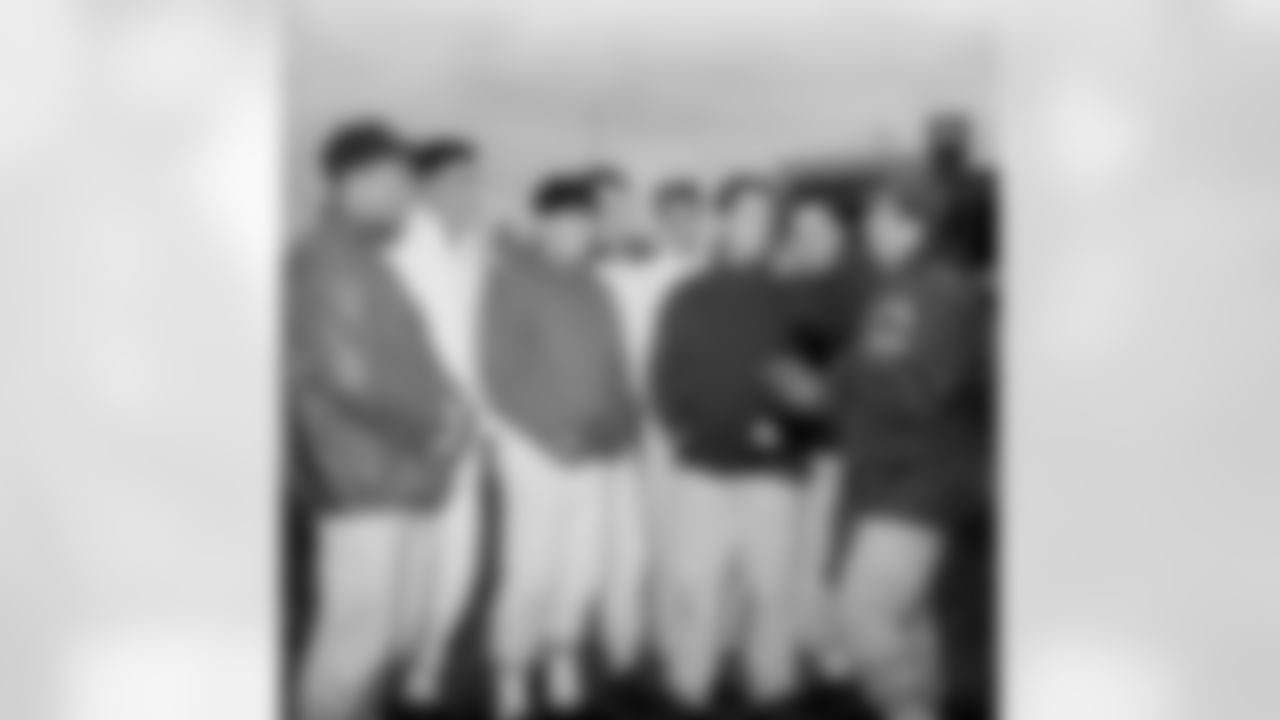
Allie Sherman, right, coach of the New York Giants, talks with his players before a workout at Yankee Stadium in New York, Dec. 7, 1962. from left are: Joe Morrison, back; Phil King, back; Joe Walton, end; Del Shofner, end; Don Chandler, back; Ralph Gugliemi, back and Frank Gifford, back. The Giants will meet the Cleveland Browns on Dec. 9, at the stadium. (AP Photo/Harry Harris)
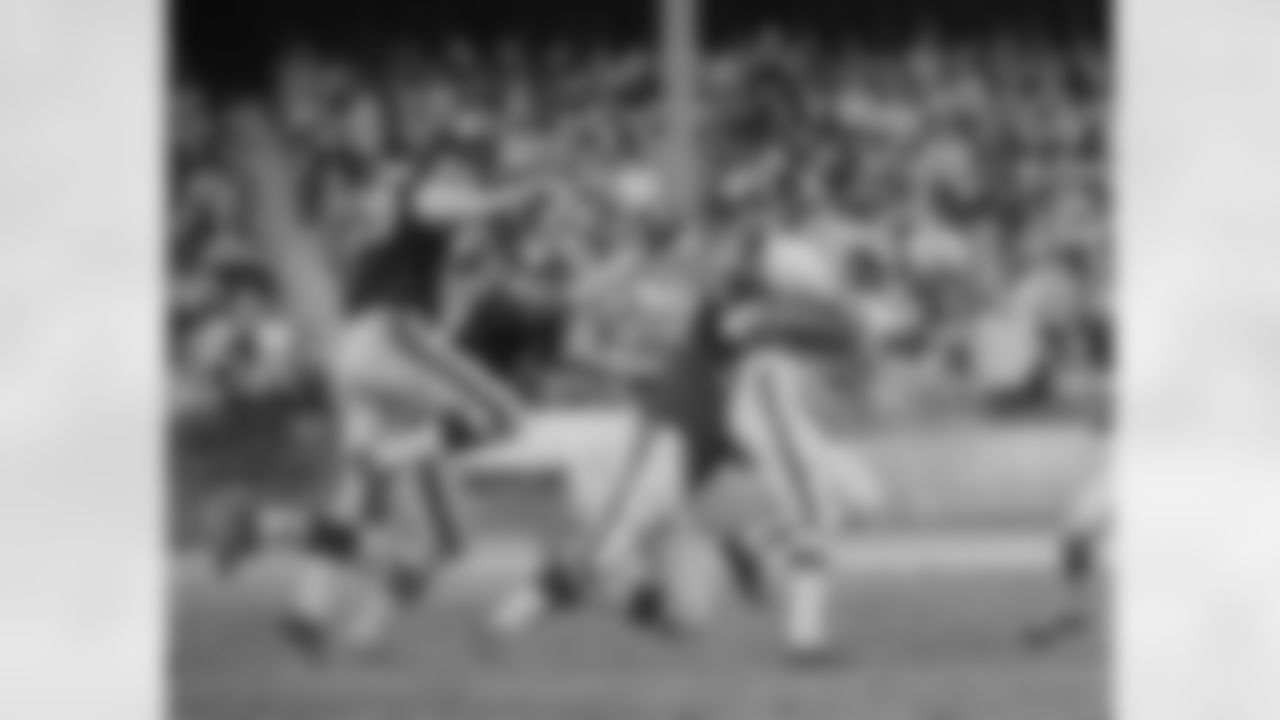
Cleveland Browns Leroy Kelly (44) during a game against the New York Giants on Decemeber 21,1969 at Yankee Stadium in the Bronx, New York. The New York Giants beat the Cleveland Browns 127-14. Leroy Kelly played for 10 seasons all with the Cleveland Browns He was a 6-time Pro Bowler and was inducted into the Pro Football Hall of Fame in 1994.(David Durochik via AP)

Fans attending the Giants-Browns football game at New York's Yankee Stadium, Dec. 17, 1961. Fans enthusiastically attack the goal posts and topple them onto the field. (AP Photo)
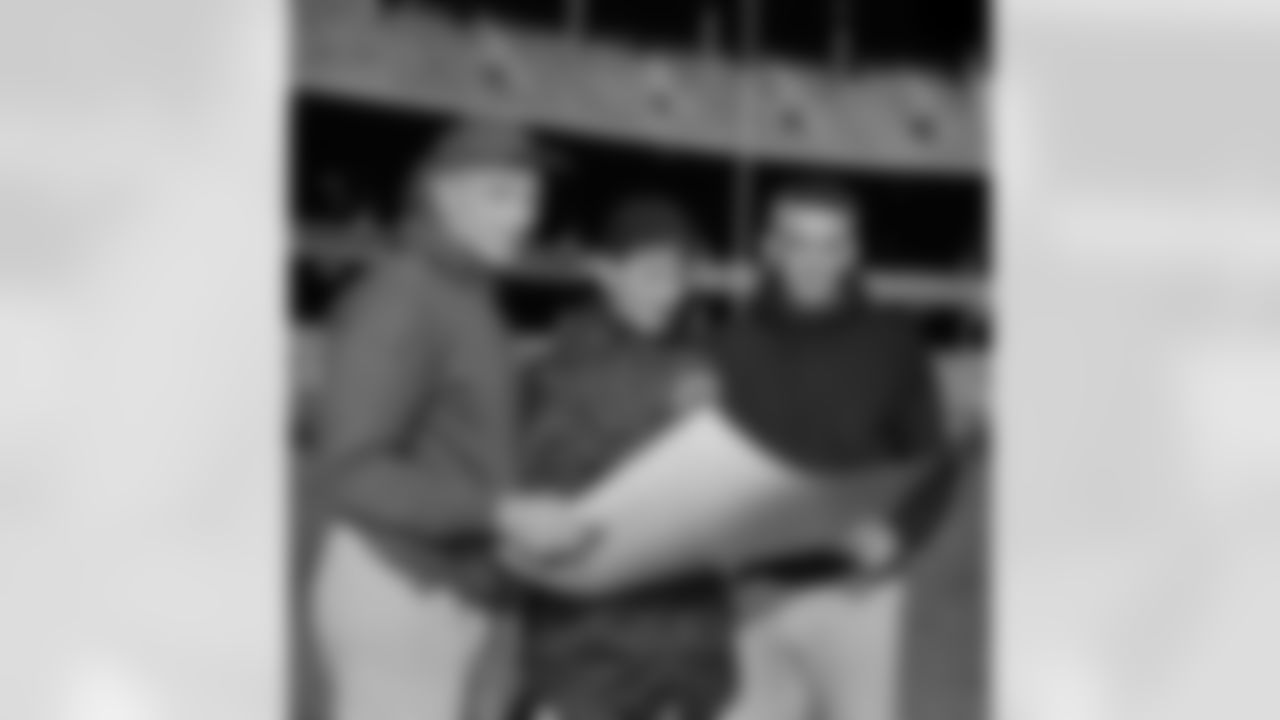
Allie Sherman, coach of the New York football Giants, is flanked by his star quarterbacks, Y.A. Tittle, left, and Charley Conerly, during a team workout at Yankee stadium, New York on Dec. 13, 1961. The Giants face the Cleveland Browns on Dec. 17 in the last game of the regular season. The Giants can wrap up the Title in the league?s eastern division by beating the Cleveland eleven. (AP Photo/JH)

Frank Gifford (16), New York Giants back, reaches unsuccessfully for pass from quarterback Y.A. Tittle in first quarter of NFL game against the Cleveland Browns in New York's Yankee Stadium, Dec. 9, 1962. Following Gifford is Bernie Parrish of the Browns. (AP Photo)
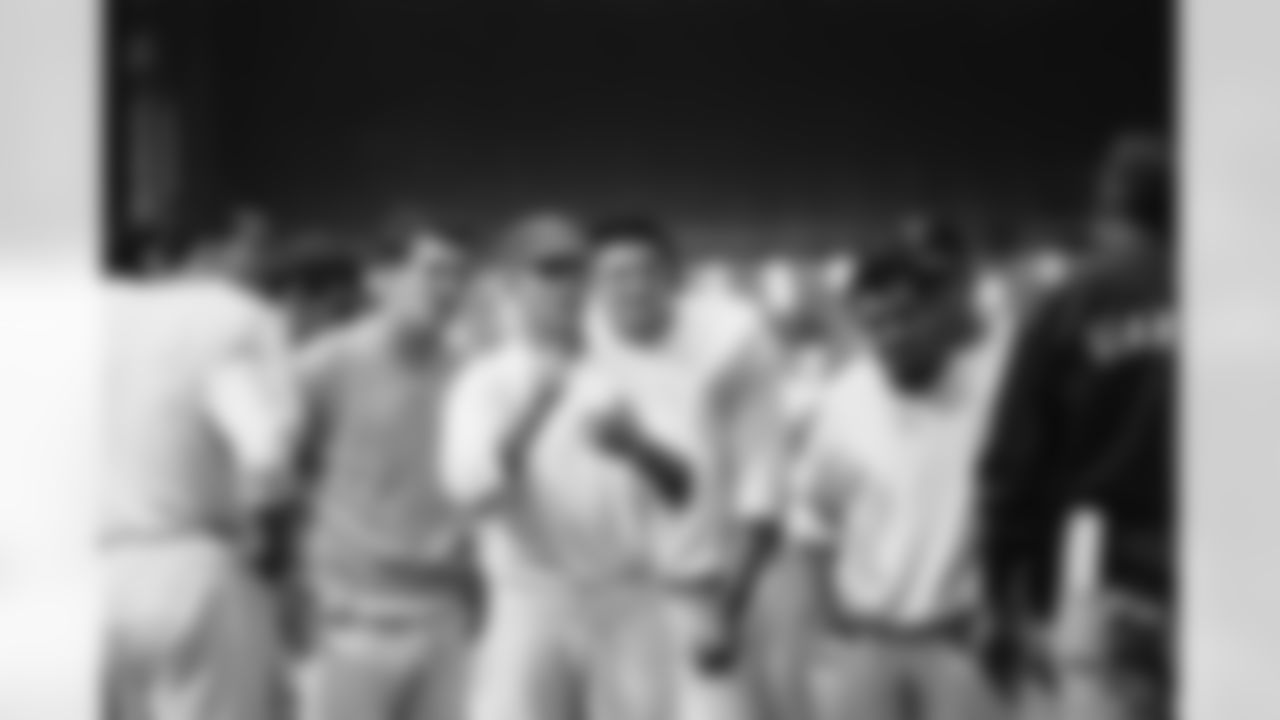
Veteran signal-caller Y.A. Tittle of the New York Giants leads practice session at New York?s Yankee stadium on Oct. 23, 1963 as giants get ready for upcoming contest with the undefeated Cleveland Browns. From left, quarterback Tittle pounds his hand into his fist as Alex Webster, left, and Phil King stand by. New York will be after revenge in October 27 game at Cleveland for sound beating Browns handed them at New York earlier in the season. (AP Photo/ Eddie Adams)
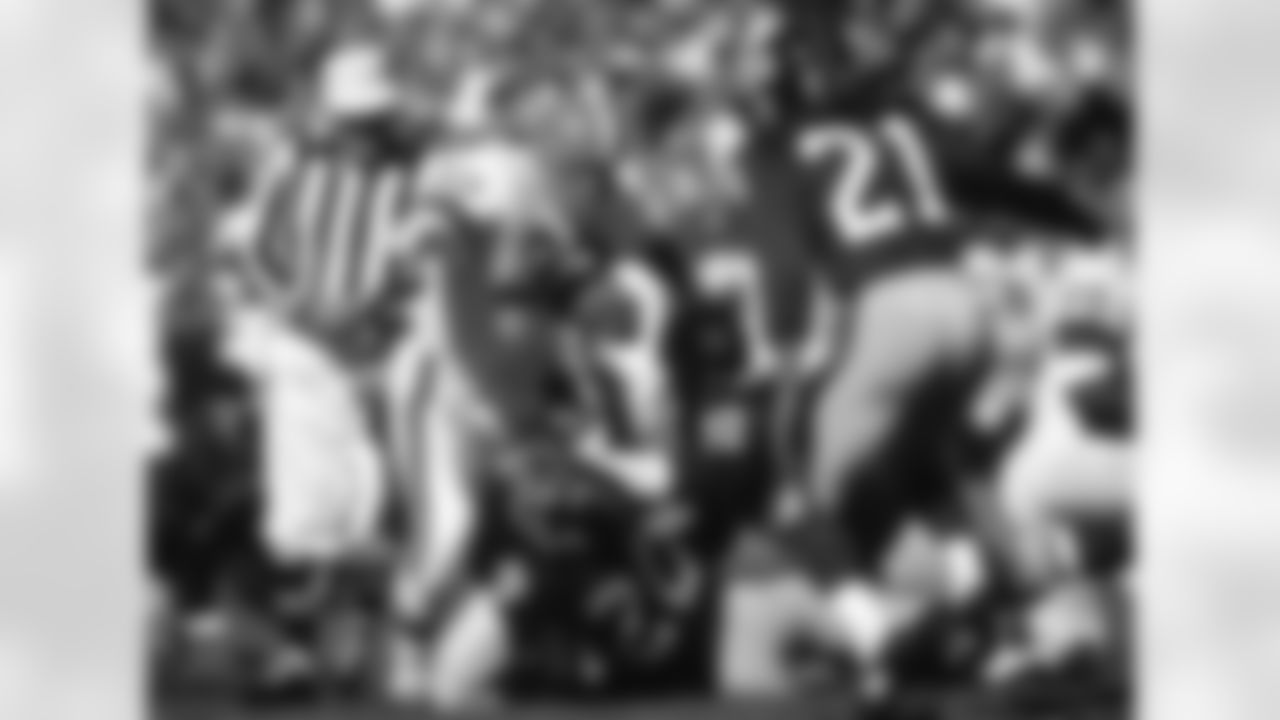
Cleveland Browns fullback Jim Brown(32) is seen in action during an NFL game against the New York Giants in this undated photo. (Tony Tomsic via AP)
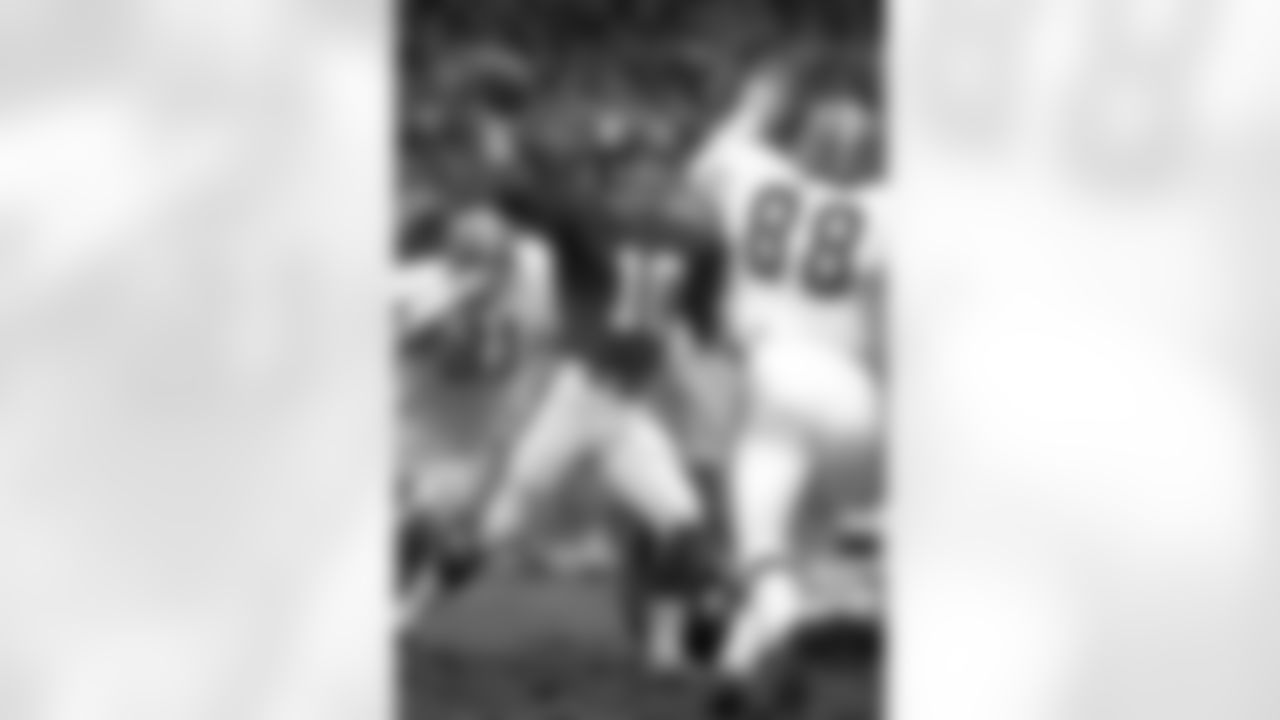
New York Giants quarterback Fran Tarkenton (10) gets set to throw a pass during an NFL game against the Cleveland Browns in this undated photo. (Tony Tomsic via AP)

Cleveland Browns quarterback Bernie Kosar (10, AFC) throws a pass against New York Giants linebacker Carl Banks (59, NFC) during the Pro Bowl in Honolulu, HI, Feb. 7, 1988. (Paul Spinelli via AP)

New York Giants linebacker Lawrence Taylor (56) and New York Giants linebacker Andy Headen (54) gang tackle Cleveland Browns running back Earnest Byner (44) on December 1, 1985 in East Rutherford, New Jersey. The Browns won the game 35-33. (AP Photo/Paul Spinelli)
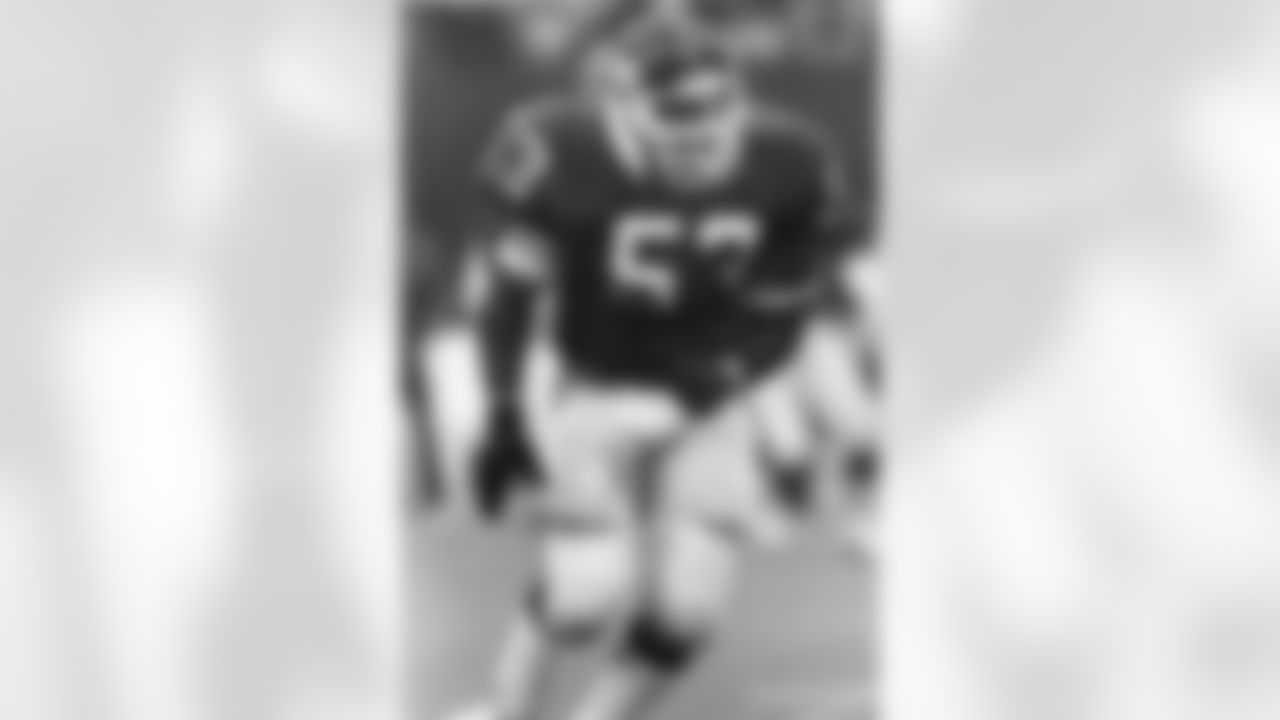
New York Giants linebacker Harry Carson (53) chases the action during an NFL football game against the Cleveland Browns, Dec. 1, 1985 in East Rutherford, N.J. The Browns won 35-33. (Paul Spinelli via AP)
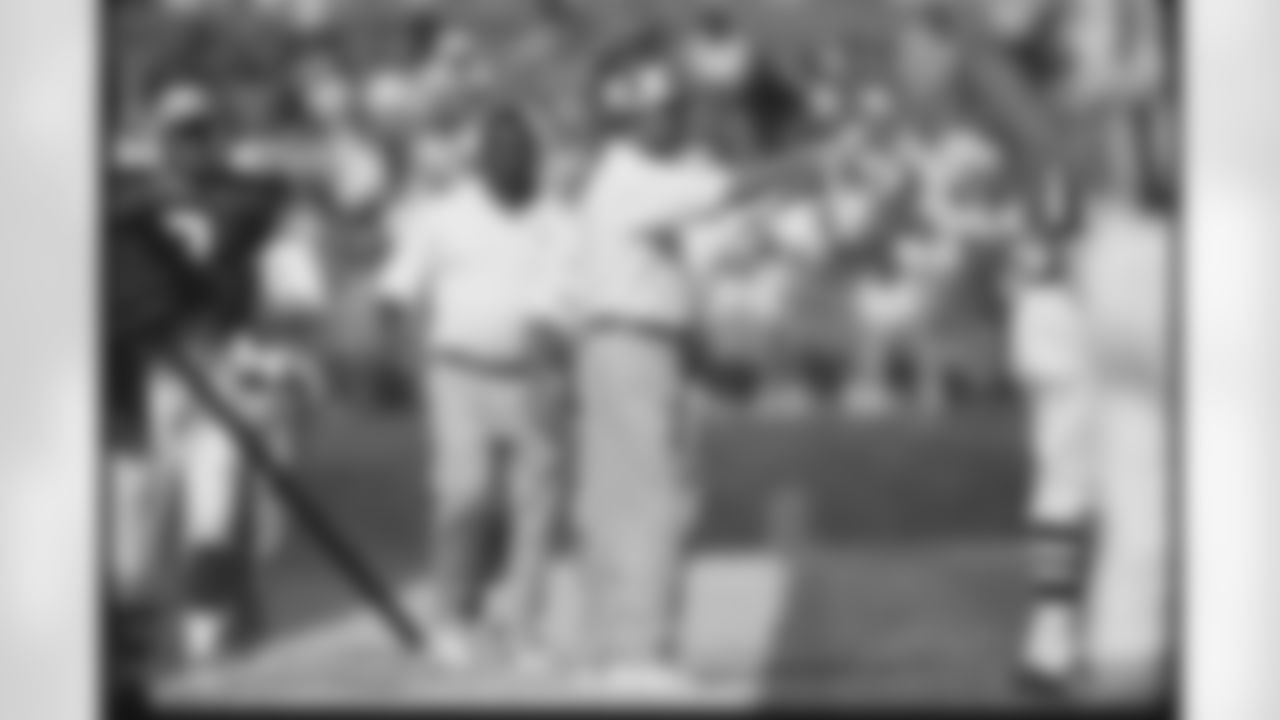
New York Giants head coach Dan Reeves motions to the field while facing the Cleveland Browns during the NFL preseason game in Cleveland, OH, Aug. 6, 1995. The Giants defeated the Browns 19-13. (Paul Spinelli via AP)
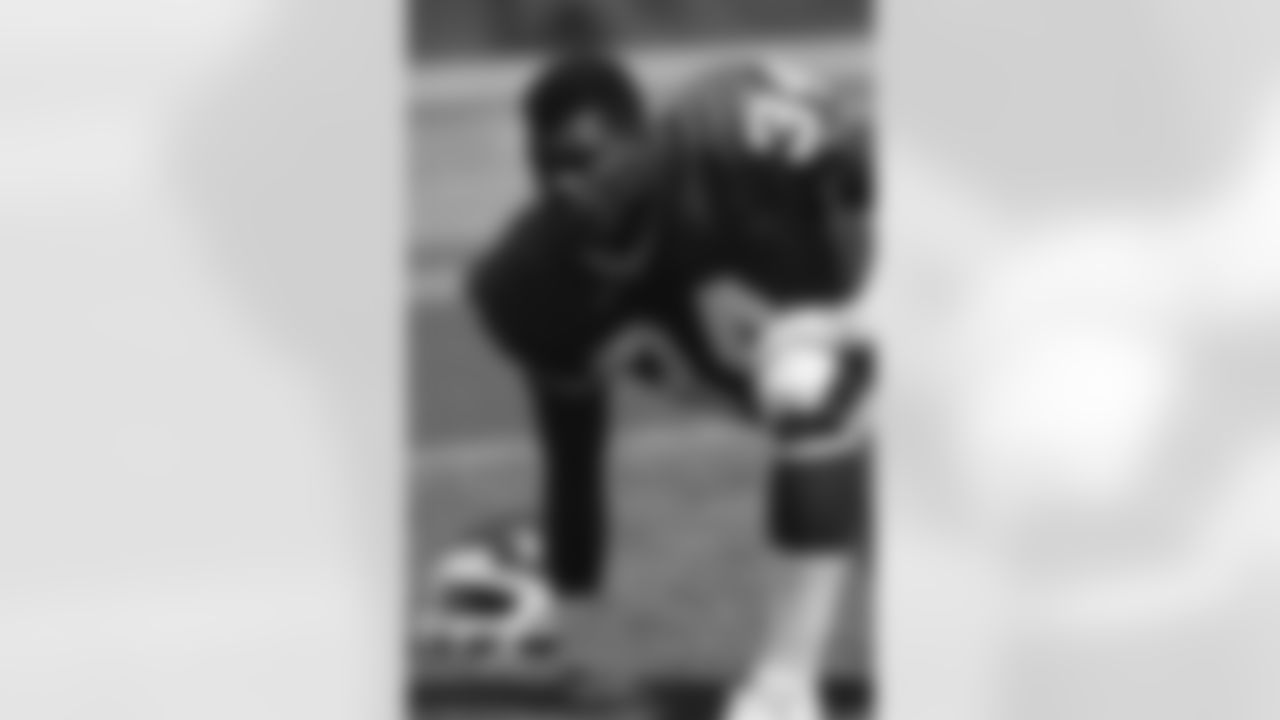
New York Giants running back Herschel Walker (34) kneels on the field ahead of a game against the Cleveland Browns in Cleveland, OH, Aug. 6, 1995. The Giants defeated the Browns 19-13. (Paul Spinelli via AP)
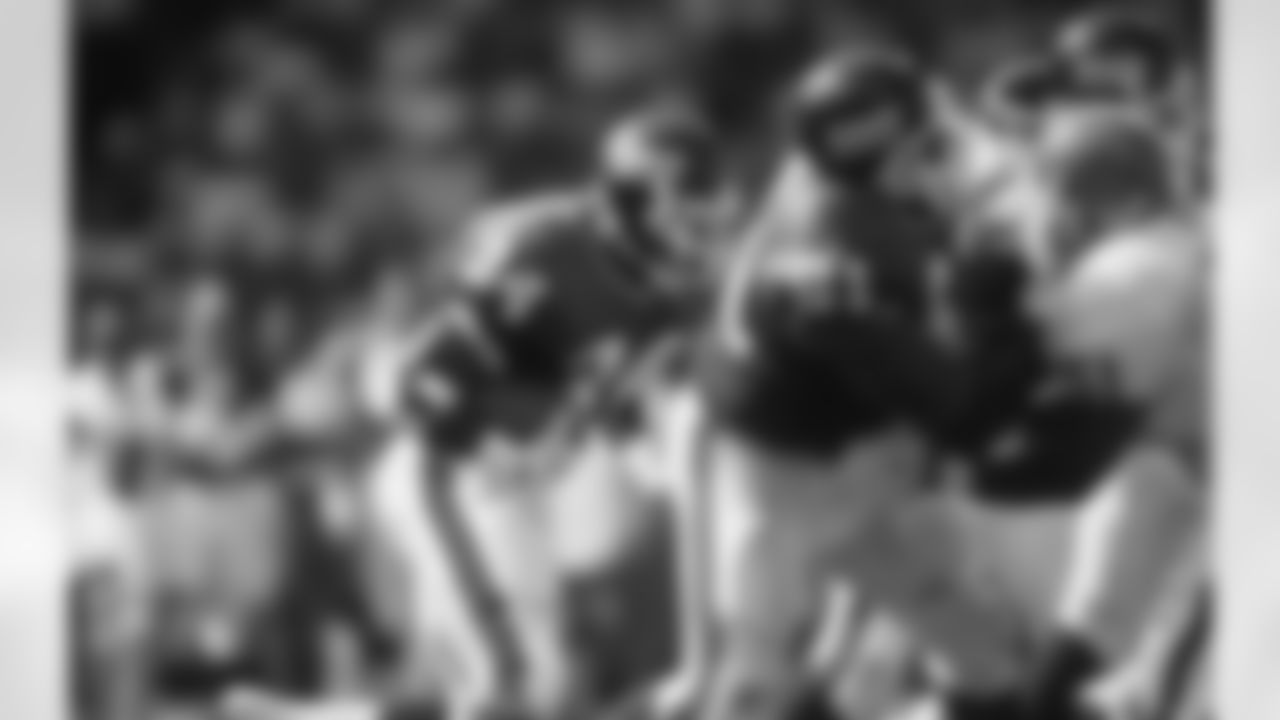
New York Giants running back Herschel Walker (34) carries the ball during a preseason game against the Cleveland Browns in Cleveland, OH, Aug. 6, 1995. The Giants defeated the Browns 19-13. (Paul Spinelli via AP)
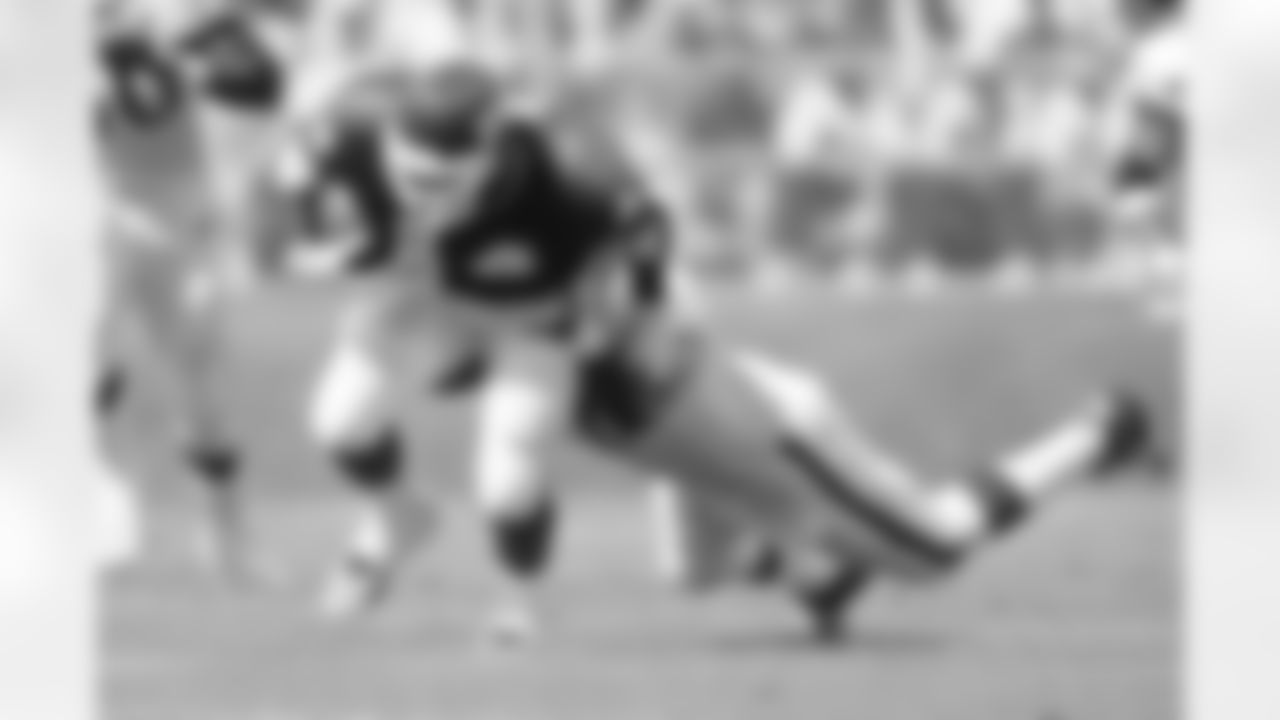
New York Giants fullback Kenyon Rasheed (89) tries to break a tackle as he runs the ball during the NFL preseason football game against the Cleveland Browns on Aug. 6, 1995 in Cleveland. The Giants won the game 19-13. (Paul Spinelli via AP)
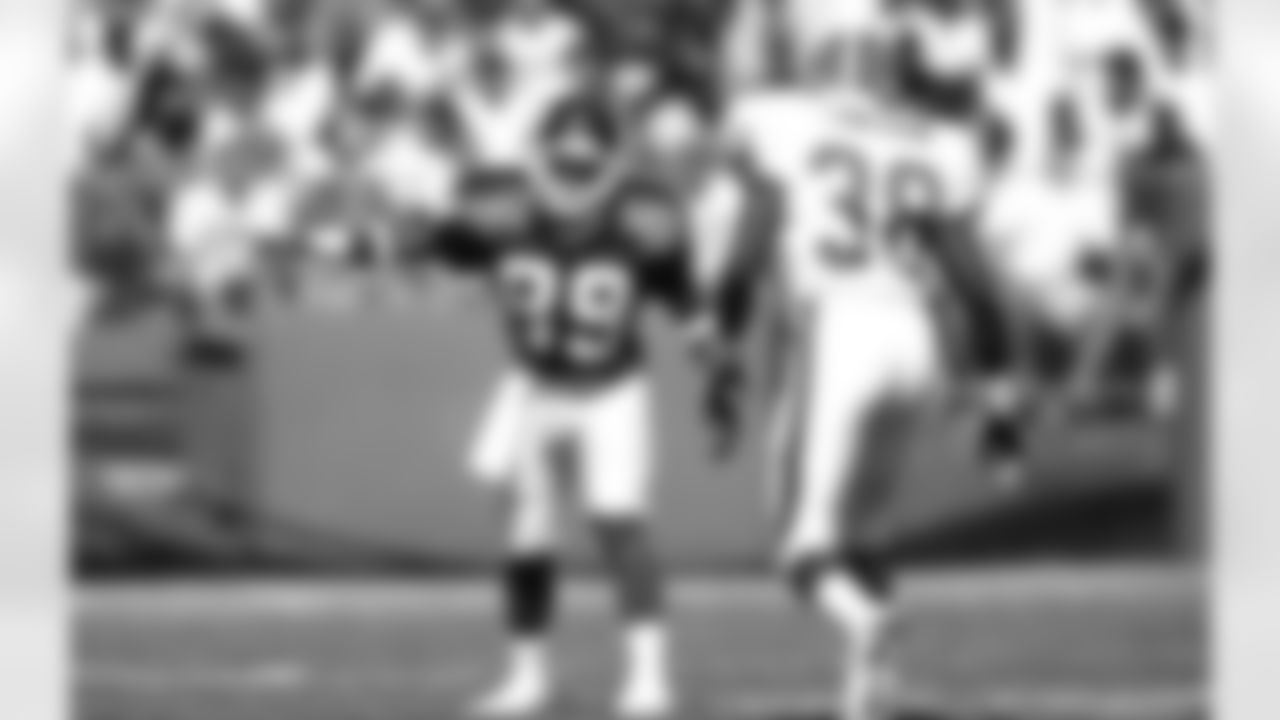
New York Giants wide receiver Gary Harrell (89) points as he gets set to go out for a pass while covered by Cleveland Browns cornerback Antonio Langham (38) during the 1995 NFL preseason football game against the Cleveland Browns on Aug. 6, 1995 in Cleveland. The Giants won the game 19-13. (Paul Spinelli via AP)

New York Giants tight end Brian Kozlowski (85) steps into action against the Cleveland Browns during the NFL preseason game in Cleveland, OH, Aug. 6, 1995. The Giants defeated the Browns 19-13. (Paul Spinelli via AP)
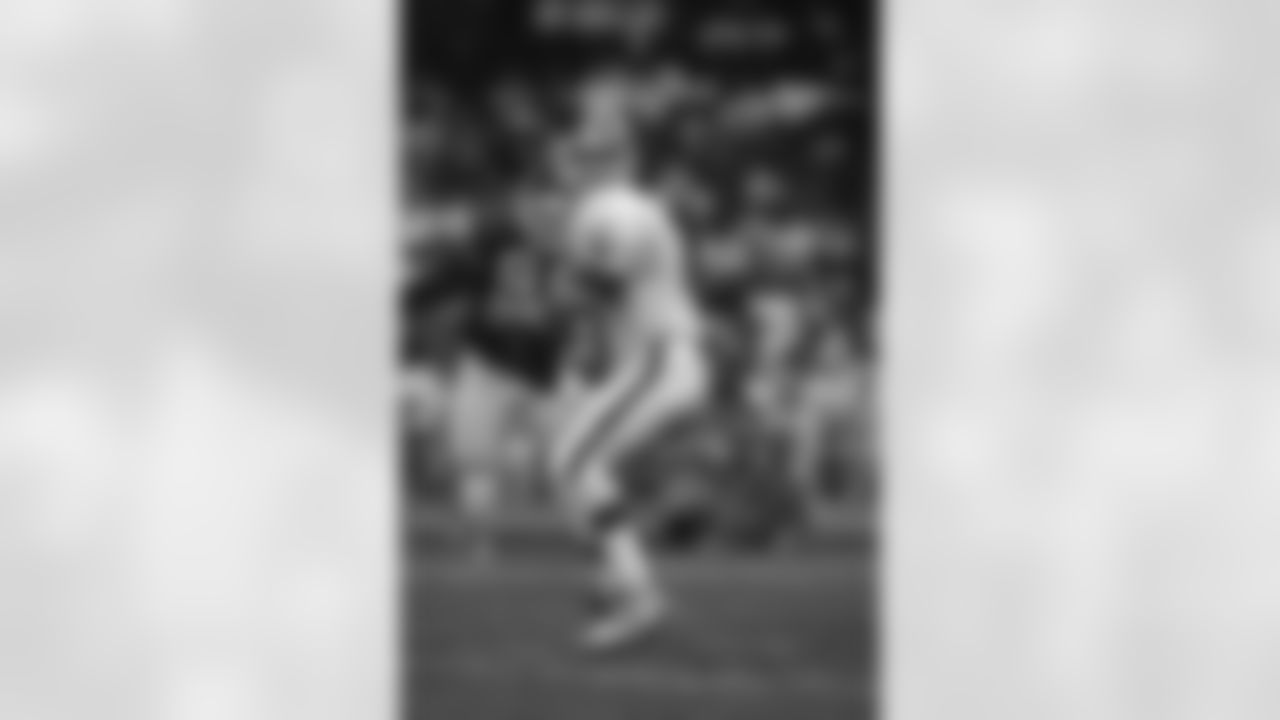
Cleveland Browns quarterback Brad Goebel (8) prepares to throw a pass against the New York Giants in Cleveland, OH, Aug. 6, 1995. The Giants defeated the Browns 19-13. (Paul Spinelli via AP)

New York Giants running back Herschel Walker (34) tries to break a tackle by Cleveland Browns safety Stevon Moore (27) as he runs the ball during the NFL preseason football game against the Cleveland Browns on Aug. 6, 1995 in Cleveland. The Giants won the game 19-13. (AP Photo/Paul Spinelli)
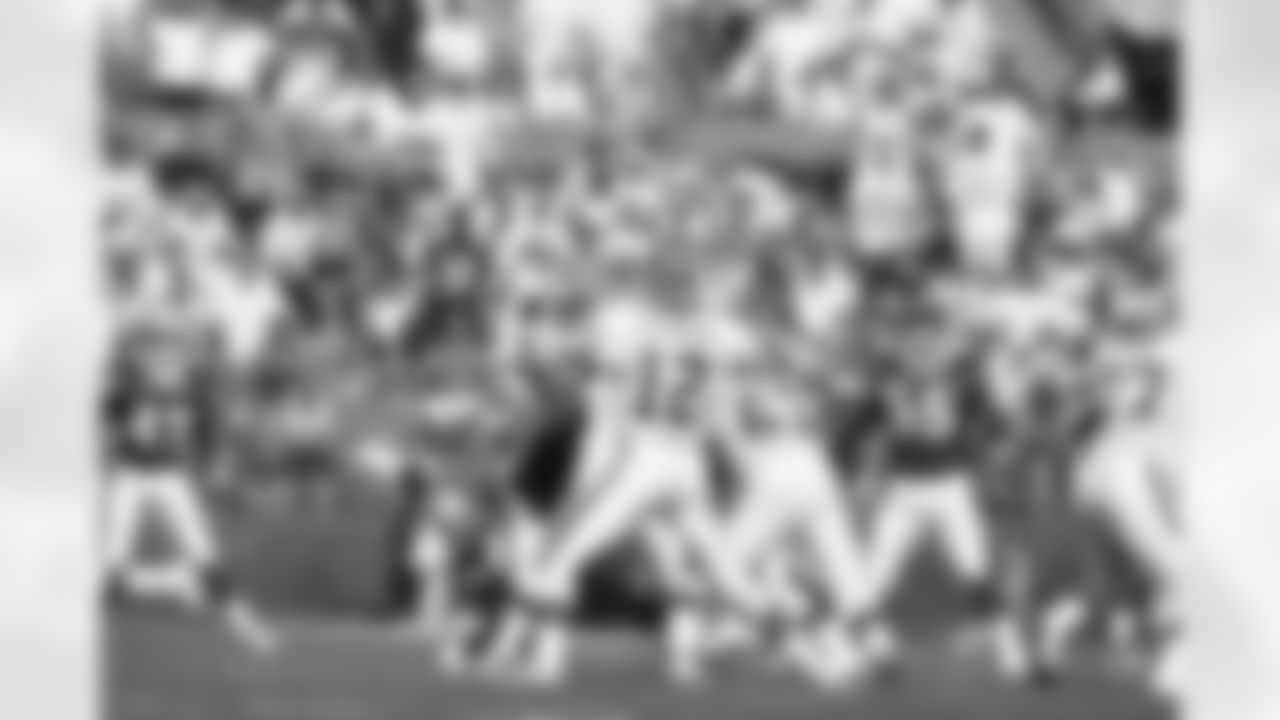
Cleveland Browns quarterback Vinny Testaverde (12) throws a pass against the New York Giants in the NFL preseason game in Cleveland, OH, Aug. 6, 1995. The Giants defeated the Browns 19-13. (Paul Spinelli via AP)
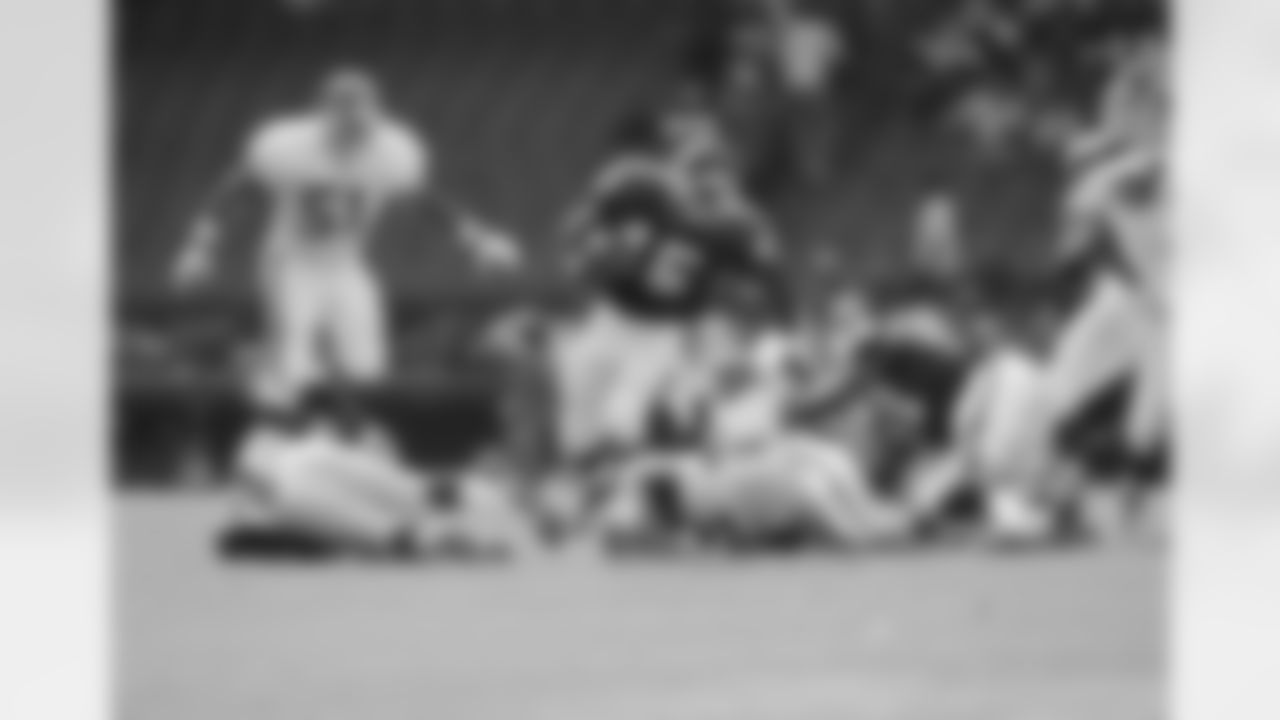
New York Giants running back Gary Downs (45) carries the ball against the Cleveland Browns during the NFL preseason game in Cleveland, OH, Aug. 6, 1995. The Giants defeated the Browns 19-13. (Paul Spinelli via AP)
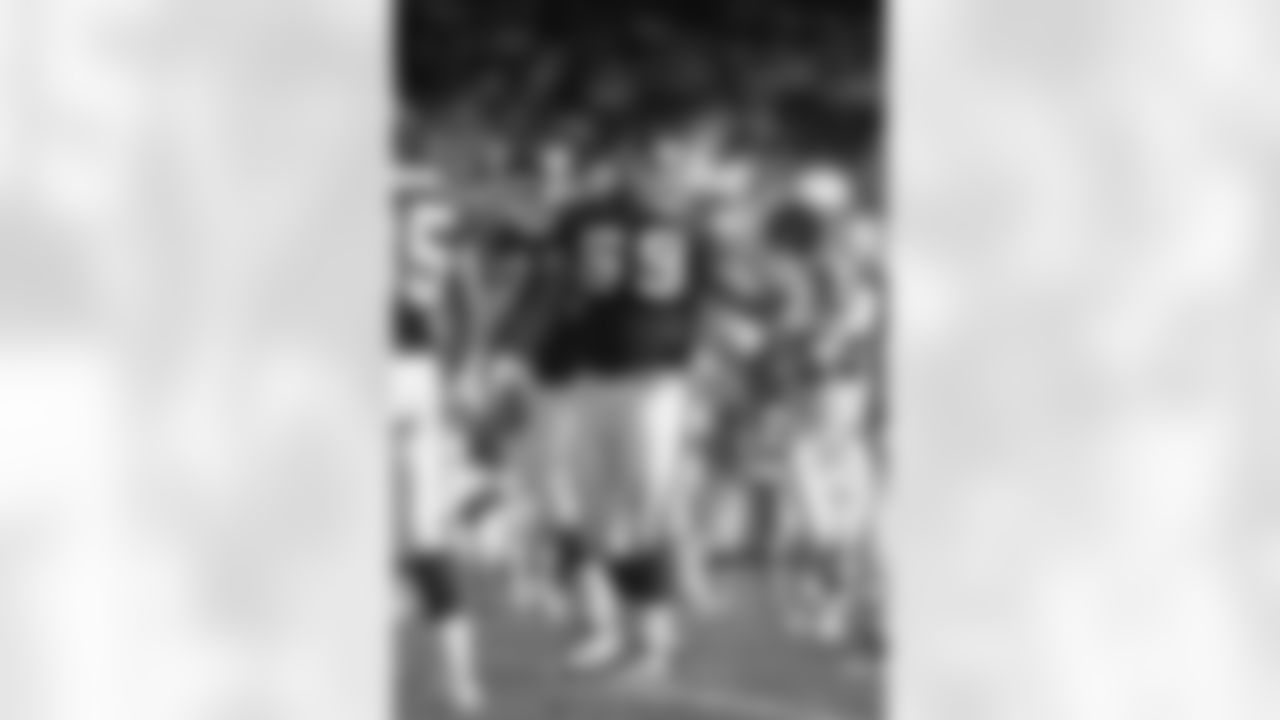
New York Giants guard Derek Allen (69) steps to the line of scrimmage against the Cleveland Browns during the NFL preseason game in Cleveland, OH, Aug. 6, 1995. The Giants defeated the Browns 19-13. (Paul Spinelli via AP)
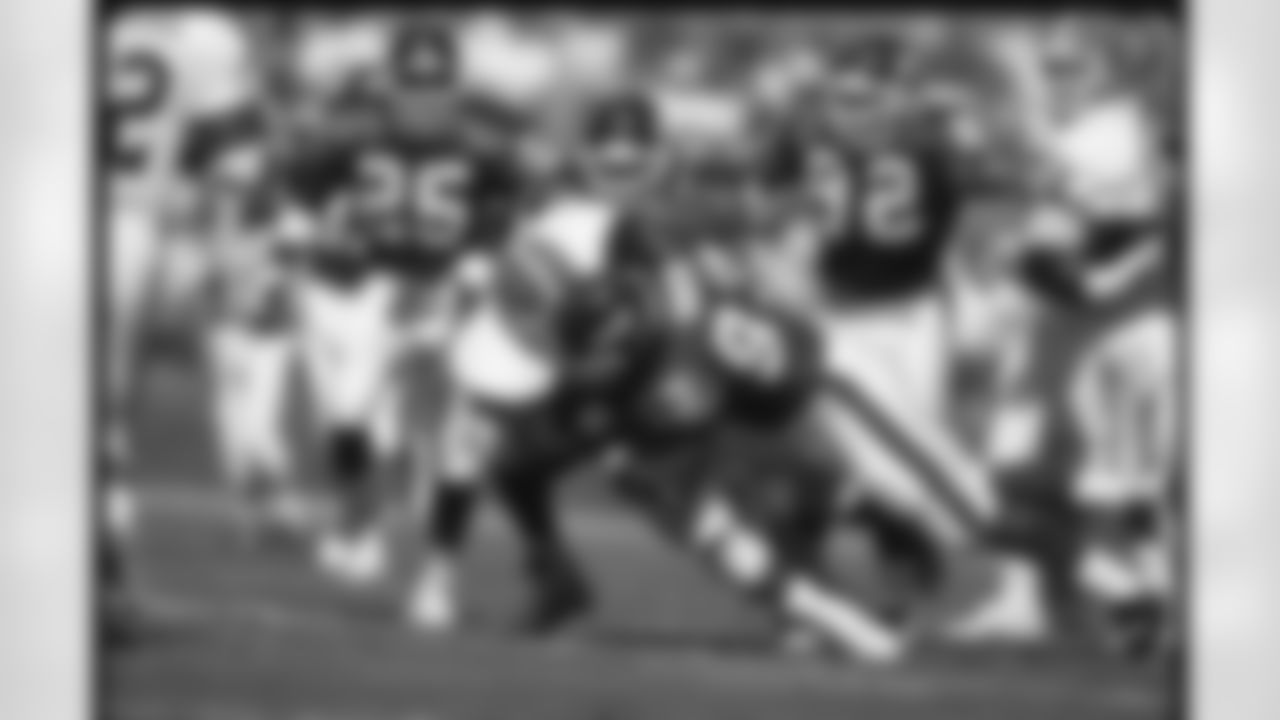
New York Giants defensive tackle Ray Agnew (93) tackles a Cleveland Browns ball carrier during the NFL preseason game in Cleveland, OH, Aug. 6, 1995. The Giants defeated the Browns 19-13. (Paul Spinelli via AP)
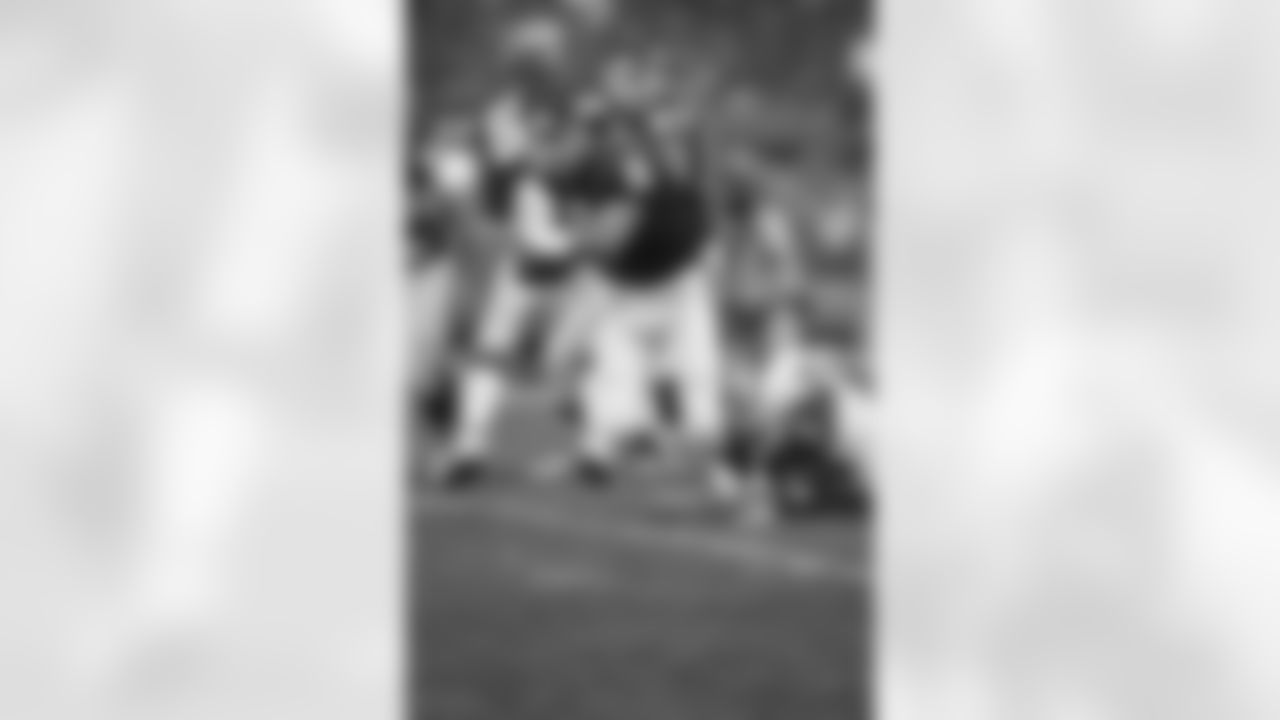
New York Giants quarterback Stan White (8) takes off with the ball against the Cleveland Browns during the NFL preseason game in Cleveland, OH, Aug. 6, 1995. The Giants defeated the Browns 19-13. (Paul Spinelli via AP)
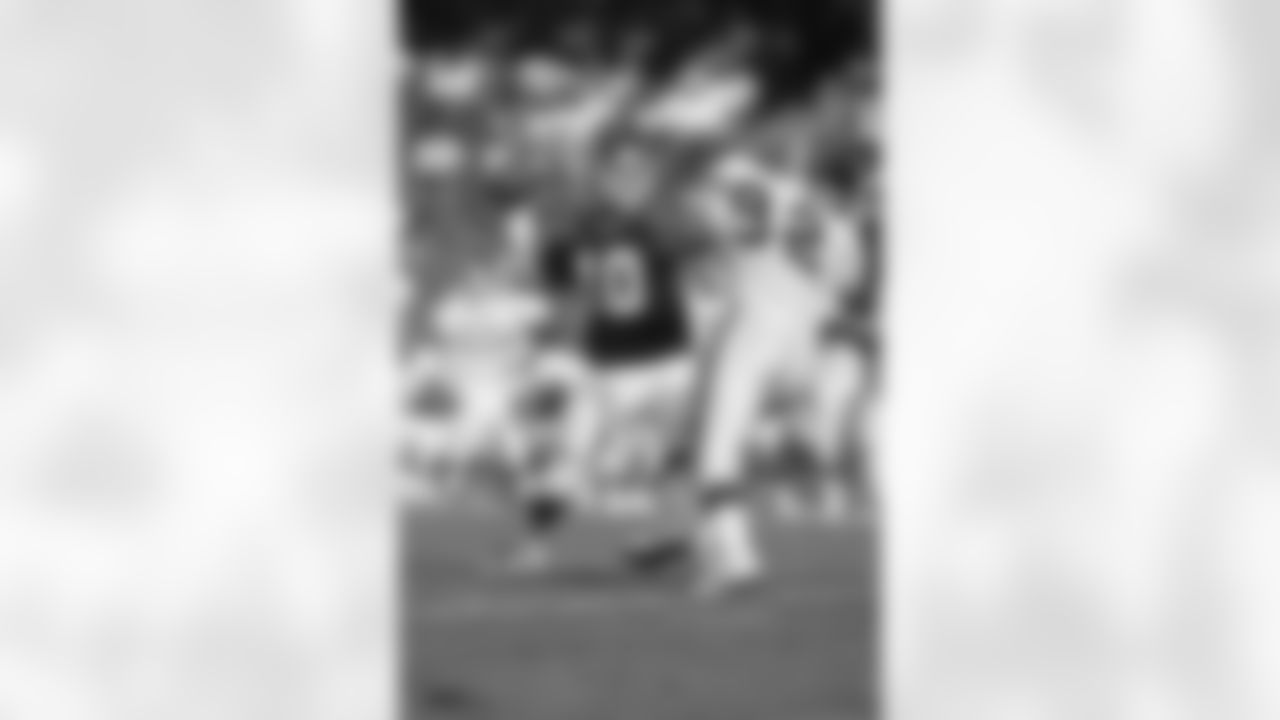
New York Giants quarterback Kent Graham (10) throws a pass against the Cleveland Browns during the NFL preseason game in Cleveland, OH, Aug. 6, 1995. The Giants defeated the Browns 19-13. (Paul Spinelli via AP)
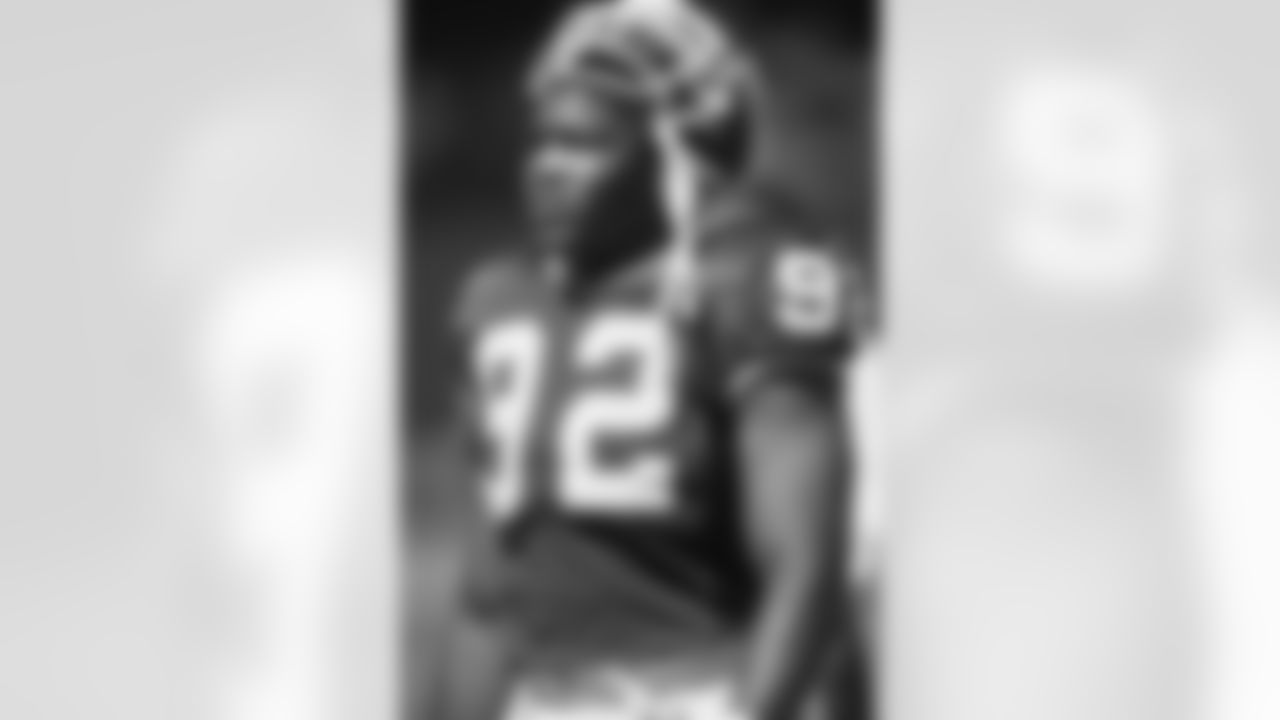
New York Giants defensive end Michael Strahan (92) steps off the field against the Cleveland Browns during the NFL preseason game in Cleveland, OH, Aug. 6, 1995. The Giants defeated the Browns 19-13. (Paul Spinelli via AP)
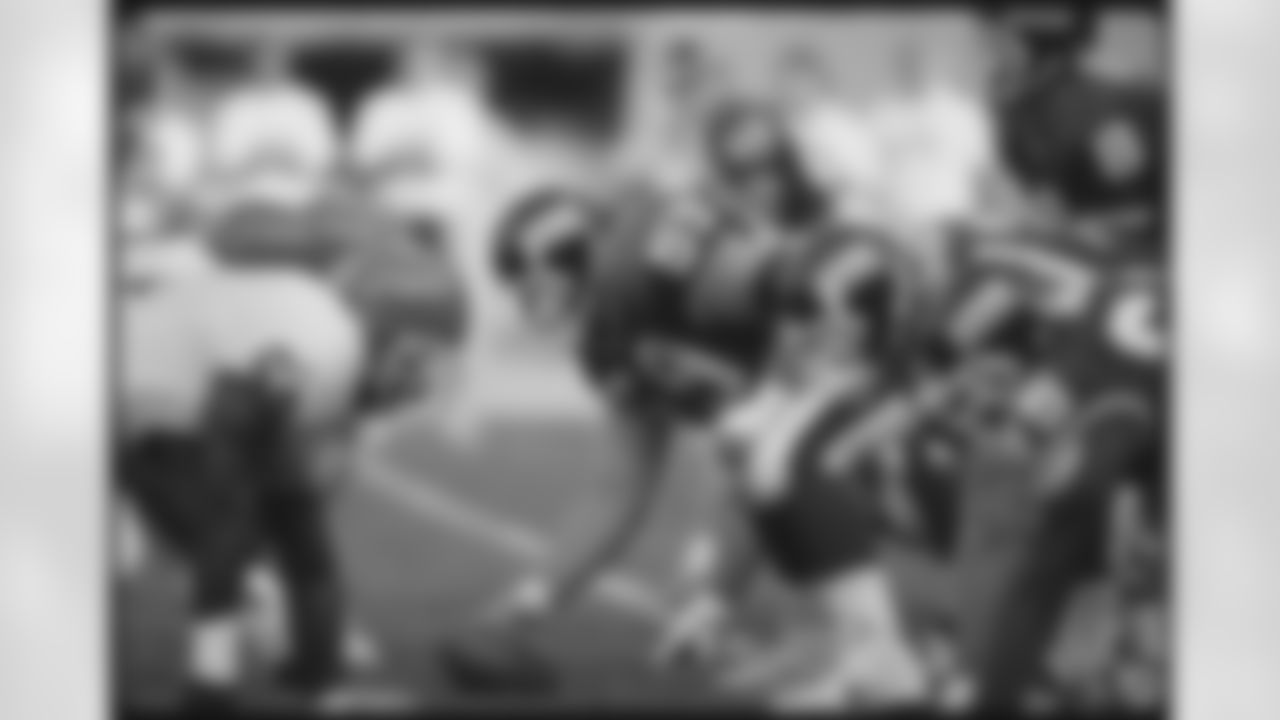
New York Giants center Brian Williams (59) prepares to snap against the Cleveland Browns during the NFL preseason game in Cleveland, OH, Aug. 6, 1995. The Giants defeated the Browns 19-13. (Paul Spinelli via AP)
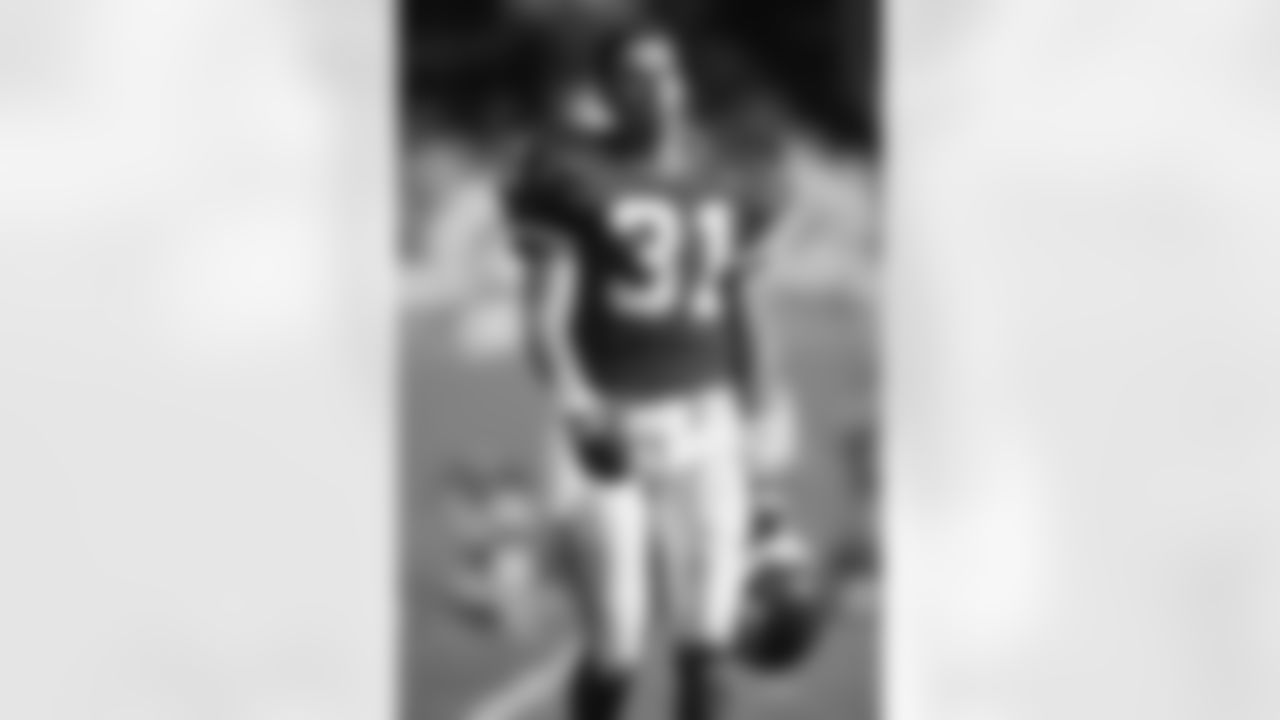
New York Giants safety Jason Sehorn (31) steps off the field against the Cleveland Browns during the NFL preseason game in Cleveland, OH, Aug. 6, 1995. The Giants defeated the Browns 19-13. (Paul Spinelli via AP)
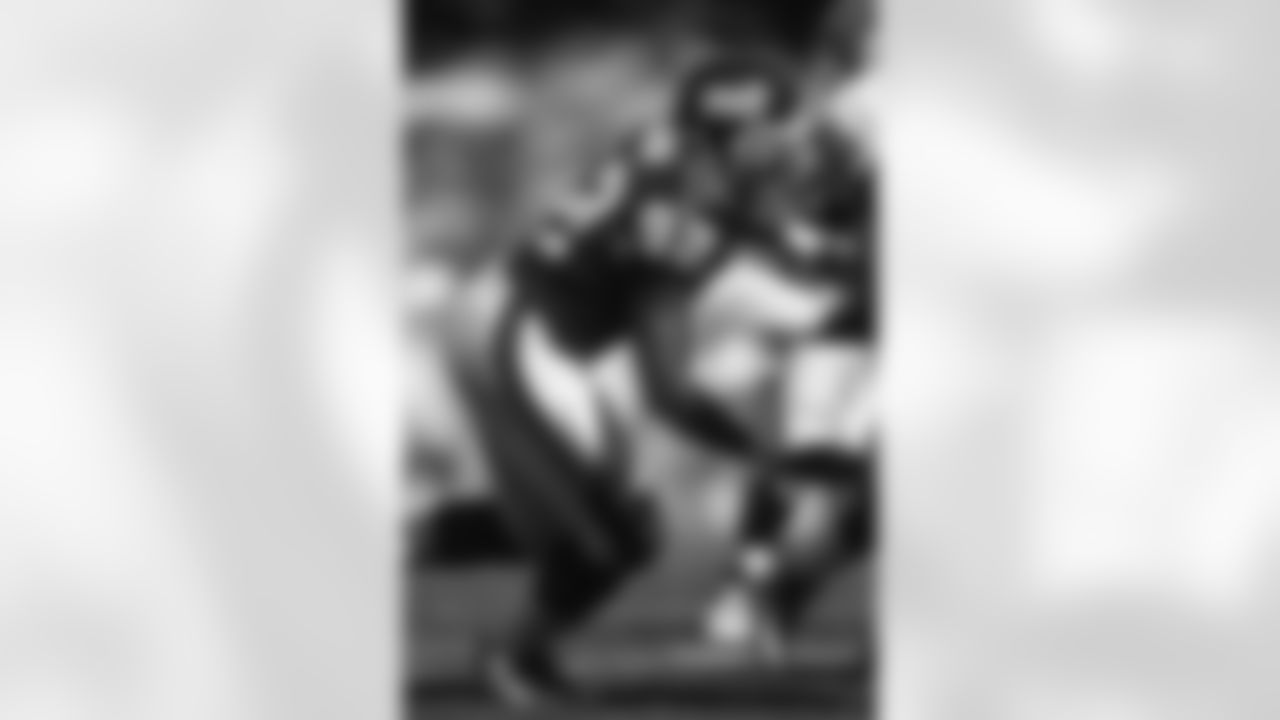
New York Giants defensive end Michael Strahan (92) steps into action against the Cleveland Browns during the NFL preseason game in Cleveland, OH, Aug. 6, 1995. The Giants defeated the Browns 19-13. (Paul Spinelli via AP)
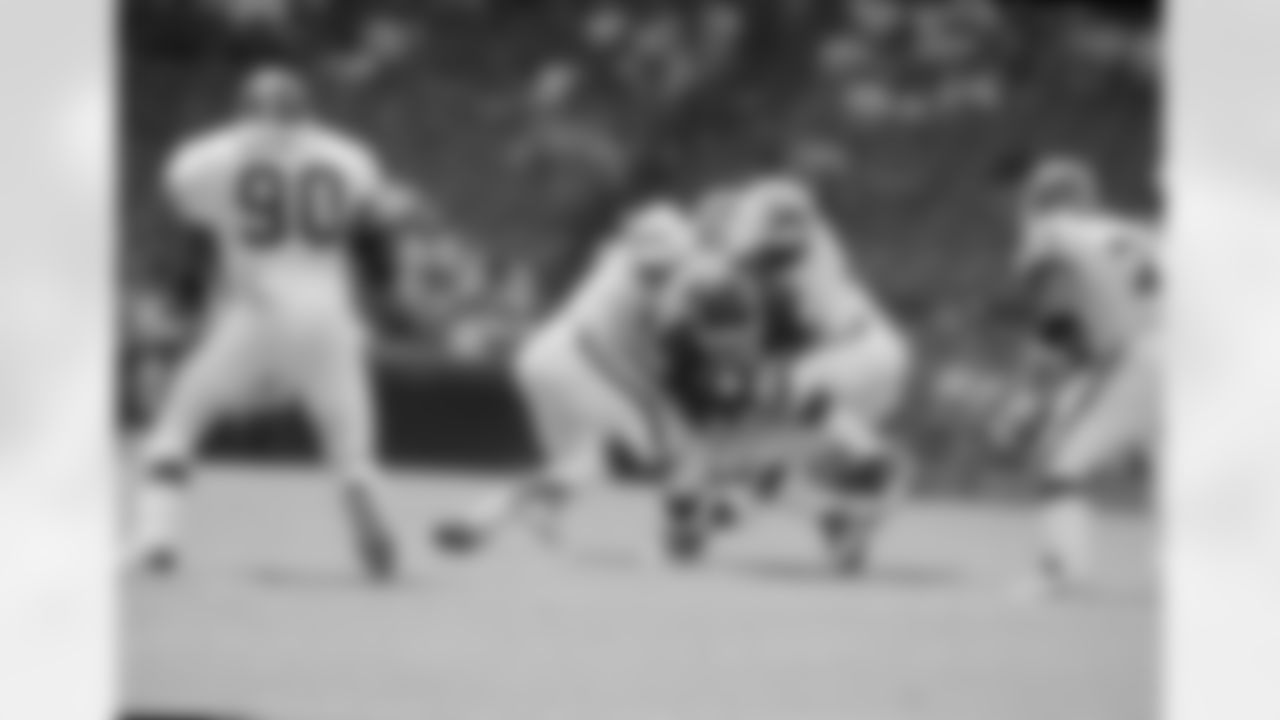
New York Giants running back Gary Downs (45) is hit by two Cleveland Browns defenders after a carry during the NFL preseason game in Cleveland, OH, Aug. 6, 1995. The Giants defeated the Browns 19-13. (Paul Spinelli via AP)

New York Giants center Brian Williams (59) prepares to snap against the Cleveland Browns during the NFL preseason game in Cleveland, OH, Aug. 6, 1995. The Giants defeated the Browns 19-13. (Paul Spinelli via AP)
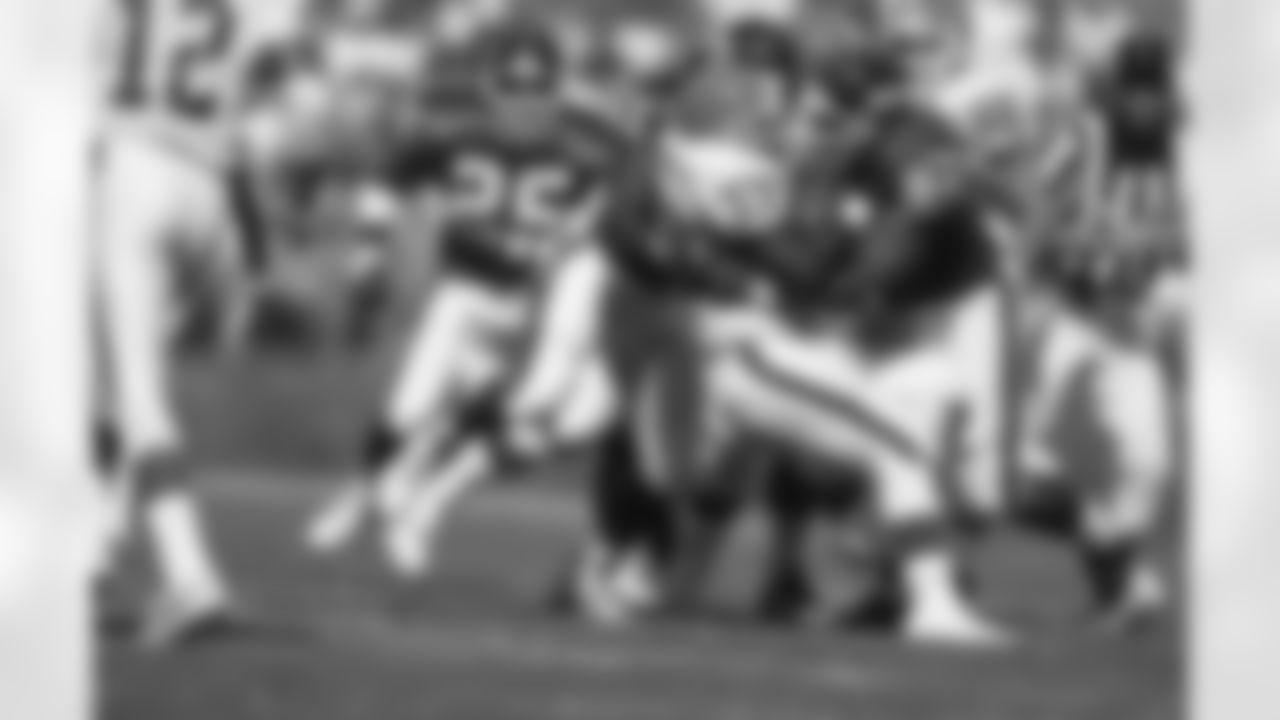
Cleveland Browns fullback Leroy Hoard (33) collides with New York Giants defensive tackle Ray Agnew (93) during the NFL preseason game in Cleveland, OH, Aug. 6, 1995. The Giants defeated the Browns 19-13. (Paul Spinelli via AP)
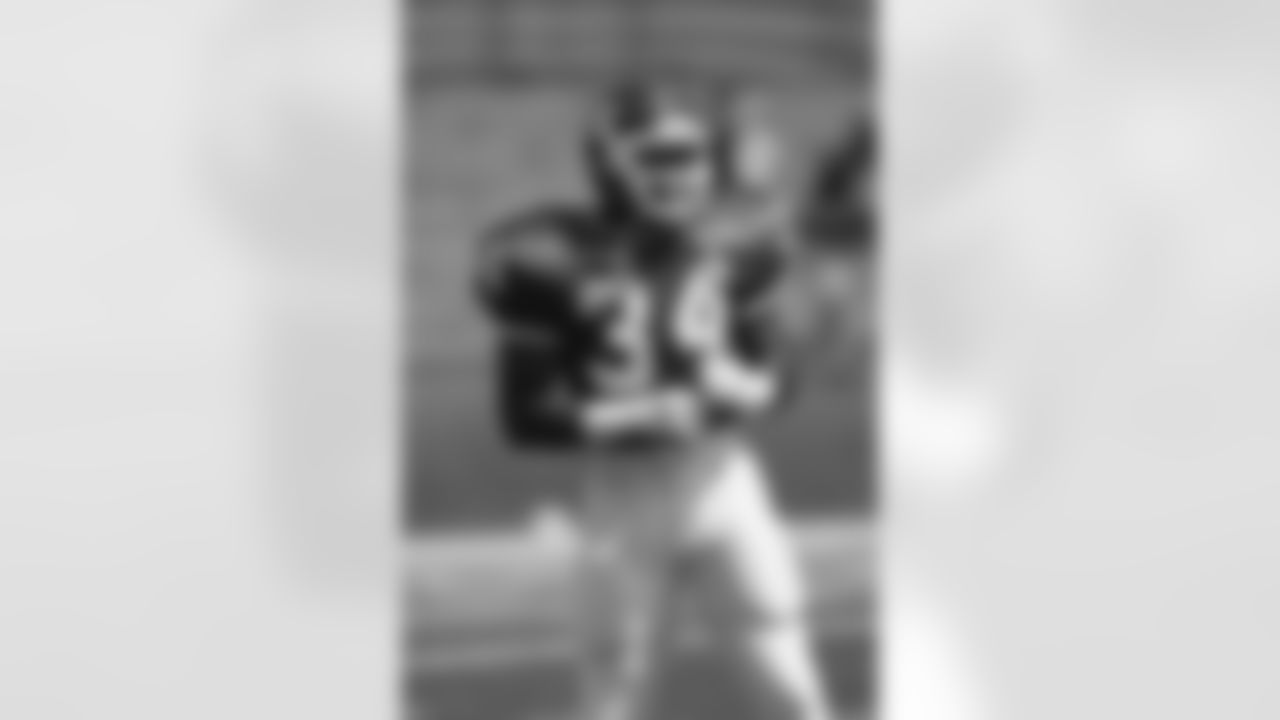
New York Giants running back Herschel Walker (34) takes the field against the Cleveland Browns during the NFL preseason game in Cleveland, OH, Aug. 6, 1995. The Giants defeated the Browns 19-13. (Paul Spinelli via AP)
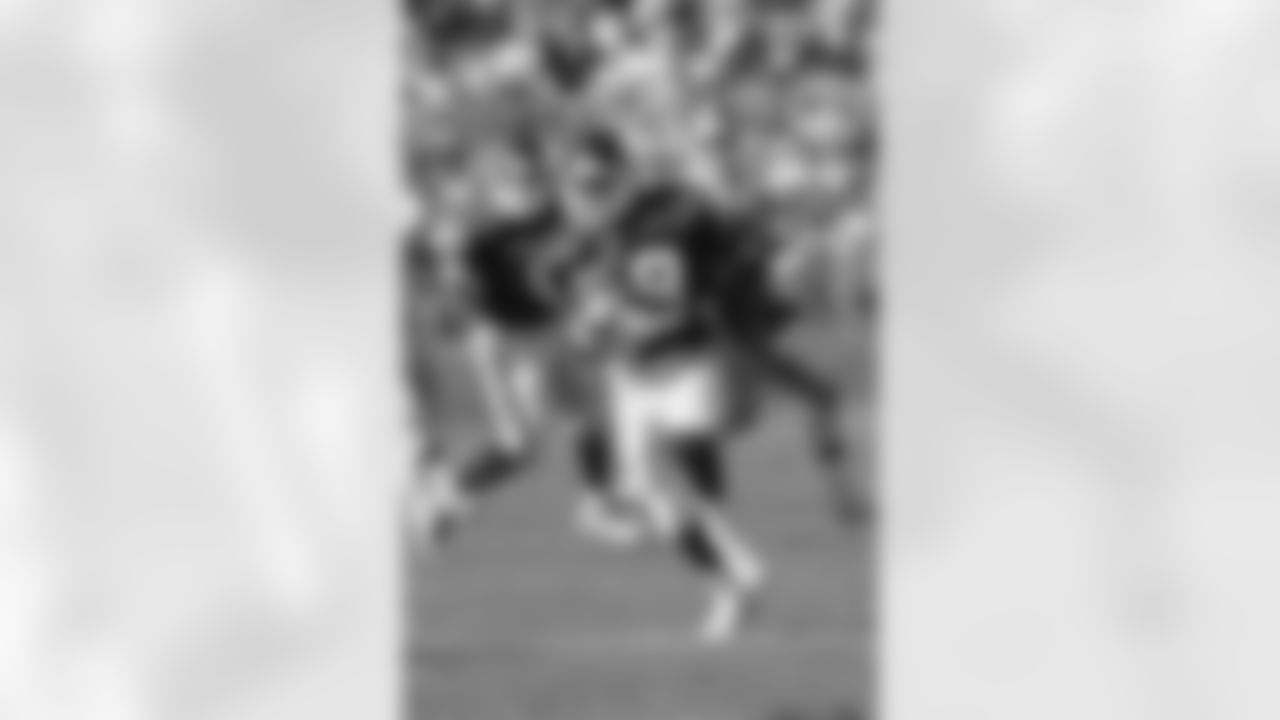
New York Giants wide receiver Gary Harrell (89) takes off with the ball against the Cleveland Browns during the NFL preseason game in Cleveland, OH, Aug. 6, 1995. The Giants defeated the Browns 19-13. (Paul Spinelli via AP)
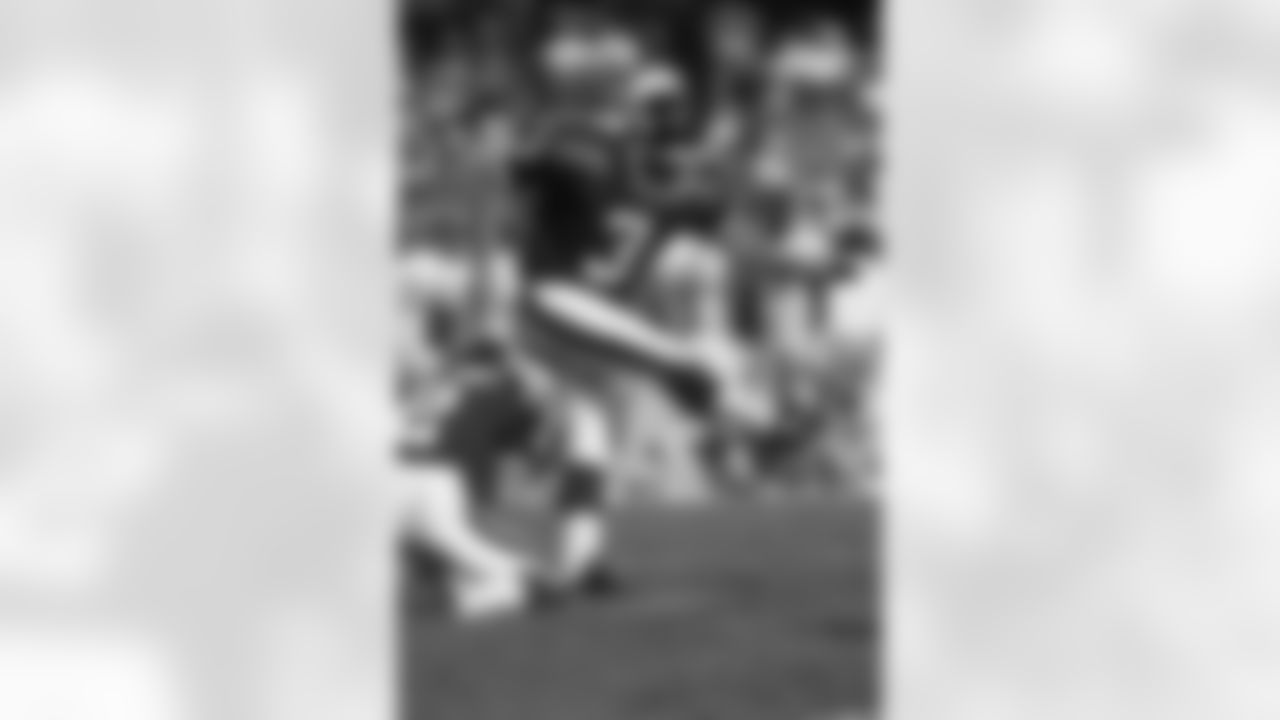
New York Giants kicker Brad Daluiso (3) attempts a field goal against the Cleveland Browns during the NFL preseason game in Cleveland, OH, Aug. 6, 1995. The Giants defeated the Browns 19-13. (Paul Spinelli via AP)

New York Giants quarterback Kerry Collins fires a 32-yard touchdown pass to Amani Toomer in the fourth quarter of the Giant's 24-3 win over the Cleveland Browns Sunday, Nov. 5, 2000, in Cleveland. (AP Photo/Tony Dejak)
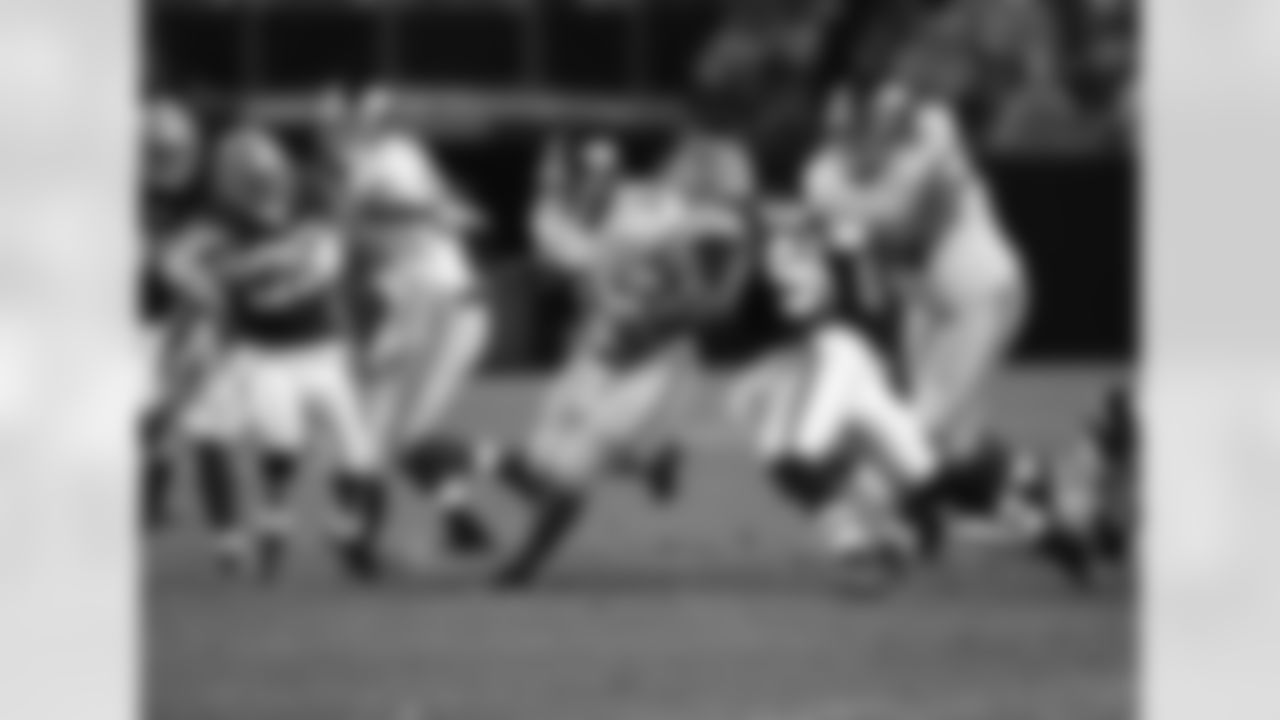
New York Giants running back Derrick Ward (34) runs with the ball as Cleveland Browns linebacker Leon Williams (94) and defensive back Terry Cousin (25) tackle during a NFL football game Monday, Oct. 13, 2008, in Cleveland. (AP Photo/Mark Duncan)
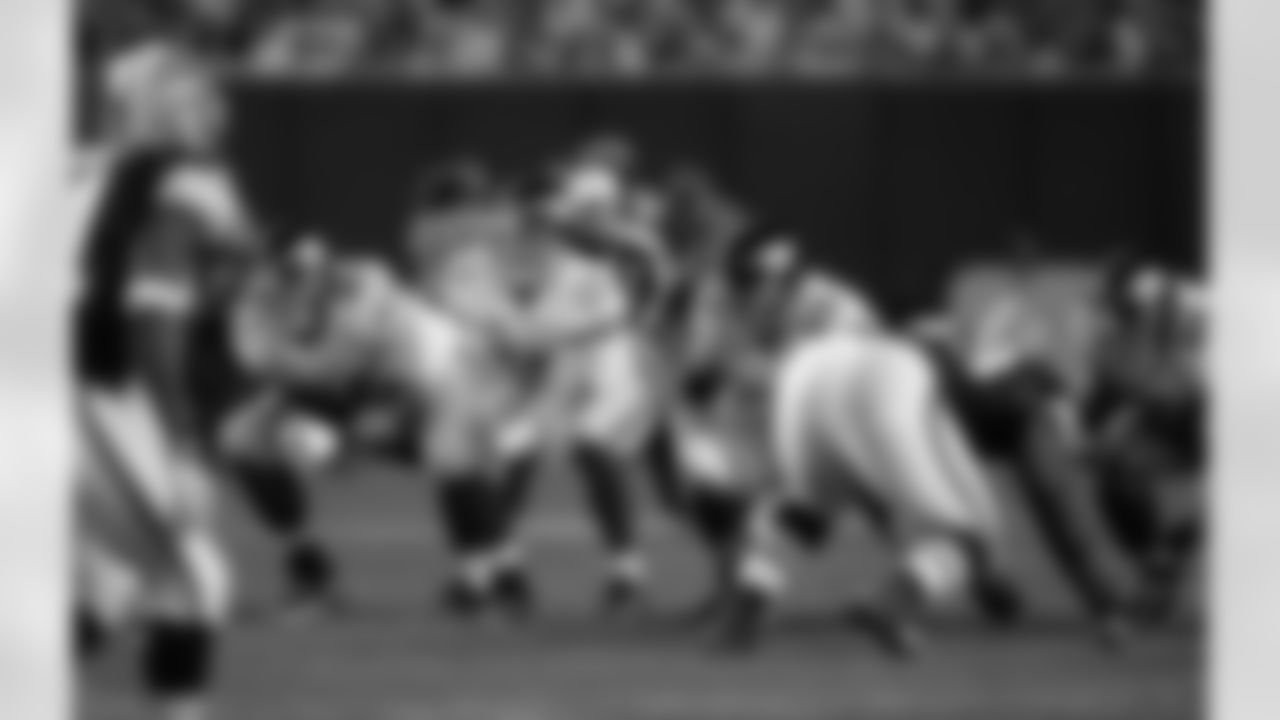
New York Giants center Shaun O'Hara (60)snaps the ball to quarterback Eli Manning (10) during a NFL football game against the Cleveland Browns Monday, Oct. 13, 2008, in Cleveland. (AP Photo/Mark Duncan)
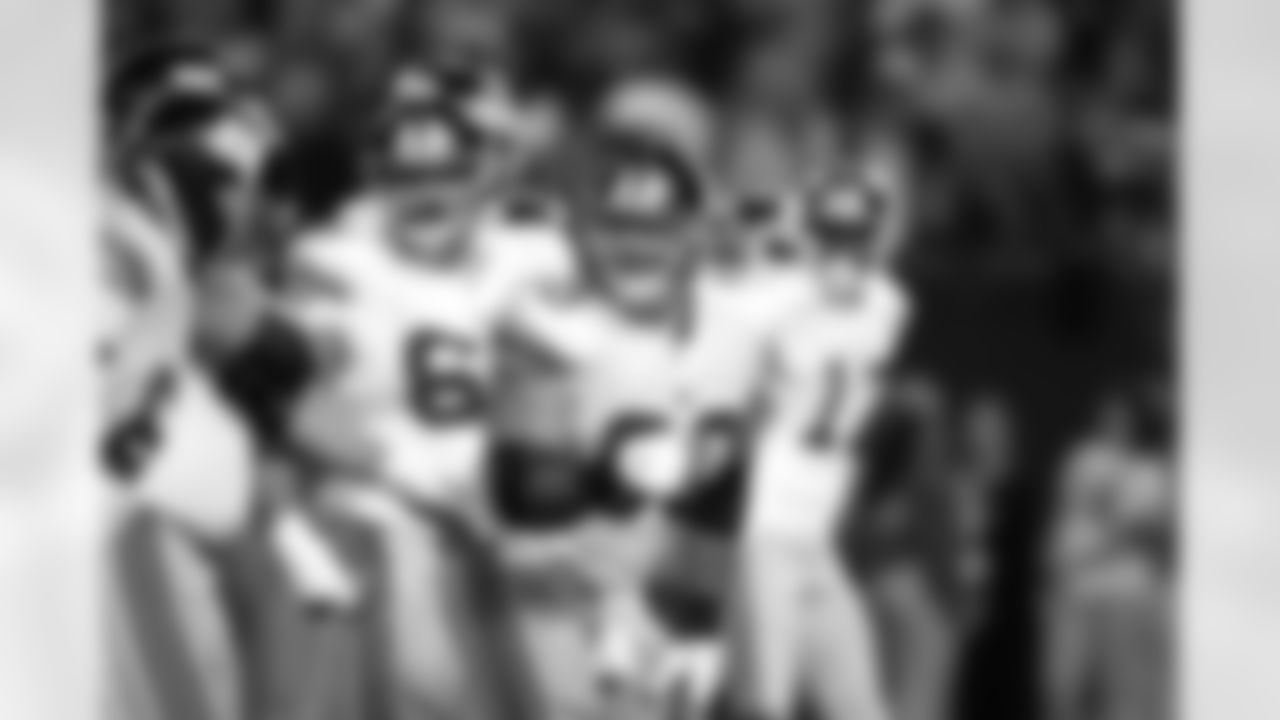
Shaun O'Hara #60 of the New York Giants calls out signals to the offensive line before a play against the Cleveland Browns on October 13, 2008 in Cleveland. The Browns defeated the Giants 35-14. (Joe Robbins via AP)
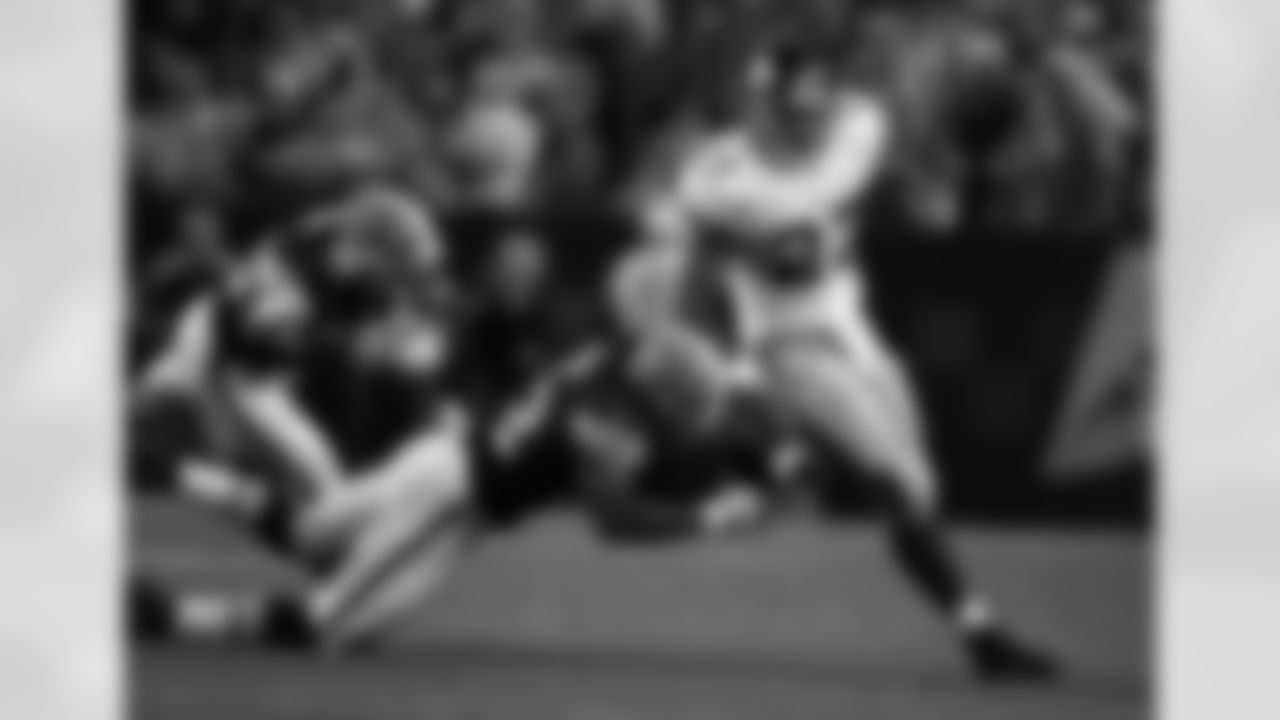
CLEVELAND, OHIO - OCTOBER 13: Running back Brandon Jacobs #27 of the New York Giants breaks around the outside of the tackles against the Cleveland Browns on Monday, October 13, 2008 in Cleveland, Ohio. The Browns won the game 35-14. (AP Photo/Thomas E. Witte) Brandon Jacobs
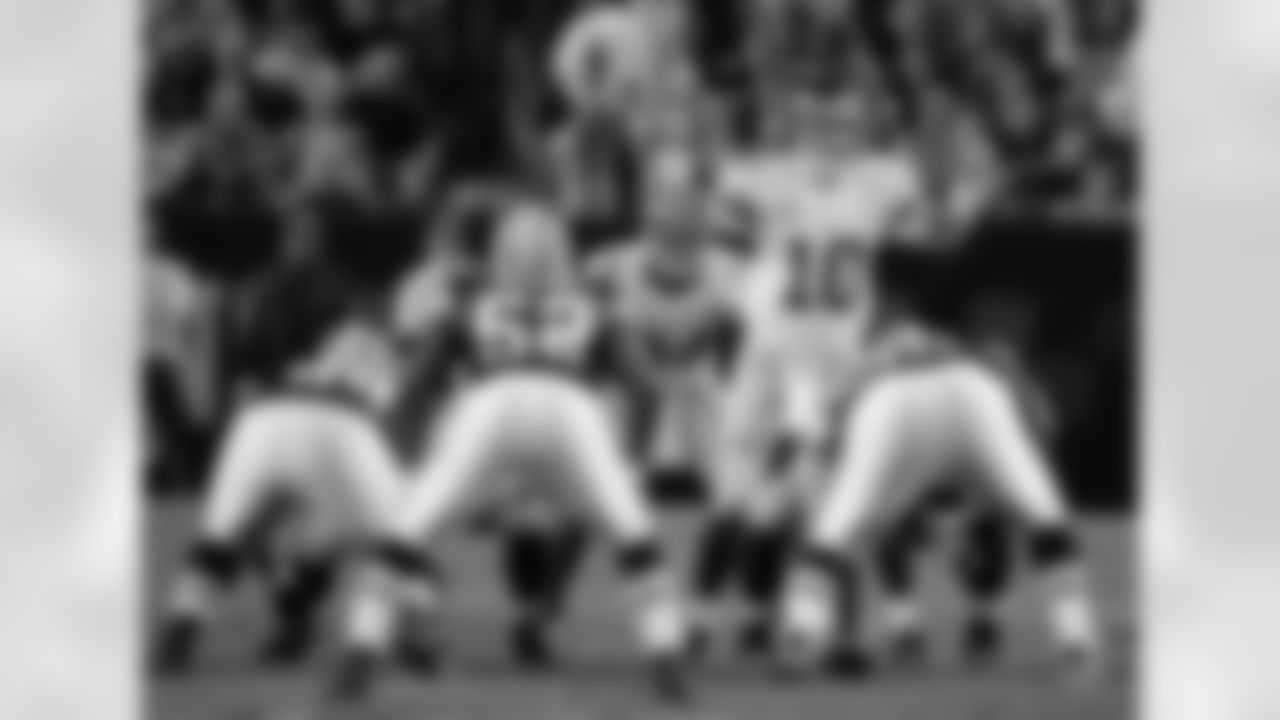
New York Giants quarterback Eli Manning (10) calls out a play during an NFL football game against the Cleveland Browns Monday, Oct. 13, 2008, in Cleveland. (AP Photo/Amy Sancetta)
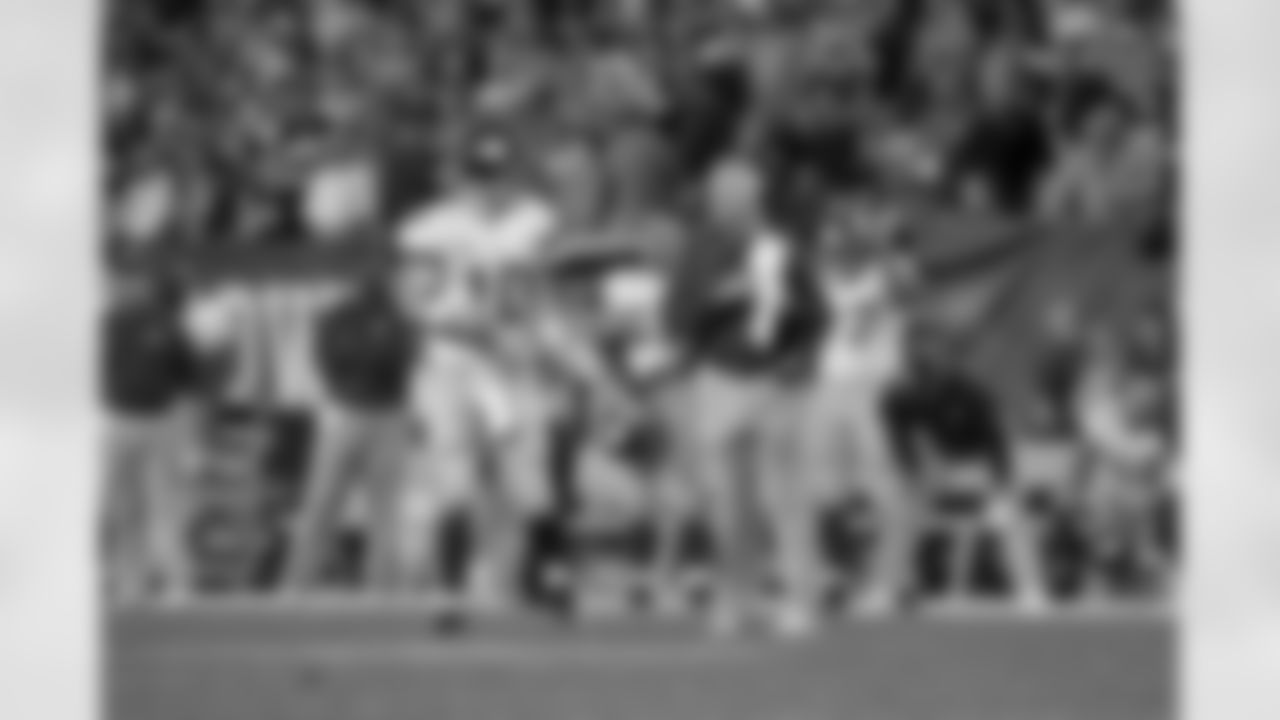
Eli Manning #10 of the New York Giants gets instructions from quarterbacks coach Kevin Gilbride during a game against the Cleveland Browns at Paul Brown Stadium on October 13, 2008 in Cleveland, Ohio. The Browns defeated the Giants 35-14. (AP Photo/G. Newman Lowrance)
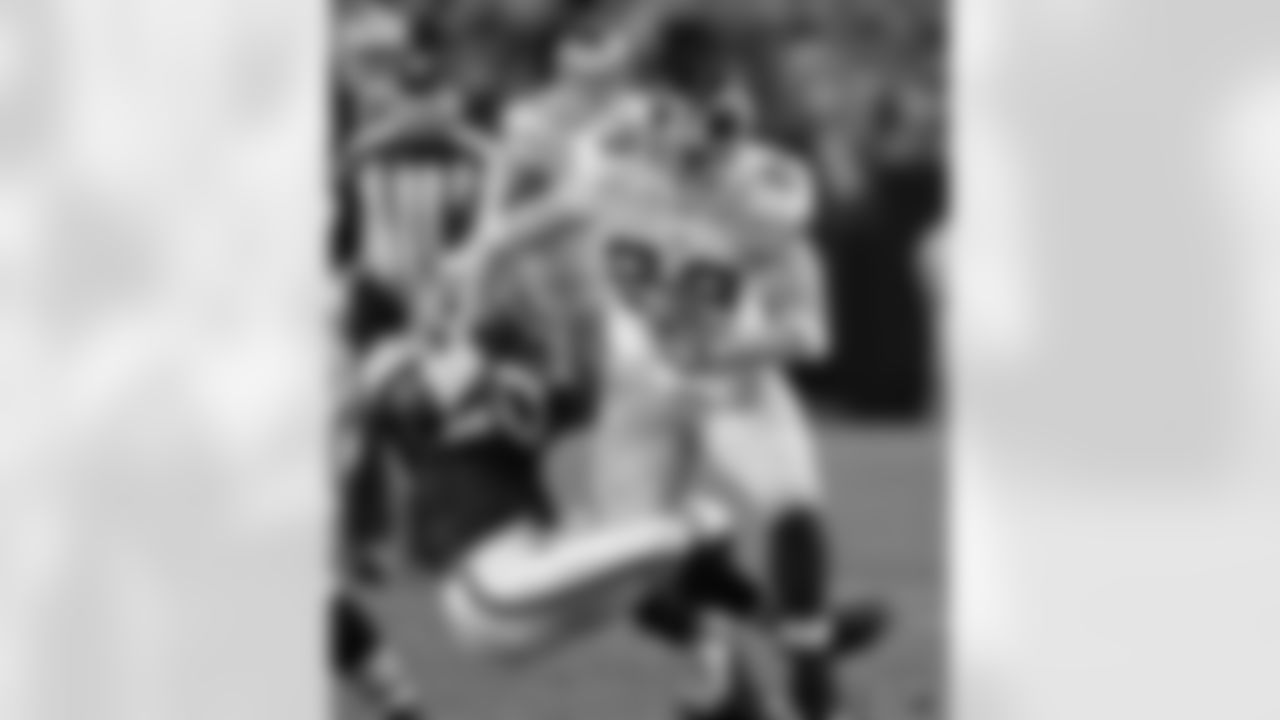
FILE In this Oct. 13, 2008 file photo, New York Giants tight end Kevin Boss (89) breaks away from Cleveland Browns safety Mike Adams during an NFL football game in Cleveland. Thrust into a starting role when the Super Bowl champions traded the disgruntled tight end Jeremy Shockey to New Orleans on the eve of training camp, Boss has made the deal that sent the four-time Pro Bowler to the Saints look like a steal for general manager Jerry Reese. (AP Photo/Amy Sancetta)

New York Giants running back Derrick Ward (34) is tackled by Cleveland Browns linebacker D'Qwell Jackson during an NFL football game Monday, Oct. 13, 2008, in Cleveland. (AP Photo/Amy Sancetta)
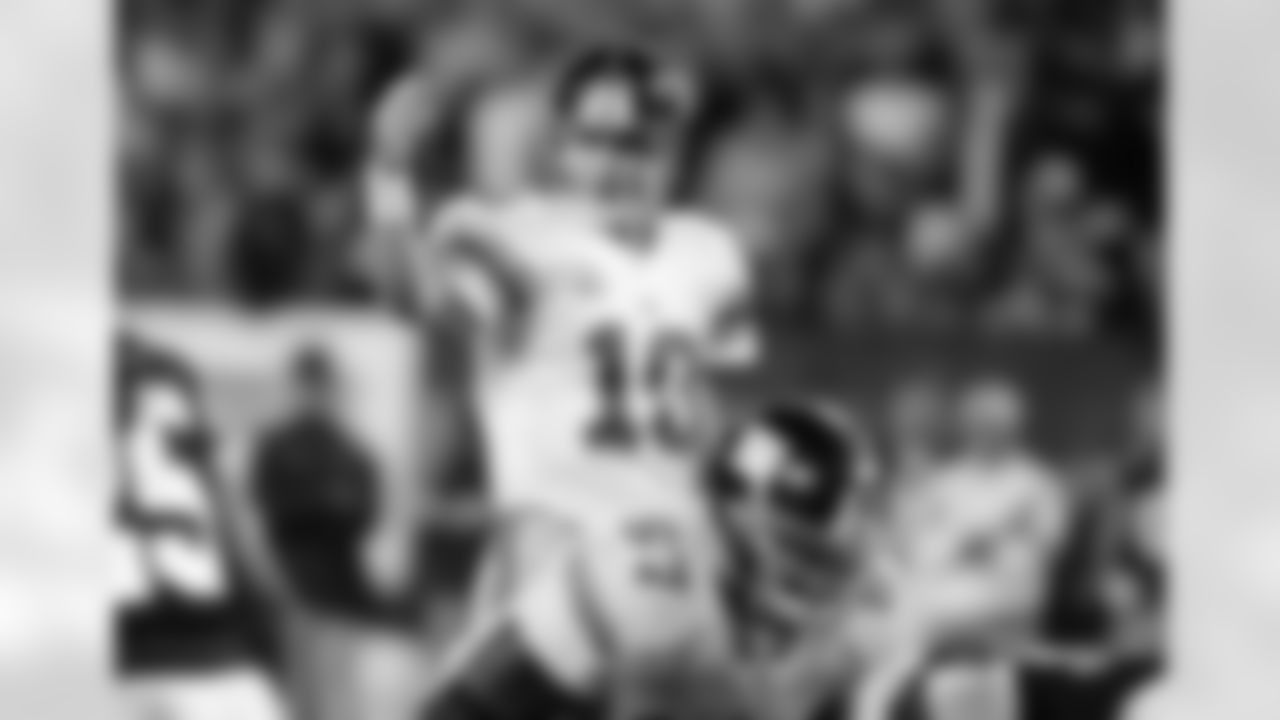
New York Giants quarterback Eli Manning (10) calls out a play during an NFL football game Monday, Oct. 13, 2008, in Cleveland. (AP Photo/Amy Sancetta)
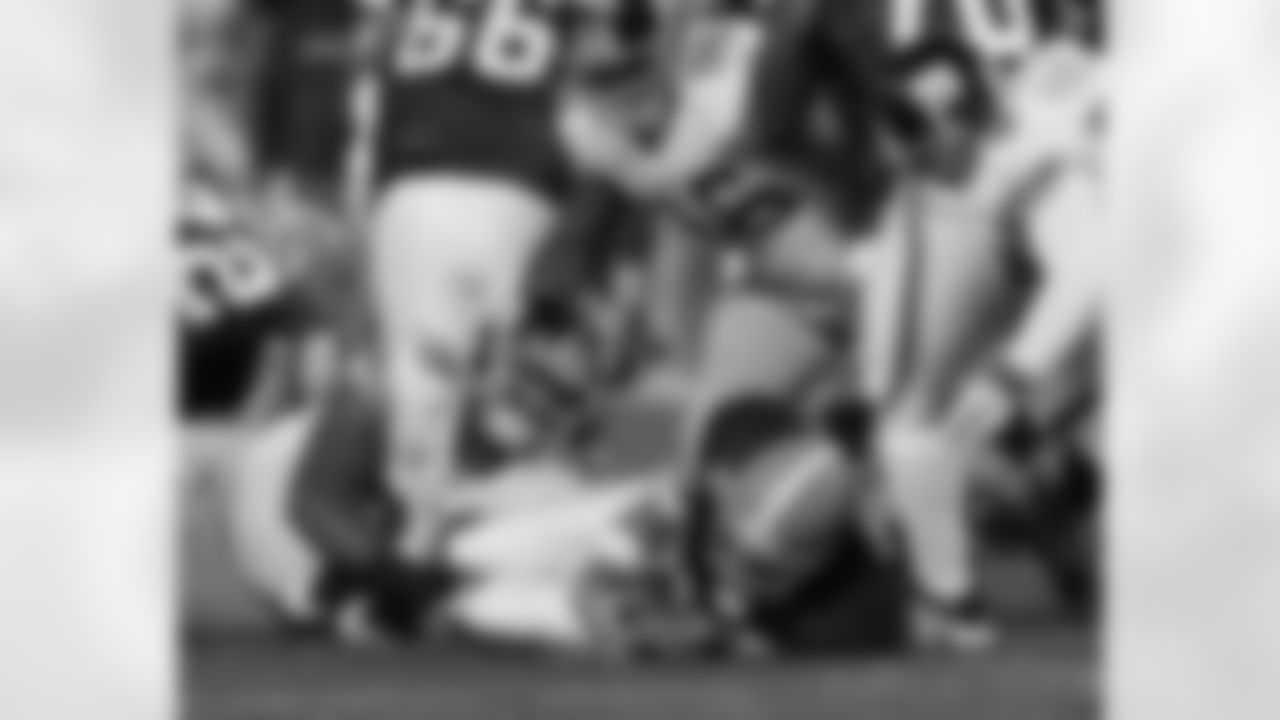
Cleveland Browns quarterback Derek Anderson (3) holds onto the ball as he's tackled by New York Giants defensive tackle Fred Robbins (98) during an NFL football game Monday, Oct. 13, 2008, in Cleveland. (AP Photo/Tony Dejak)
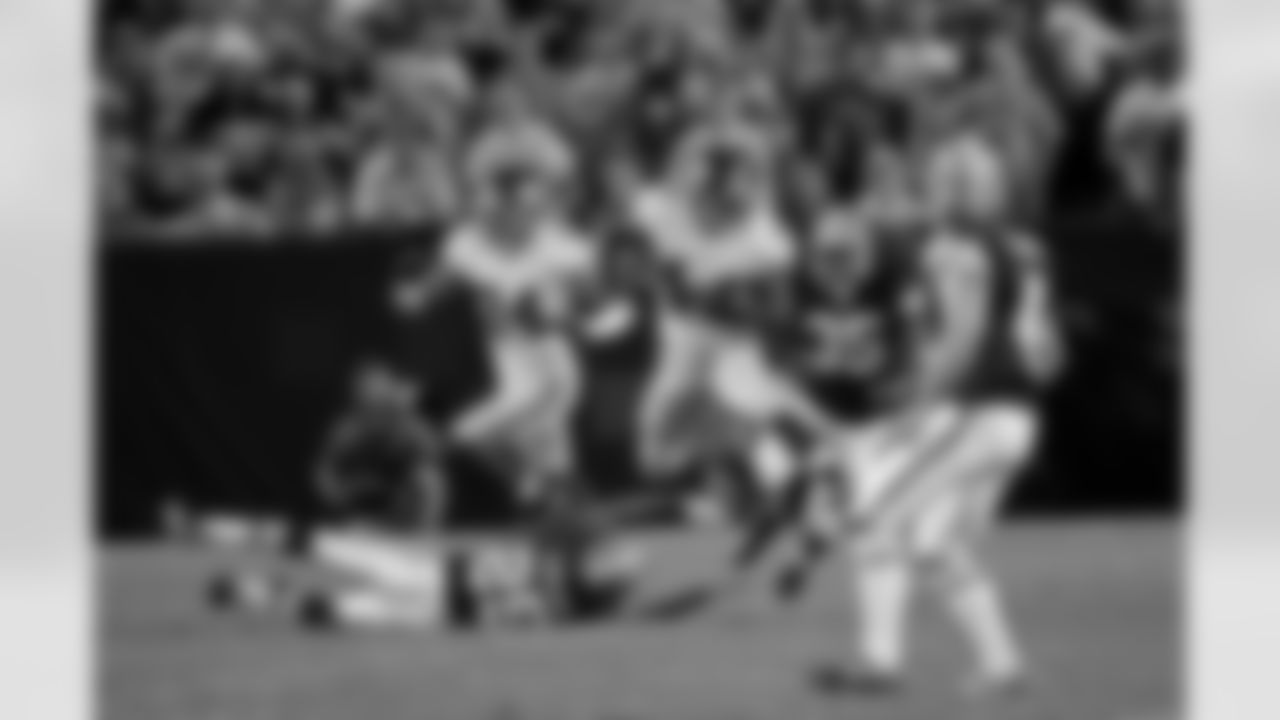
New York Giants' Ahmad Bradshaw (44) avoids Cleveland Browns defensive back Terry Cousin (25) on a kick return during an NFL football game Monday, Oct. 13, 2008, in Cleveland. (AP Photo/Amy Sancetta)
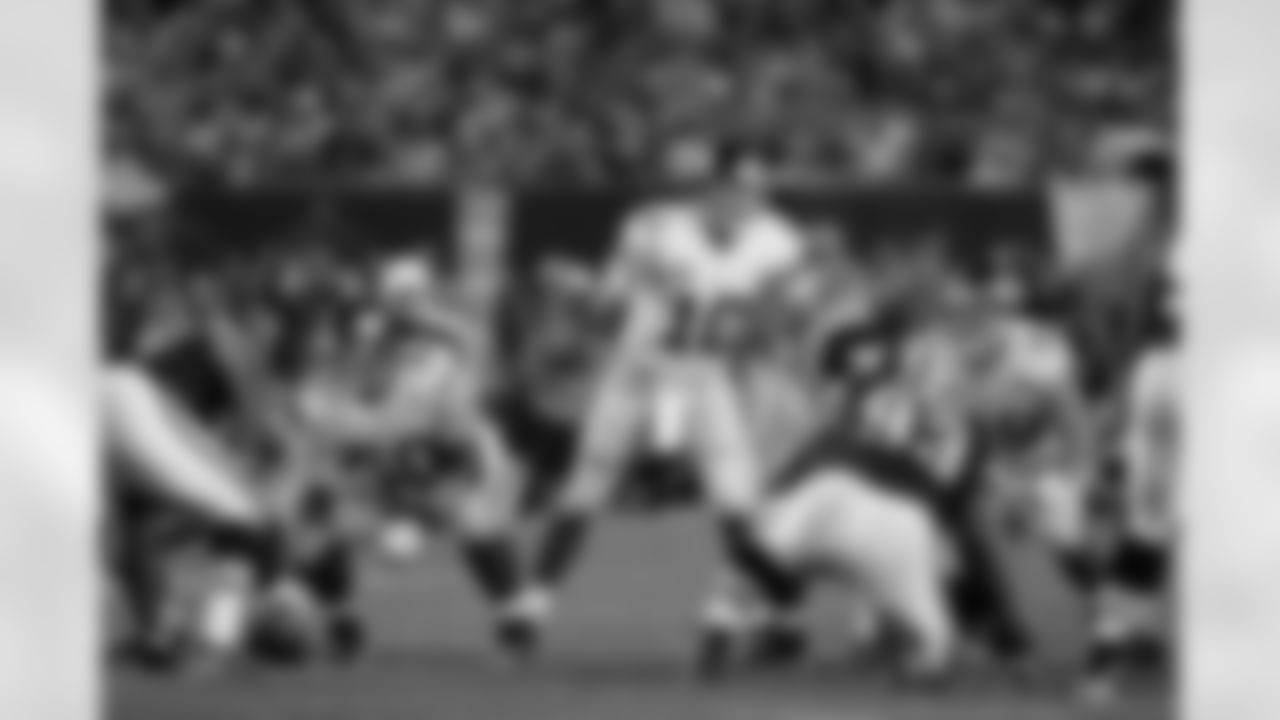
New York Giants quarterback Eli Manning (10) changes the play at the line of scrimmage during an NFL football game against the Cleveland Browns Monday, Oct. 13, 2008, in Cleveland. (AP Photo/Mark Duncan)
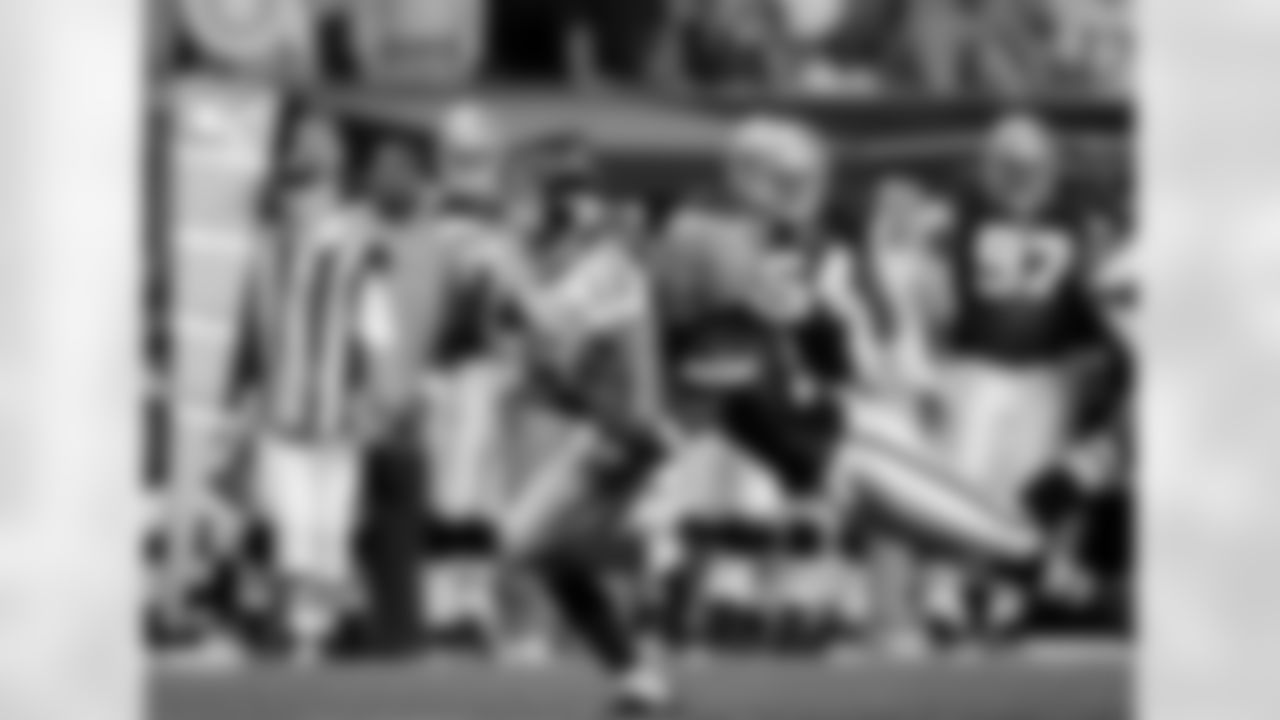
New York Giants wide receiver Steve Smith (12) is tackled by Cleveland Browns safety Brodney Pool (21) during an NFL football game Monday, Oct. 13, 2008, in Cleveland. (AP Photo/Amy Sancetta)
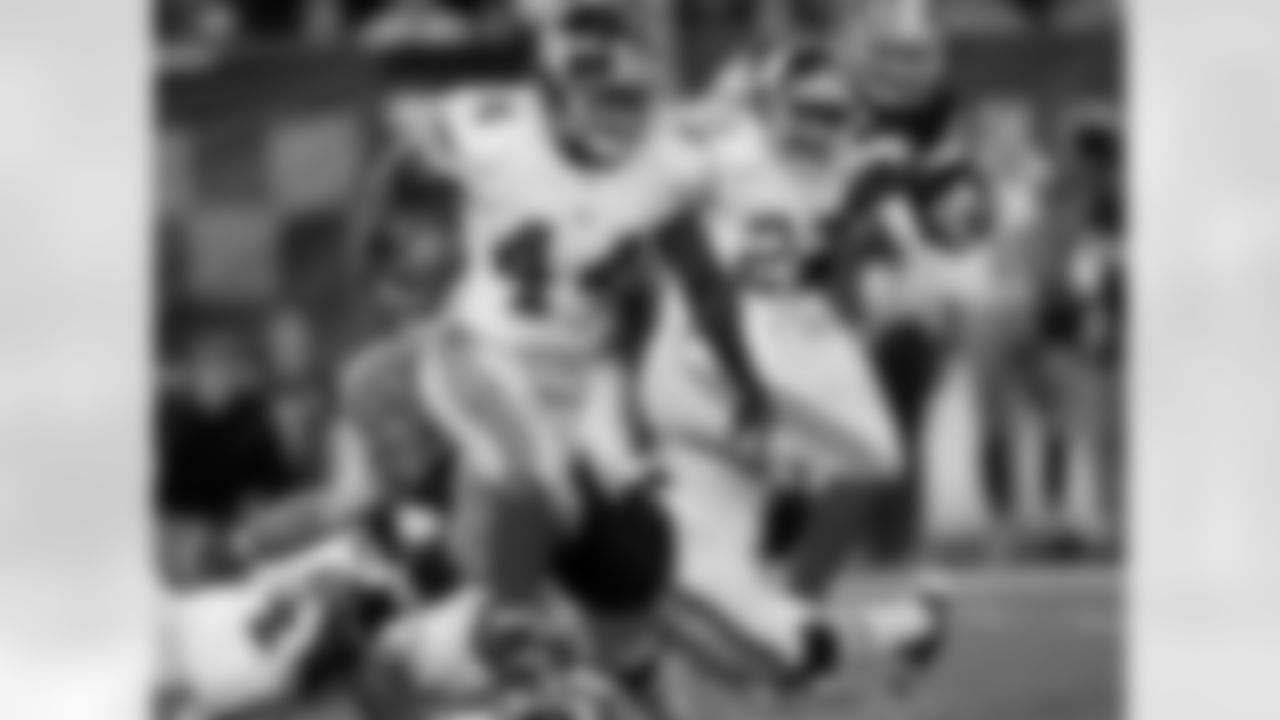
New York Giants running back Ahmad Bradshaw (44) returns a kick against the Cleveland Browns in an NFL football game Monday, Oct. 13, 2008, in Cleveland. (AP Photo/Mark Duncan)
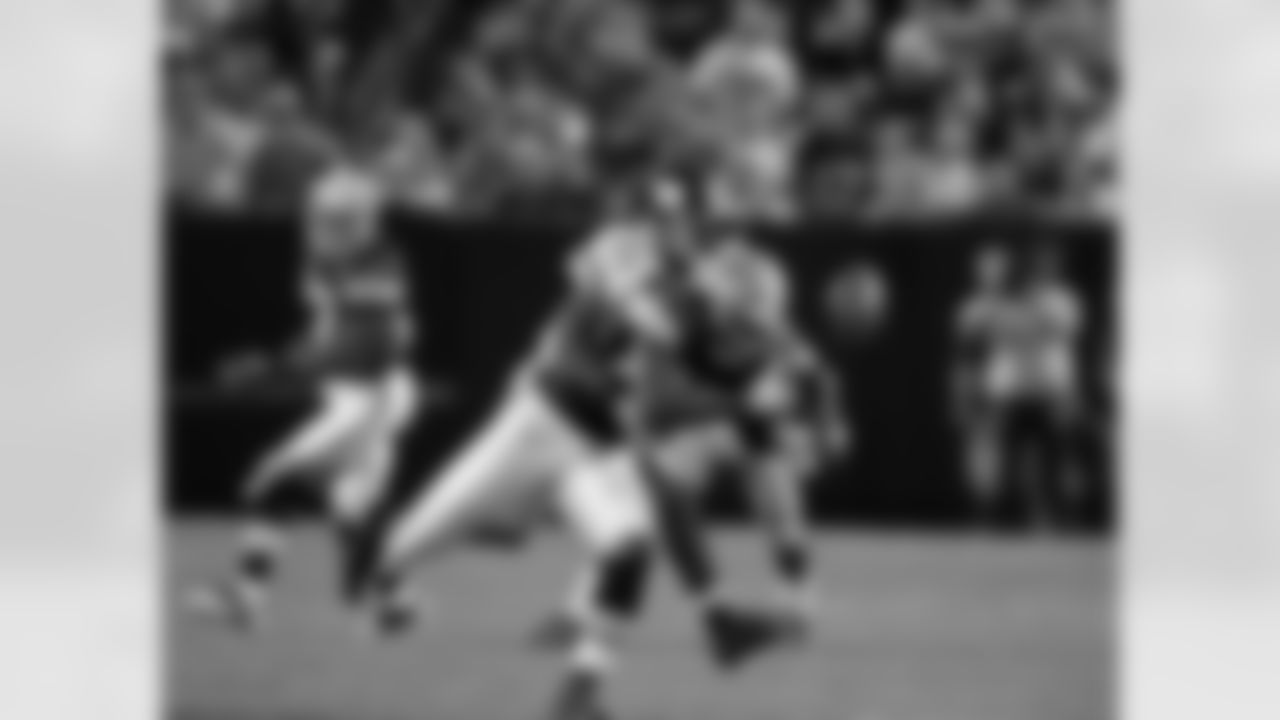
New York Giants cornerback Aaron Ross (31) breaks up a pass tp Cleveland Browns tight end Darnell Dinkins (87) during an NFL football game Monday, Oct. 13, 2008, in Cleveland. (AP Photo/Amy Sancetta)
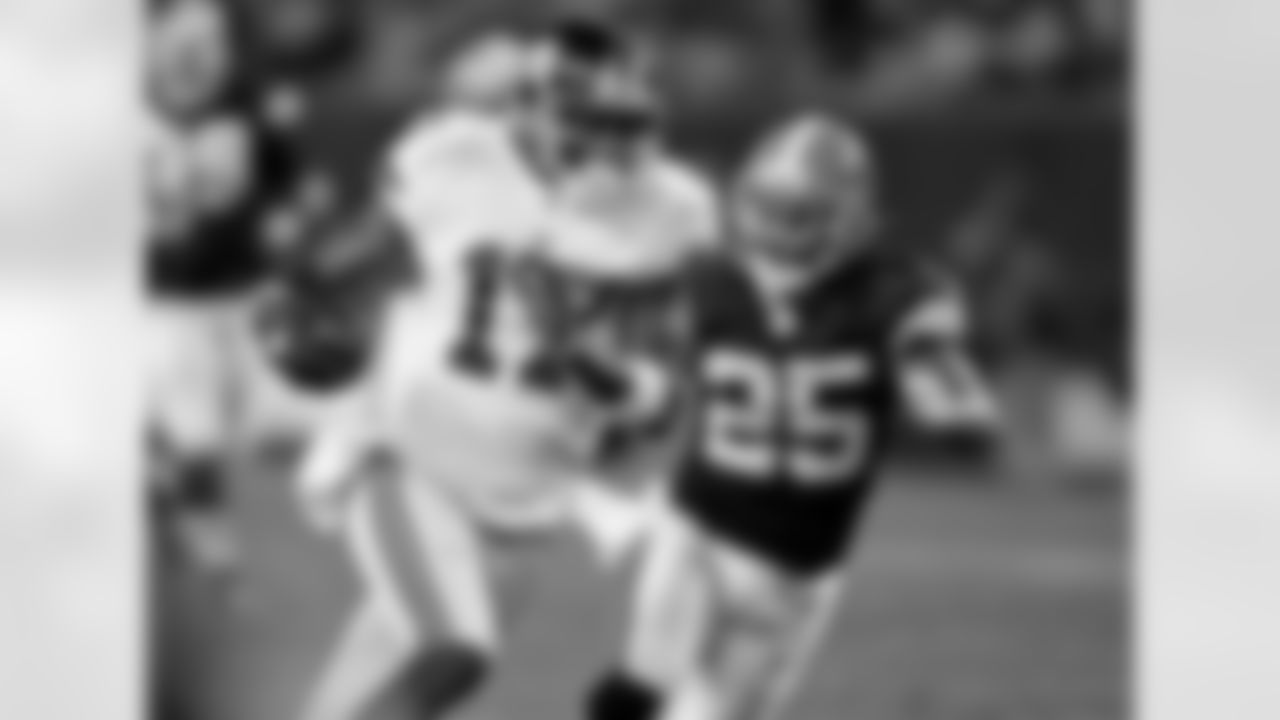
New York Giants wide receiver Plaxico Burress (17) runs with a pass against Cleveland Browns defensive back Terry Cousin (25) during an NFL football game Monday, Oct. 13, 2008, in Cleveland. (AP Photo/Mark Duncan)
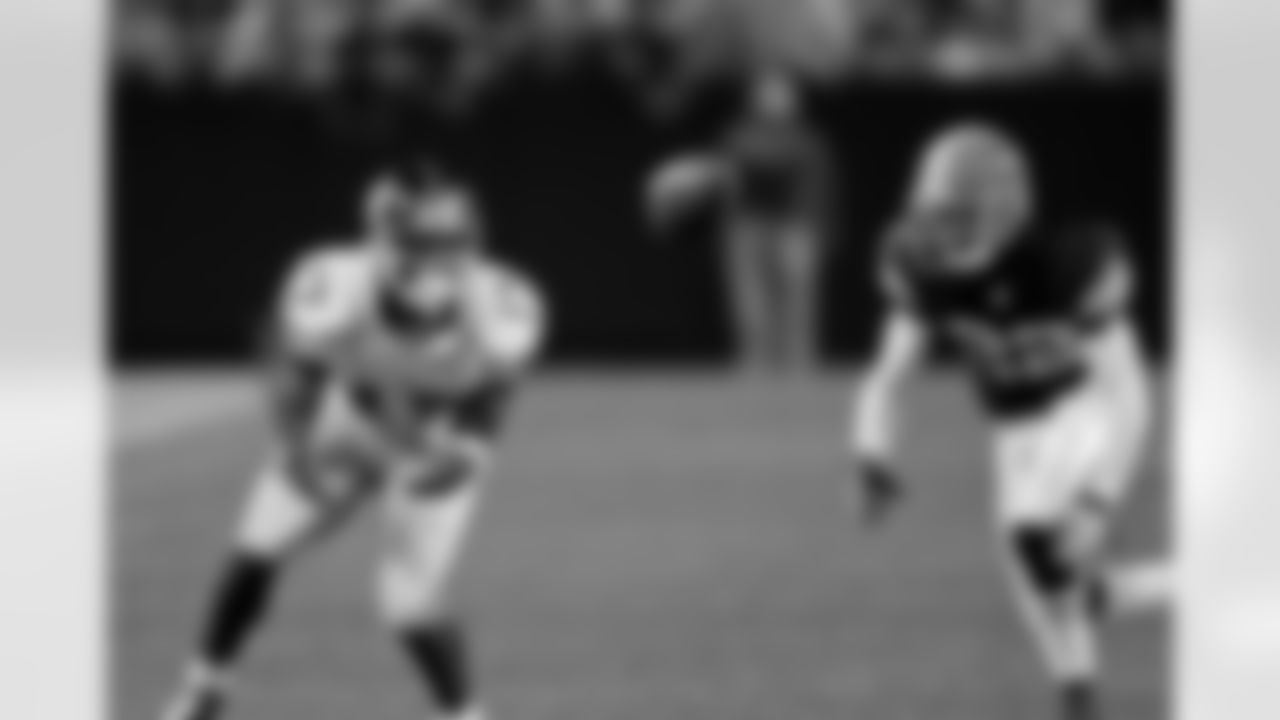
New York Giants wide receiver Plaxico Burress (17) waits for a pass as Cleveland Browns defensive back Brandon McDonald (22) defends during an NFL football game Monday, Oct. 13, 2008, in Cleveland. (AP Photo/Tony Dejak)
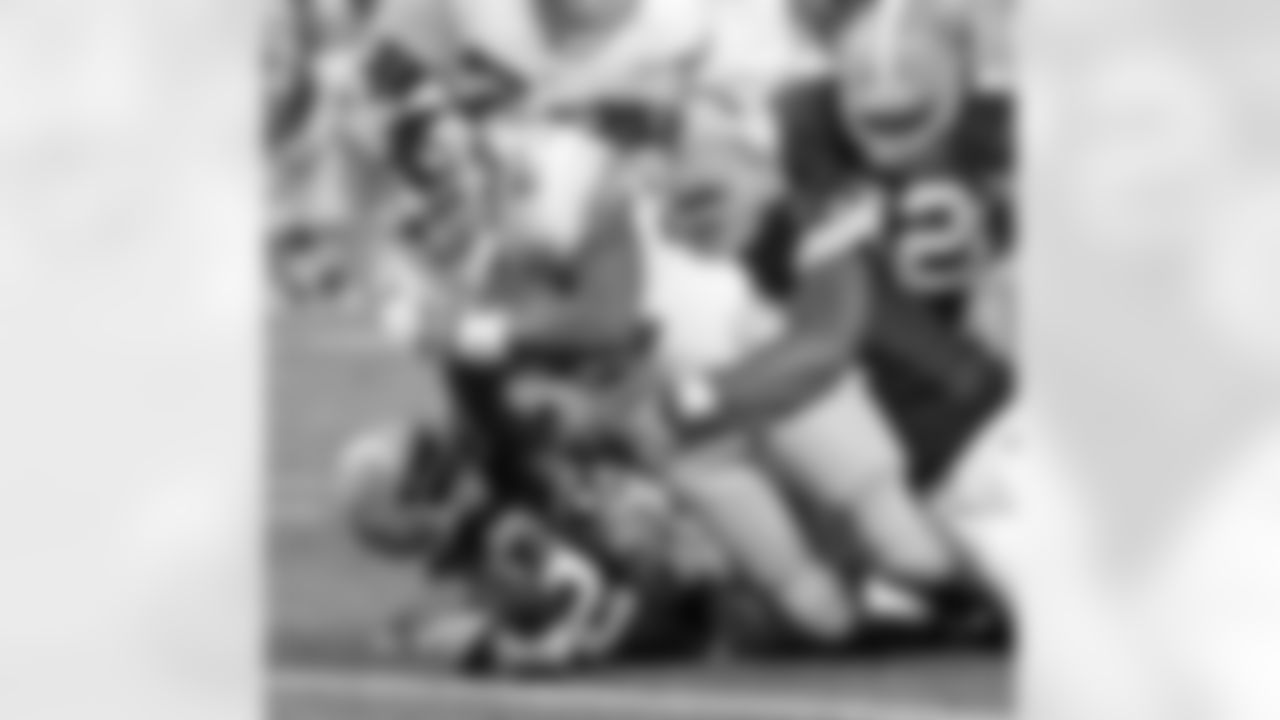
New York Giants running back Brandon Jacobs (27) dives into the end zone in the arms of Cleveland Browns linebacker Andra Davis on a 7-yard touchdown run in the second quarter of an NFL football game Monday, Oct. 13, 2008, in Cleveland. (AP Photo/Amy Sancetta)
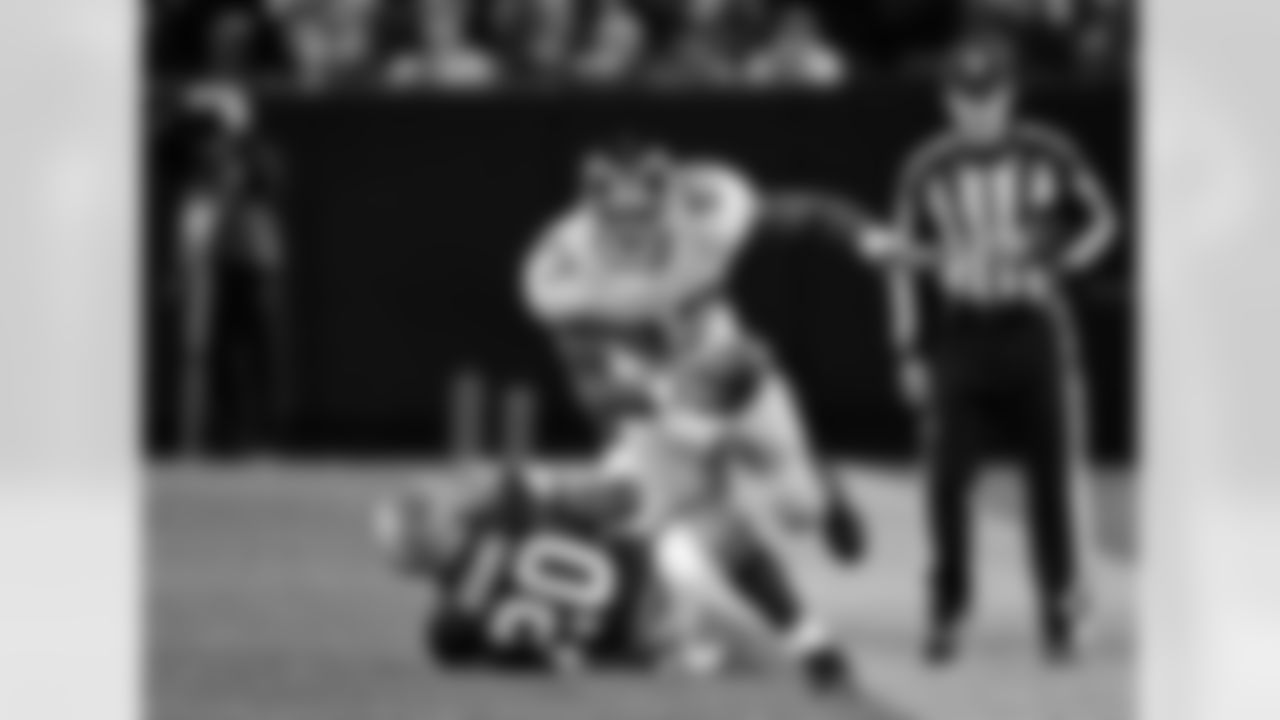
New York Giants running back Brandon Jacobs (27) eludes Cleveland Browns safety Mike Adams (20) on a run during an NFL football game Monday, Oct. 13, 2008, in Cleveland. (AP Photo/Mark Duncan)
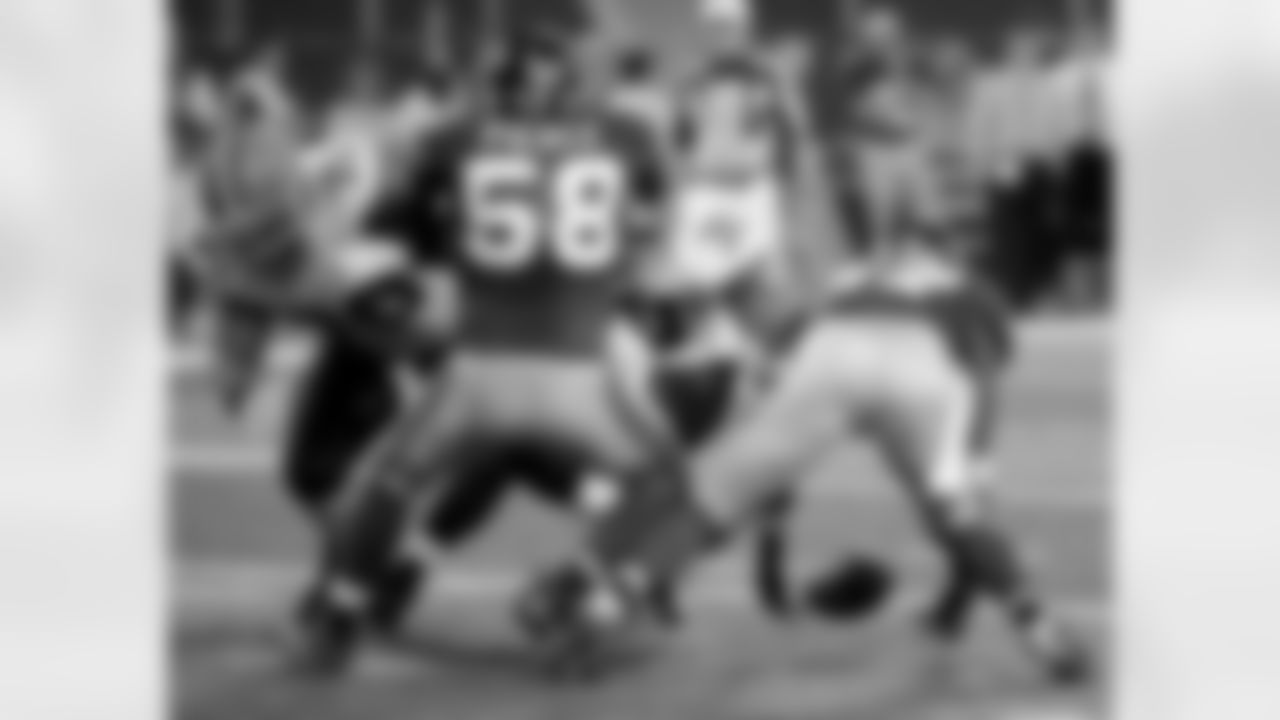
New York Giants safety James Butler, right, picks up a Cleveland Browns fumble as Giants linebacker Antonio Pierce blocks Browns lineman Rex Hadnot (70) and running back Jamal Lewis during the second quarter of an NFL preseason football game Monday, Aug. 18, 2008 at Giants Stadium in East Rutherford, N.J. (AP Photo/Bill Kostroun)
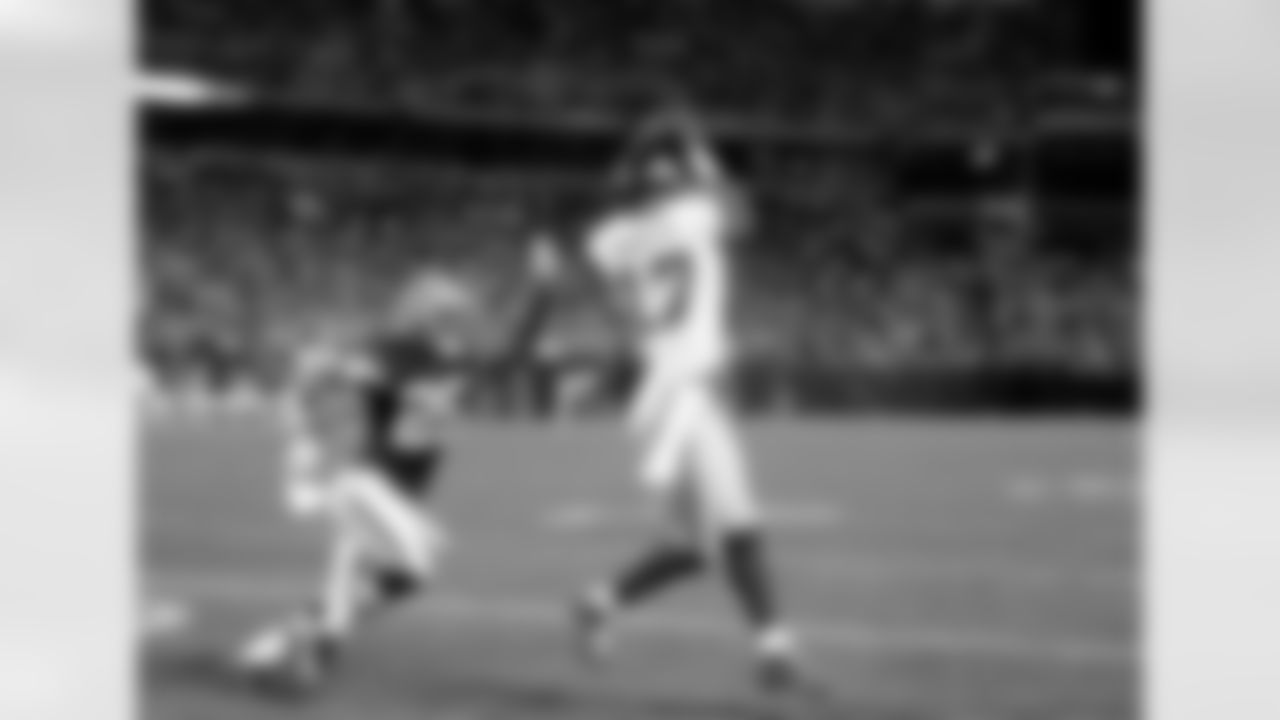
New York Giants wide receiver Plaxico Burress (17) catches a touchdown pass against Cleveland Browns defensive back Terry Cousin (25) in an NFL football game Monday, Oct. 13, 2008, in Cleveland. (AP Photo/Amy Sancetta)
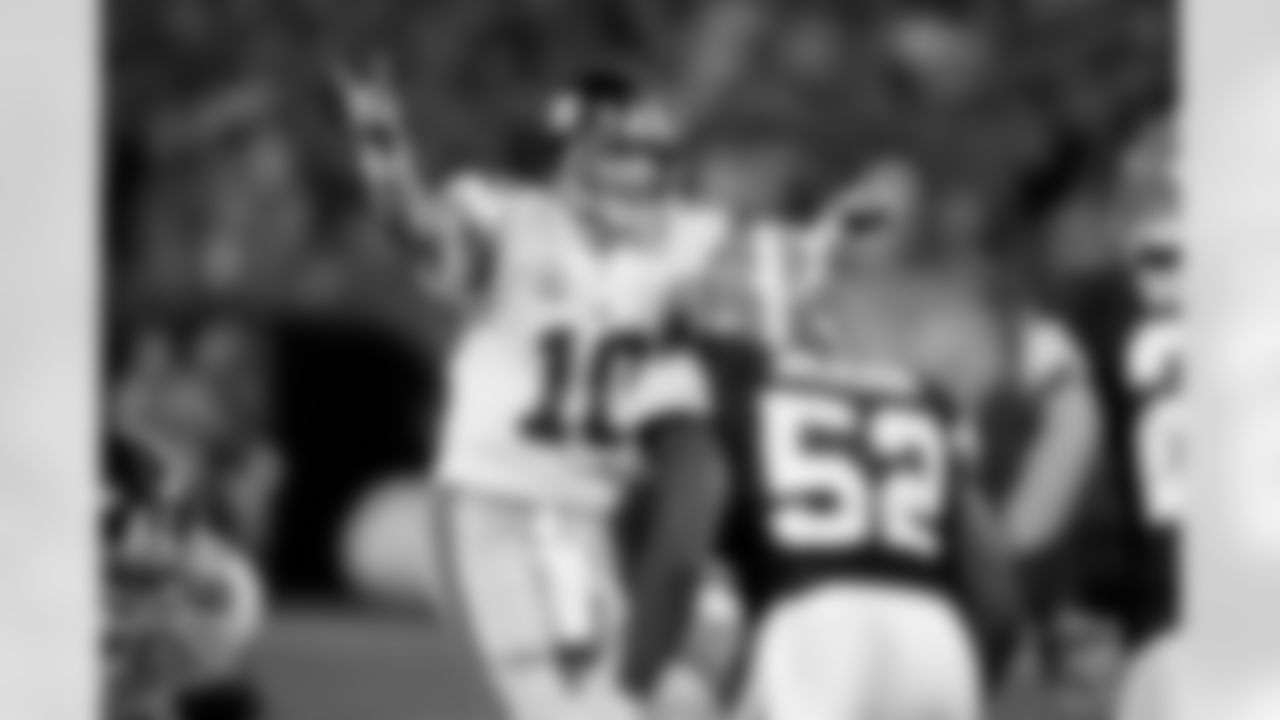
New York Giants quarterback Eli Manning calls a play at the line of scrimmage during an NFL football game against the Cleveland Browns Monday, Oct. 13, 2008, in Cleveland. (AP Photo/Mark Duncan)
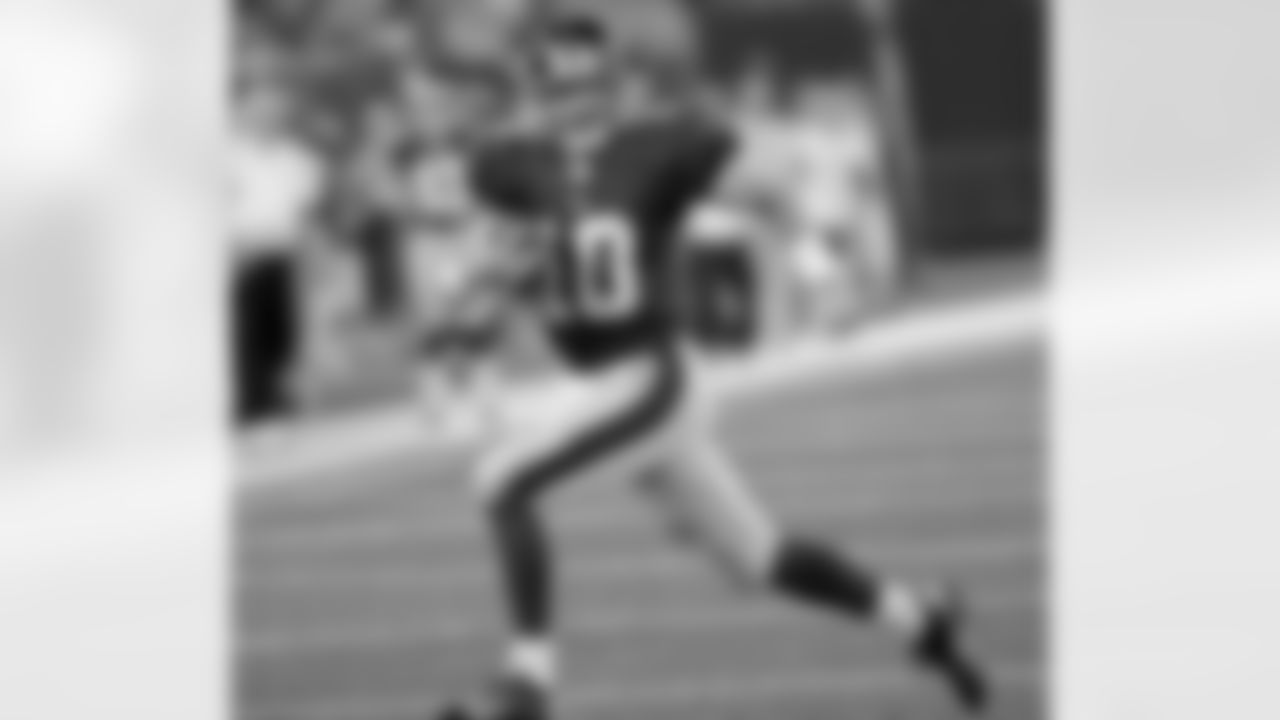
New York Giants quarterback Eli Manning scrambles during the first quarter of a NFL pre-season football game against the Cleveland Browns Monday night, Aug. 18, 2008 at Giants Stadium in East Rutherford, N.J. (AP Photo/Bill Kostroun)
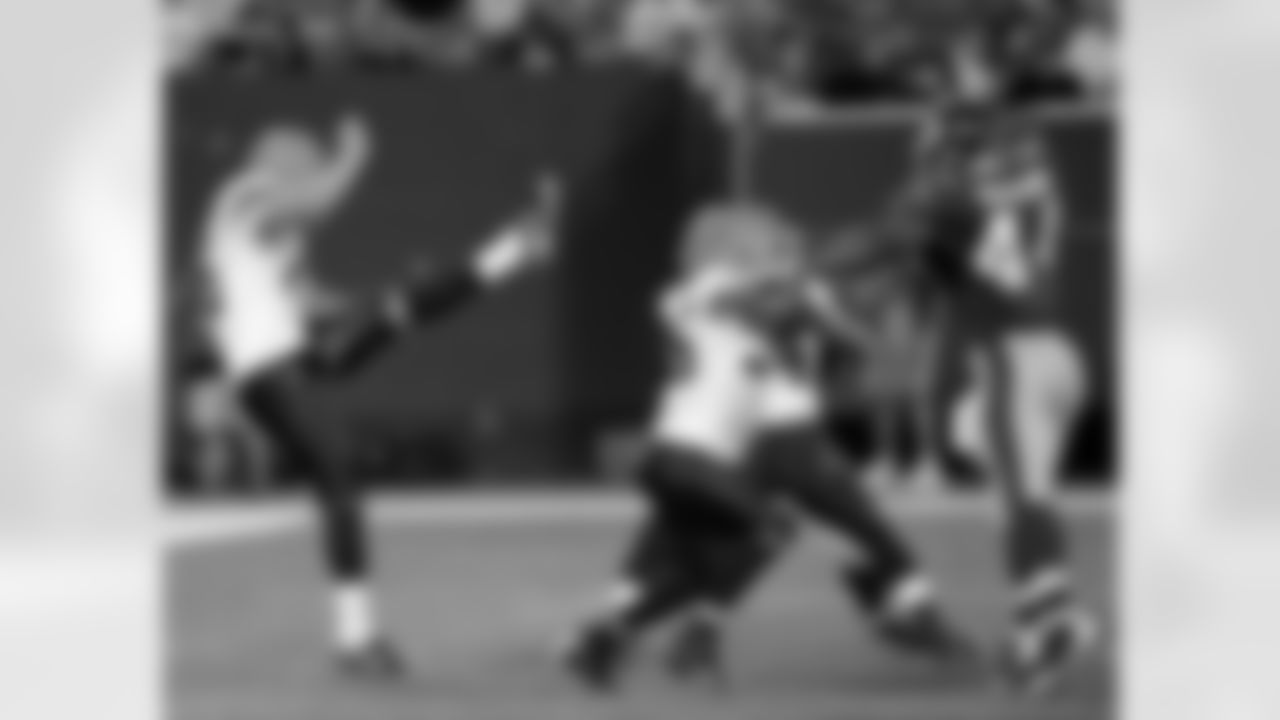
Cleveland Browns punter Dave Zastudil, left, punts the ball into one of his teammates resulting in a safety in the first quarter of an NFL preseason football game against the New York Giants Monday night, Aug. 18, 2008 at Giants Stadium in East Rutherford, N.J. (AP Photo/Bill Kostroun)
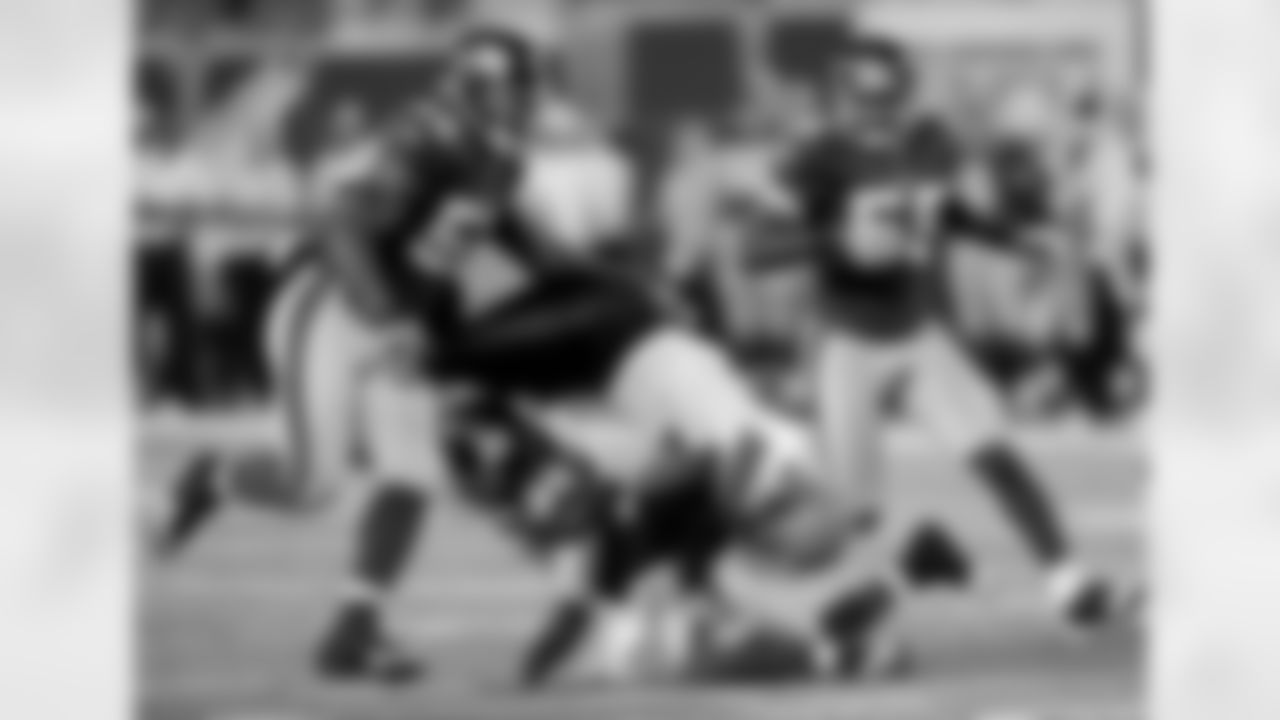
New York Giants defensive back Stuart Schwigert (38) tackles Cleveland Browns tight end Darnell Dinkins as Giants linebackers Tank Daniels, left, and Danny Calrk, right, look on during the fourth quarter of an NFL preseason football game Monday night, Aug. 18, 2008, at Giants Stadium in East Rutherford, N.J. (AP Photo/Bill Kostroun)
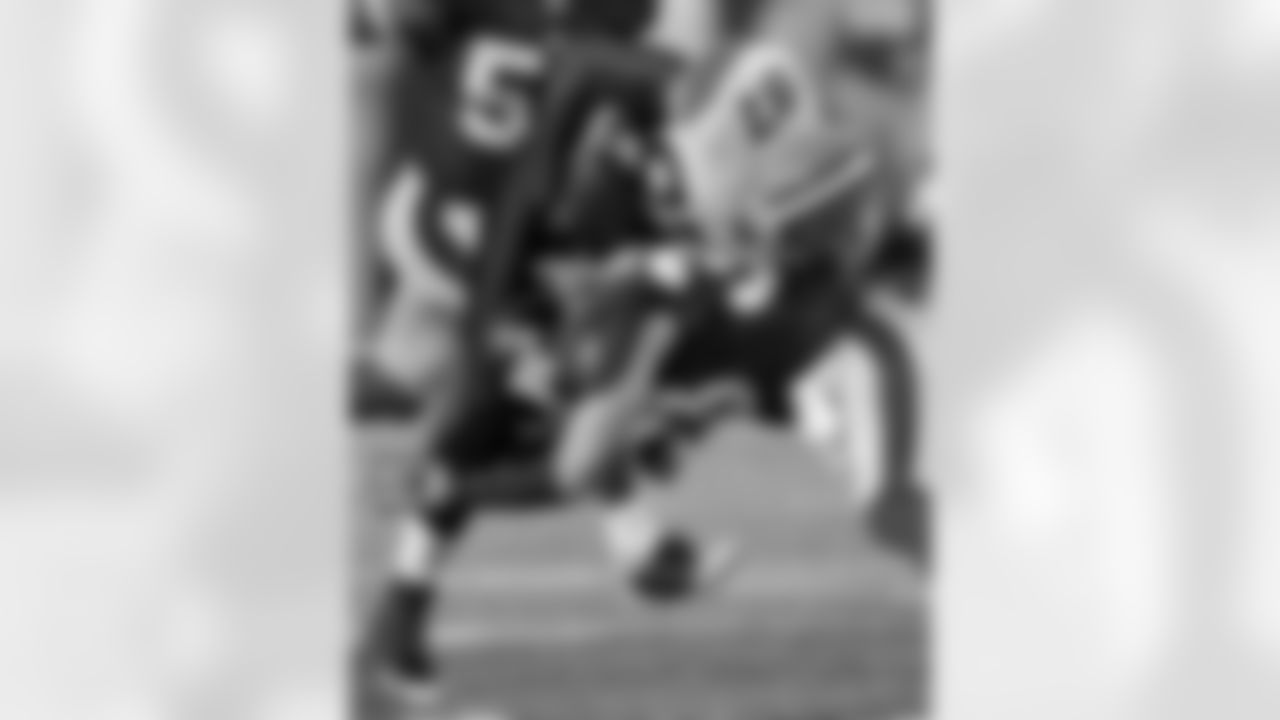
New York Giants defensive back Stuart Schwigert tackles Cleveland Browns tight end Darnell Dinkins (87) during the fourth quarter of an NFL preseason football game Monday night, Aug. 18, 2008, at Giants Stadium in East Rutherford, N.J. (AP Photo/Bill Kostroun)
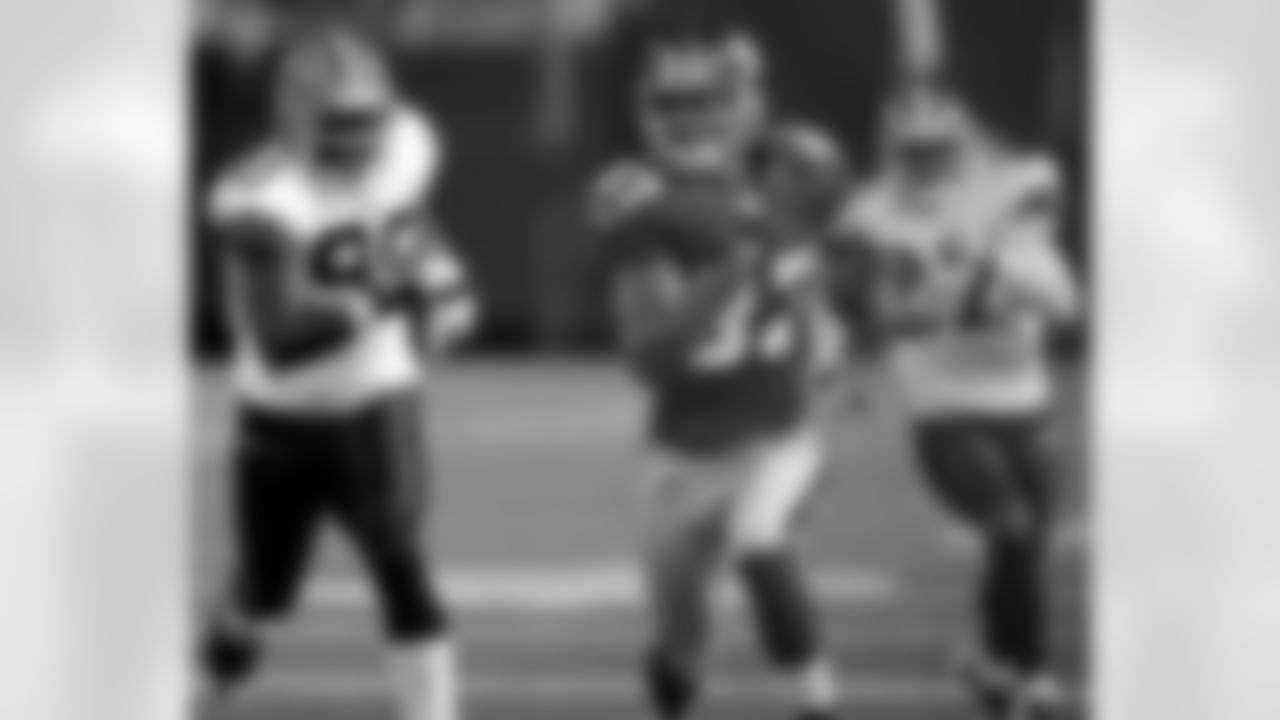
New York Giants' Domenik Hixon (87) outruns Cleveland Browns' David McMillan, left, and A.J. Davis as he returns a kick for an 82-yard touchdown during the first quarter of a NFL preseason football game Monday night, Aug. 18, 2008, at Giants Stadium in East Rutherford, N.J. (AP Photo/Bill Kostroun)
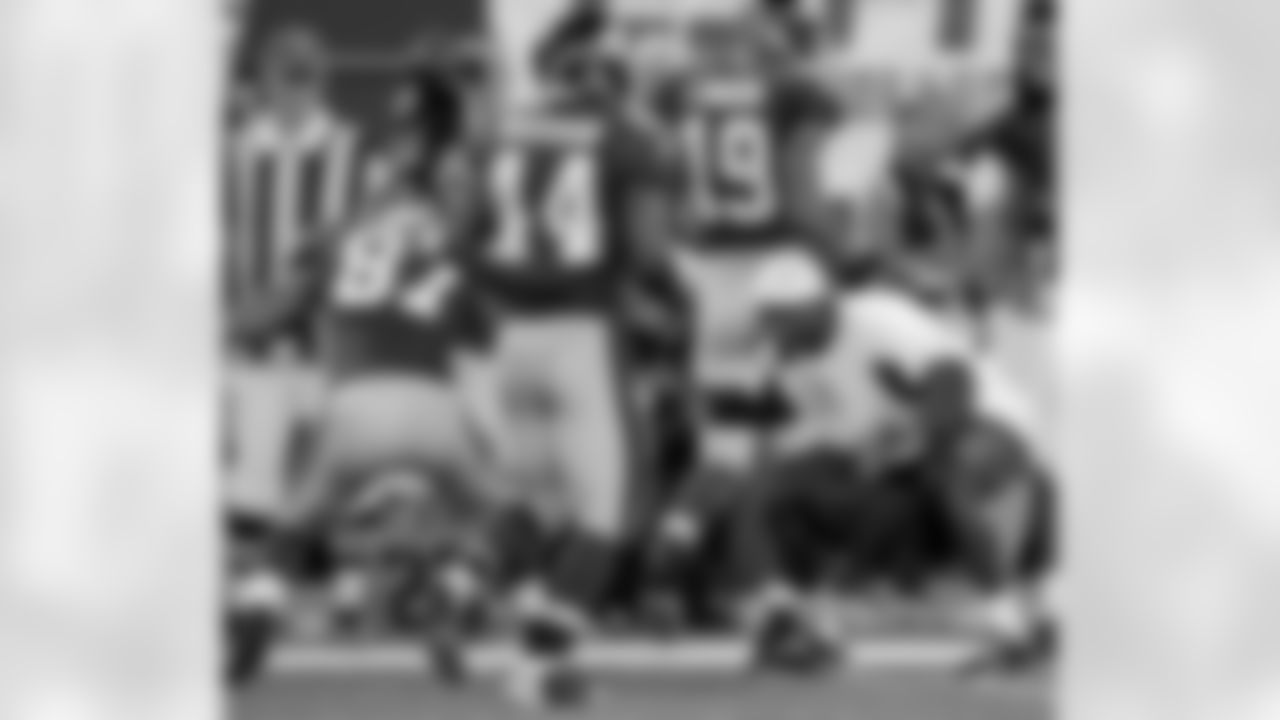
New York Giants' Plaxico Burress, right, celebrates with Domenik Hixon, left, and Ahmad Bradshaw (44) after Hixon scored during the first quarter of an NFL preseason football game against the Cleveland Browns on Monday night, Aug. 18, 2008, at Giants Stadium in East Rutherford, N.J. The Giants won 37-34. (AP Photo/Bill Kostroun)
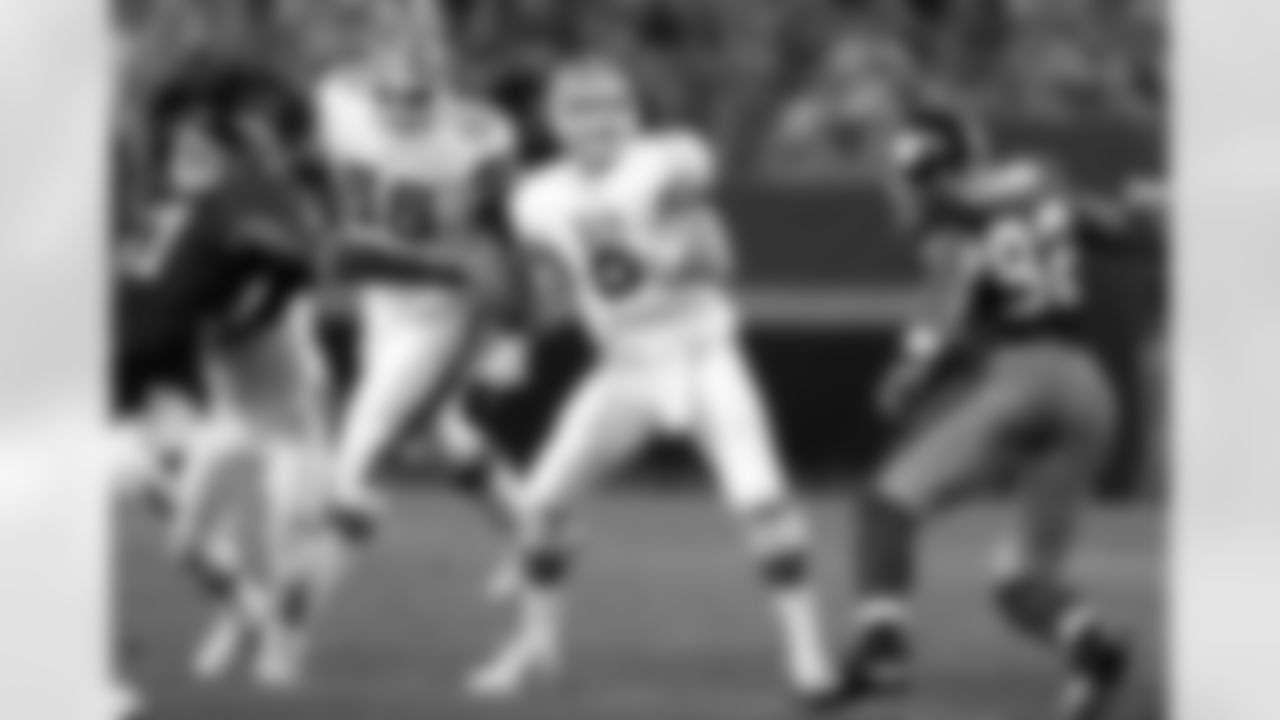
Cleveland Browns quarterback Trent Dilfer (8) looks for an open receiver under pressure from New York Giants' Carlos Emmons (51) and Michael Strahan (92) in the first quarter of the exhibition game Saturday, Aug. 13, 2005, in Cleveland. Browns' L.J. Shelton (66) watches. (AP Photo/Tony Dejak)
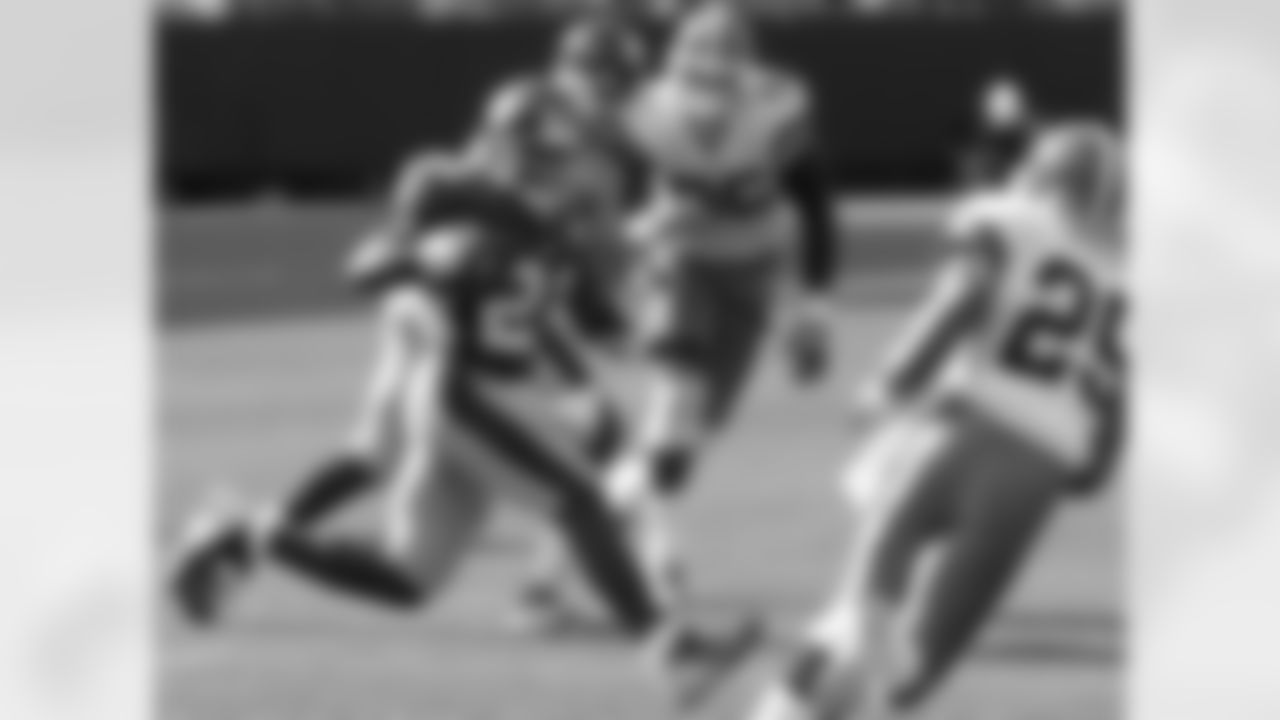
New York Giants running back Tiki Barber, left, attempts to get by Cleveland Browns defensive back Chris Crocker, right, as Giants' Luke Petitgout blocks Browns' Kenard Lang (96) during the fourth quarter Sunday, Sept. 26, 2004 at Giants Stadium in East Rutherford, N.J.. Barber gained 106 yards and ran for a touchdown as the Giants beat the Browns 27-10. (AP Photo/Bill Kostroun)
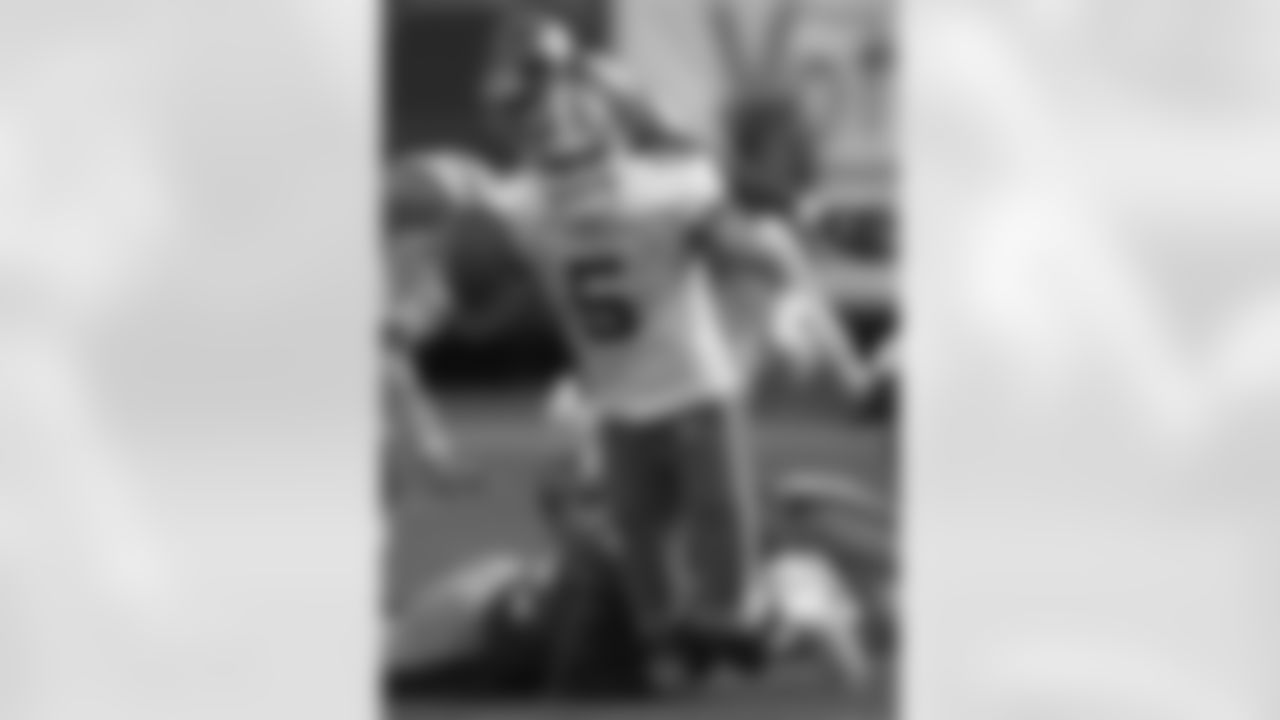
Cleveland Browns' quarterback Jeff Garcia (5) is sacked by New York Giants' defensive end Michael Strahan (92) during the second half of play on Sunday, Sept. 26, 2004 at Giants Stadium in East Rutherford. The Giants beat the Browns 27-10.(AP Photo/Michael Kim)
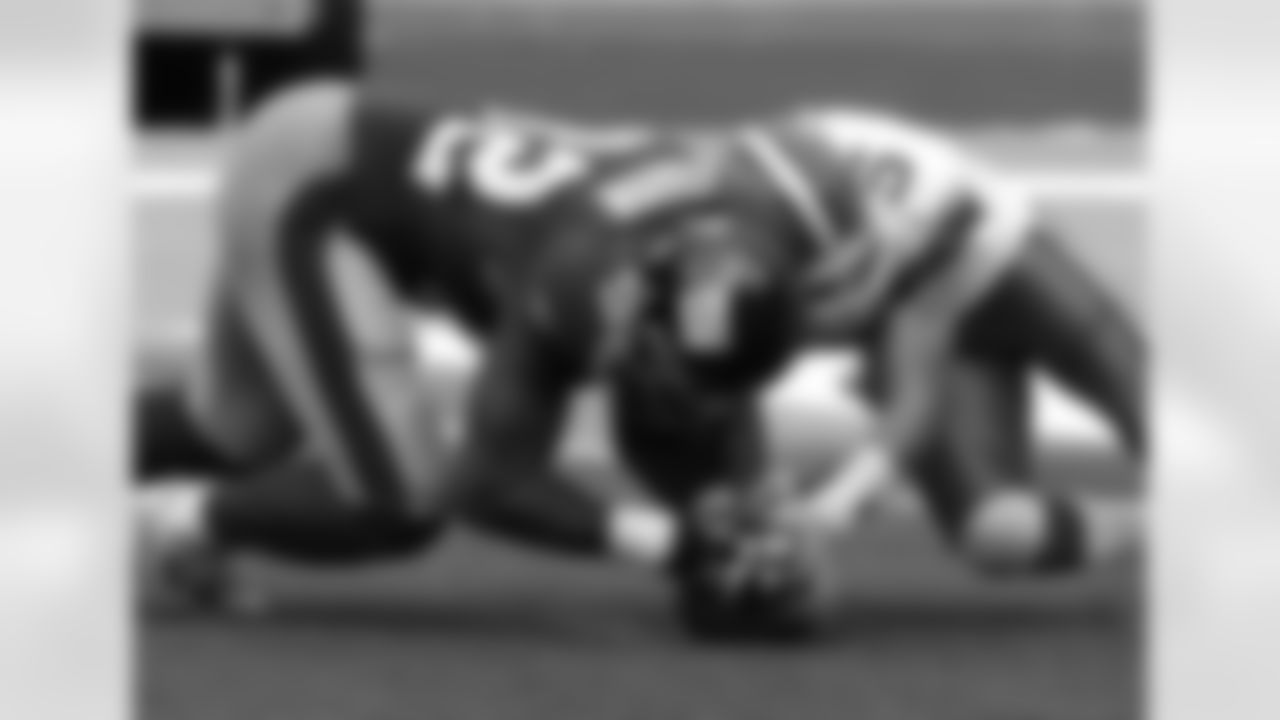
New York Giants defensive end Michael Strahan, left, recovers a fumble as he fights Cleveland Browns quarterback Jeff Garcia for the ball during the fourth quarter Sunday, Sept. 26, 2004, at Giants Stadium in East Rutherford. The ball was snapped over Garcia's head. The Giants won, 27-10. (AP Photo/Bill Kostroun)

New York Giants defensive end Michael Strahan celebrates as he carries the ball off the field after beatint the Cleveland Browns, 27-10, Sunday, Sept. 26, 2004, at Giants Stadium in East Rutherford. (AP Photo/Bill Kostroun)

New York Giants wide receiver Plaxico Burress catches a pass from Eli Manning for a touchdown as Cleveland Browns' Gary Baxter defends in the first quarter of the exhibition game Saturday, Aug. 13, 2005, in Cleveland. (AP Photo/Scott Galvin)

Cleveland Browns tackle Orpheus Roye (99) stops New York Giants running back Michael Cloud (30) for no gain during the fourth quarter Sunday, Sept. 26, 2004 at Giants Stadium in East Rutherford, N.J.. The Giant beat the Browns 27-10. (AP Photo/Bill Kostroun)
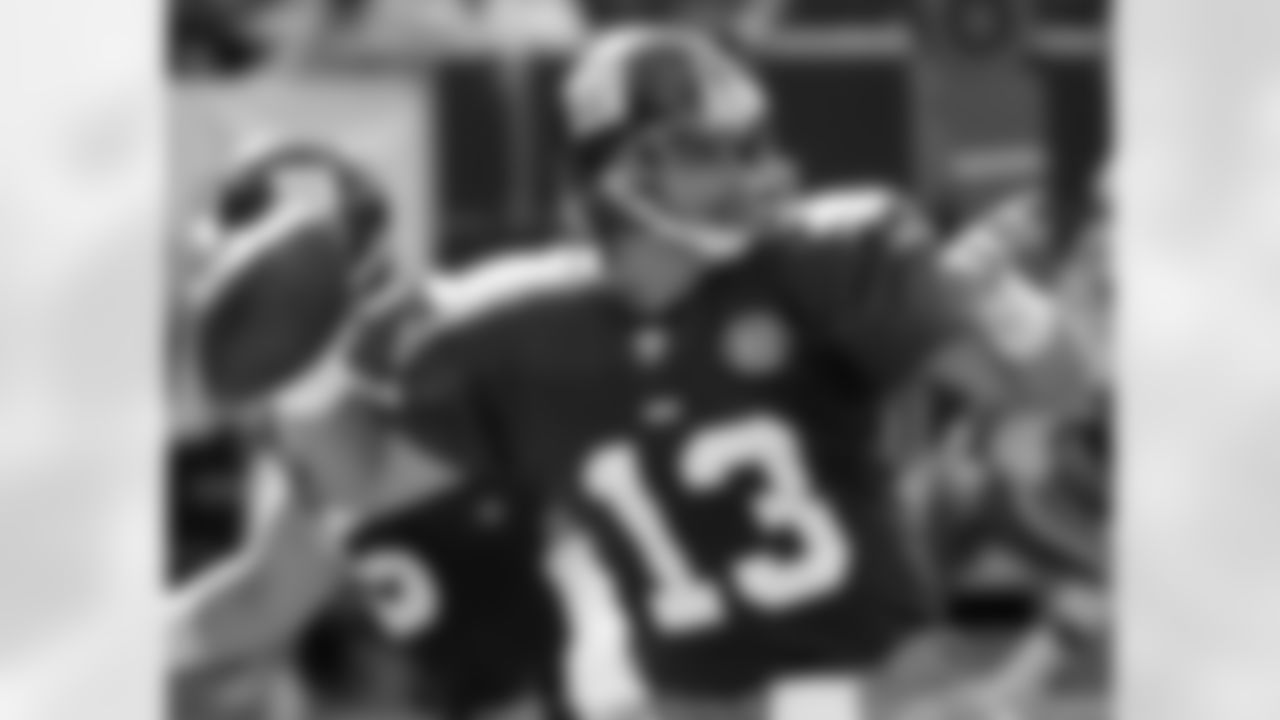
New York Giants quarterback Kurt Warner looks for a receiver during the third quarter against the Cleveland Browns Sunday, Sept. 26, 2004 at Giants Stadium in East Rutherford, N.J.. Warner completed 19 of 27 passes for 286 yards as the Gaints beat the Browns 27-10. (AP Photo/Bill Kostroun)
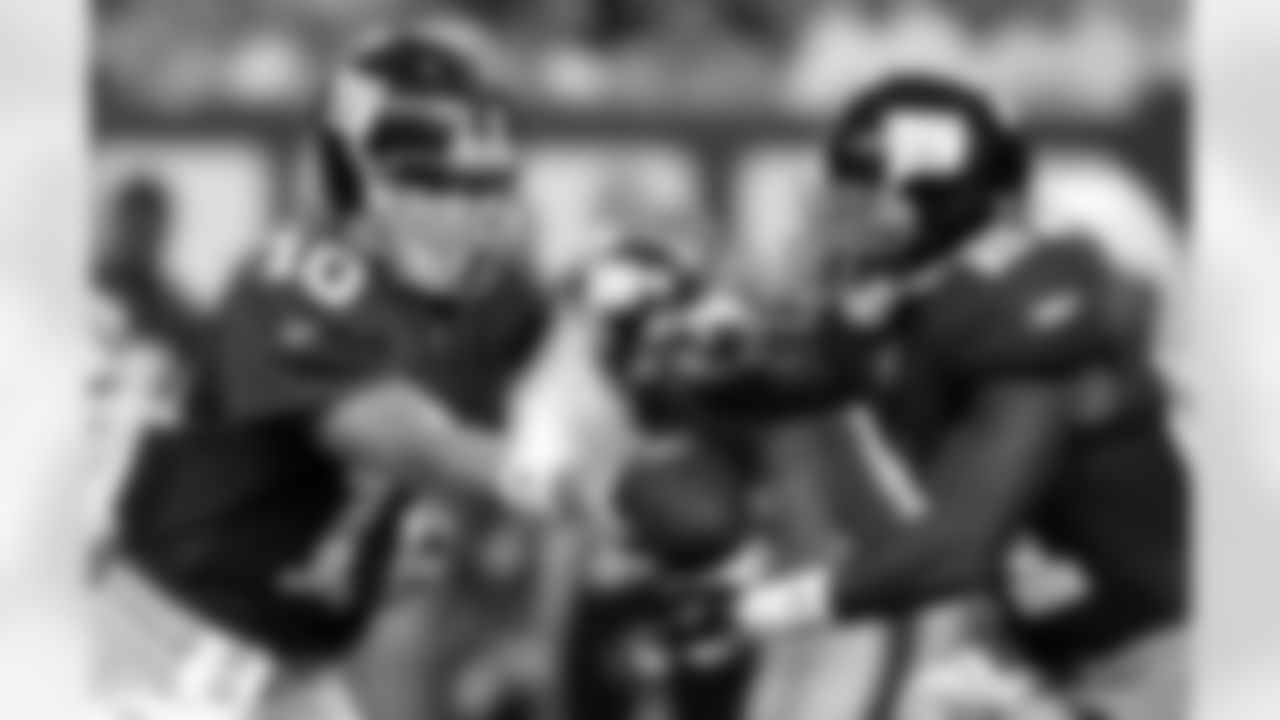
New York Giants quarterback Eli Manning hands off the ball to Giants running back Tiki Barber in the first quarter of the exhibition game Saturday, Aug. 13, 2005, in Cleveland. (AP Photo/Tony Dejak)
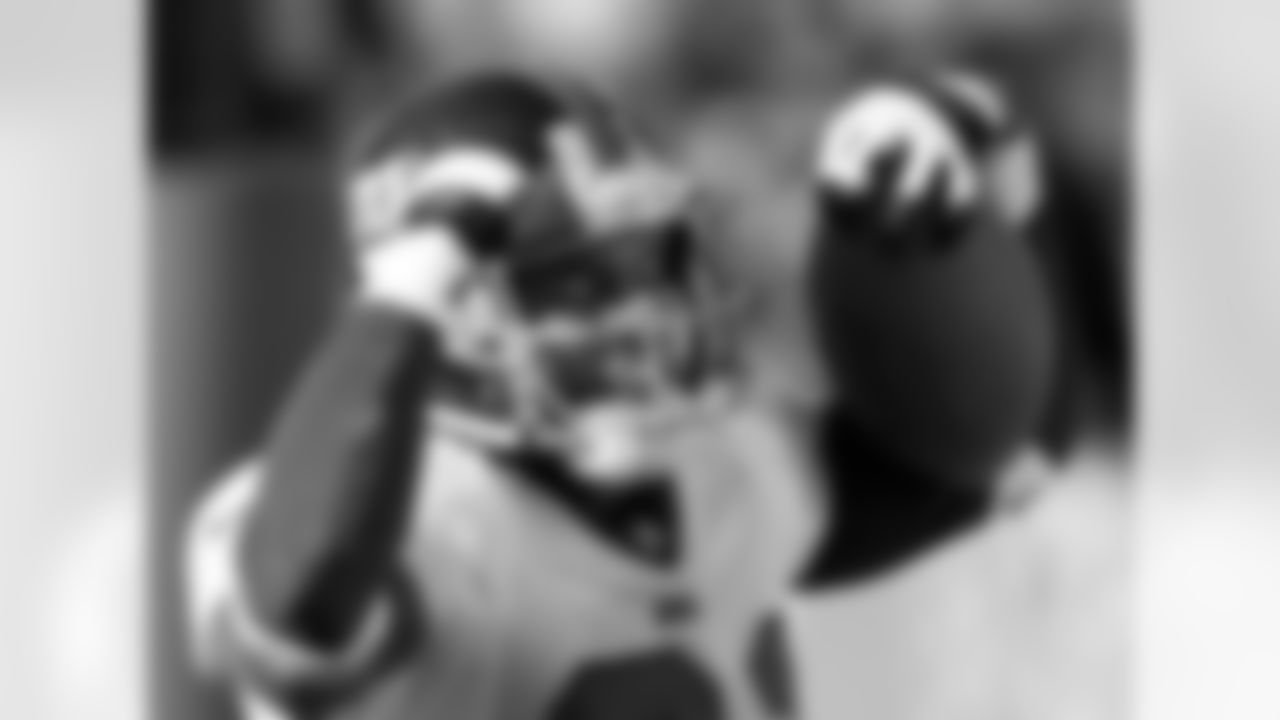
New York Giants wide receiver Amani Toomer celebrates after catching a 17 yard touchdown pass against the Cleveland Browns in the third quarter Sunday, Nov. 5, 2000, in Cleveland. Toomer had six catches for 100 yards and two touchdowns in the Giant's 24-3 win. (AP Photo/Ron Schwane)
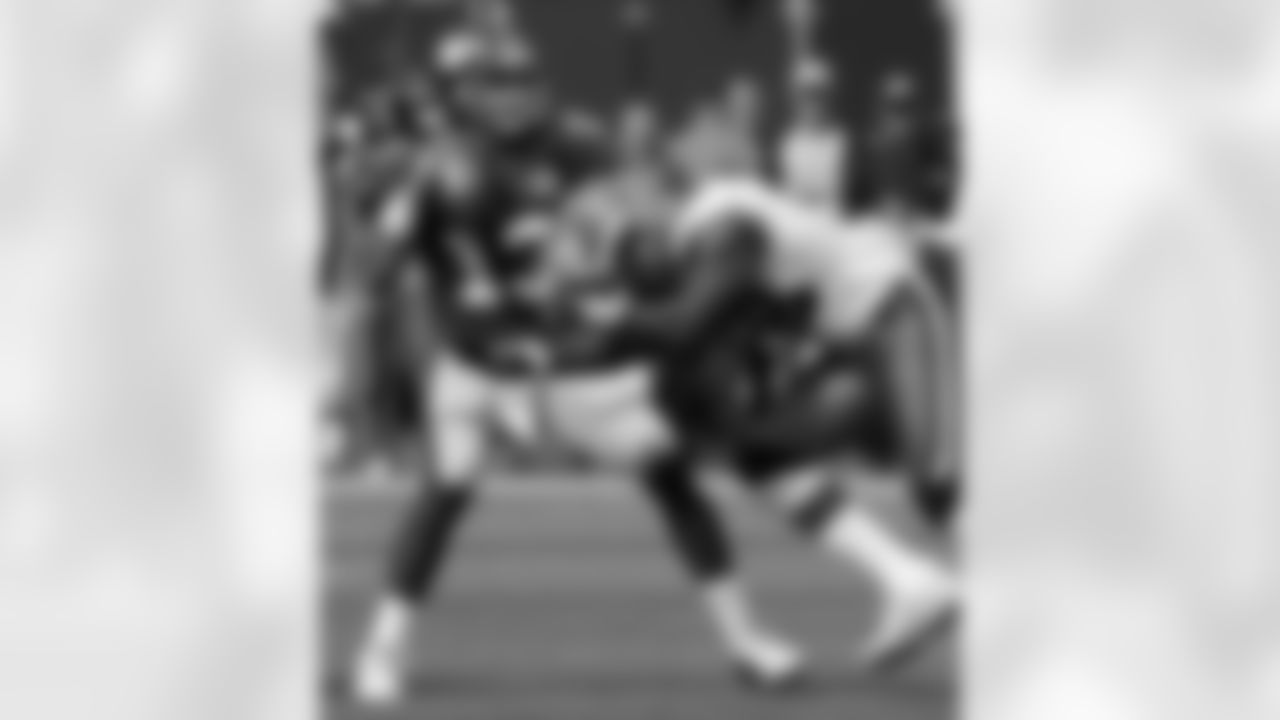
Cleveland Browns end Ebenezer Ekuban, right, loses his helmet as he pressures New York Giants quarterback Kurt Warner during the first quarter Sunday, Sept. 26, 2004 at Giants Stadium in East Rutherford. (AP Photo/Bill Kostroun)
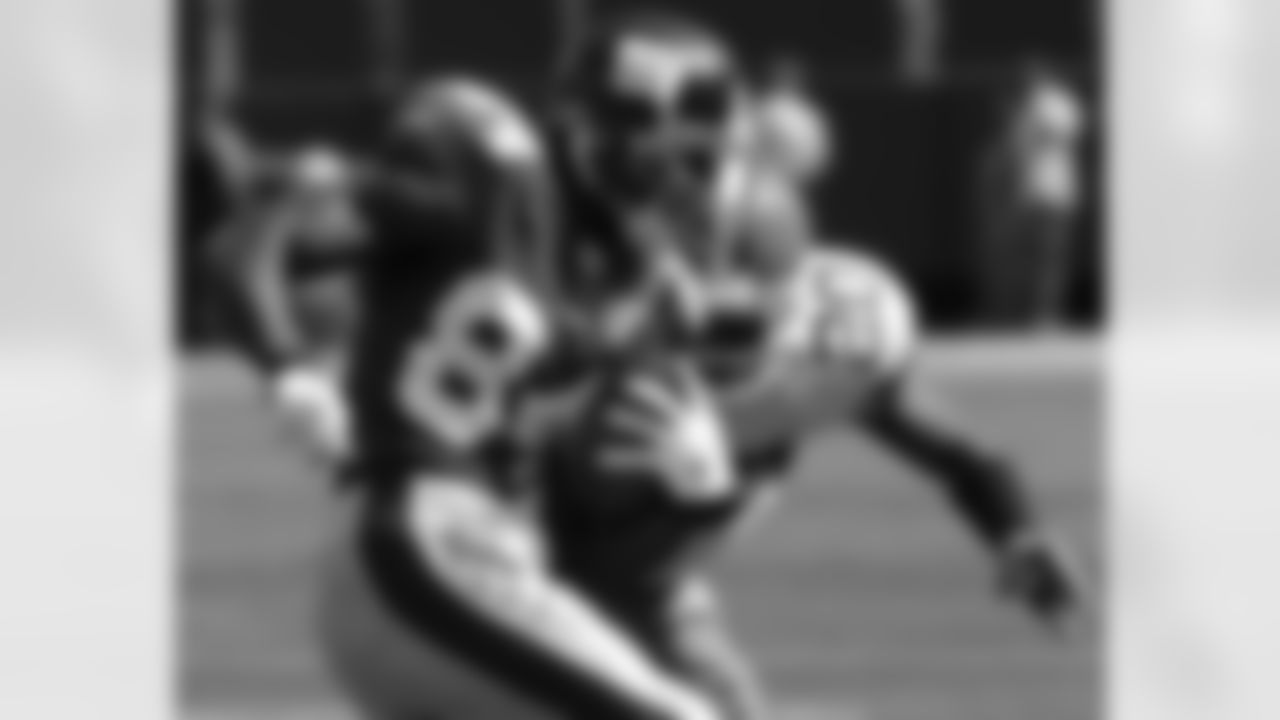
New York Giants wide receiver Tom Carter, left, picks up a first down before being run out of bounds by Cleveland Browns defensive back Earl Little (20) in the first quarter Sunday, Sept. 26, 2004 at Giants Stadium in East Rutherford. (AP Photo/Bill Kostroun)
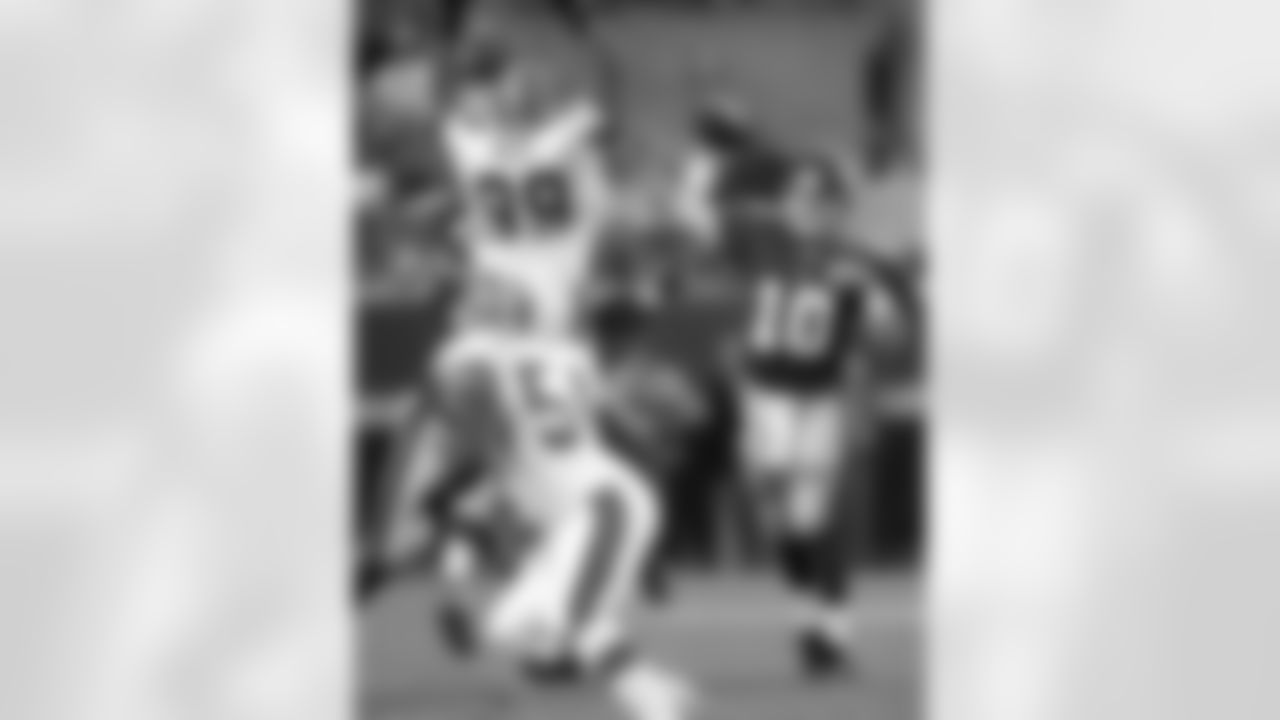
New York Giants quarterback Eli Manning (10) passes to Giants tight end Jeremy Shockey for three yards in the first quarter of the exhibition game against the Cleveland Browns, Saturday, Aug. 13, 2005, in Cleveland. (AP Photo/Scott Galvin)
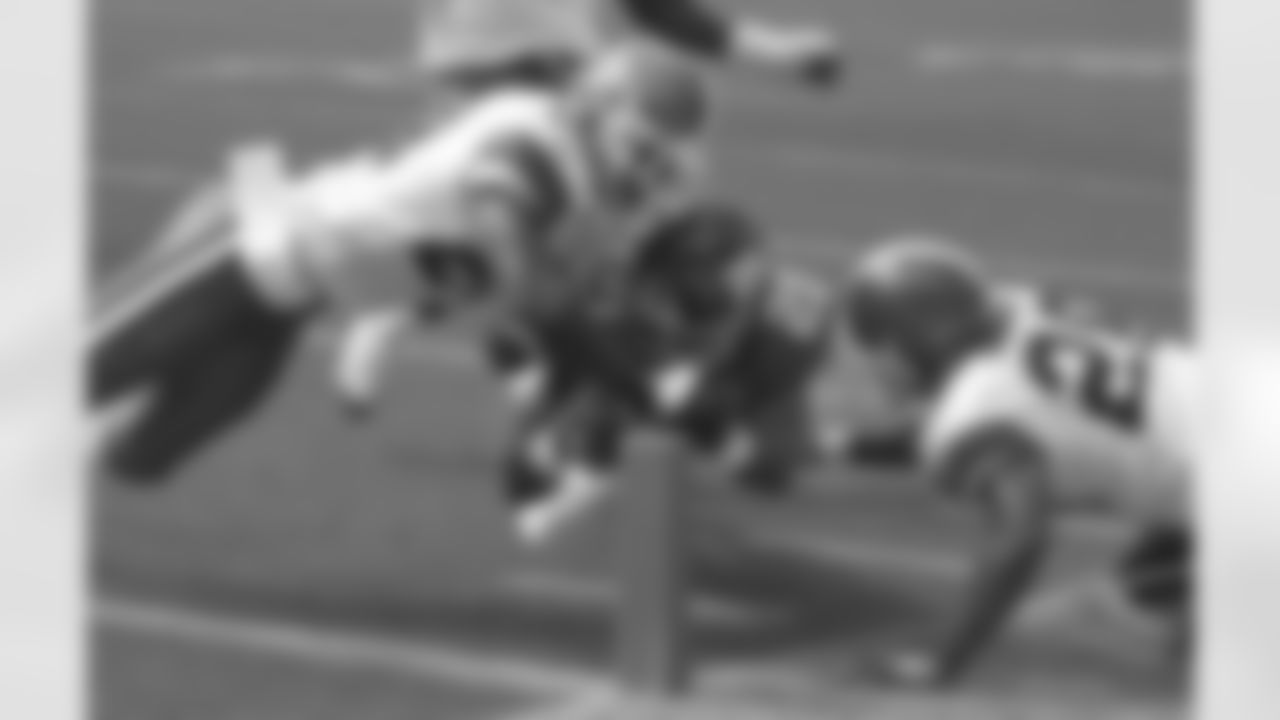
New York Giants' running back Tiki Barber, center, leaps to a touchdown past Cleveland Browns' Earl Little, left, and Leigh Bodden, right, during the first quarter of play on Sunday, Sept. 26, 2004 at Giants Stadium in East Rutherford. The Giants beat the Browns 27-10. (AP Photo/Michael Kim)
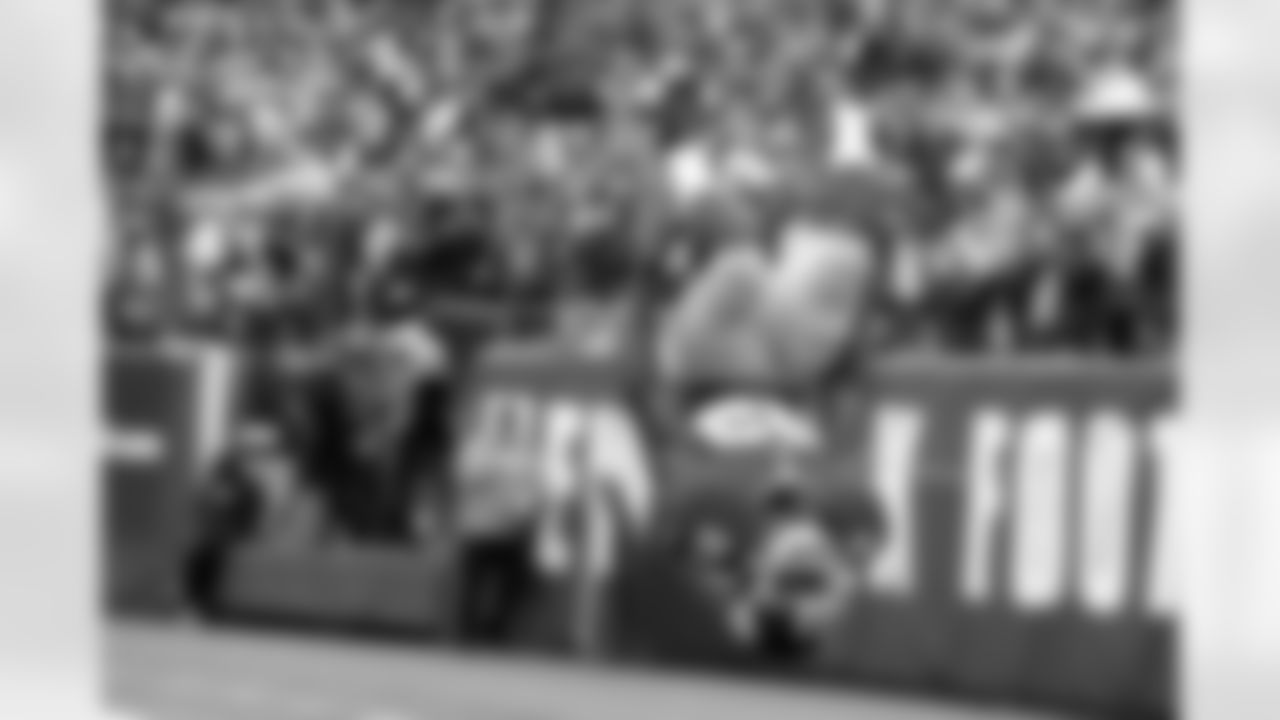
New York Giants running back David Wilson reacts after scoring a touchdown against the Cleveland Browns during the second half of an NFL football game Sunday, Oct. 7, 2012, in East Rutherford, N.J. The Giants won the game 41-27. (AP Photo/Julio Cortez)
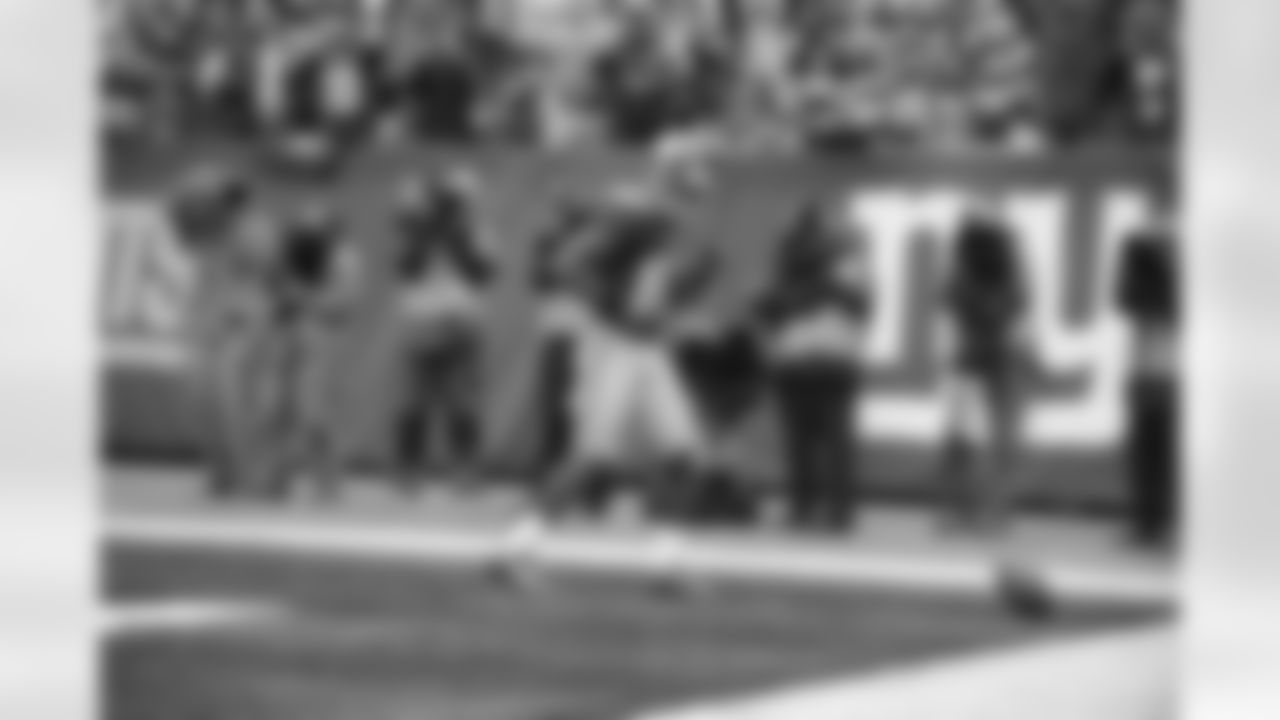
New York Giants wide receiver Victor Cruz (80) does the salsa after scoring a touchdown during a week 5 football game against the Cleveland Browns on October 7, 2012 in East Rutherford, New Jersey(AP Photo/Evan Pinkus)
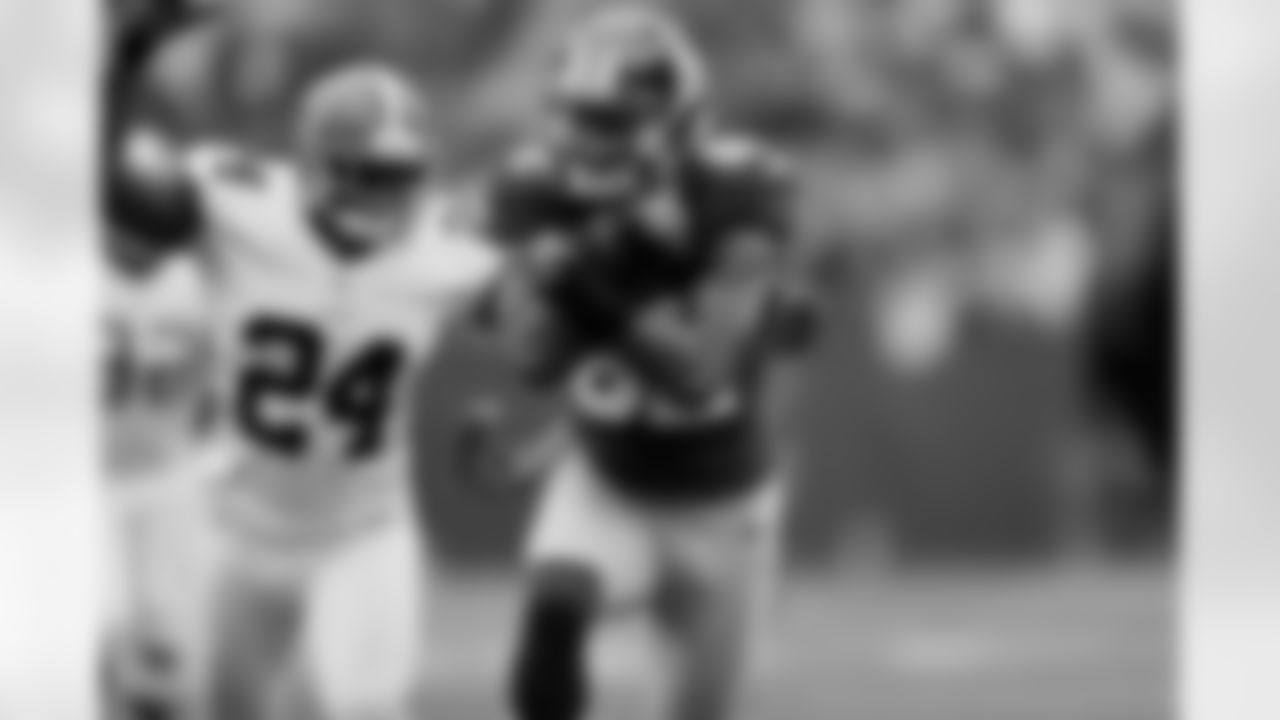
New York Giants wide receiver Rueben Randle (82) runs away from Cleveland Browns cornerback Sheldon Brown (24) during the first half of an NFL football game Sunday, Oct. 7, 2012, in East Rutherford, N.J. (AP Photo/Julio Cortez)

New York Giants wide receiver Domenik Hixon (87) catches a pass in front of Cleveland Browns defensive back Buster Skrine (22) during the first half of an NFL football game Sunday, Oct. 7, 2012, in East Rutherford, N.J. (AP Photo/Kathy Willens)
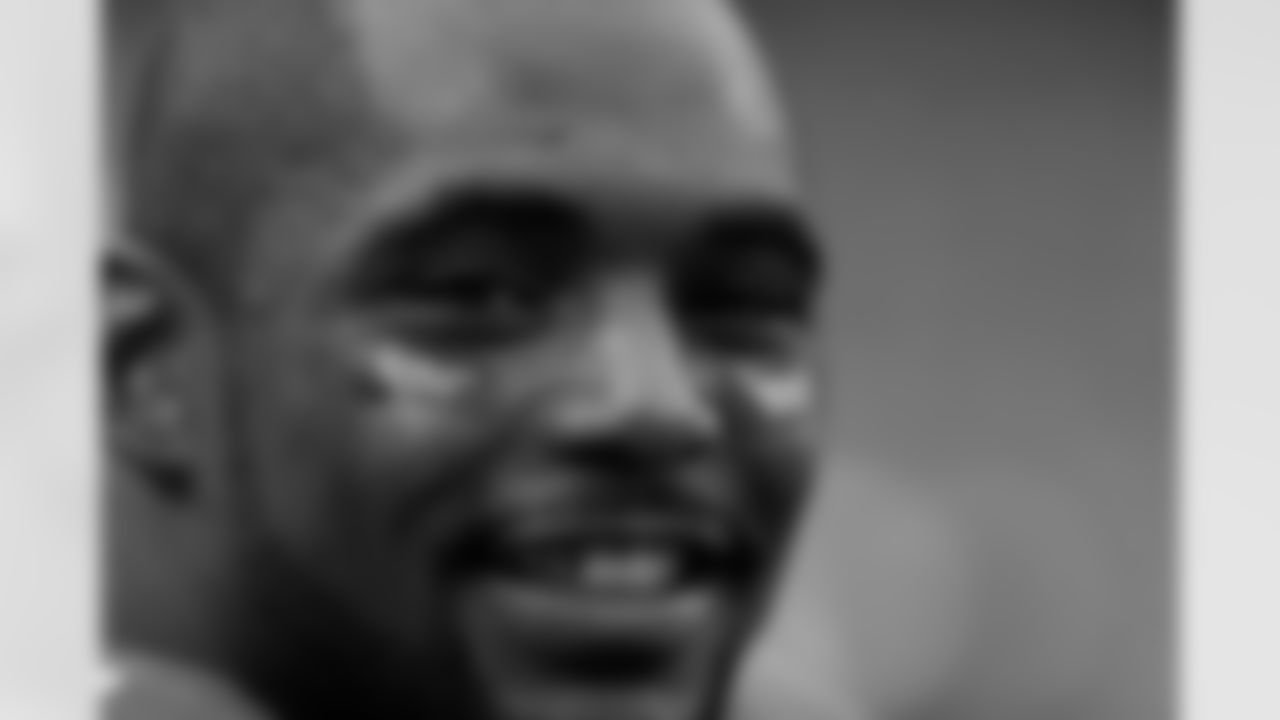
New York Giants running back Ahmad Bradshaw wear a message for Breast Cancer Awareness Month on his eyeblack tape during the second half of an NFL football game Sunday against the Cleveland Browns, Oct. 7, 2012, in East Rutherford, N.J. The Giants won the game 41-27. (AP Photo/Julio Cortez)
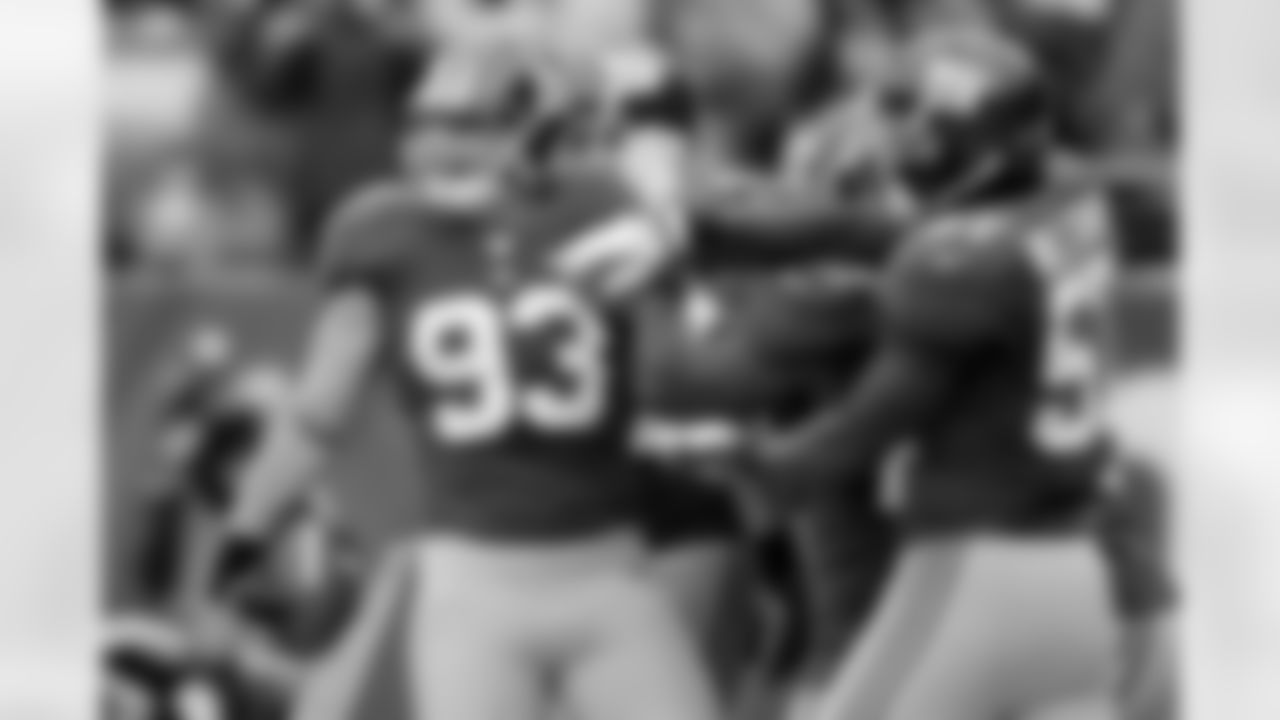
New York Giants middle linebacker Chase Blackburn (93) celebrates with teammates after intercepting a pass in the endzone during the second half of an NFL football game against the Cleveland Browns Sunday, Oct. 7, 2012, in East Rutherford, N.J. The Giants won the game 41-27. (AP Photo/Kathy Willens)

New York Giants head coach Tom Coughlin talks to his team following a week 5 win against the Cleveland Browns on October 7, 2012 in East Rutherford, New Jersey(AP Photo/Evan Pinkus)
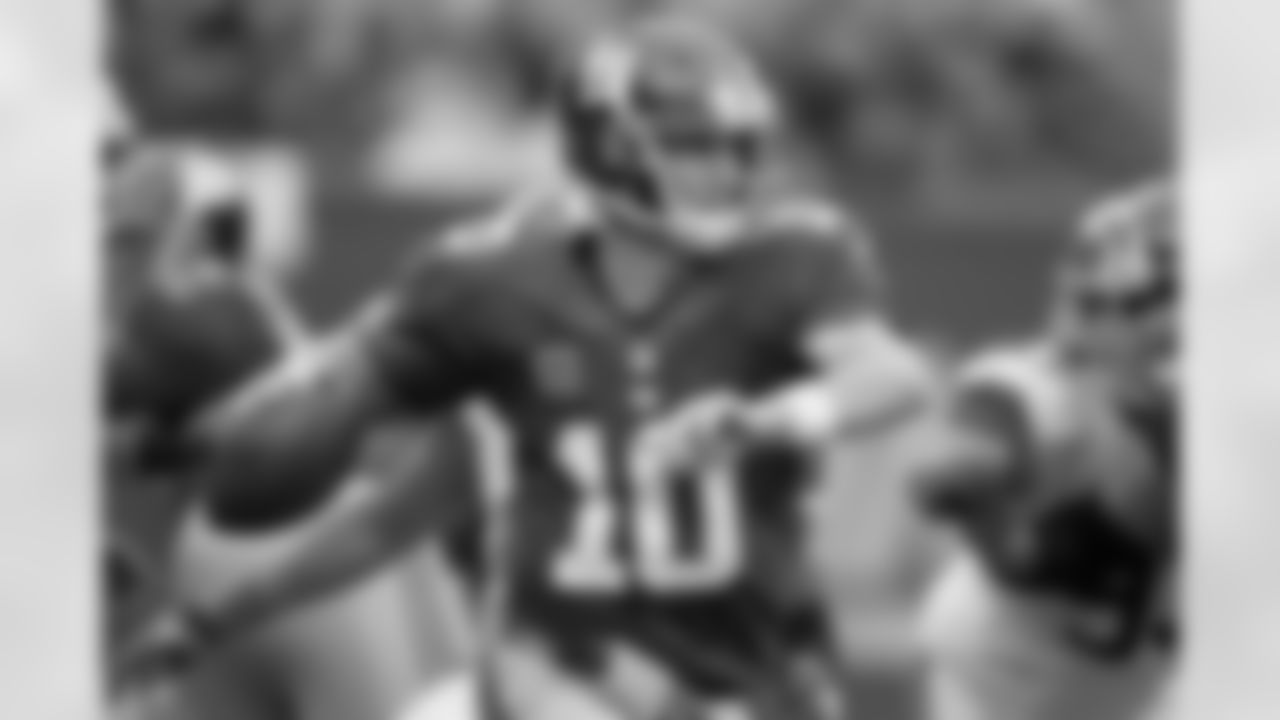
New York Giants quarterback Eli Manning (10) throws a pass during the first half of an NFL football game against the Cleveland Browns Sunday, Oct. 7, 2012, in East Rutherford, N.J. (AP Photo/Julio Cortez)
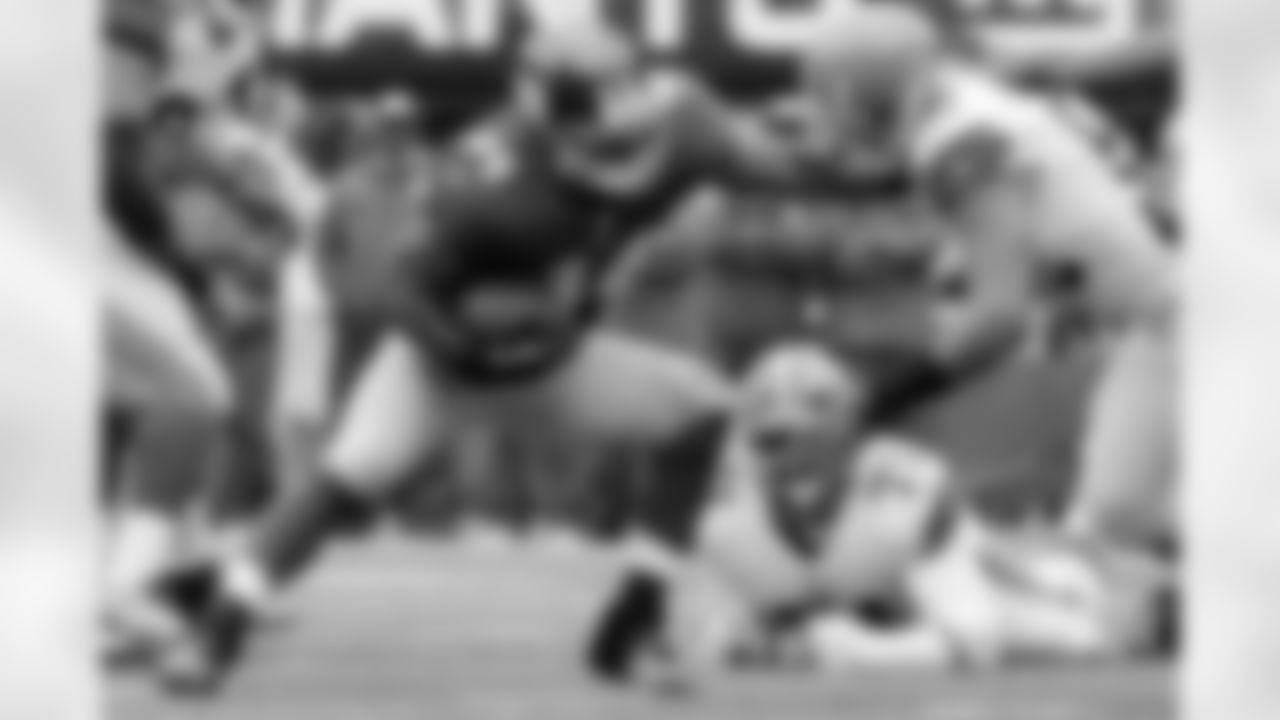
Cleveland Browns linebacker Marcus Benard, right, tackles New York Giants running back Ahmad Bradshaw (44) during the first half of an NFL football game Sunday, Oct. 7, 2012, in East Rutherford, N.J. (AP Photo/Kathy Willens)
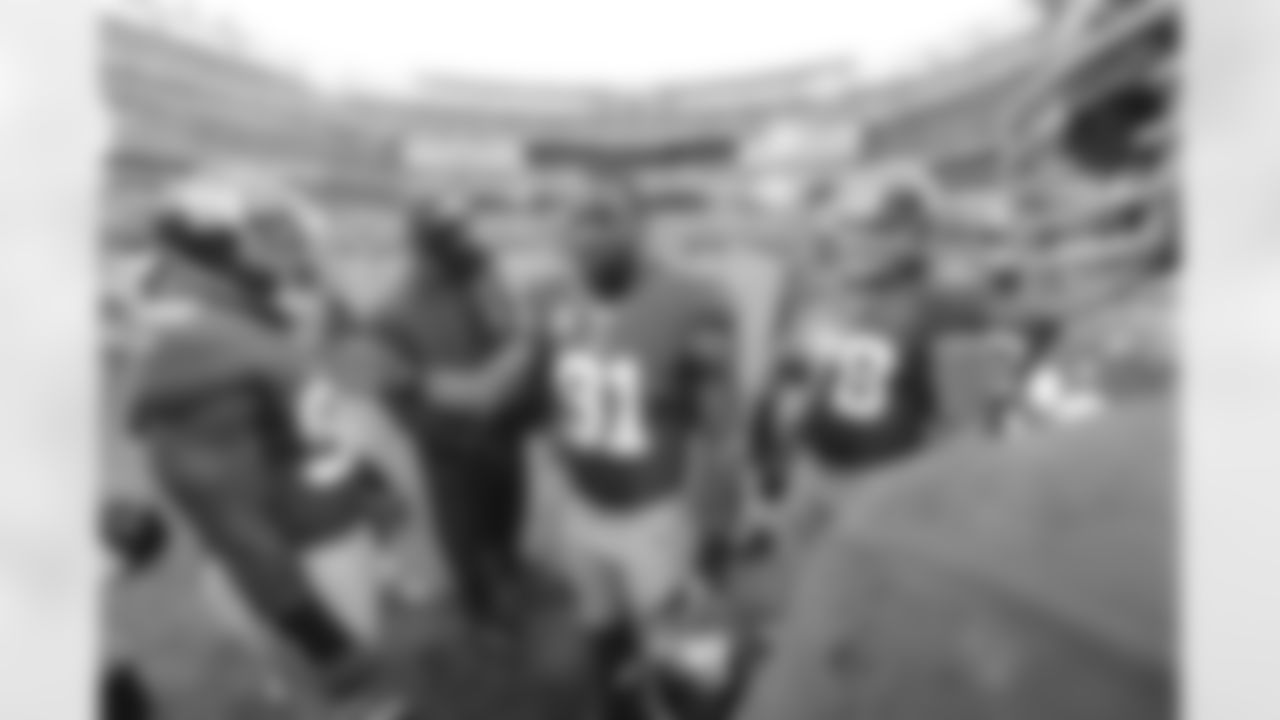
New York Giants defensive end Justin Tuck (91) talks to his teammates before week 5 football game against the Cleveland Browns on October 7, 2012 in East Rutherford, New Jersey(AP Photo/Evan Pinkus)

New York Giants running back Ahmad Bradshaw (44) celebrates after scoring a touchdown during the first half of an NFL football game against the Cleveland Browns Sunday, Oct. 7, 2012, in East Rutherford, N.J. (AP Photo/Julio Cortez)
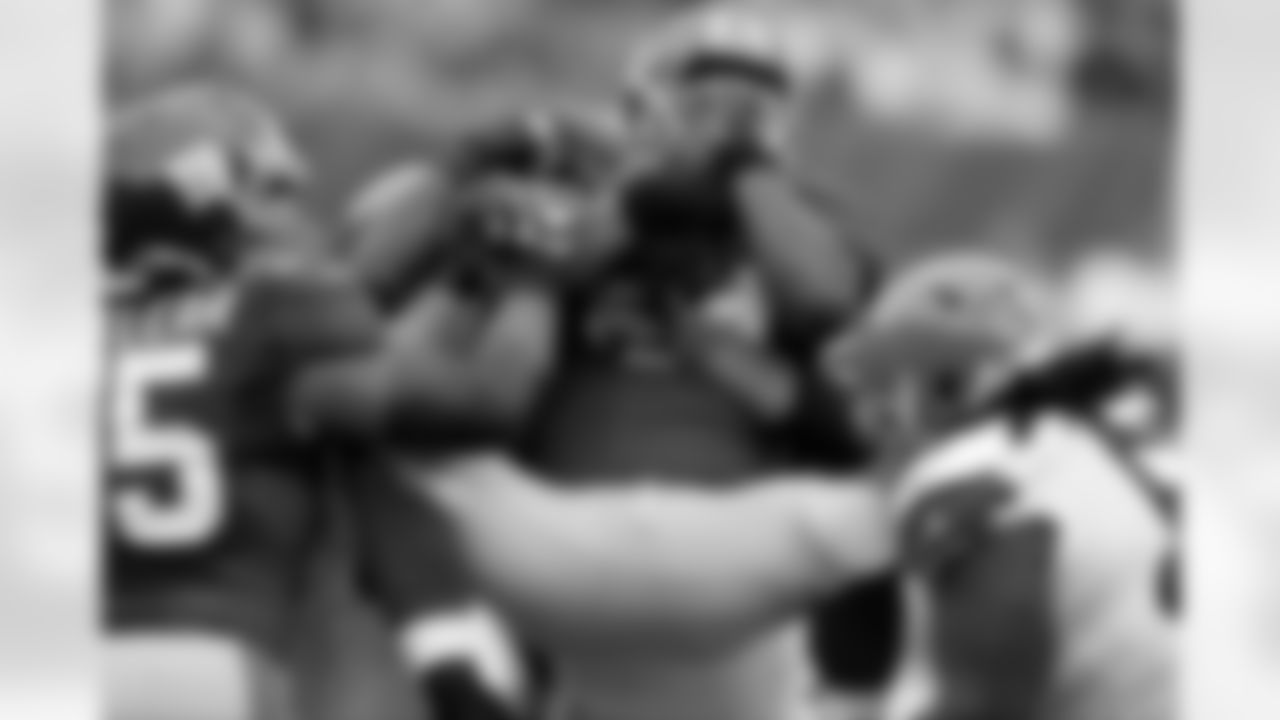
New York Giants running back Ahmad Bradshaw (44) is tackled by Cleveland Browns nose tackle Ishmaa'ily Kitchen during the first half of an NFL football game Sunday, Oct. 7, 2012, in East Rutherford, N.J. (AP Photo/Julio Cortez)
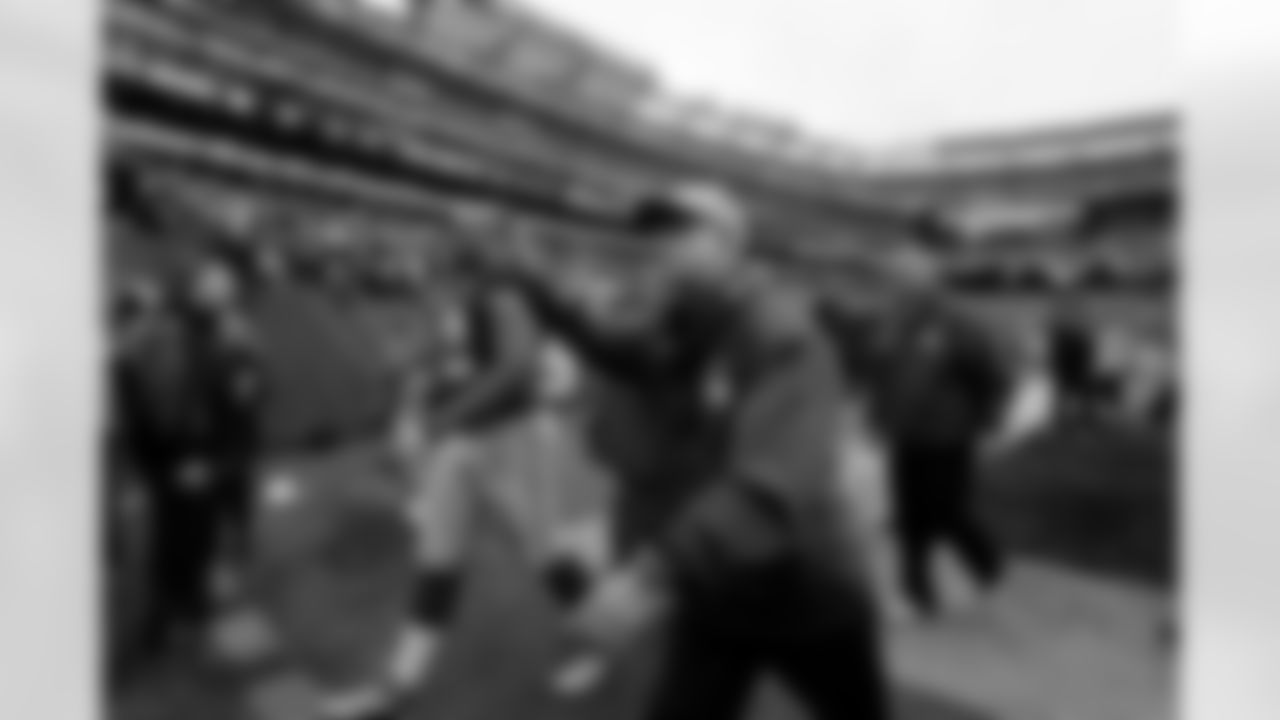
New York Giants head coach Tom Coughlin acknowledges the crowd while walking off the field at the end of an NFL football game against the Cleveland Browns Sunday, Oct. 7, 2012, in East Rutherford, N.J. The Giants won the game 41-27. (AP Photo/Kathy Willens)
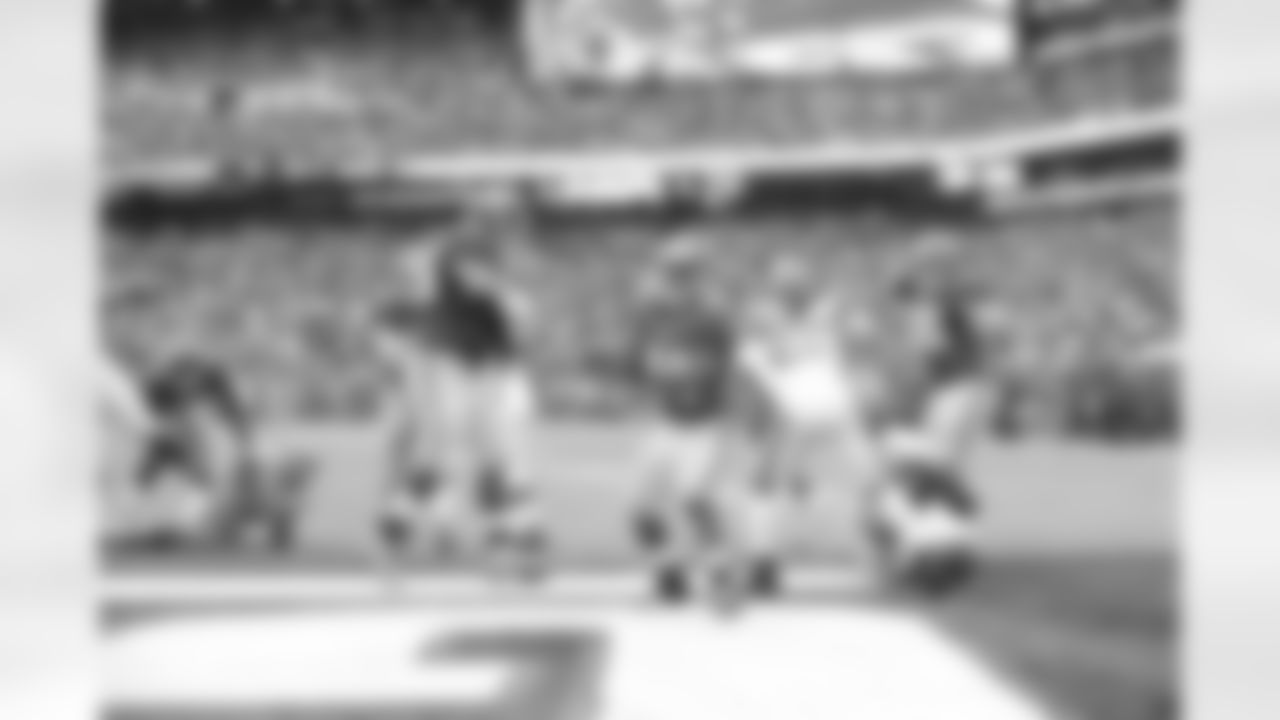
New York Giants running back Ahmad Bradshaw (44) scores a touchdown during a week 5 football game against the Cleveland Browns on October 7, 2012 in East Rutherford, New Jersey(AP Photo/Evan Pinkus)
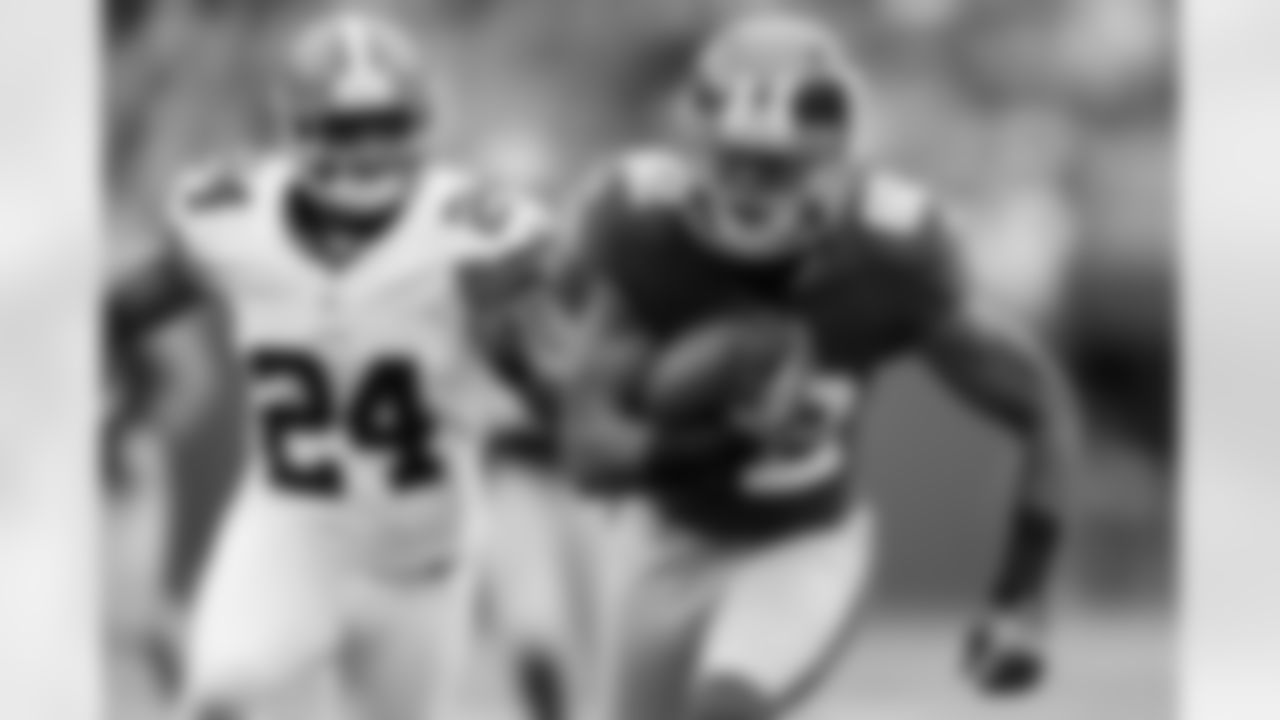
New York Giants wide receiver Rueben Randle (82) runs away from Cleveland Browns cornerback Sheldon Brown (24) during the first half of an NFL football game Sunday, Oct. 7, 2012, in East Rutherford, N.J. (AP Photo/Julio Cortez)
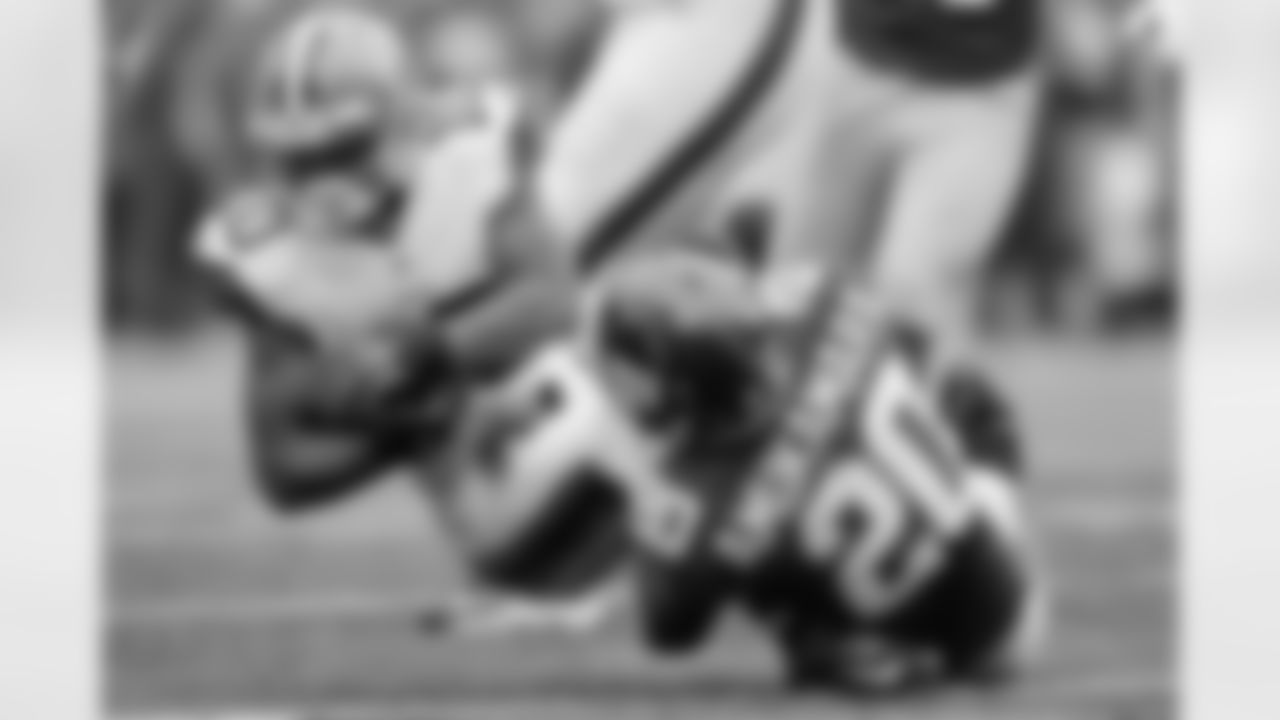
New York Giants defensive back Prince Amukamara (20) tackles Cleveland Browns wide receiver Jordan Norwood (10) during the first half of an NFL football game Sunday, Oct. 7, 2012, in East Rutherford, N.J. (AP Photo/Kathy Willens)
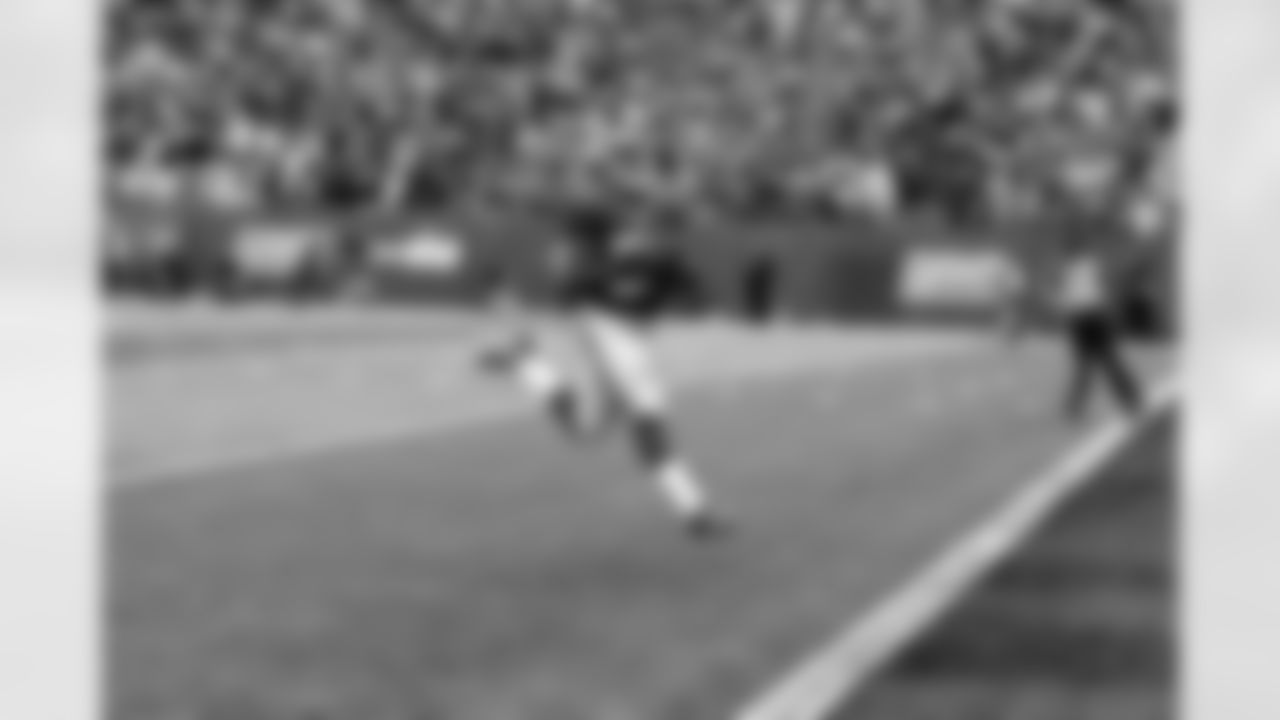
New York Giants running back David Wilson scores a touchdown run against the Cleveland Browns during the second half of an NFL football game Sunday, Oct. 7, 2012, in East Rutherford, N.J. The Giants won the game 41-27. (AP Photo/Julio Cortez)
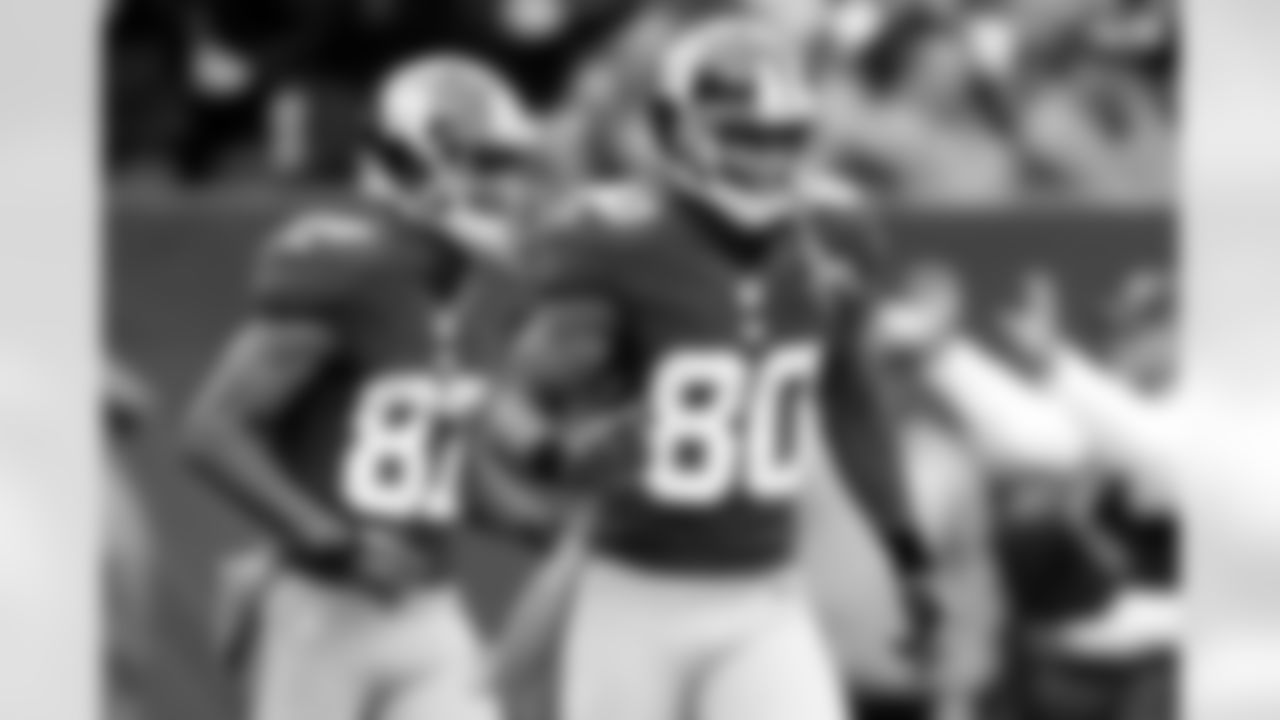
New York Giants wide receiver Victor Cruz (80) celebrates with teammate Domenik Hixon (87) after catching his third touchdown pass of the game during the second half of an NFL football game against the Cleveland Browns Sunday, Oct. 7, 2012, in East Rutherford, N.J. (AP Photo/Julio Cortez)
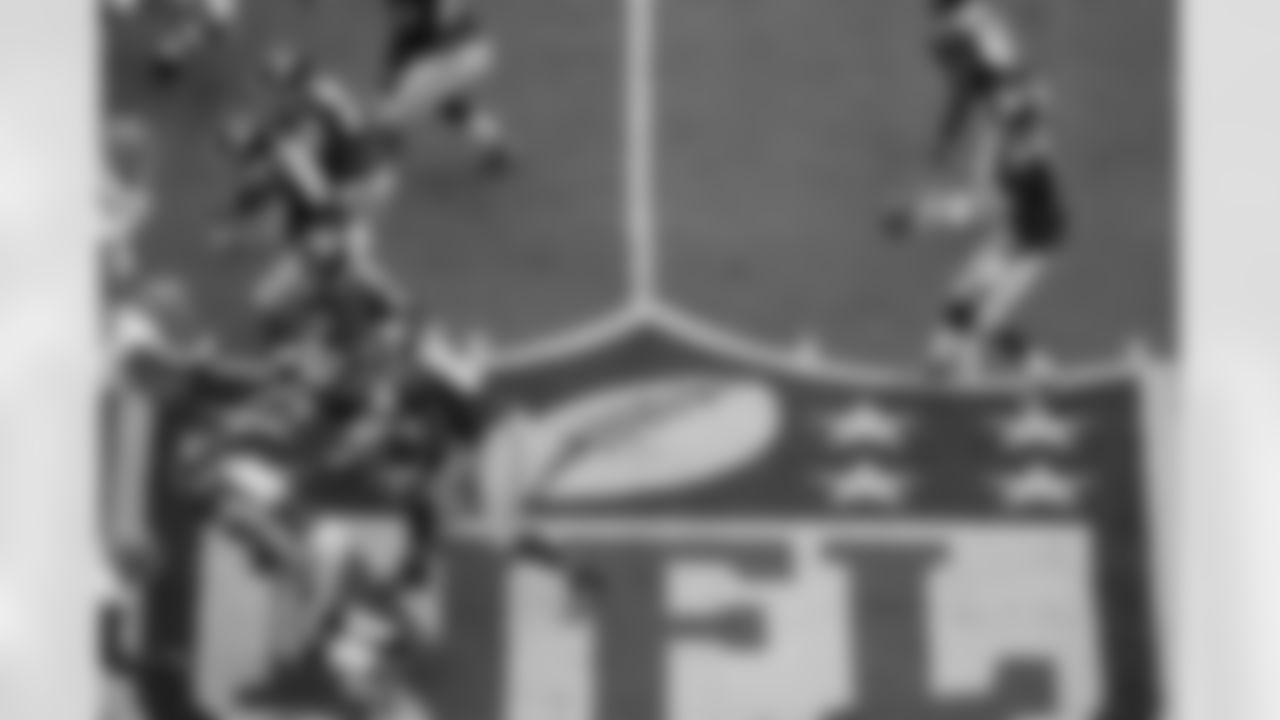
New York Giants quarterback Eli Manning (10) takes the snap during the first half of an NFL football game Sunday, Oct. 7, 2012, in East Rutherford, N.J. (AP Photo/Peter Morgan)

New York Giants wide receiver Victor Cruz (80) catches a pass for a touchdown during the first half of an NFL football game against the Cleveland Browns Sunday, Oct. 7, 2012, in East Rutherford, N.J. (AP Photo/Julio Cortez)
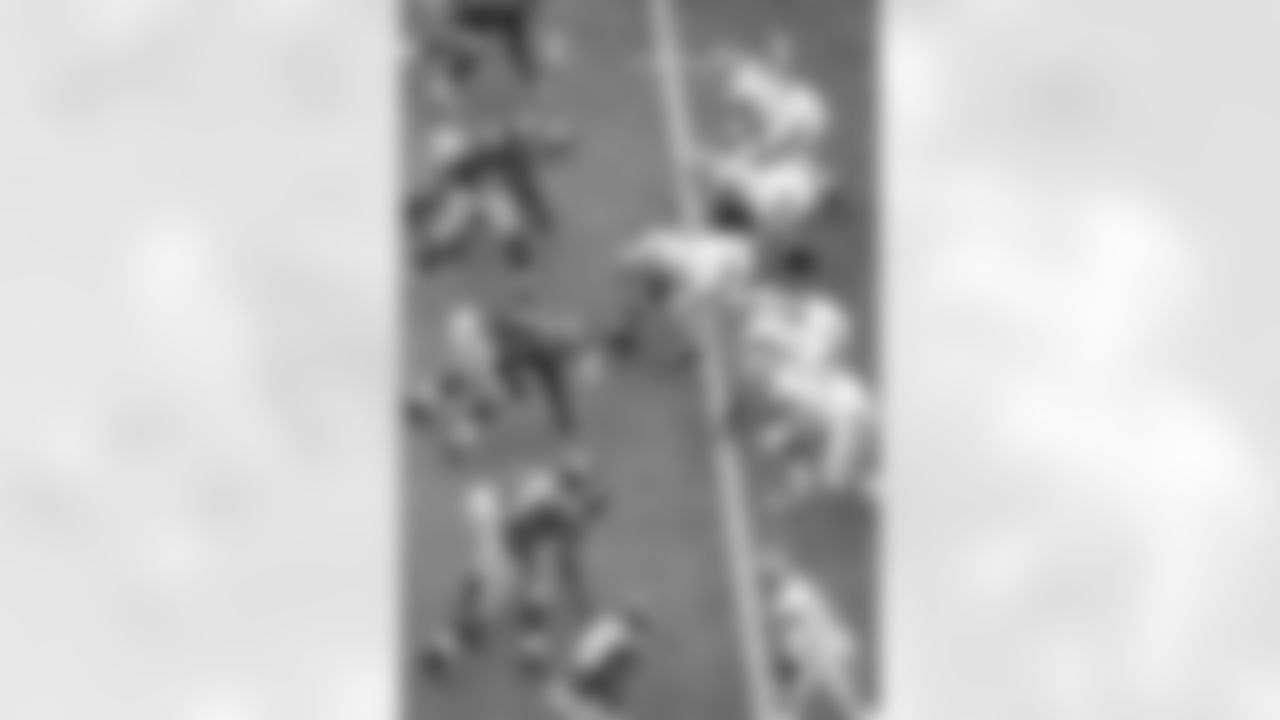
The Cleveland Browns line up against the New York Giants during the second half of an NFL football game Sunday, Oct. 7, 2012, in East Rutherford, N.J. (AP Photo/Peter Morgan)
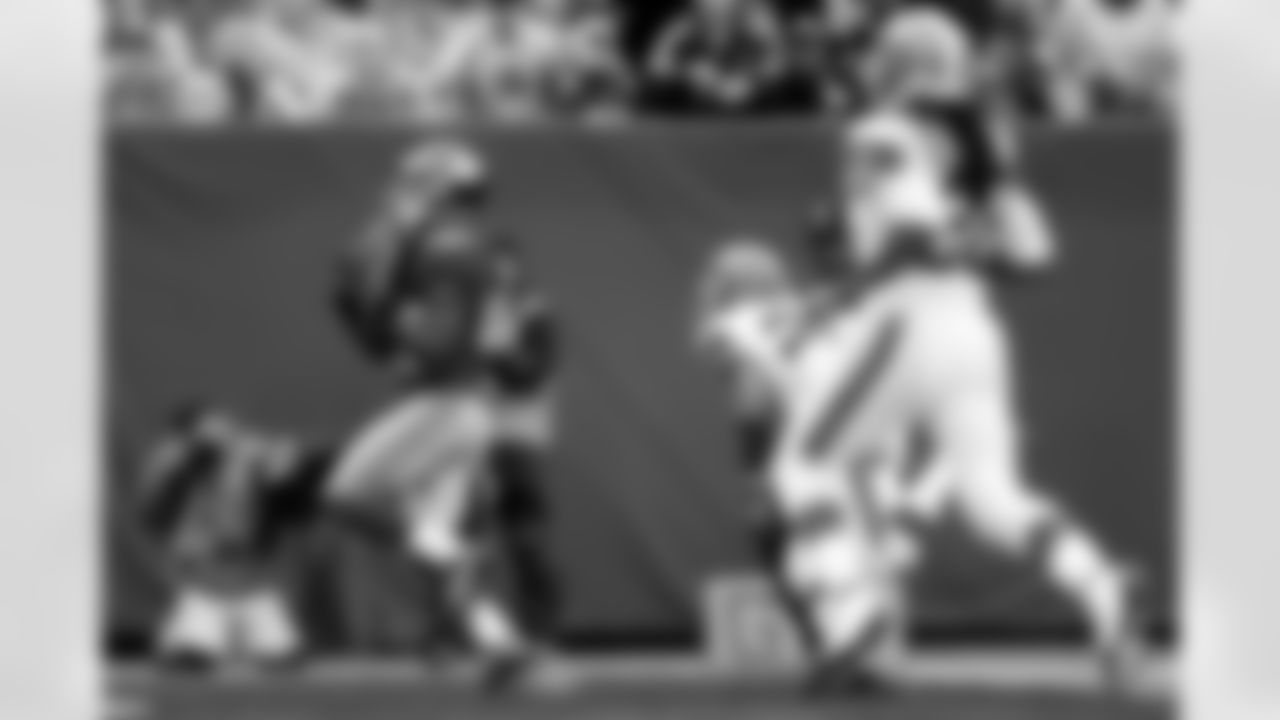
New York Giants wide receiver Victor Cruz (80) catches a touchdown pass in front of Cleveland Browns cornerback Trevin Wade (26) during the second half of an NFL football game Sunday, Oct. 7, 2012, in East Rutherford, N.J. (AP Photo/Julio Cortez)

New York Giants running back Ahmad Bradshaw runs with the ball against the Cleveland Browns during the second half of an NFL football game Sunday, Oct. 7, 2012, in East Rutherford, N.J. The Giants won the game 41-27. (AP Photo/Kathy Willens)
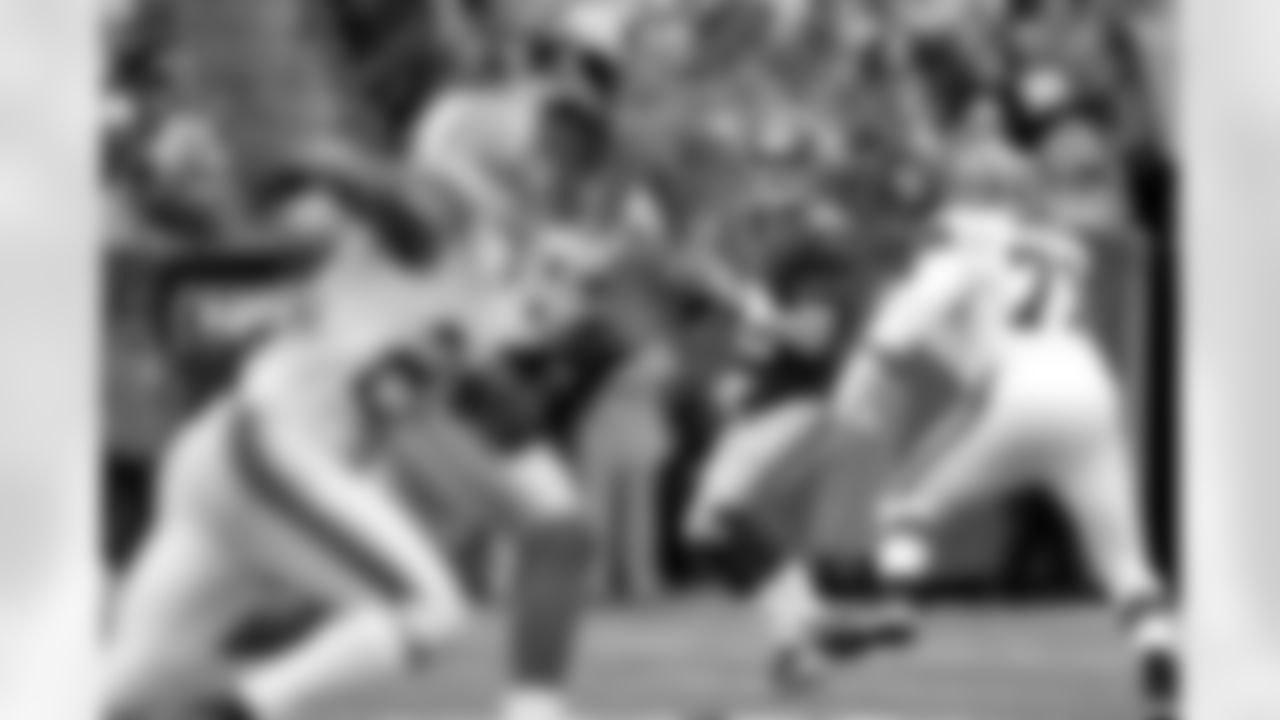
New York Giants quarterback Eli Manning (10) looks to pass during the first half of an NFL football game against the Cleveland Browns Sunday, Oct. 7, 2012, in East Rutherford, N.J. (AP Photo/Kathy Willens)
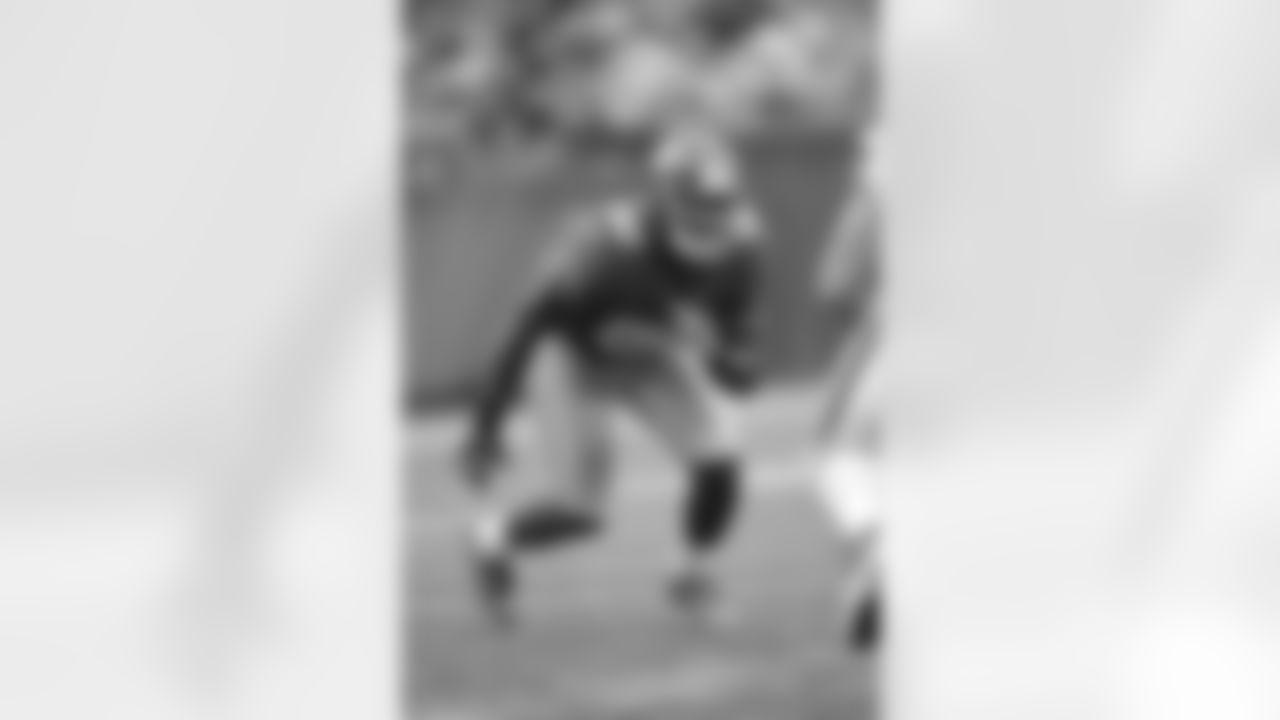
New York Giants Giants defensive end Jason Pierre-Paul (90) during a week 5 football game against the Cleveland Browns on October 7, 2012 in East Rutherford, New Jersey(AP Photo/Evan Pinkus)
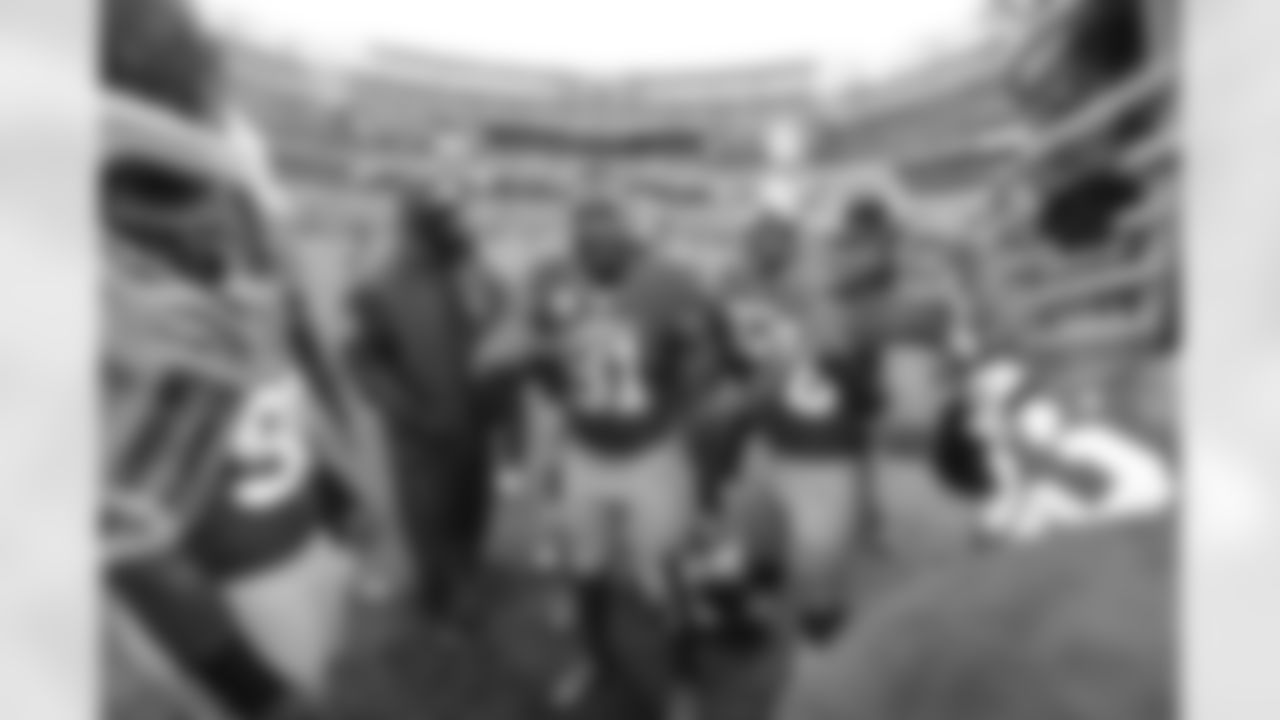
New York Giants defensive end Justin Tuck (91) talks to his teammates before week 5 football game against the Cleveland Browns on October 7, 2012 in East Rutherford, New Jersey(AP Photo/Evan Pinkus)
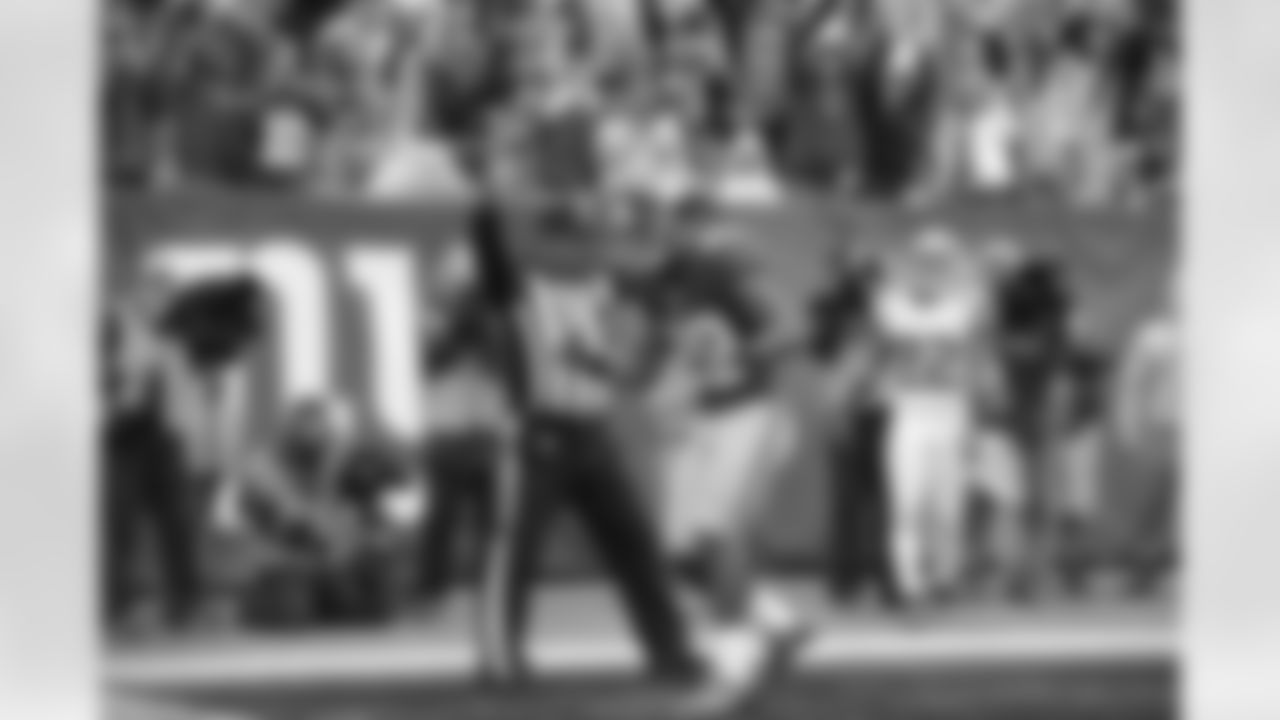
New York Giants wide receiver Victor Cruz (80) celebrates a touchdown by doing the Salsa during a week 5 football game against the Cleveland Browns on October 7, 2012 in East Rutherford, New Jersey(AP Photo/Evan Pinkus)
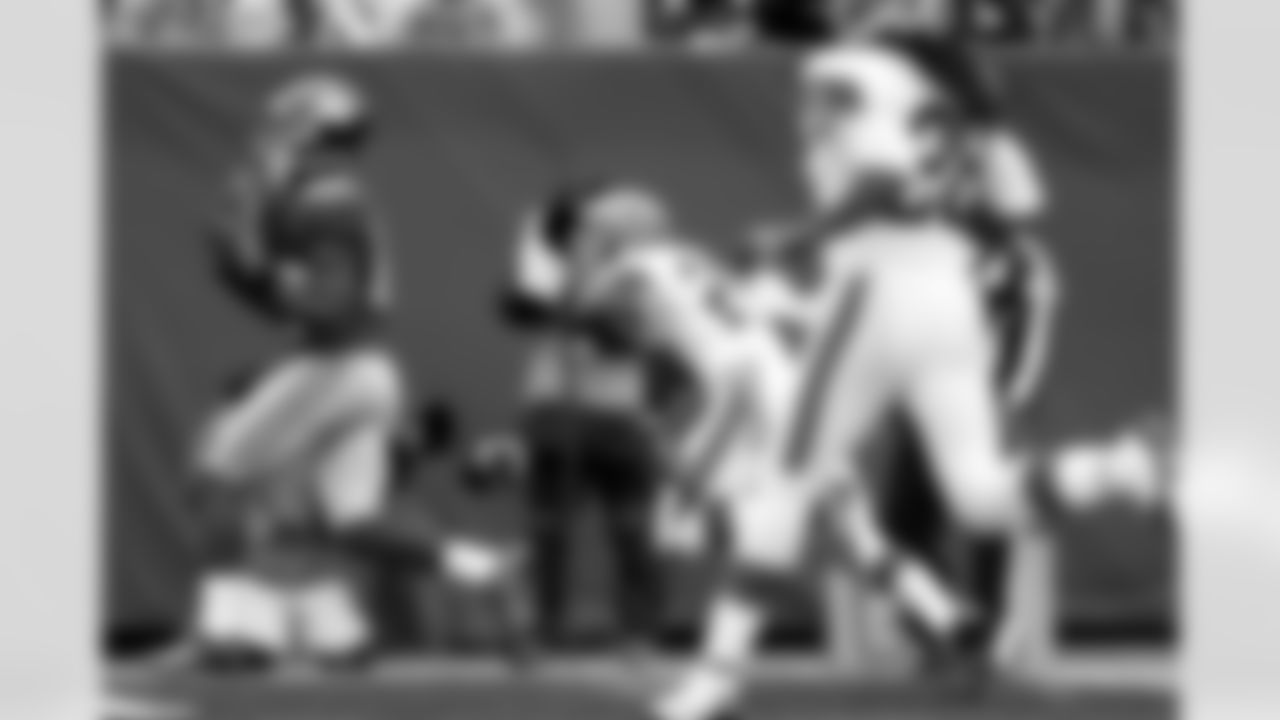
New York Giants wide receiver Victor Cruz (80) catches a touchdown pass in front of Cleveland Browns cornerback Trevin Wade (26) during the second half of an NFL football game Sunday, Oct. 7, 2012, in East Rutherford, N.J. (AP Photo/Julio Cortez)
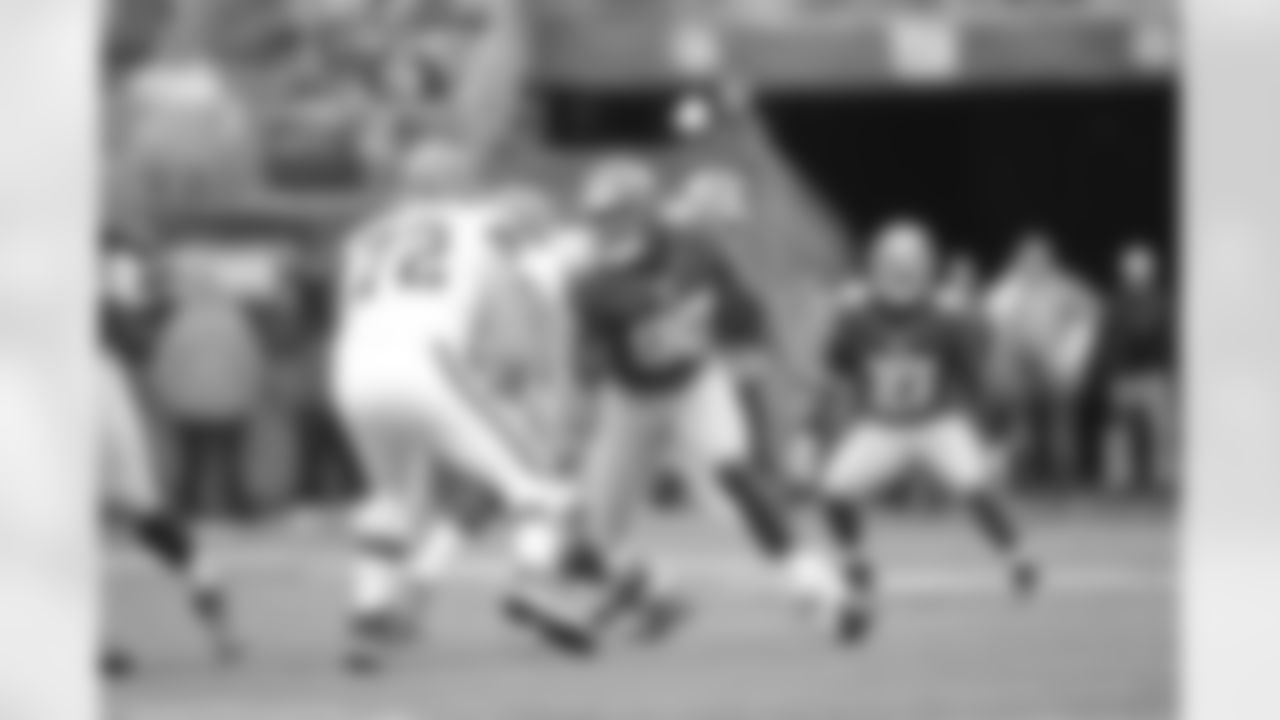
New York Giants Giants defensive end Jason Pierre-Paul (90) during a week 5 football game against the Cleveland Browns on October 7, 2012 in East Rutherford, New Jersey(AP Photo/Evan Pinkus)
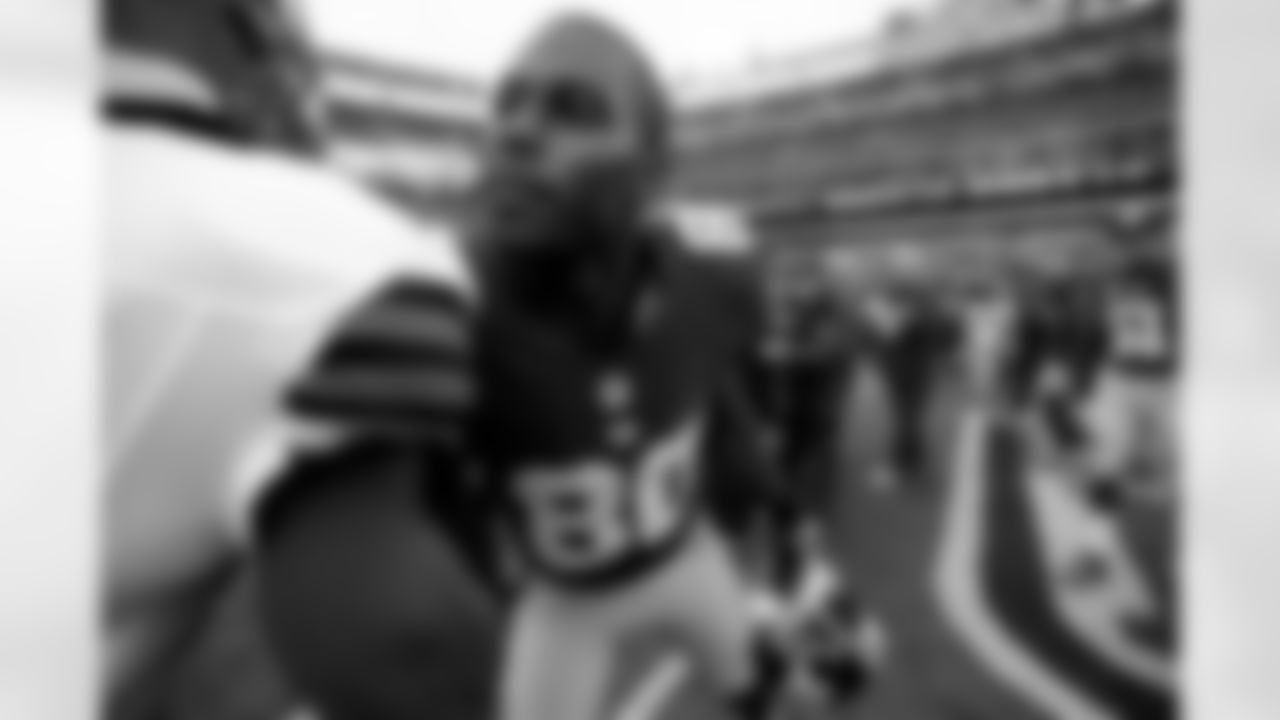
New York Giants wide receiver Victor Cruz (80) talks to Cleveland Browns players at the end of an NFL football game Sunday, Oct. 7, 2012, in East Rutherford, N.J. The Giants won the game 41-27. (AP Photo/Julio Cortez)
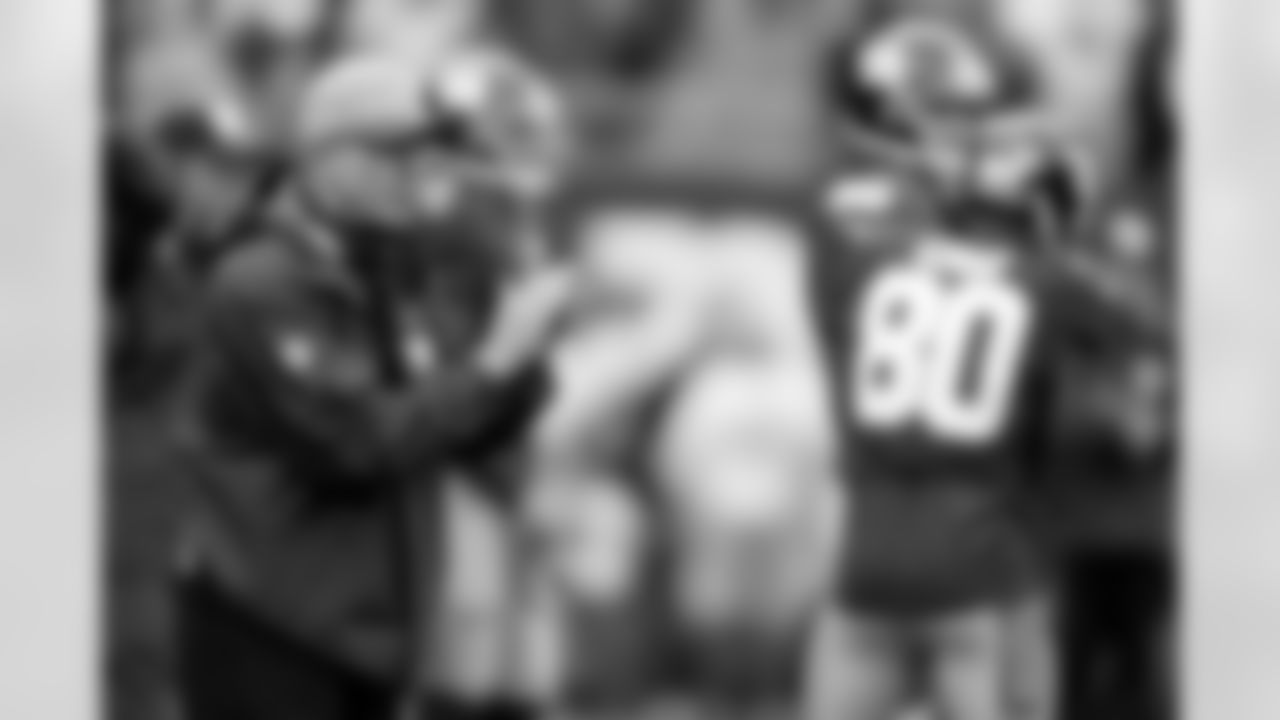
New York Giants head coach Tom Coughlin claps while talking to his team before an NFL football game against the Cleveland Browns Sunday, Oct. 7, 2012, in East Rutherford, N.J. (AP Photo/Julio Cortez)

Cleveland Browns head coach Pat Shurmur shakes hands with New York Giants head coach Tom Coughlin after an NFL football game Sunday, Oct. 7, 2012, in East Rutherford, N.J. The Giants won the game 41-27. (AP Photo/Julio Cortez)

New York Giants cornerback Dominique Rodgers-Cromartie (41) breaks up a pass to Cleveland Browns wide receiver Terrelle Pryor (11) in the second half of an NFL football game, Sunday, Nov. 27, 2016, in Cleveland. (AP Photo/David Richard)
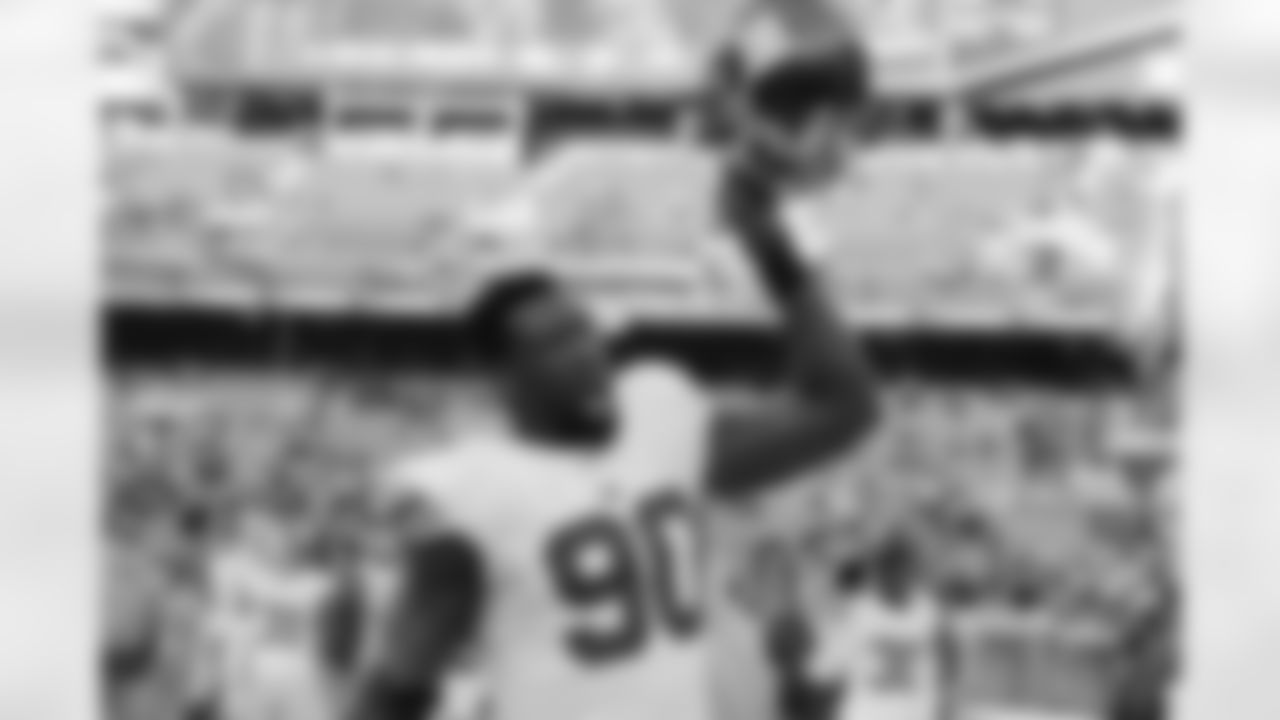
New York Giants defensive end Jason Pierre-Paul reacts after an NFL football game against the Cleveland Browns, Sunday, Nov. 27, 2016, in Cleveland. (AP Photo/Ron Schwane)
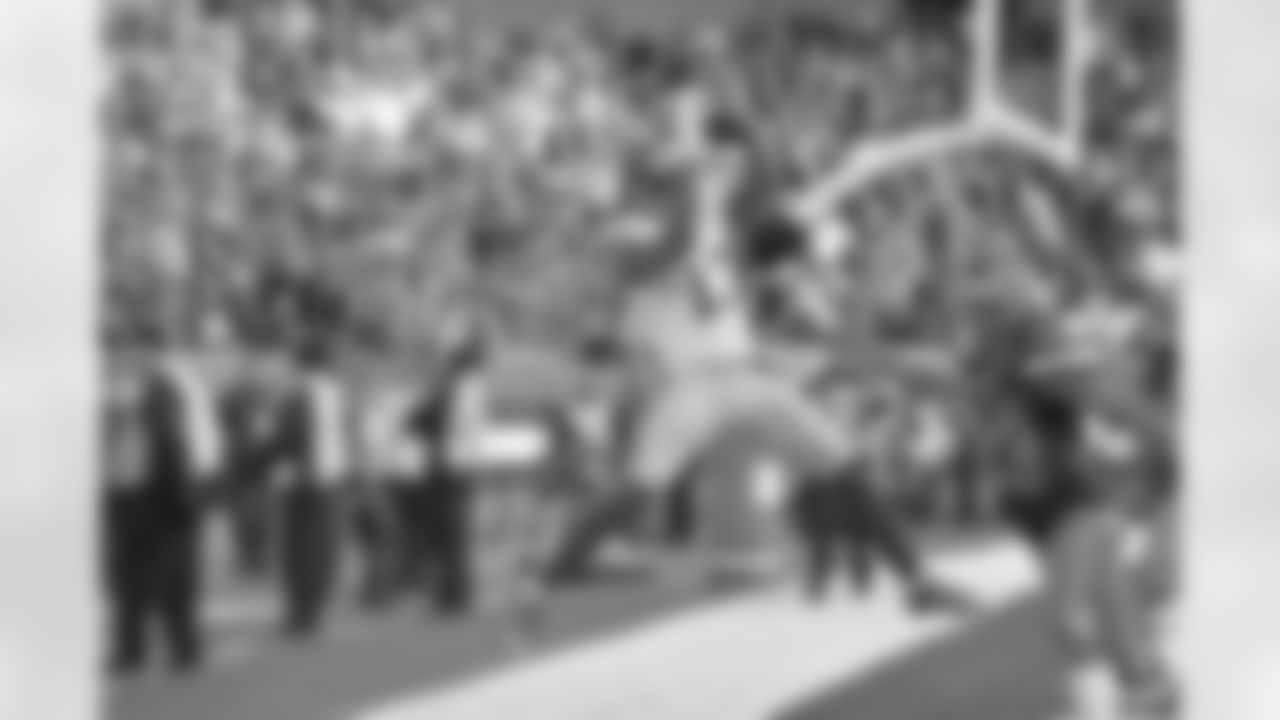
New York Giants wide receiver Odell Beckham (13) makes a catch beside Cleveland Browns cornerback Joe Haden (23) but lands out of bounds during an NFL football game, Sunday, Nov. 27, 2016, in Cleveland. The Giants won 27-13. (AP Photo/David Richard)
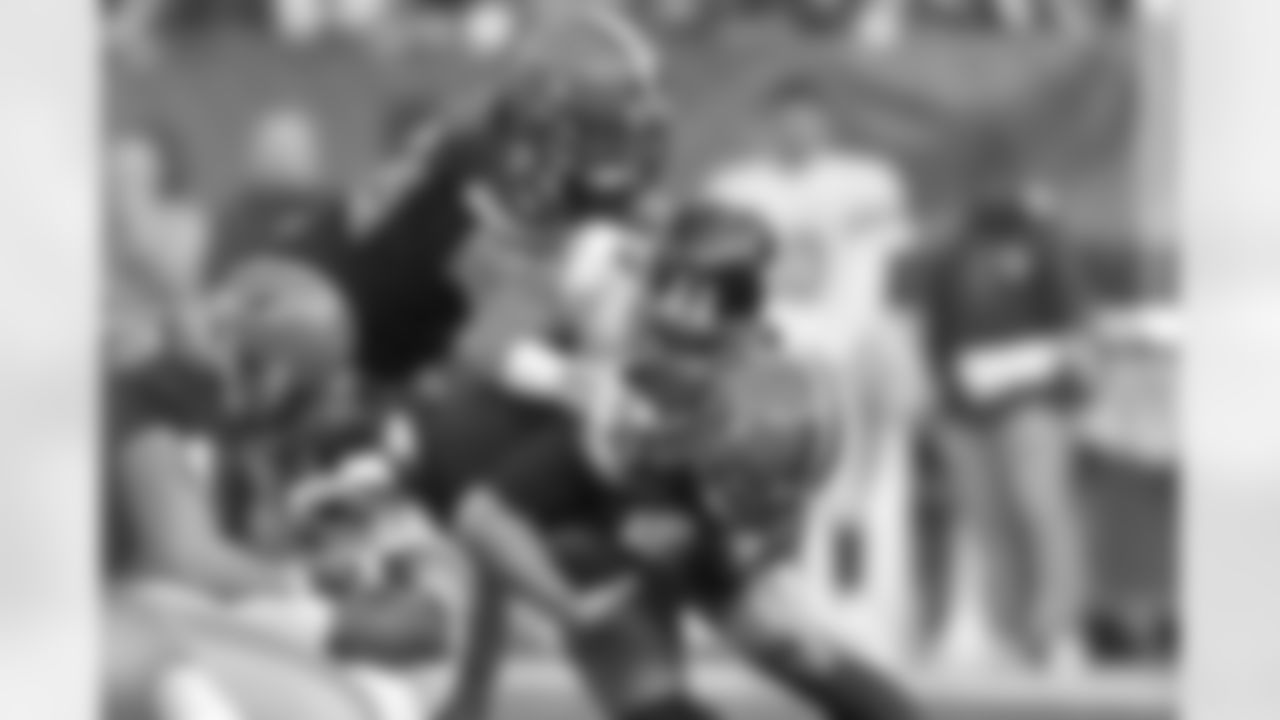
Cleveland Browns quarterback Josh McCown (13) is sacked by New York Giants defensive end Olivier Vernon (54) during an NFL football game, Sunday, Nov. 27, 2016, in Cleveland. The Giants won 27-13. (AP Photo/David Richard)
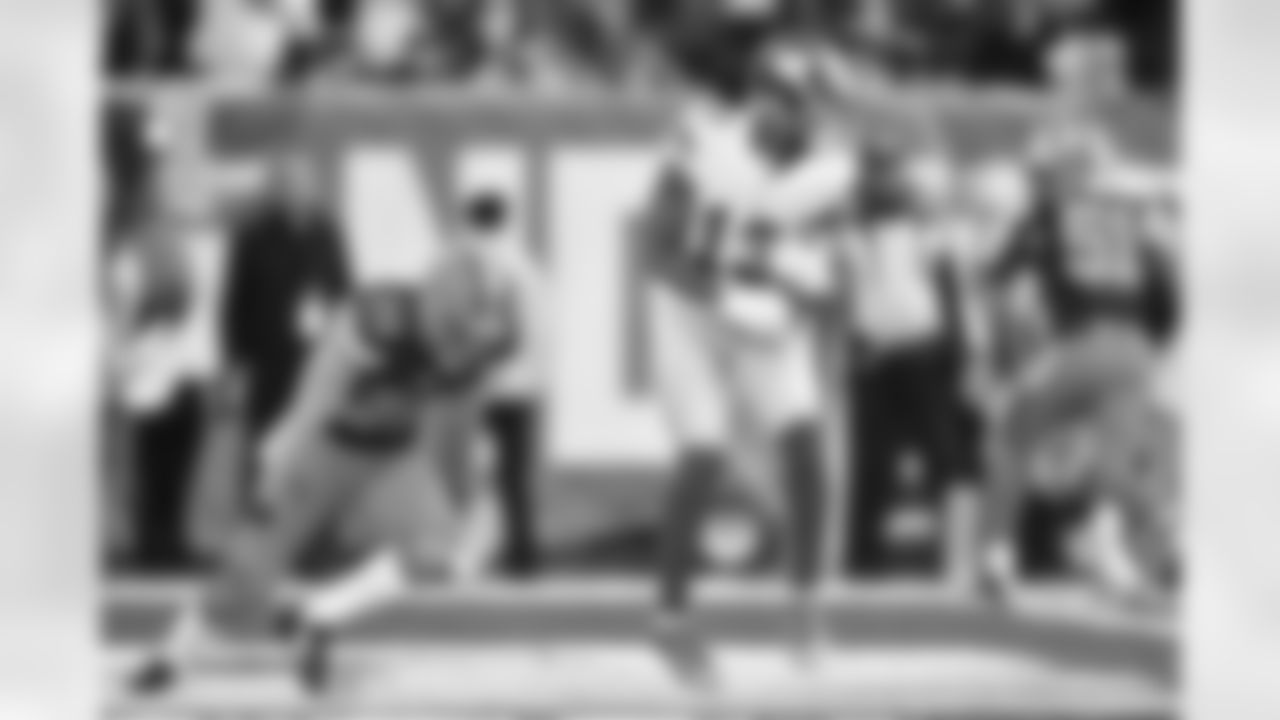
New York Giants wide receiver Odell Beckham (13) scores a touchdown against Cleveland Browns defensive back Ed Reynolds (39) in the second half of an NFL football game, Sunday, Nov. 27, 2016, in Cleveland. (AP Photo/David Richard)
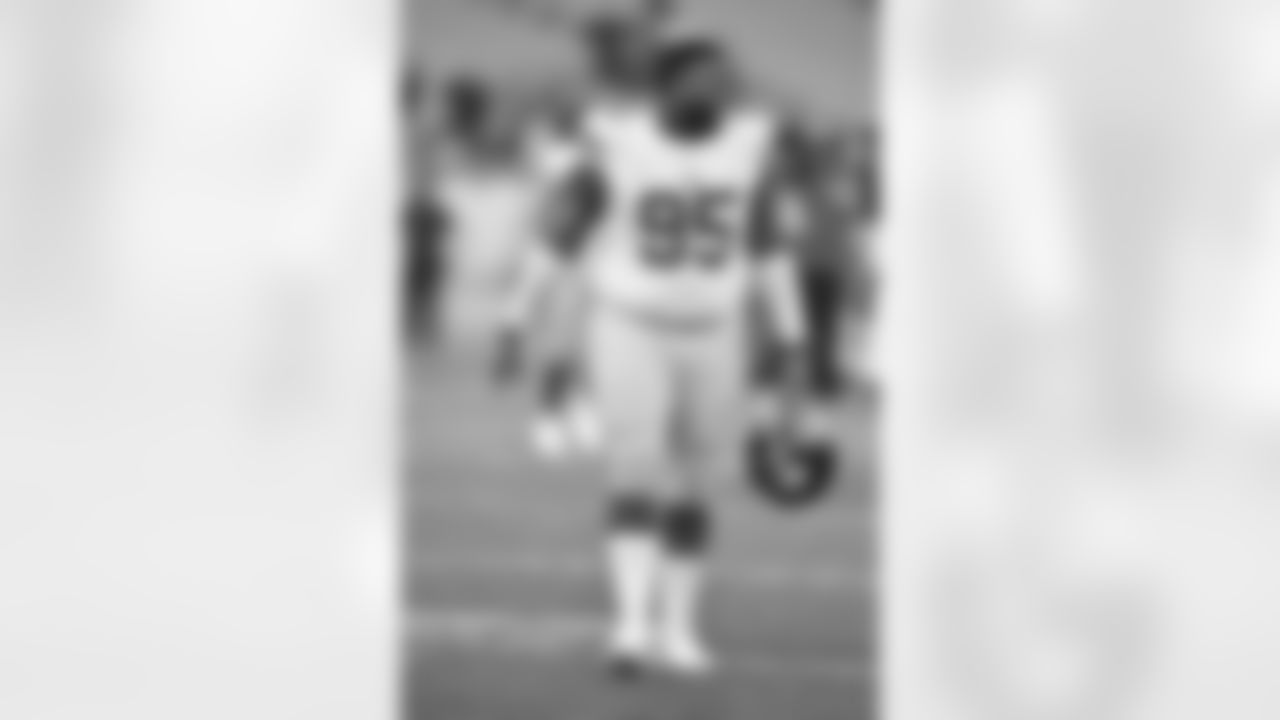
New York Giants defensive tackle Johnathan Hankins (95) walks off the field after an NFL football game against the Cleveland Browns, Sunday, Nov. 27, 2016, in Cleveland. The Giants won 27-13. (AP Photo/David Richard)
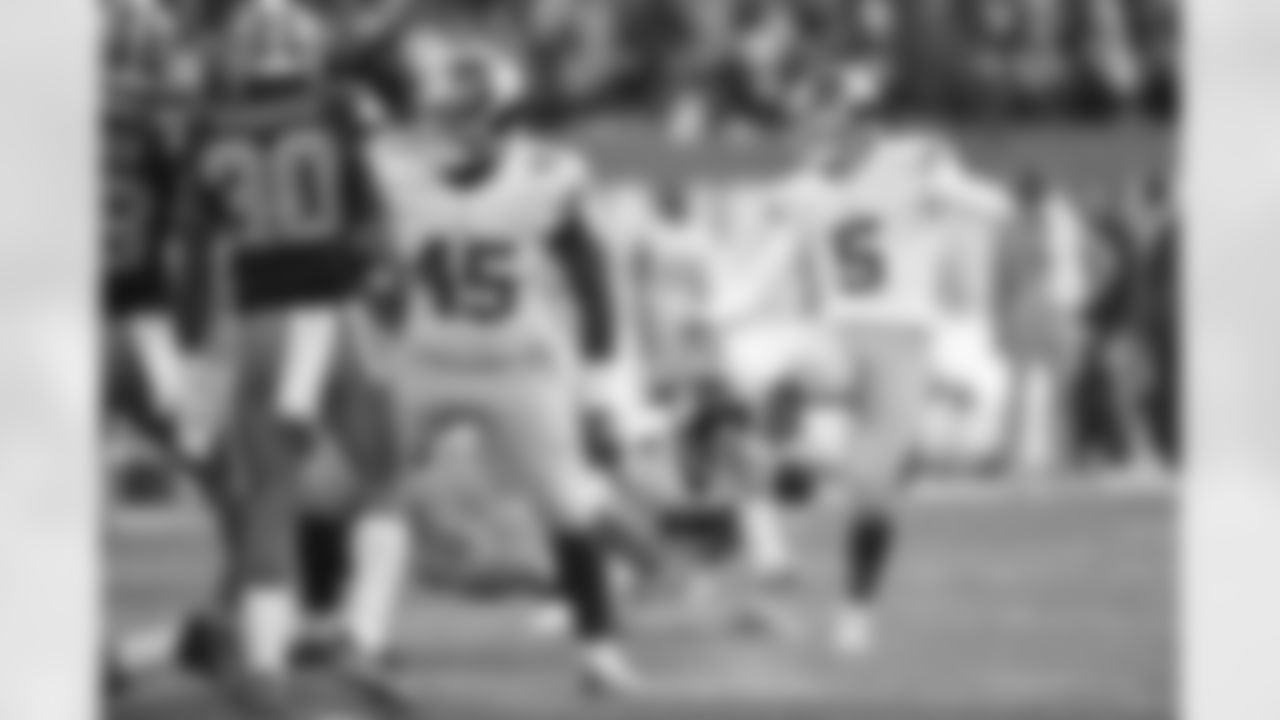
New York Giants kicker Robbie Gould (5) watches his extra-point kick in the second half of an NFL football game against the Cleveland Browns, Sunday, Nov. 27, 2016, in Cleveland. (AP Photo/David Richard)
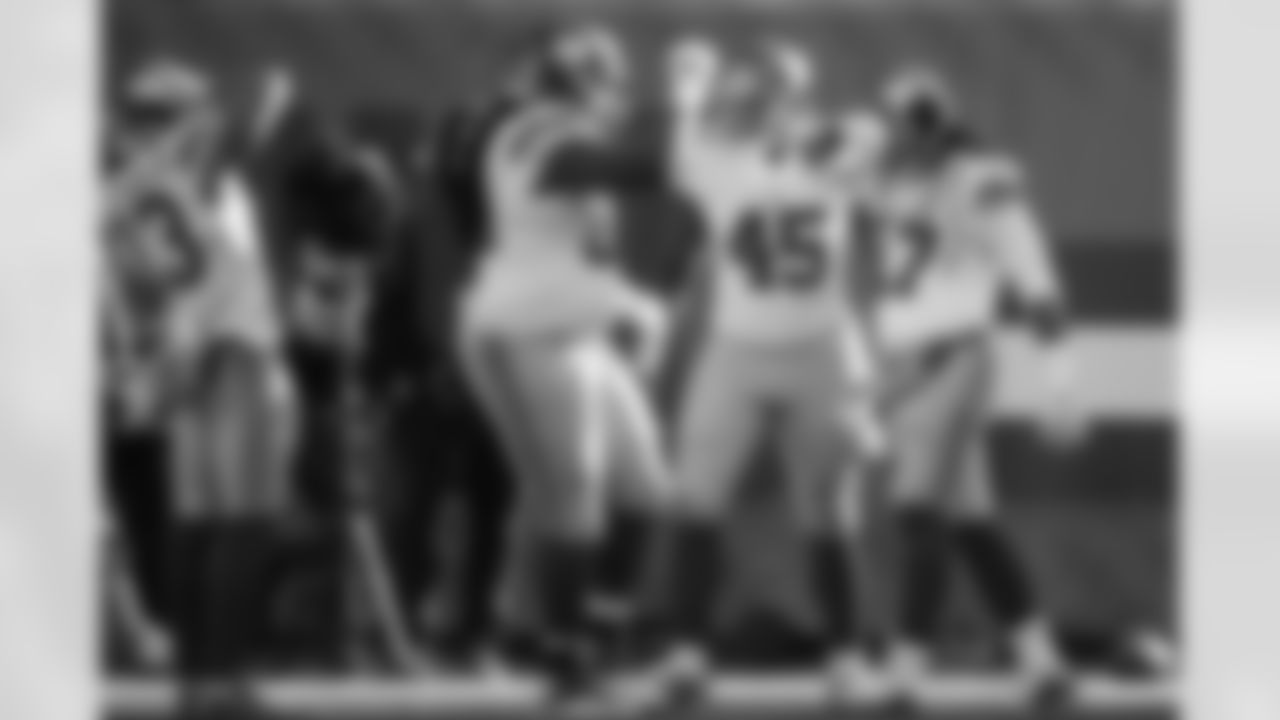
New York Giants wide receiver Dwayne Harris (17) celebrates his touchdown catch with his teammates in the first half of an NFL football game against the Cleveland Browns, Sunday, Nov. 27, 2016, in Cleveland. (AP Photo/Ron Schwane)
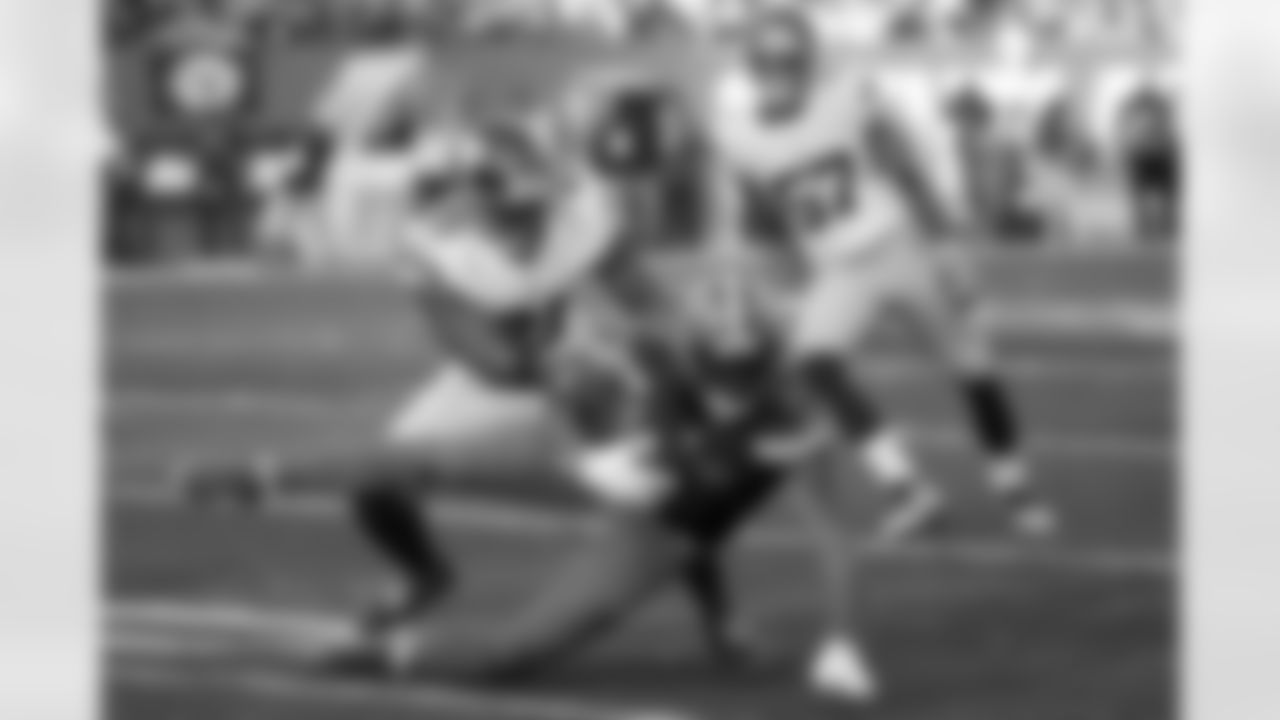
Cleveland Browns wide receiver Terrelle Pryor (11) dives for yardage against New York Giants strong safety Landon Collins (21) in the second half of an NFL football game, Sunday, Nov. 27, 2016, in Cleveland. (AP Photo/Ron Schwane)
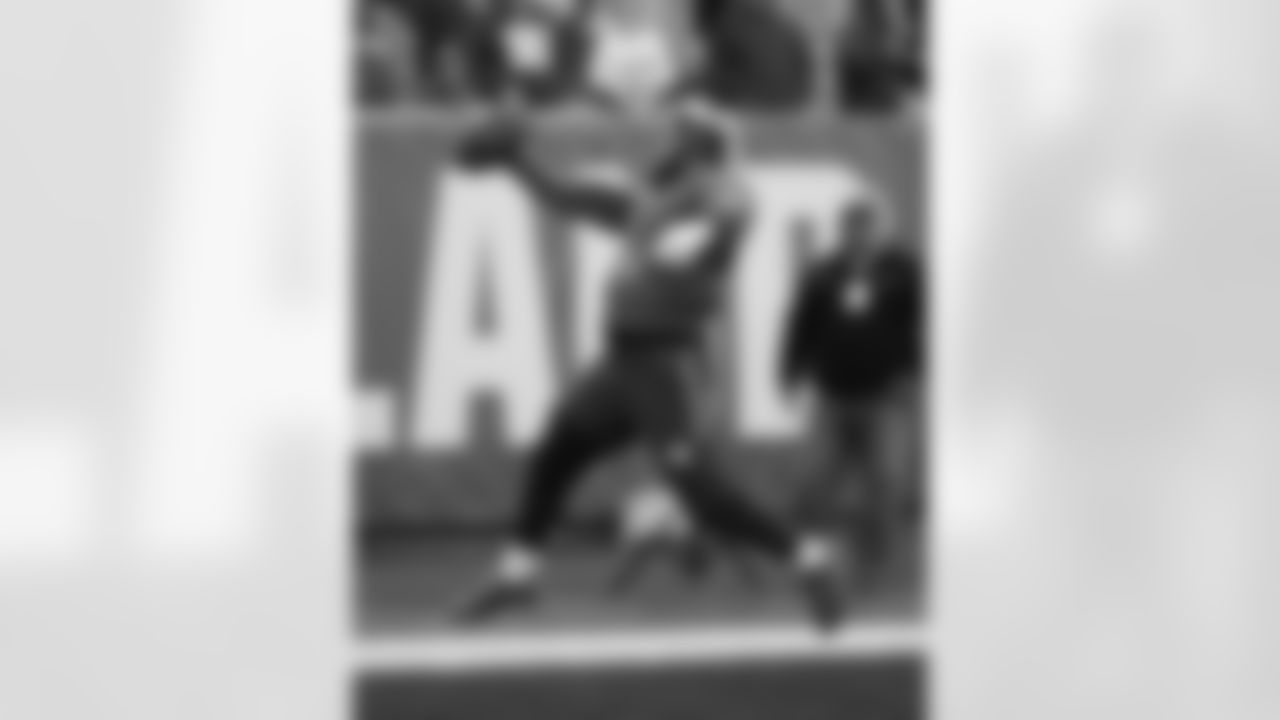
New York Giants wide receiver Odell Beckham practices before an NFL football game against the Cleveland Browns, Sunday, Nov. 27, 2016, in Cleveland. (AP Photo/Ron Schwane)
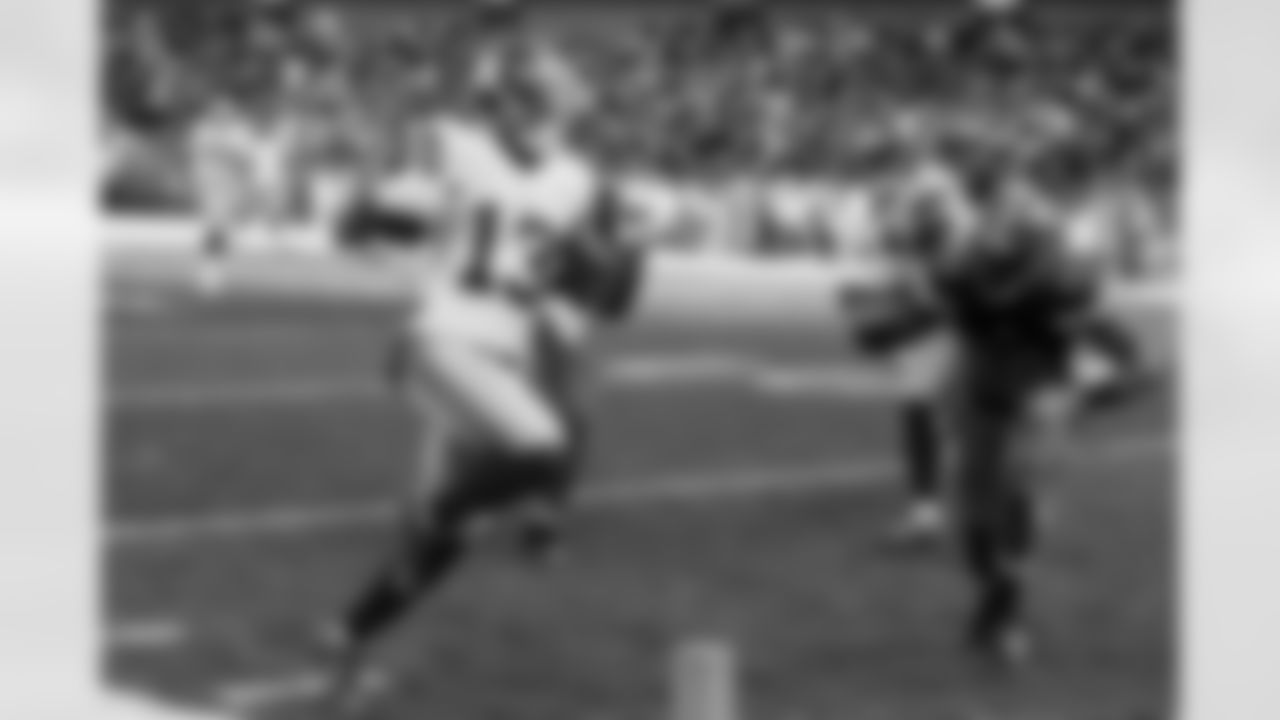
New York Giants wide receiver Odell Beckham (13) runs in a touchdown in the first half of an NFL football game against the Cleveland Browns, Sunday, Nov. 27, 2016, in Cleveland. (AP Photo/Ron Schwane)
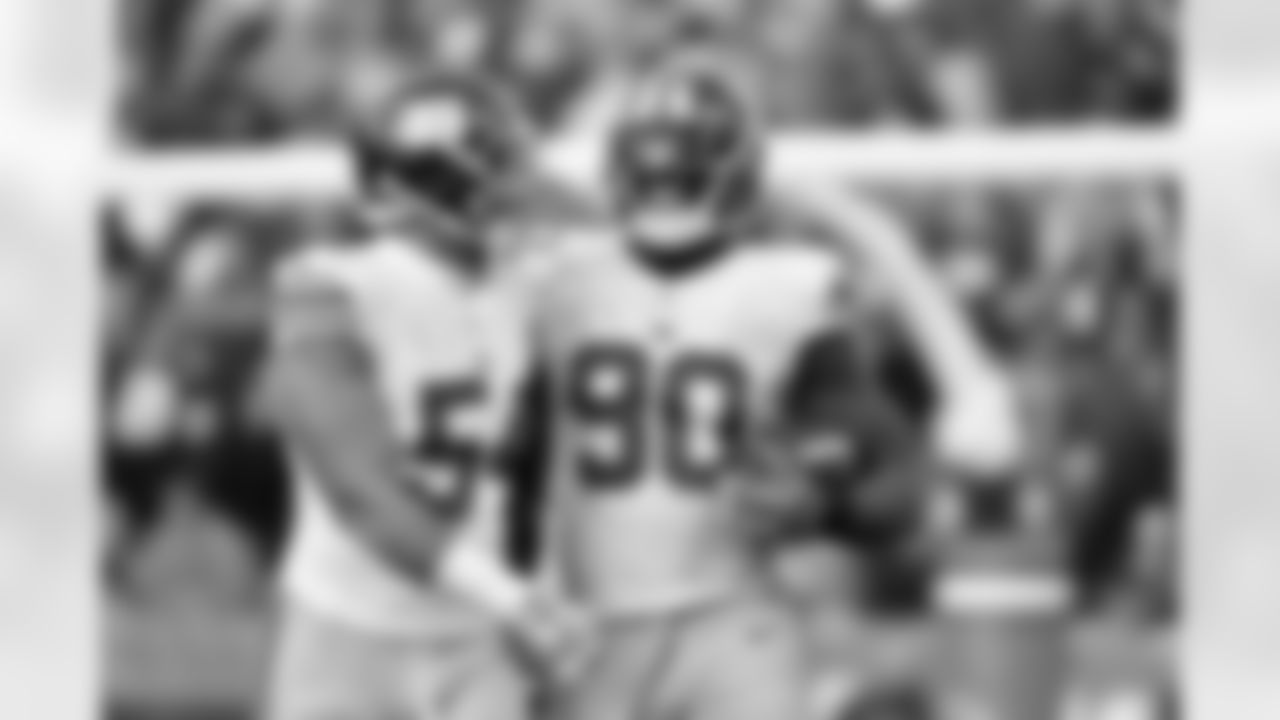
New York Giants defensive end Jason Pierre-Paul (90) celebrates a touchdown with defensive end Olivier Vernon (54) during a week 12 NFL football game against the Cleveland Browns on November 27, 2016 in Cleveland. (Evan Pinkus via AP)
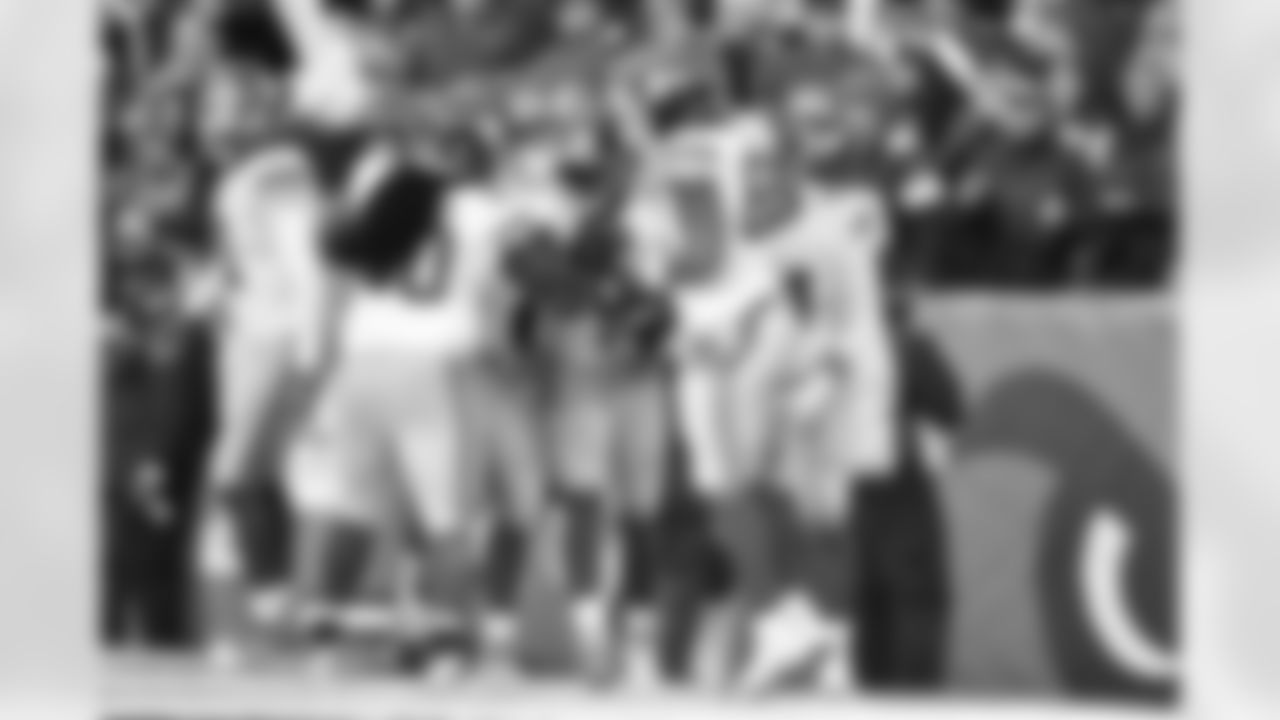
New York Giants defensive end Jason Pierre-Paul (90) celebrates a touchdown with teammates during a week 12 NFL football game against the Cleveland Browns on November 27, 2016 in Cleveland. (Evan Pinkus via AP)
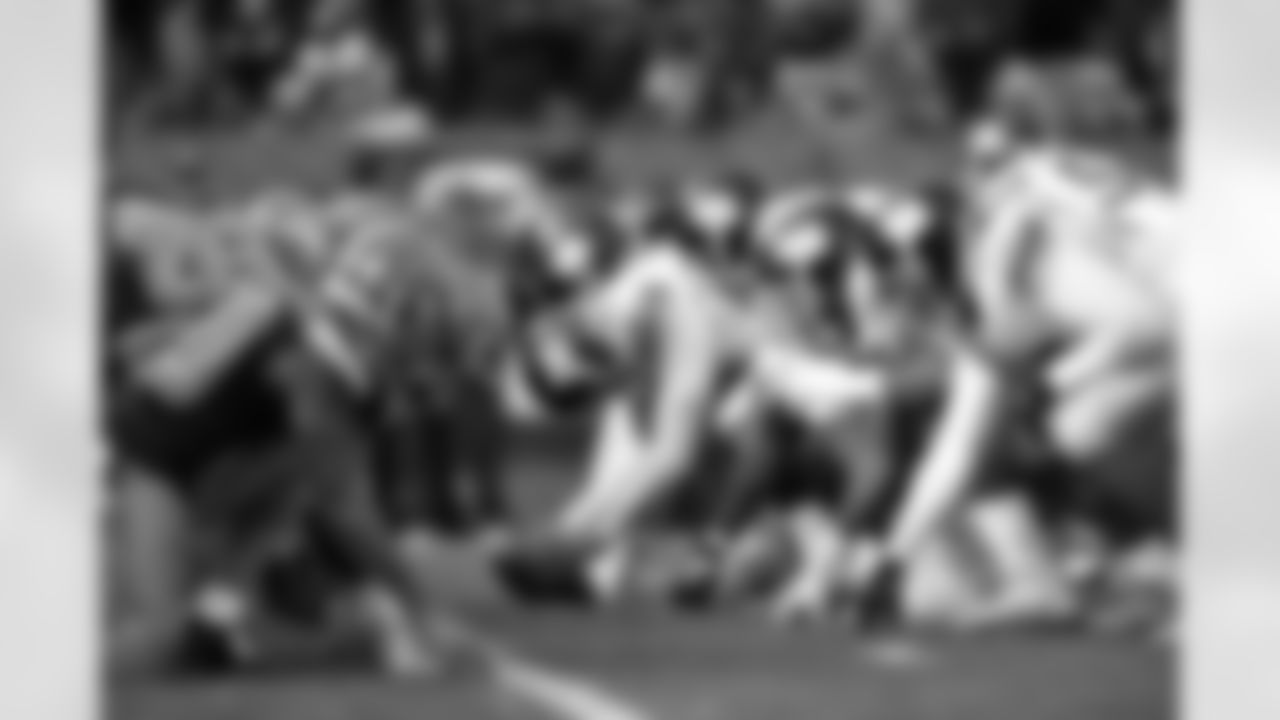
A look down the line of scrimmages the New York Giants take on the Cleveland Browns during a week 12 NFL football game on November 27, 2016 in Cleveland. (Evan Pinkus via AP)
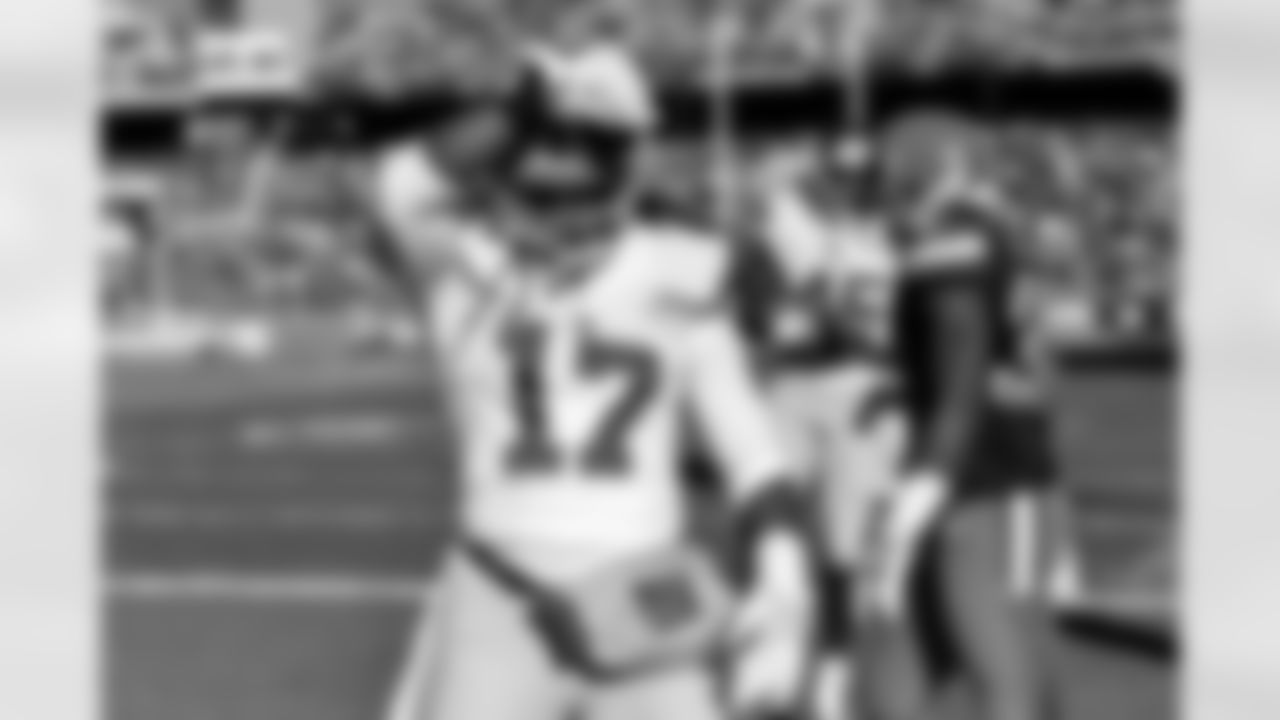
New York Giants wide receiver Dwayne Harris (17) celebrates after catching a touchdown pass in the first half of an NFL football game against the Cleveland Browns, Sunday, Nov. 27, 2016, in Cleveland. (AP Photo/David Richard)
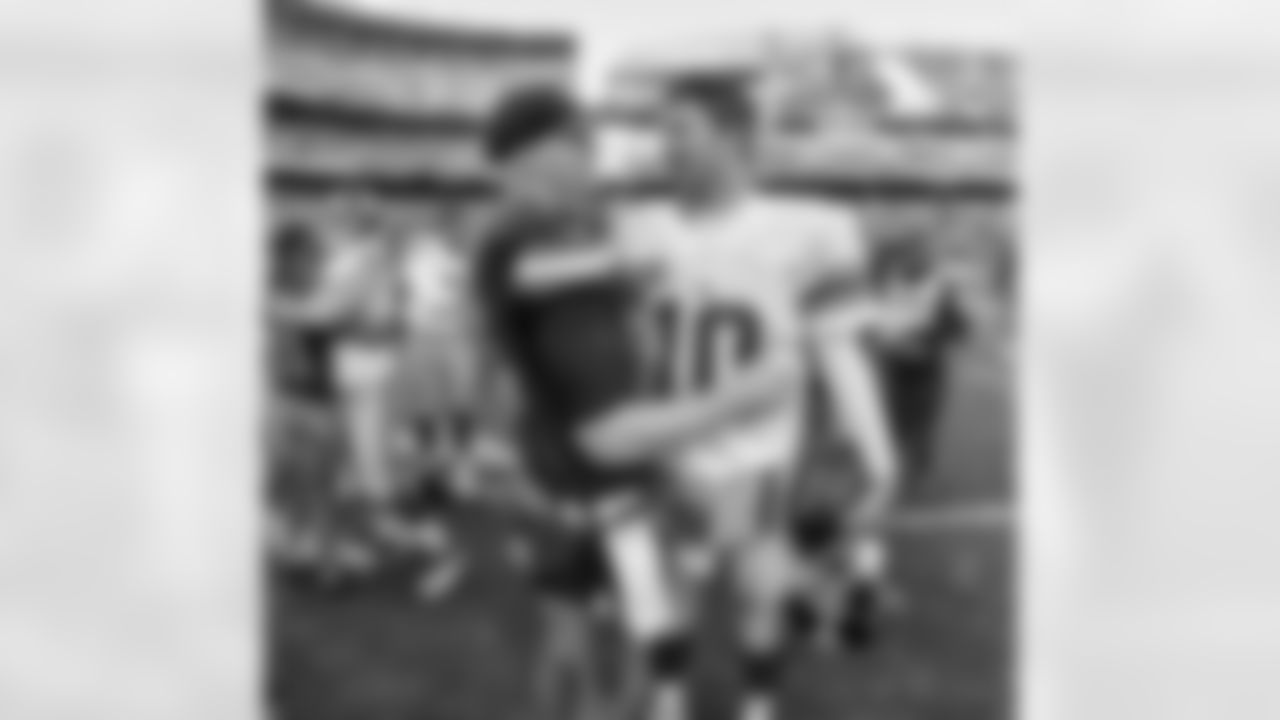
New York Giants quarterback Eli Manning (10) talks with Cleveland Browns quarterback Josh McCown (13) following a week 12 NFL football game on November 27, 2016 in Cleveland. (Evan Pinkus via AP)
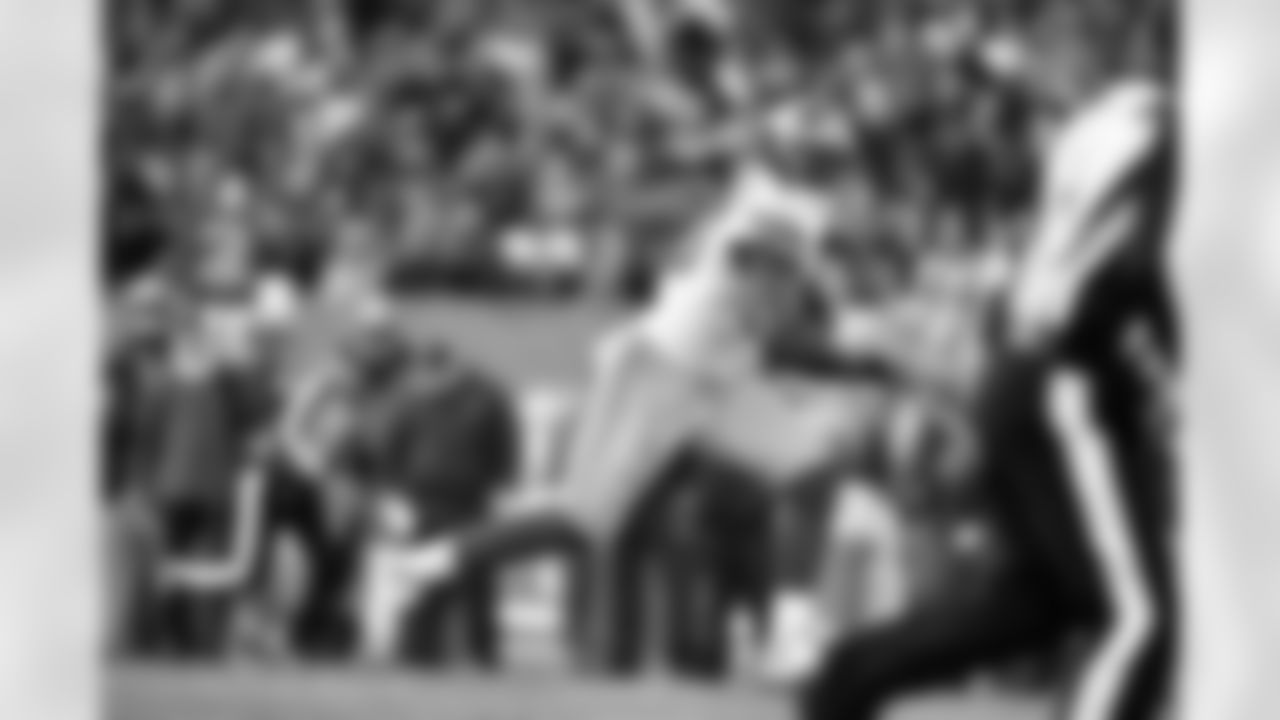
New York Giants defensive end Jason Pierre-Paul (90) returns a fumble recovery for a touchdown during a week 12 NFL football game against the Cleveland Browns on November 27, 2016 in Cleveland. (Evan Pinkus via AP)
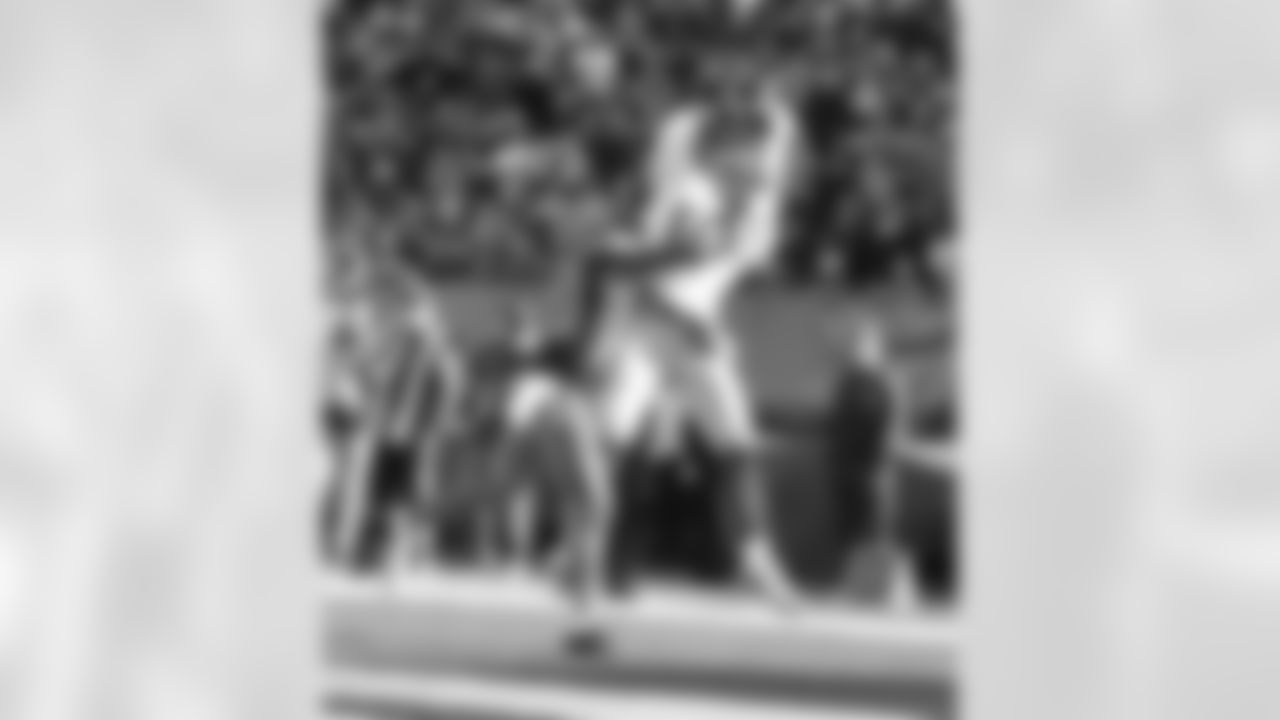
New York Giants wide receiver Dwayne Harris (17) catches a touchdown pass during a week 12 NFL football game against the Cleveland Browns on November 27, 2016 in Cleveland. (Evan Pinkus via AP)
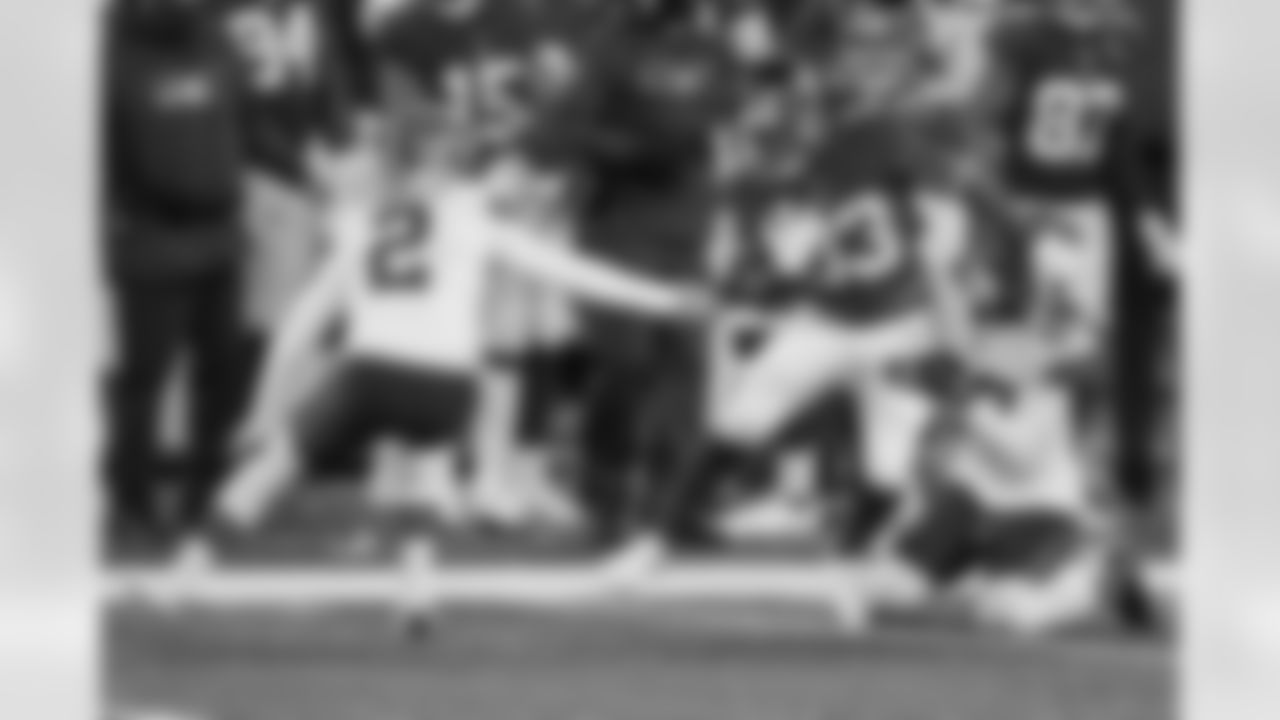
New York Giants' Dion Lewis (33) evades Cleveland Browns' Cody Parkey (2) during the first half of an NFL football game Sunday, Dec. 20, 2020, in East Rutherford, N.J. (AP Photo/Seth Wenig)
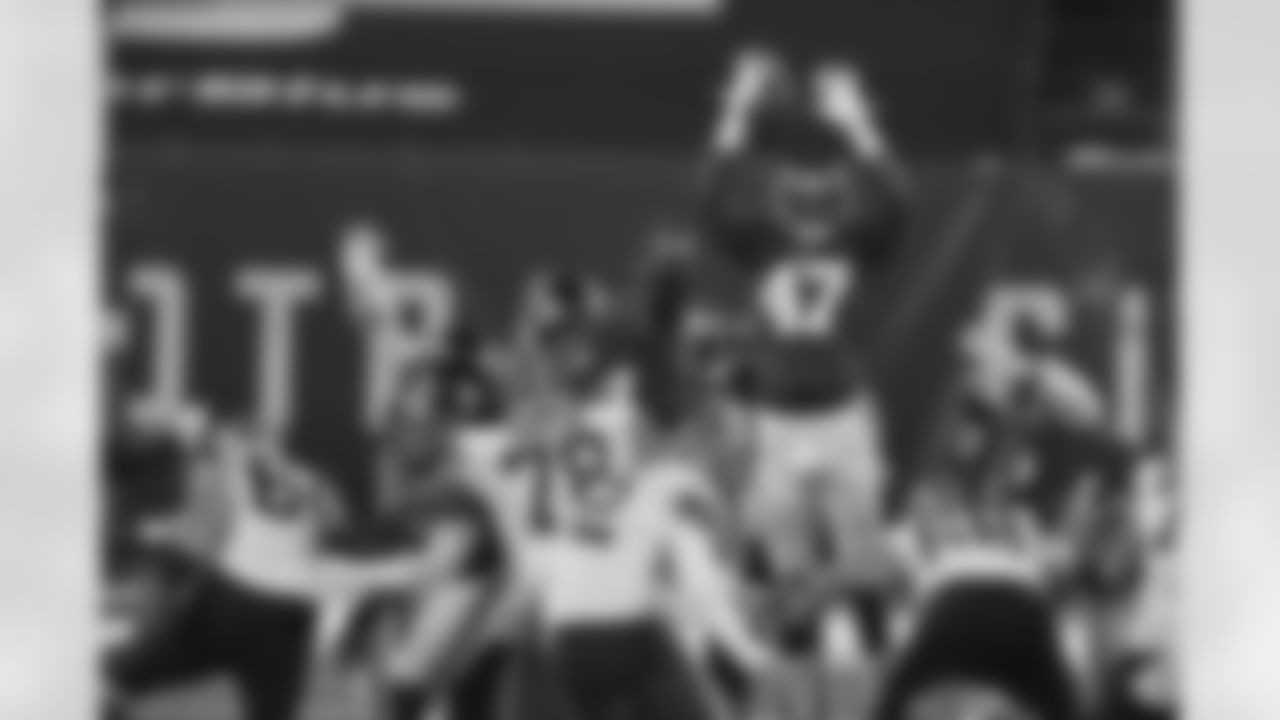
New York Giants linebacker Cam Brown (47) leaps to block a kick by Cleveland Browns place kicker Cody Parkey (2) during a NFL football game against the Cleveland Browns, Sunday Dec.20, 2020 in East Rutherford, New Jersey (Evan Pinkus via AP)
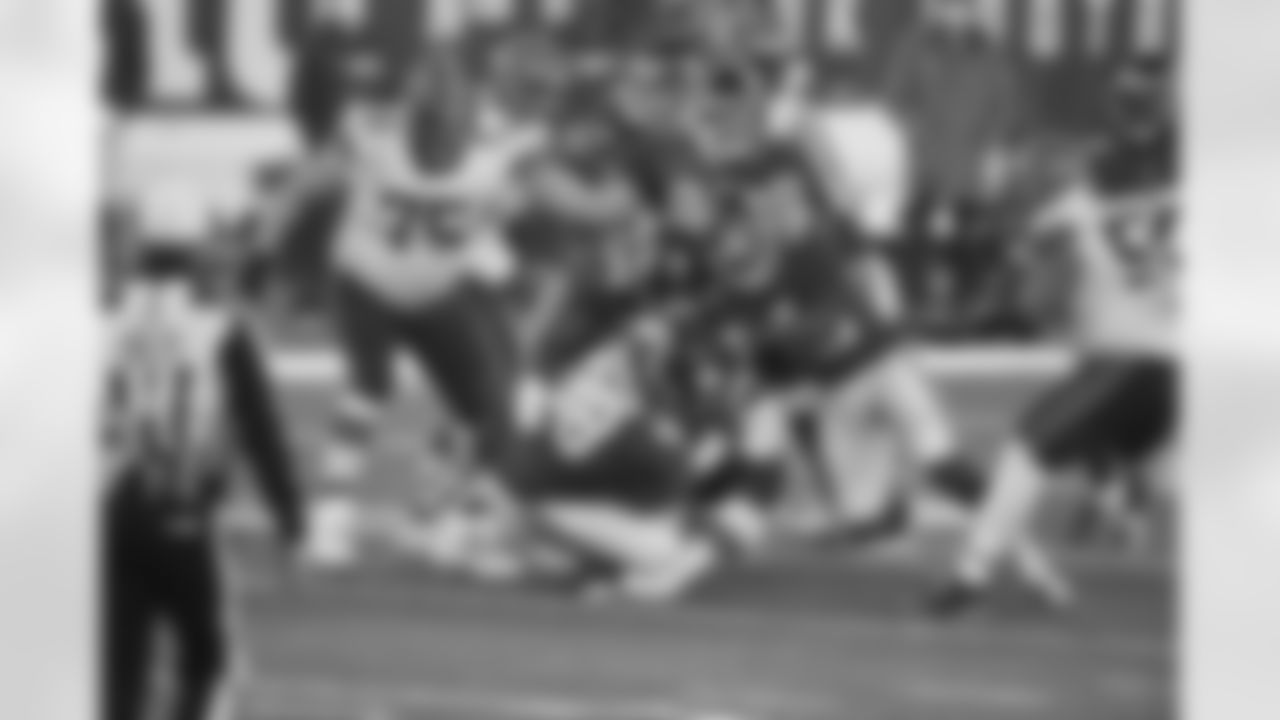
New York Giants defensive tackle Austin Johnson (98) defensive tackle Dalvin Tomlinson (94) and linebacker Tae Crowder (48) tackle Cleveland Browns running back Kareem Hunt (27) during a NFL football game against the Cleveland Browns, Sunday Dec.20, 2020 in East Rutherford, New Jersey (Evan Pinkus via AP)
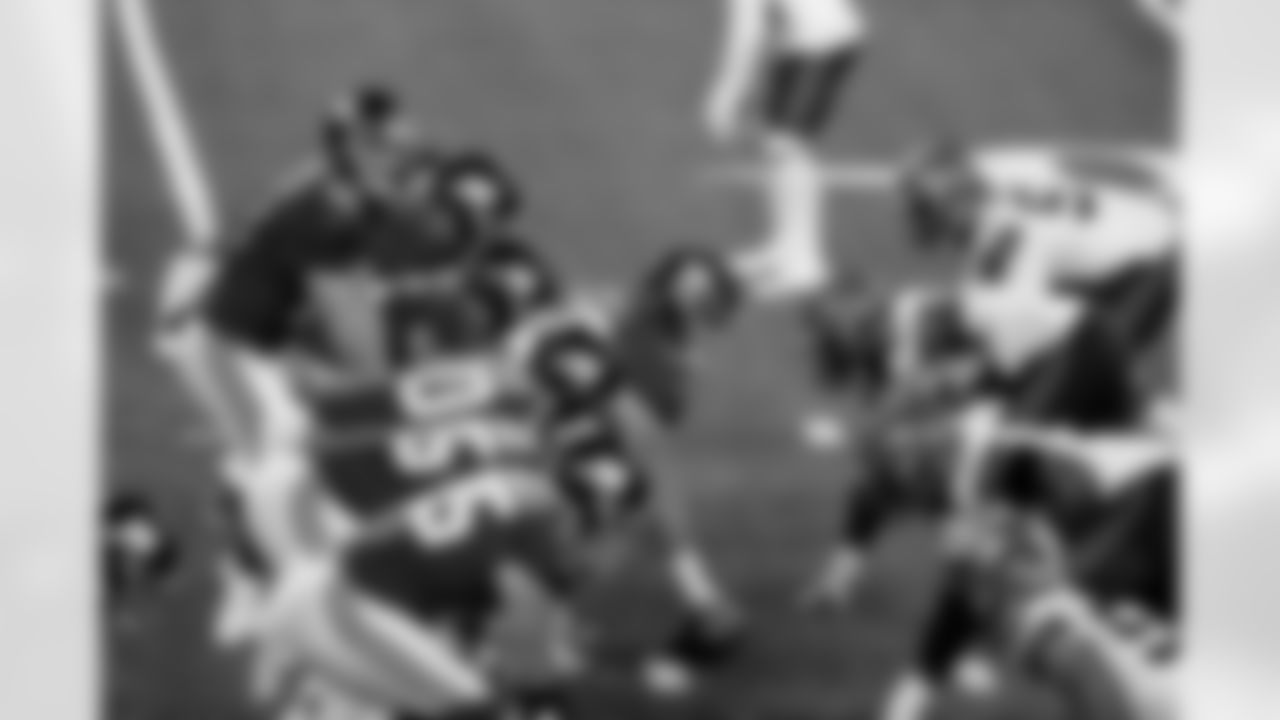
New York Giants quarterback Colt McCoy (12) in action during an NFL football game against the Cleveland Browns, Sunday, Dec. 20, 2020, in East Rutherford, N.J. (AP Photo/Adam Hunger)
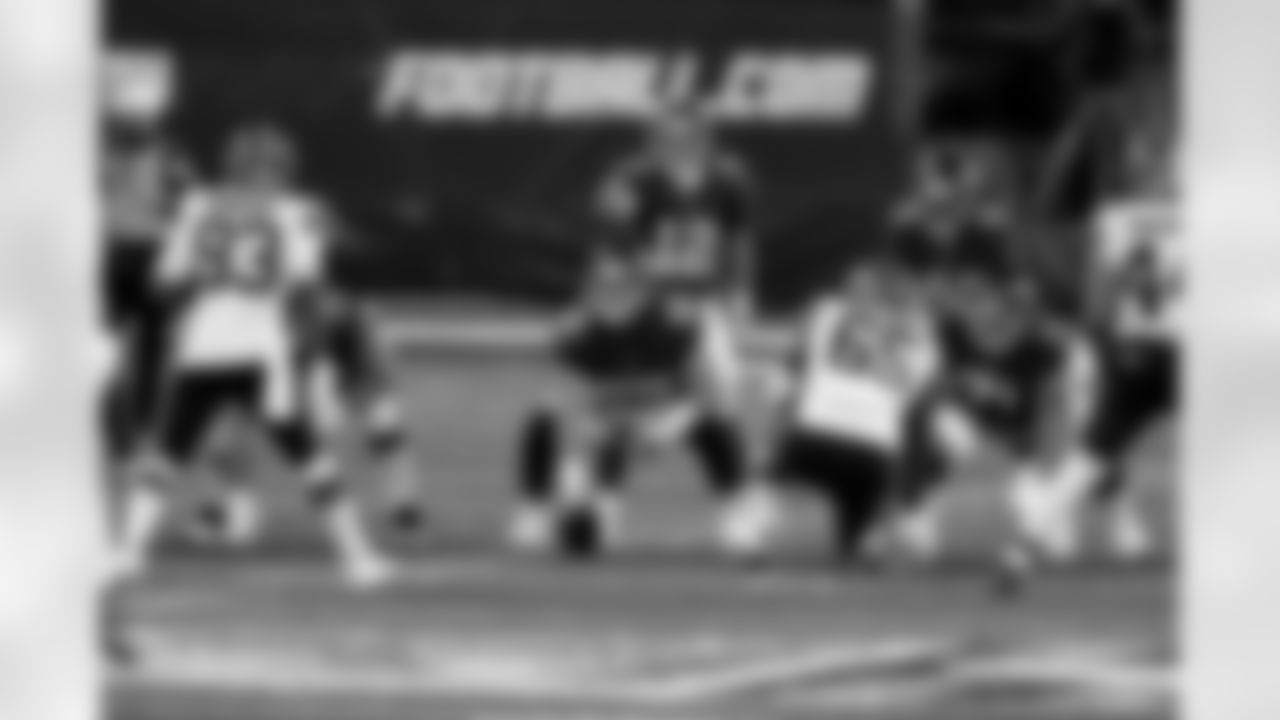
New York Giants quarterback Colt McCoy (12) in action during an NFL football game against the Cleveland Browns, Sunday, Dec. 20, 2020, in East Rutherford, N.J. (AP Photo/Adam Hunger)
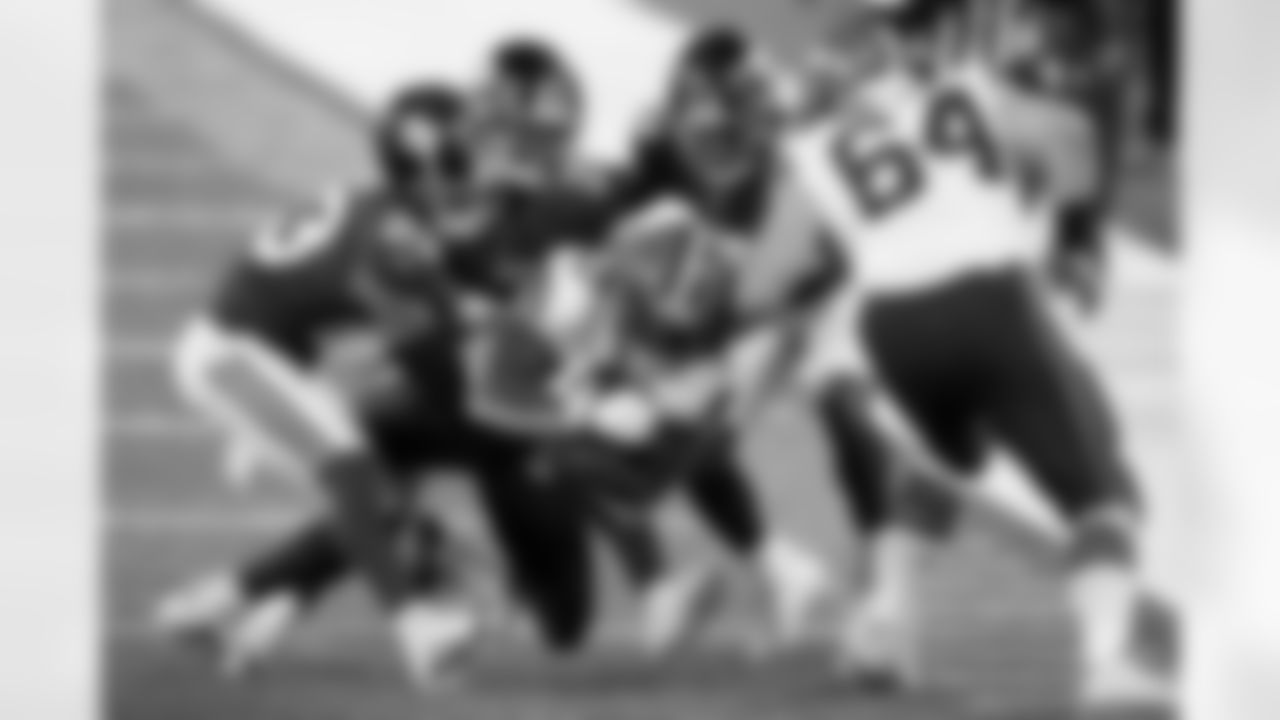
Cleveland Browns running back D'Ernest Johnson (30) is brought down by New York Giants free safety Logan Ryan (23), free safety Julian Love (20) and free safety Adrian Colbert (34) in the second half of an NFL football game Sunday, Dec. 20, 2020, in East Rutherford, N.J. (AP Photo/Corey Sipkin)
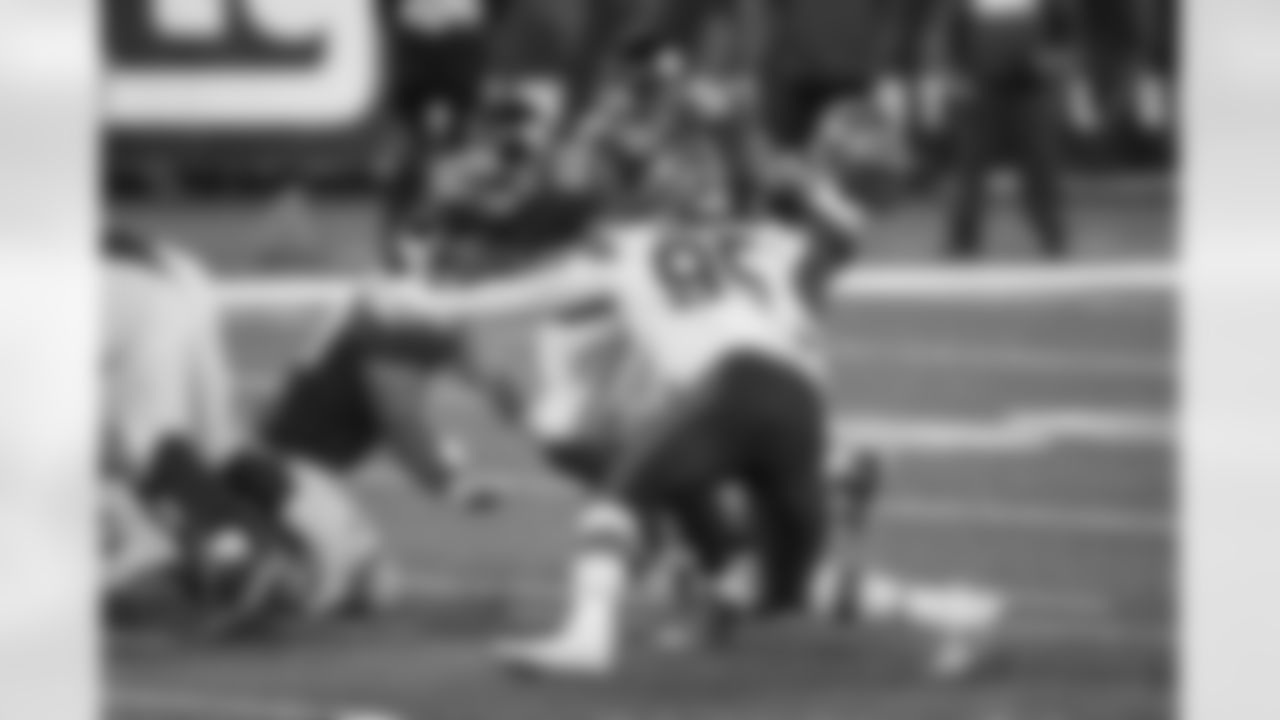
New York Giants' Wayne Gallman (22) rushes past Cleveland Browns' Myles Garrett (95) during the first half of an NFL football game, Sunday, Dec. 20, 2020, in East Rutherford, N.J. (AP Photo/Seth Wenig)
Q: (Rookie linebacker) Carter Coughlin played almost as many defensive snaps last week as he had in the first 12 games combined. Some of it is out of necessity, but he would not be getting that if he hadn't earned it. Is he a young player who has really made big strides throughout the season?
Judge: "He has, he has. He's a young player that's really come on for us in some different ways. I've been pleased with his progress. He's done some things for us in the kicking game, he's done some things for us on defense, he shows consistent improvement, he plays with a high motor. I love the attitude these young guys have really taken. They've all shown a lot of improvement. I think they've shown some good signs for us going forward."
Q: Cleveland is one of the three teams in the league that runs more than it passes. With (Nick) Chubb and (Kareem) Hunt, that's obviously a good idea. This is the third week in a row you've played a top seven team in rushing average. The Browns are almost at 5.0 yards a run. You're playing another mobile quarterback in Baker Mayfield. Do you see the similarities in these opponents back to back to back, or are the Browns a very different team than Cardinals and the Seahawks?
Judge: "They're all very different and unique in how they do things. But there are similarities in the teams, whether you're talking about Seattle or Arizona or Cleveland, just in the fact that they all have very good quarterbacks who have the ability to make plays with their legs or their arms, they extend plays and if they get outside the pocket, they really present problems to defenses. Then ultimately, all three of those teams, really it starts up front with the run game. You get so concerned sometimes with passing attacks, you forget about the run games. At heart, these teams really are run heavy teams, and that's where they really build their identity. They're physical teams, they're downhill teams. You have to make sure that you play complementary football with run and pass defense, and not go ahead and sell out for one because they'll hit you with the other."
Q: The Browns are very good in numerous situations - first down, two-minute, red zone. How much of your focus, this week particularly but any week, is on the situations that your opponent excels in?
Judge: "We practice every week on situations. The way our practices are structured and our install goes, everything we look at is really situationally. It's not just calling a play first-and-10 and P-and-10, P-and-10 being the first play of a possession, So, if we punt and it's your first snap, that's P-and-10. How does a team handle P-and-10 versus first-and-10? Then you get into second down. Okay, is it second-and-long, a second-and-nine situation, second-and-10? Let's get back on track and try to gain some more yards, how do they handle it? Is that run the ball and try to make that third-and-manageable? Is that throw two passes and try to treat your second down like two third downs and try to gain it in one play but with two attempts? If it's second-and-short, that's a completely different situation. Second-and-one, it is a short yardage run team? Is this a team that's going to go ahead and run play action and take a shot down the field? That's what we call a waste play because you figure if it's a one-yard deal, they probably think on third down they can get that one yard as well. You have to understand the situation of each play.
"Then again, within third down, every team offensively and defensively does something unique based on the down and distance. If it's third-and-two to six, or two to four, what do they do relative to five to seven, then seven to 10 and 10-plus? Teams call the plays differently within those zones. Is it more man beater type routes for an offense, or more tight man when it's third-and-shorter? Is it more sticks routes when it's third-and-long to get to the sticks and turn around, or more sticks defense with zone vision when you understand they have to get 10, 11 yards with where you're sitting? Everything we do is situational. We're never just practicing, 'Hey, it's third down, this is the third-down call.' Why are we calling it? What are we calling it for? Every time the defense gets the call, they should understand the down, the distance, the hash, the score in the game, the time in the half. It should always be the situation that ties together with what they're trying to do. It's a third-and-long situation, okay, where is it? Third-and-long and it's on the 44-yard line. Well, are they trying to get the first down and if they don't get it, they're punting? Or are they trying to get half the yardage and kick a field goal? You have to make sure you understand why we are calling what we're calling. We don't want to just throw darts at the wall and try to hit something. We want to make sure we have a direct target for why we're calling certain calls."
Q: You gave up eight sacks last week. You have a quarterback that has a couple of leg injuries. In this league, teams attack weaknesses. Do you expect the Browns to bring a lot of pressure until you show that you can block that, particularly with (Myles) Garrett there?
Judge: "This team can bring pressure whether they rush four or they blitz. This team is very talented up front with Garrett and O.V. (Olivier Vernon) on the edges. You have (Sheldon) Richardson and the other guys inside. This team is very explosive. They make a lot of plays. It's a penetrating front. To me, if they want to get penetration, they don't necessarily have to add in blitzes. They can do that, and they do do it, but this isn't a team that has to do that to get pressure. To me, obviously, everyone is going to try to attack your weaknesses. It's up to us to make sure we protect. It's up to us to make sure we execute and we call the right plays at the right time."














